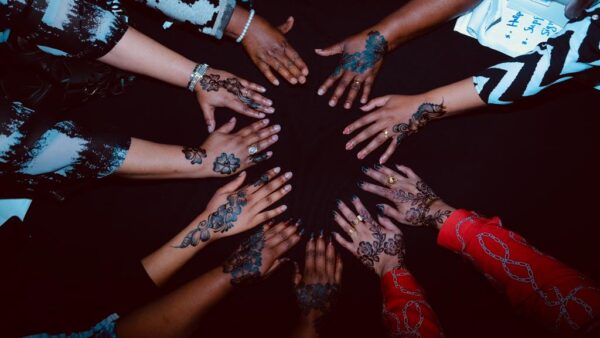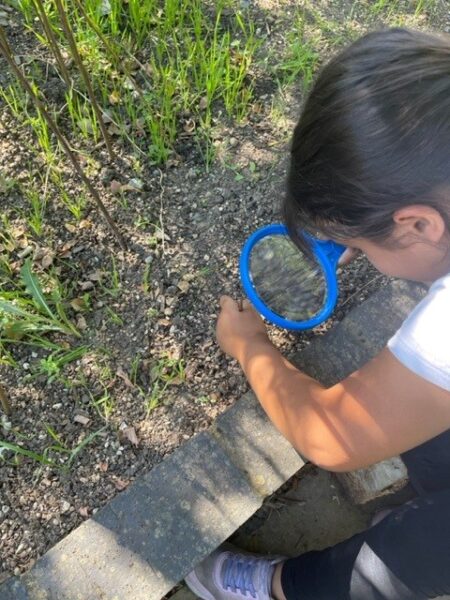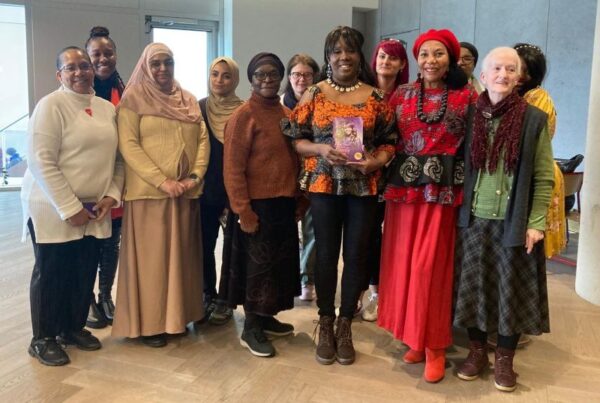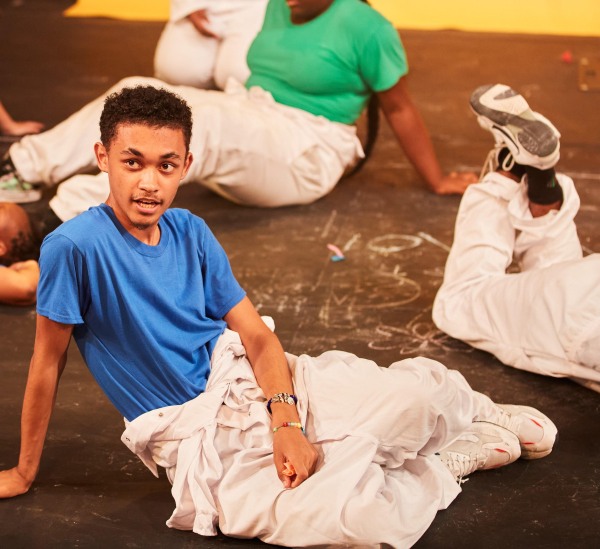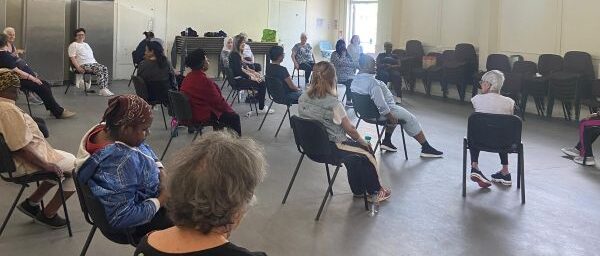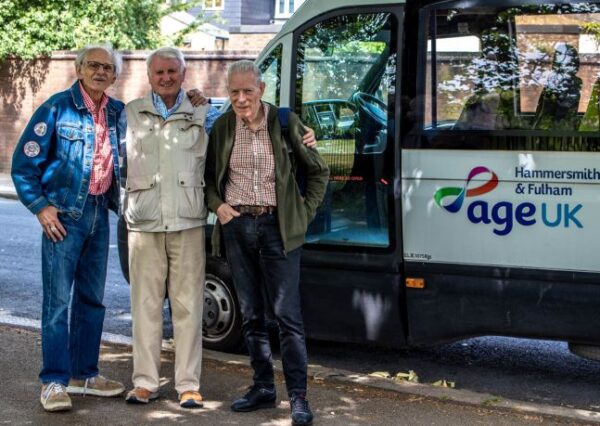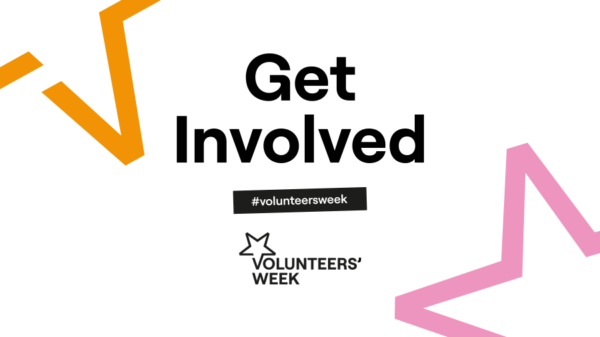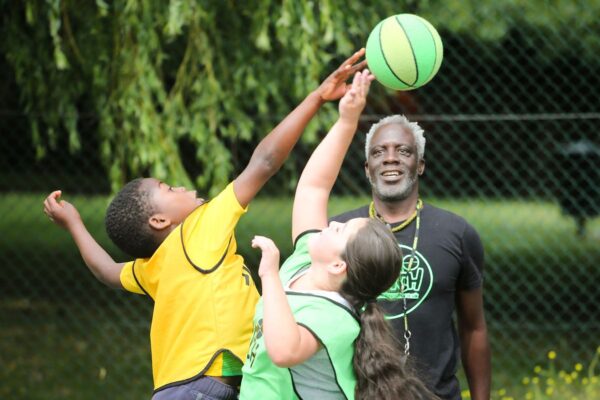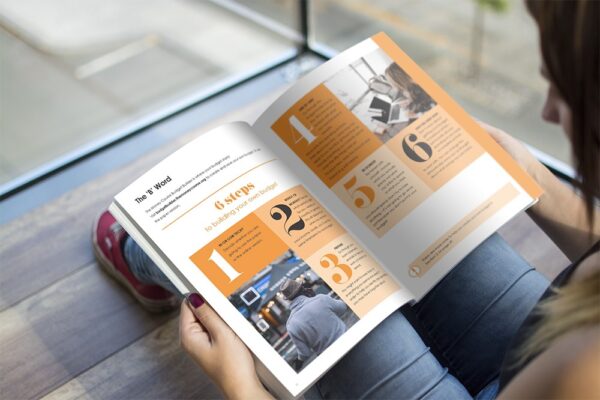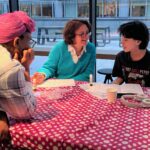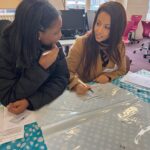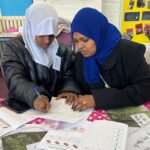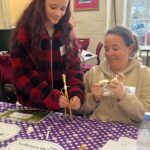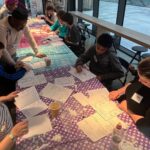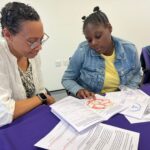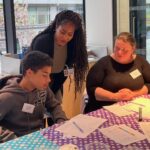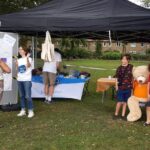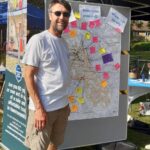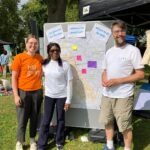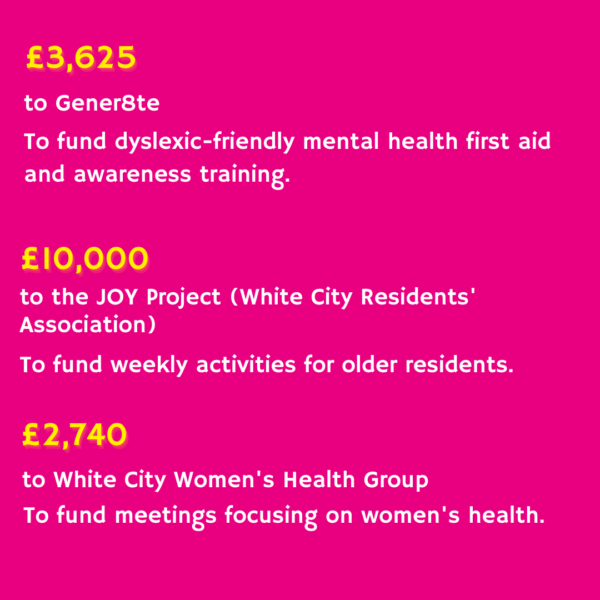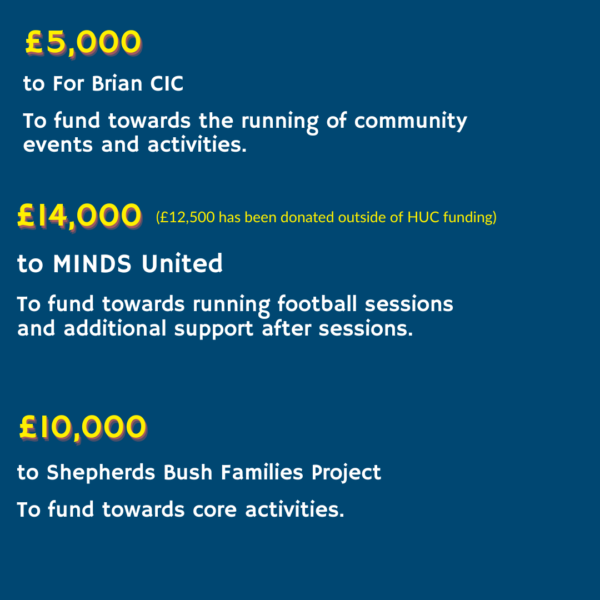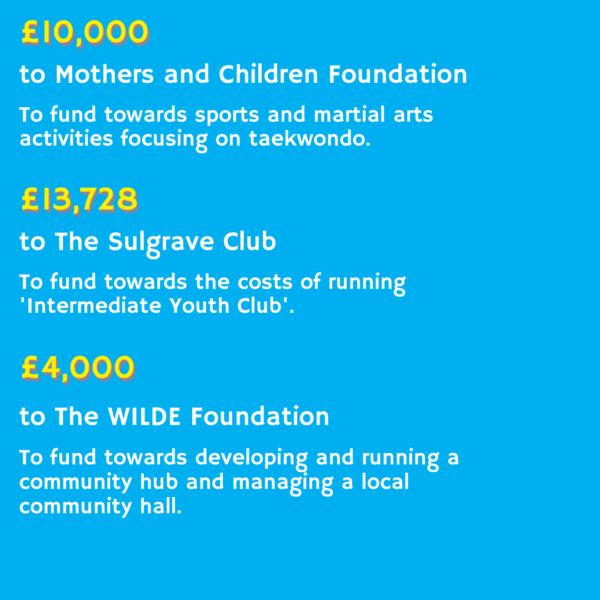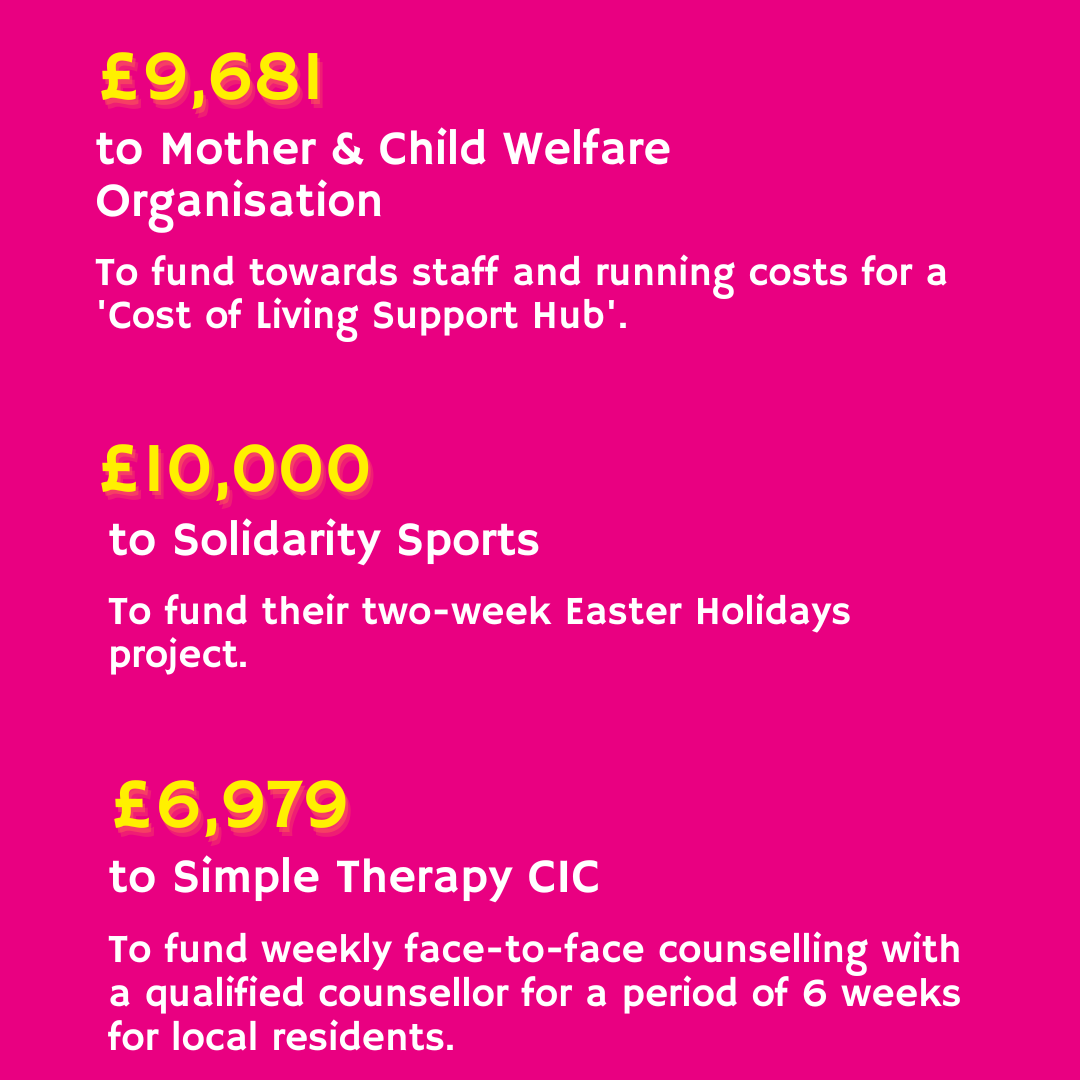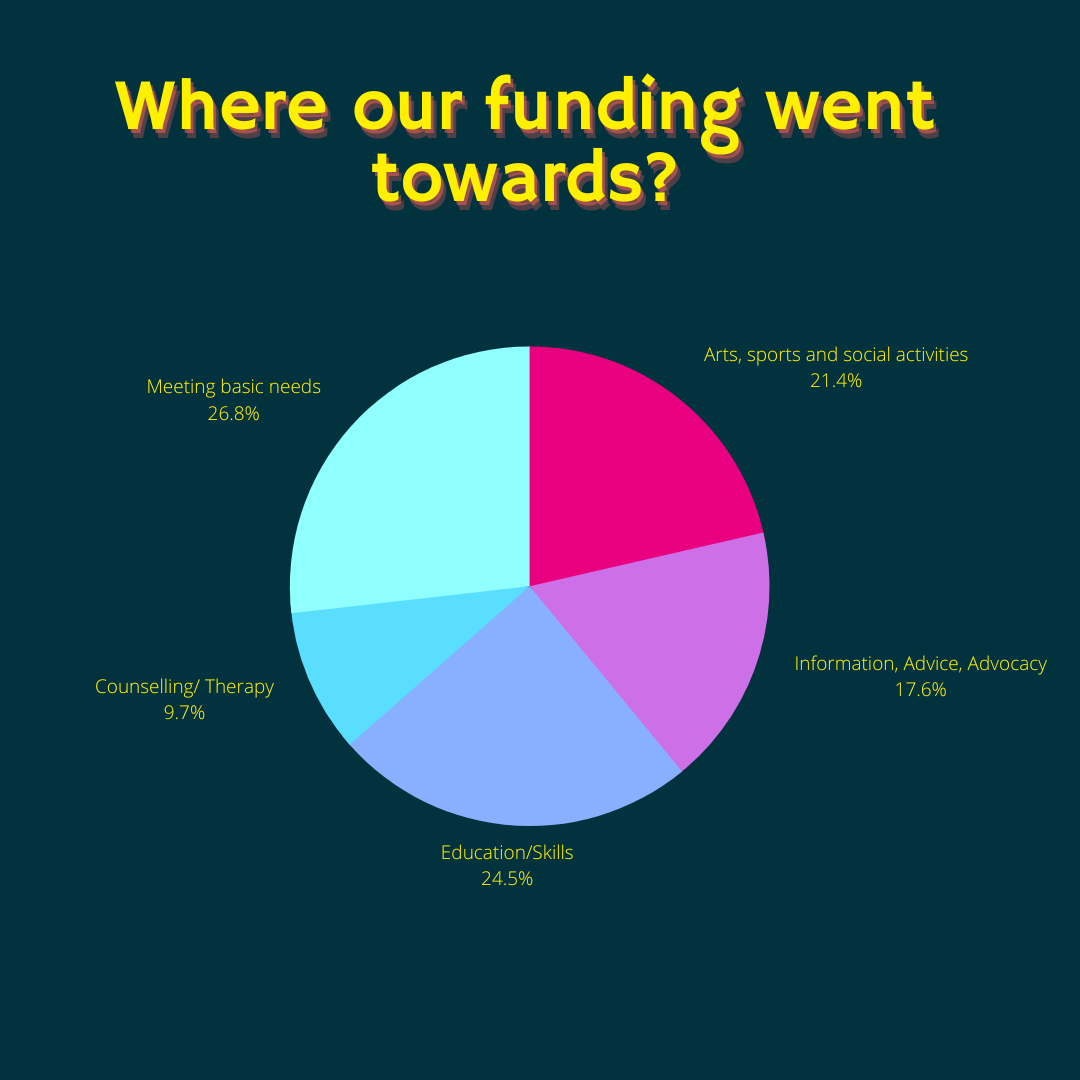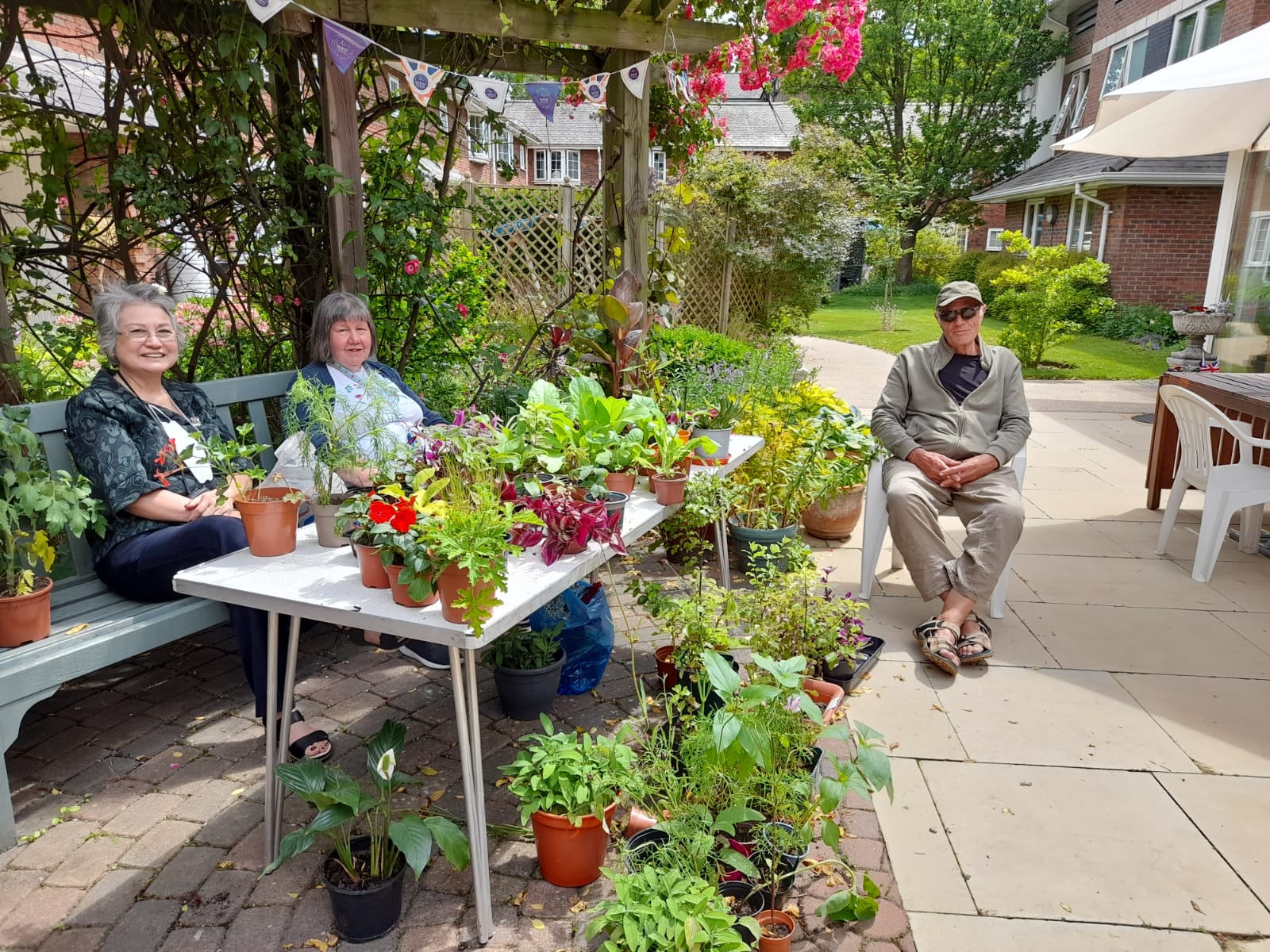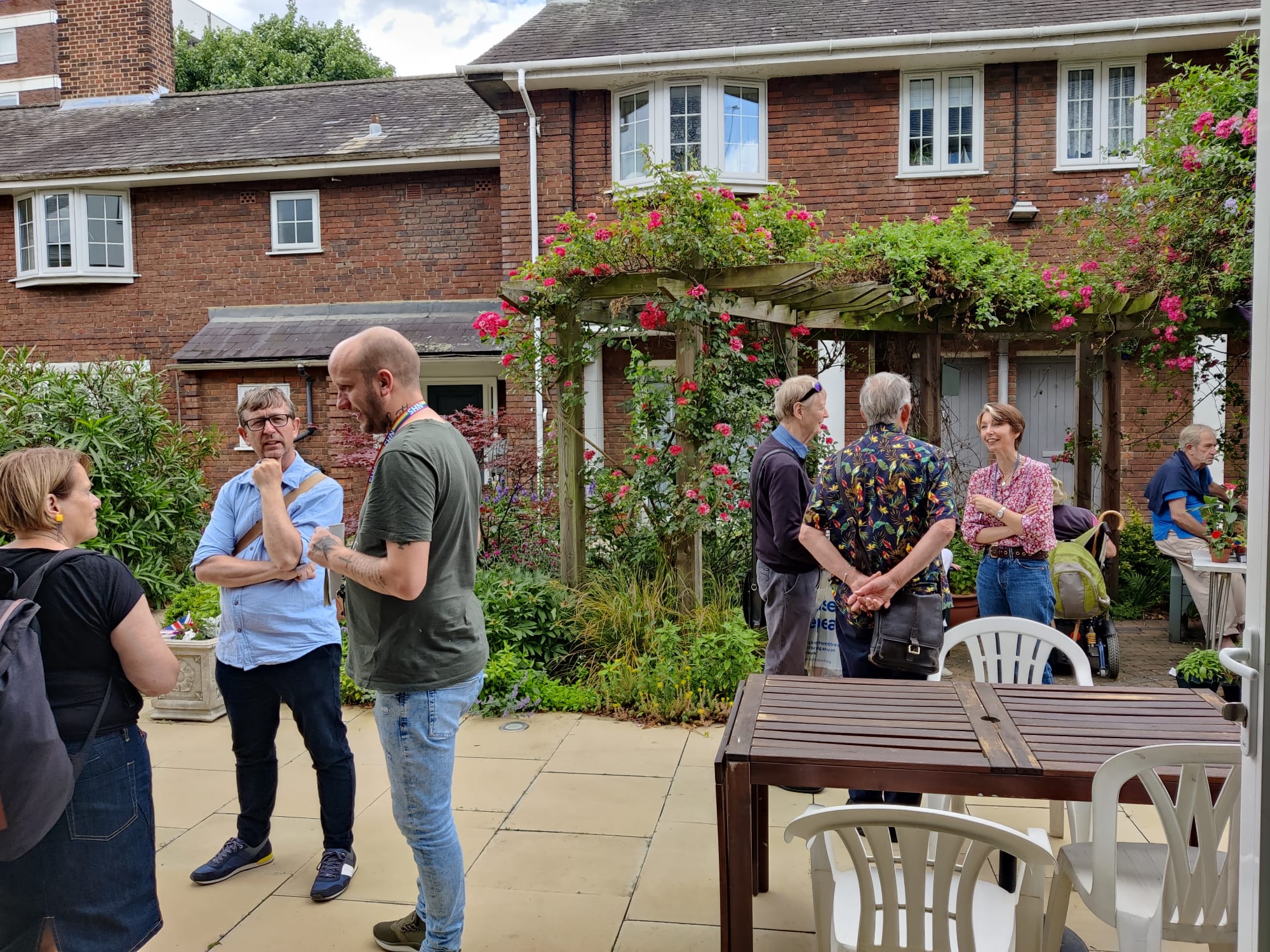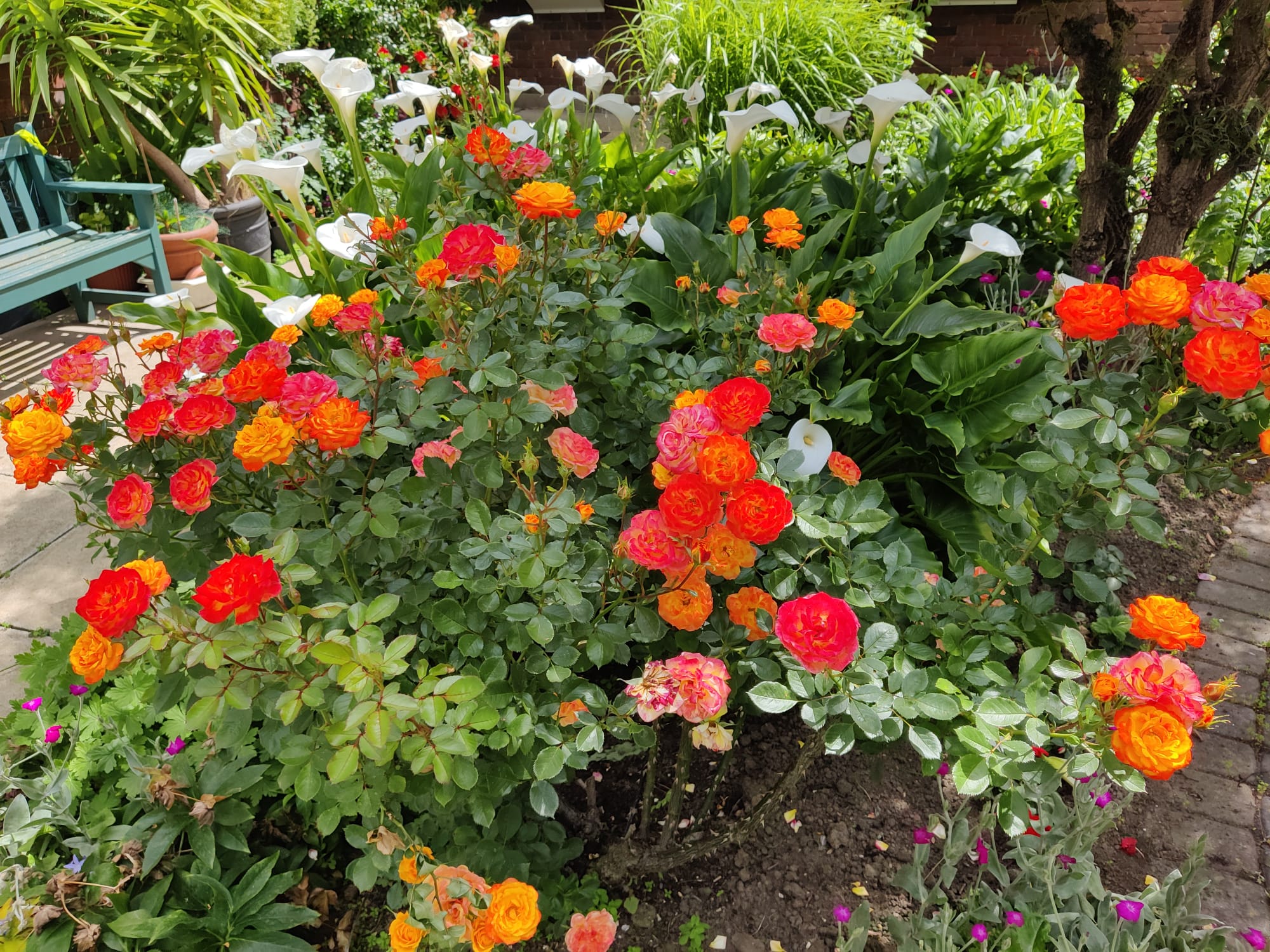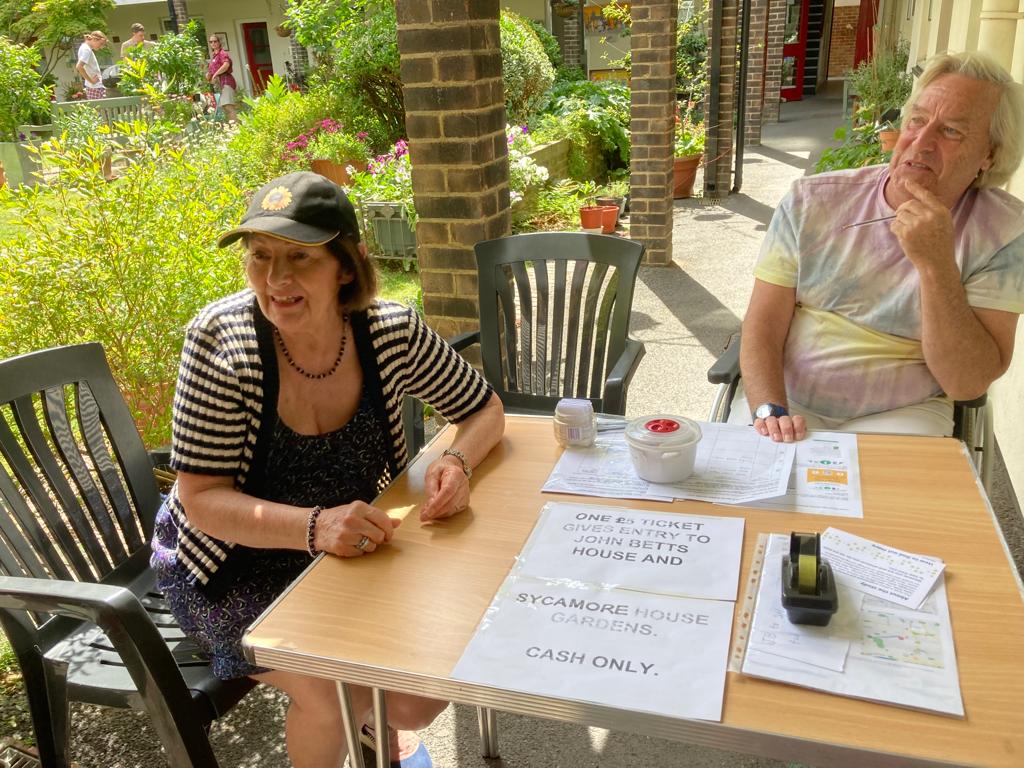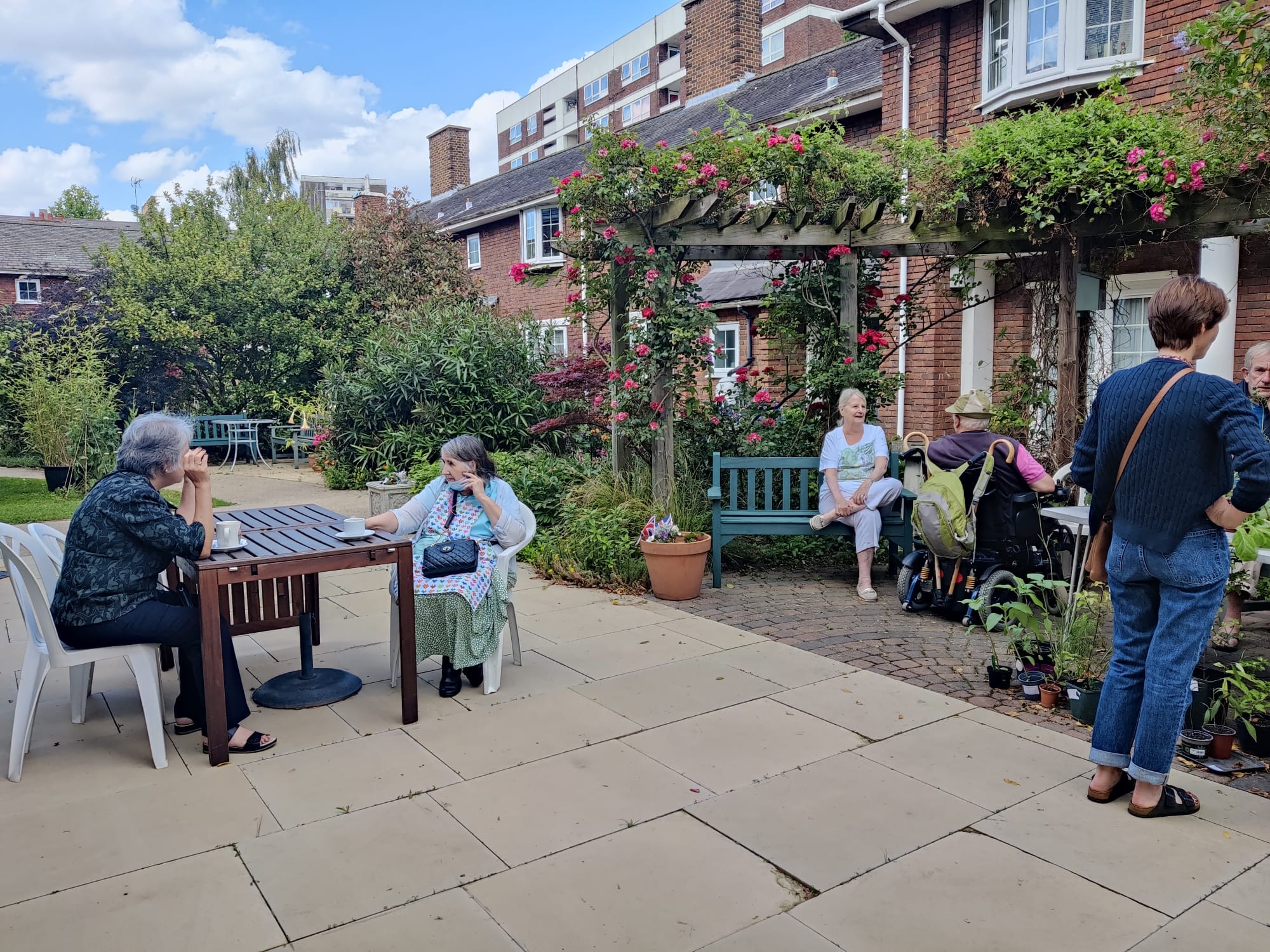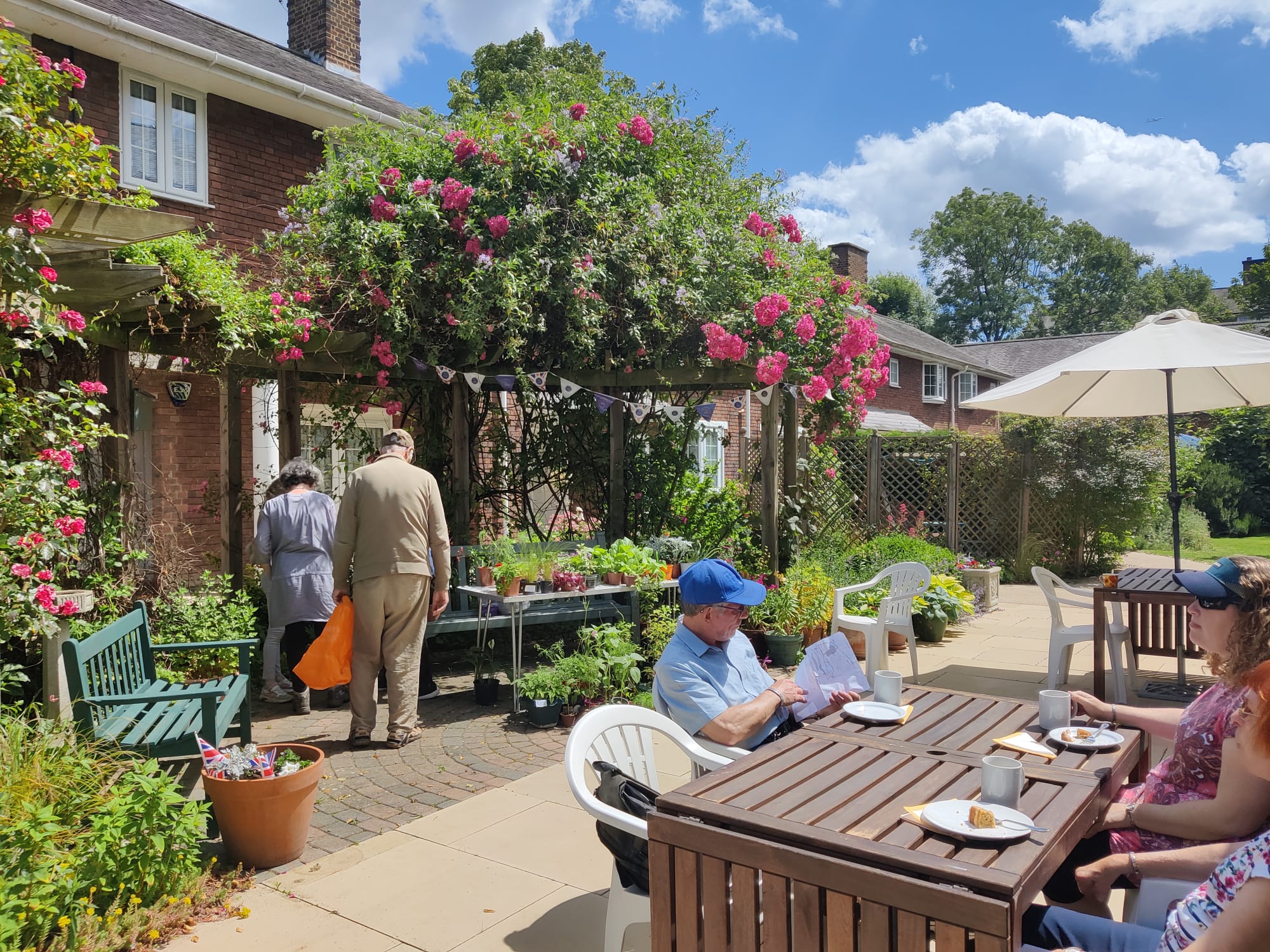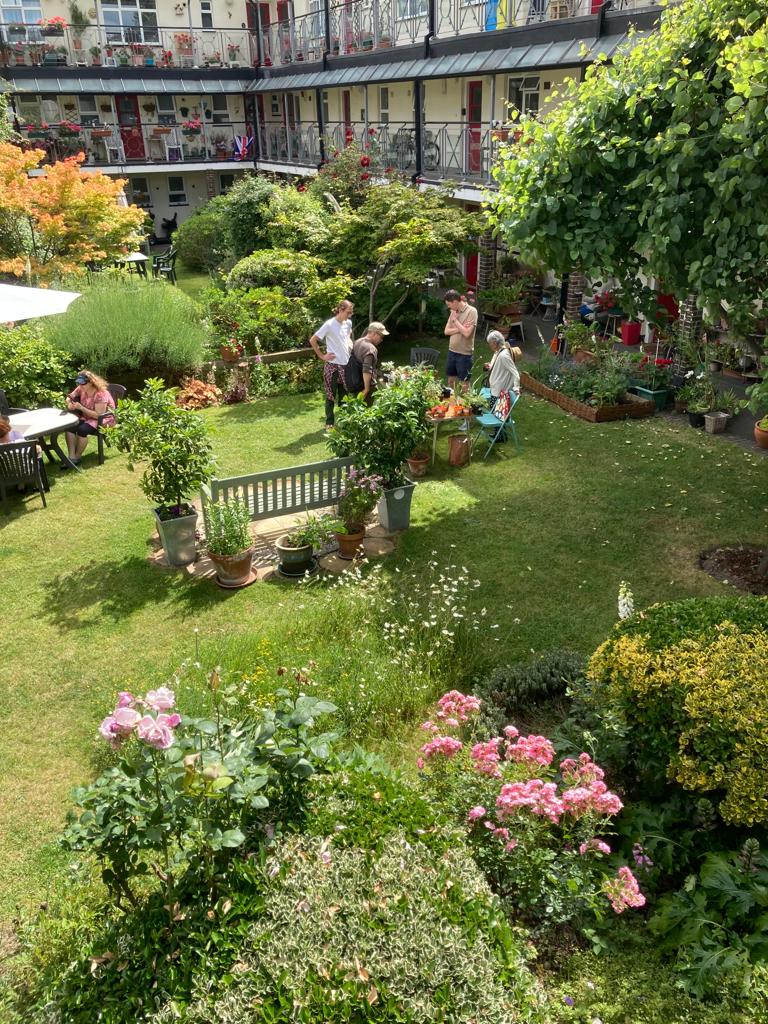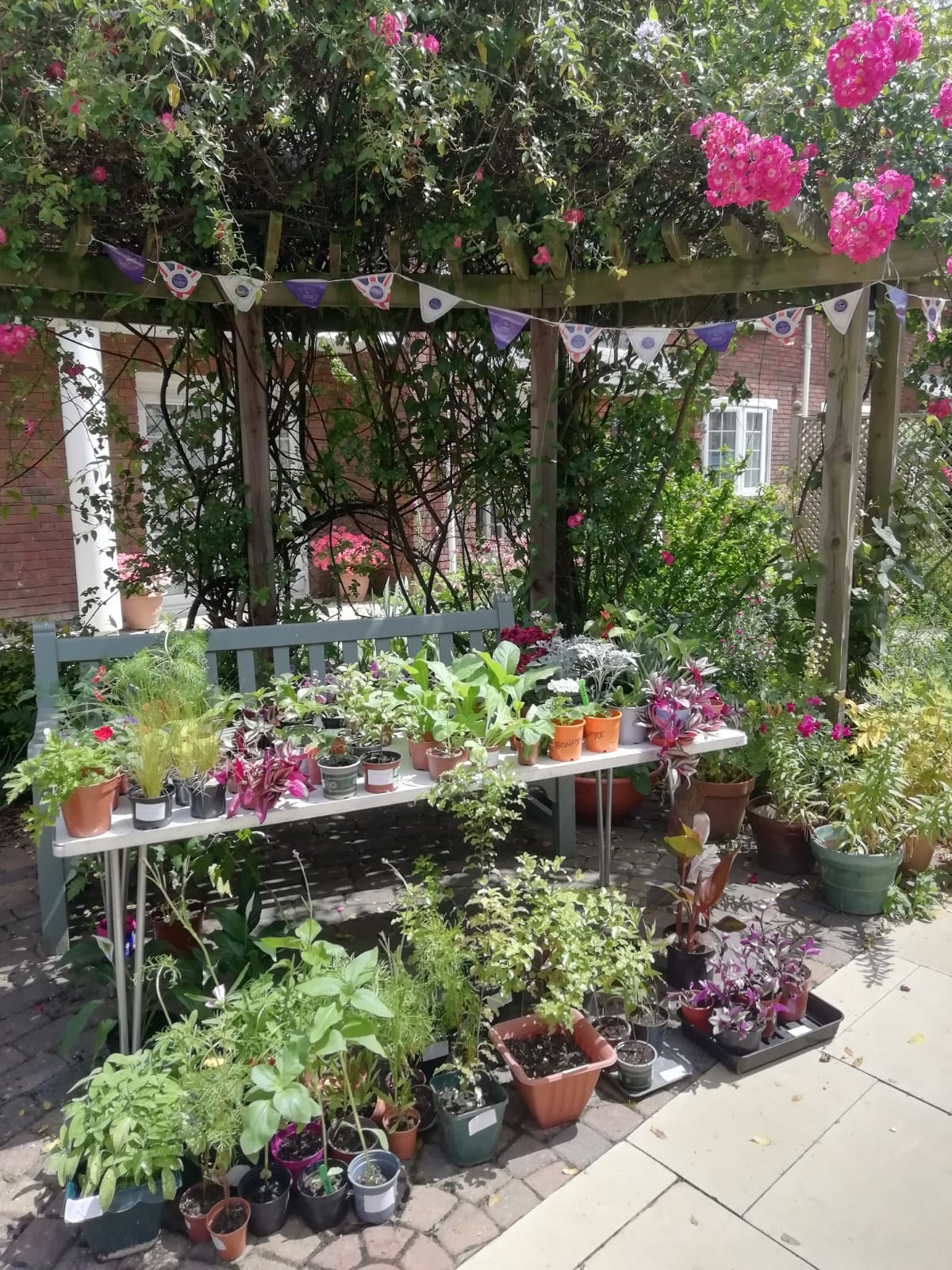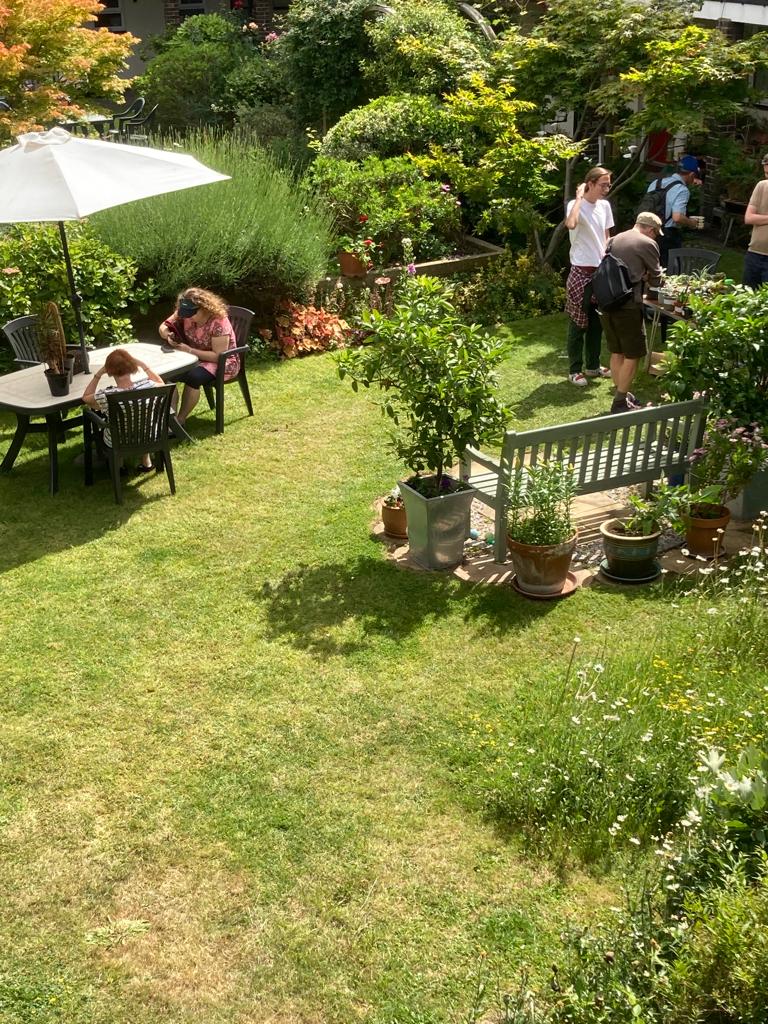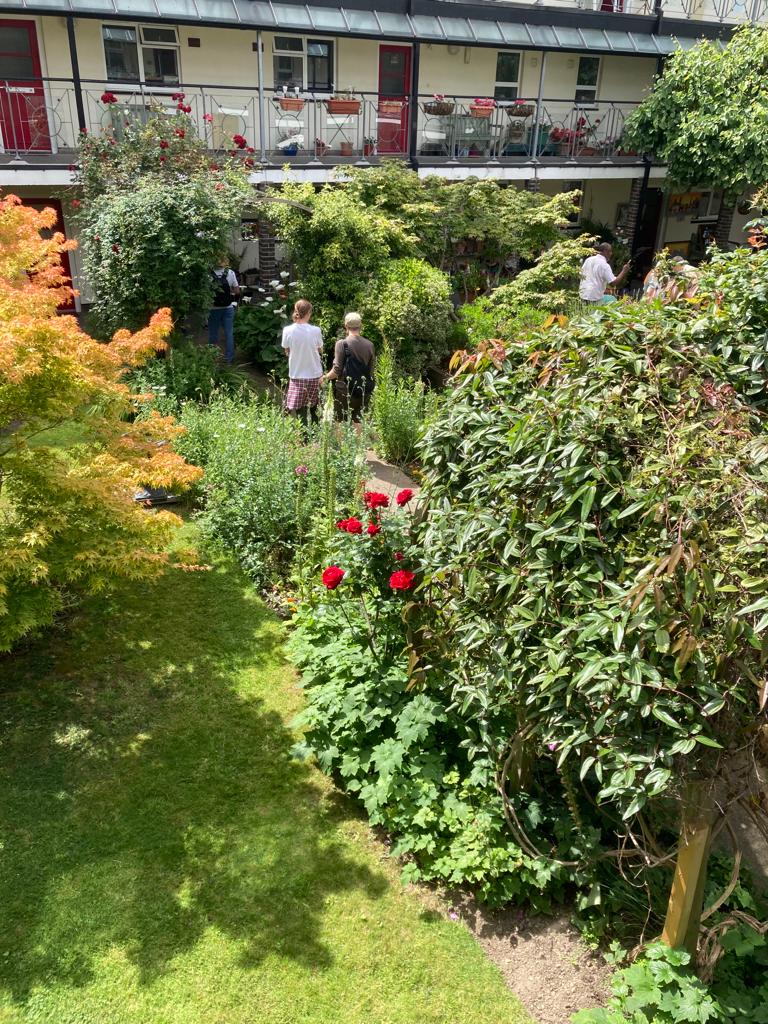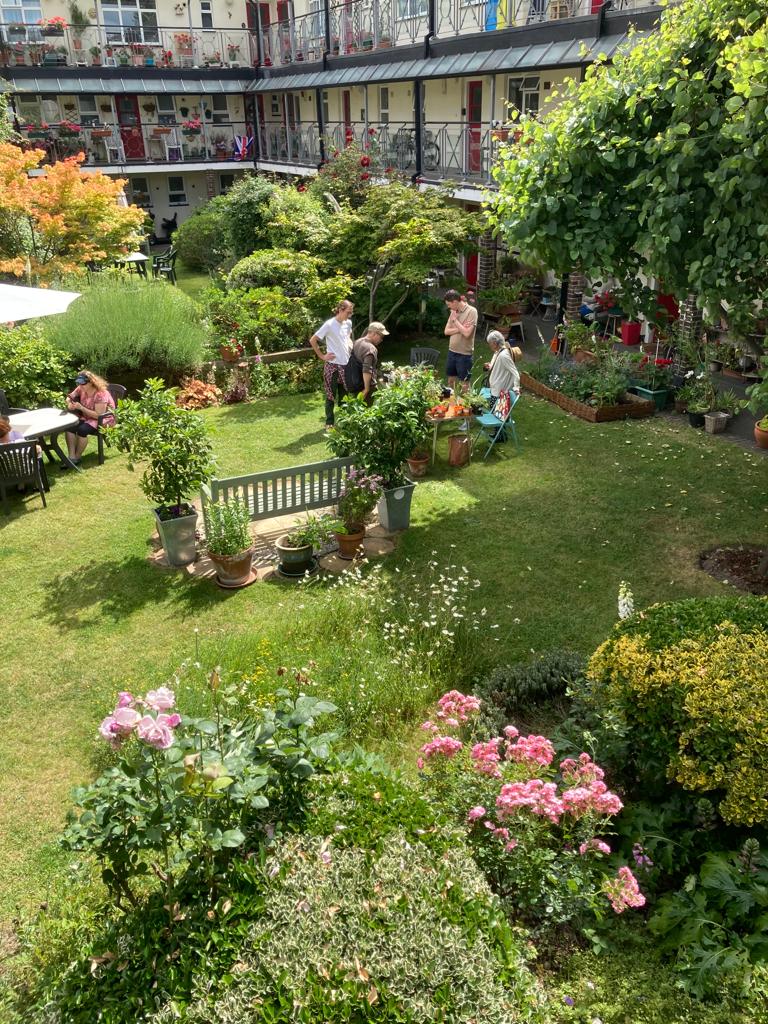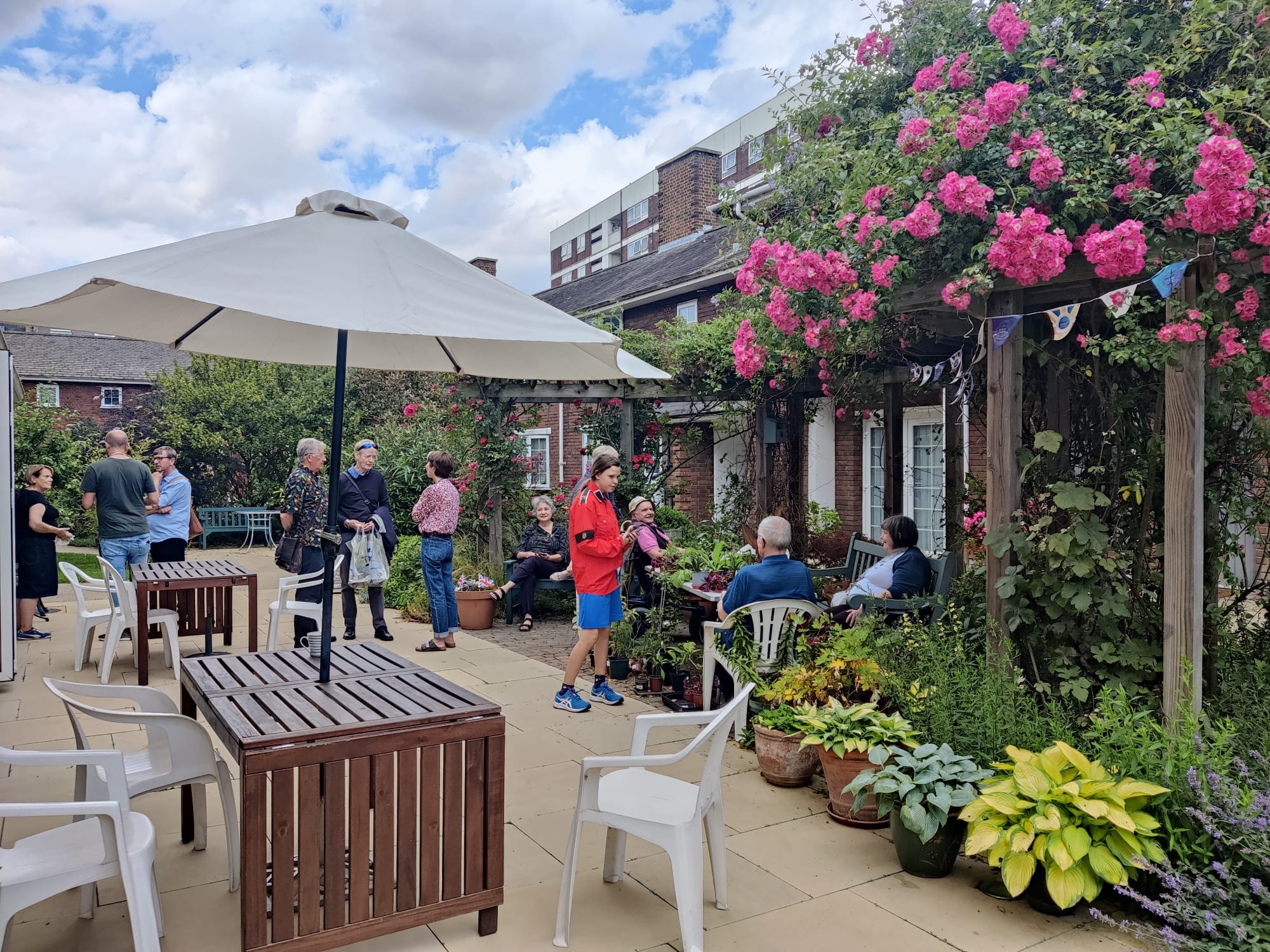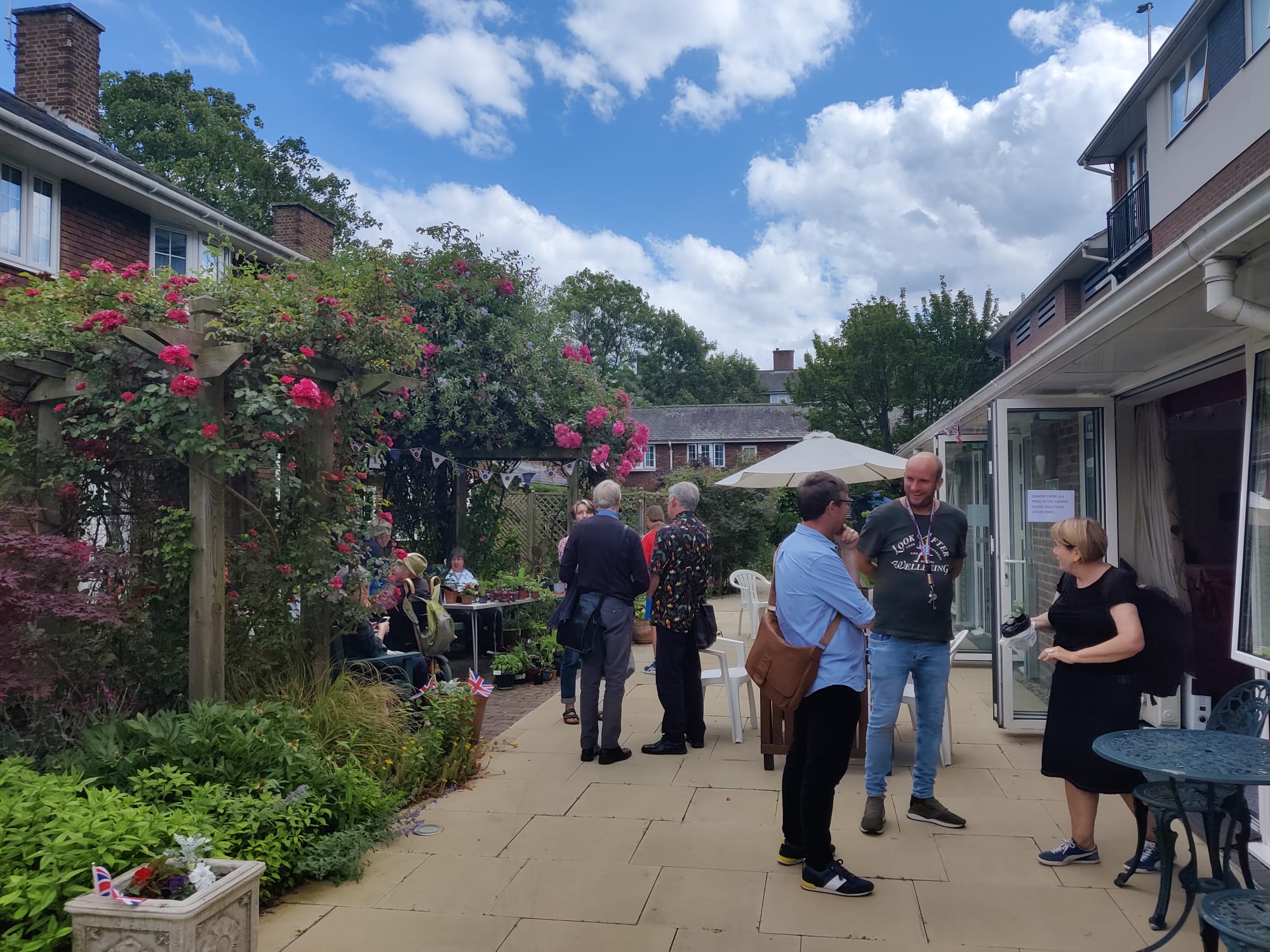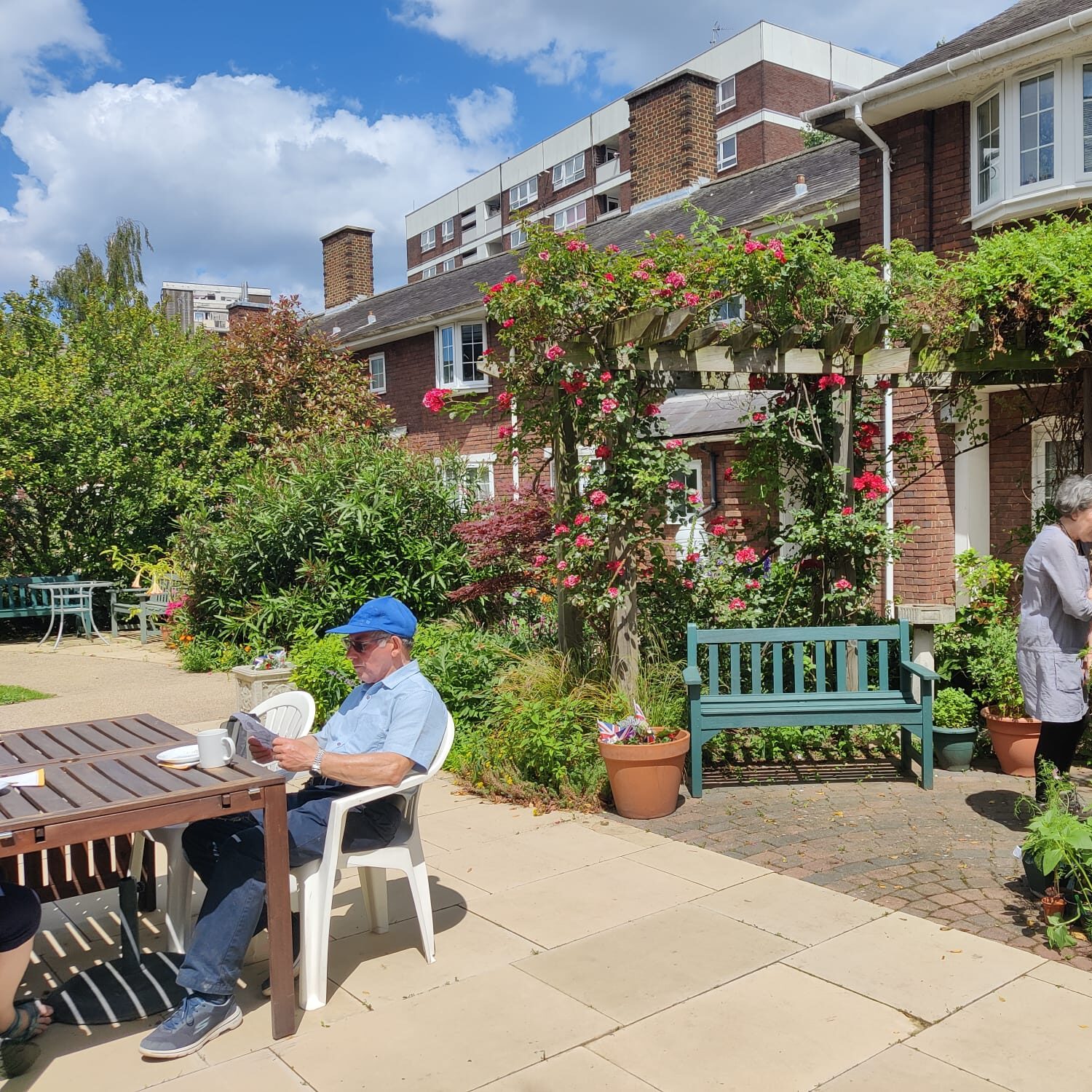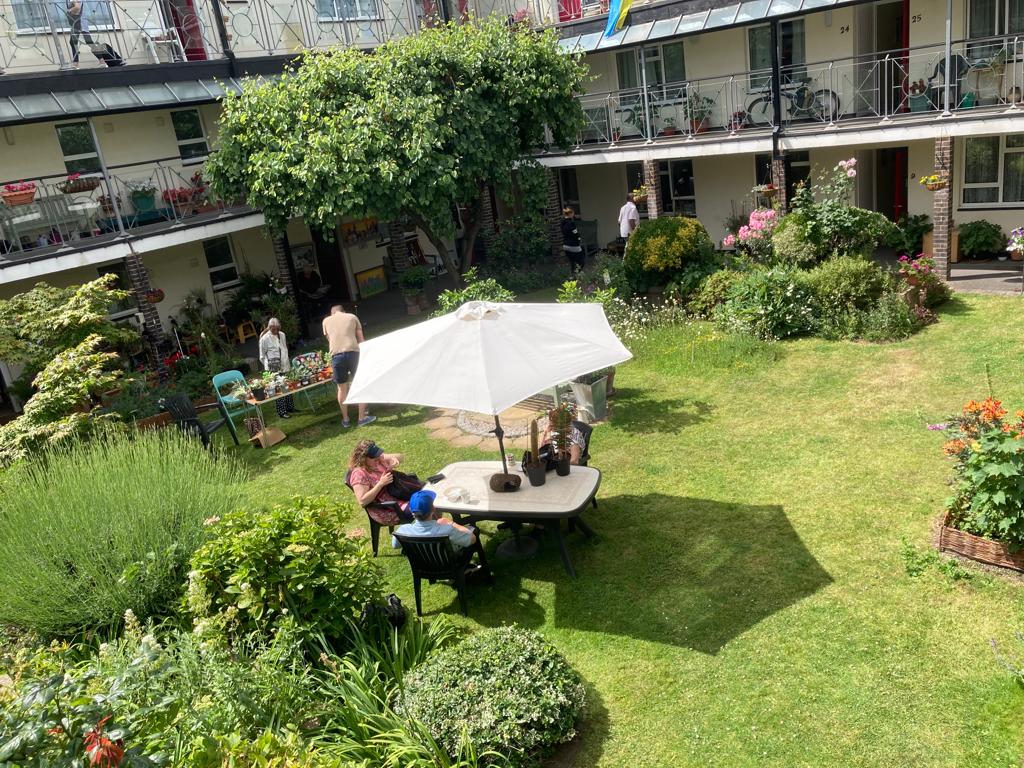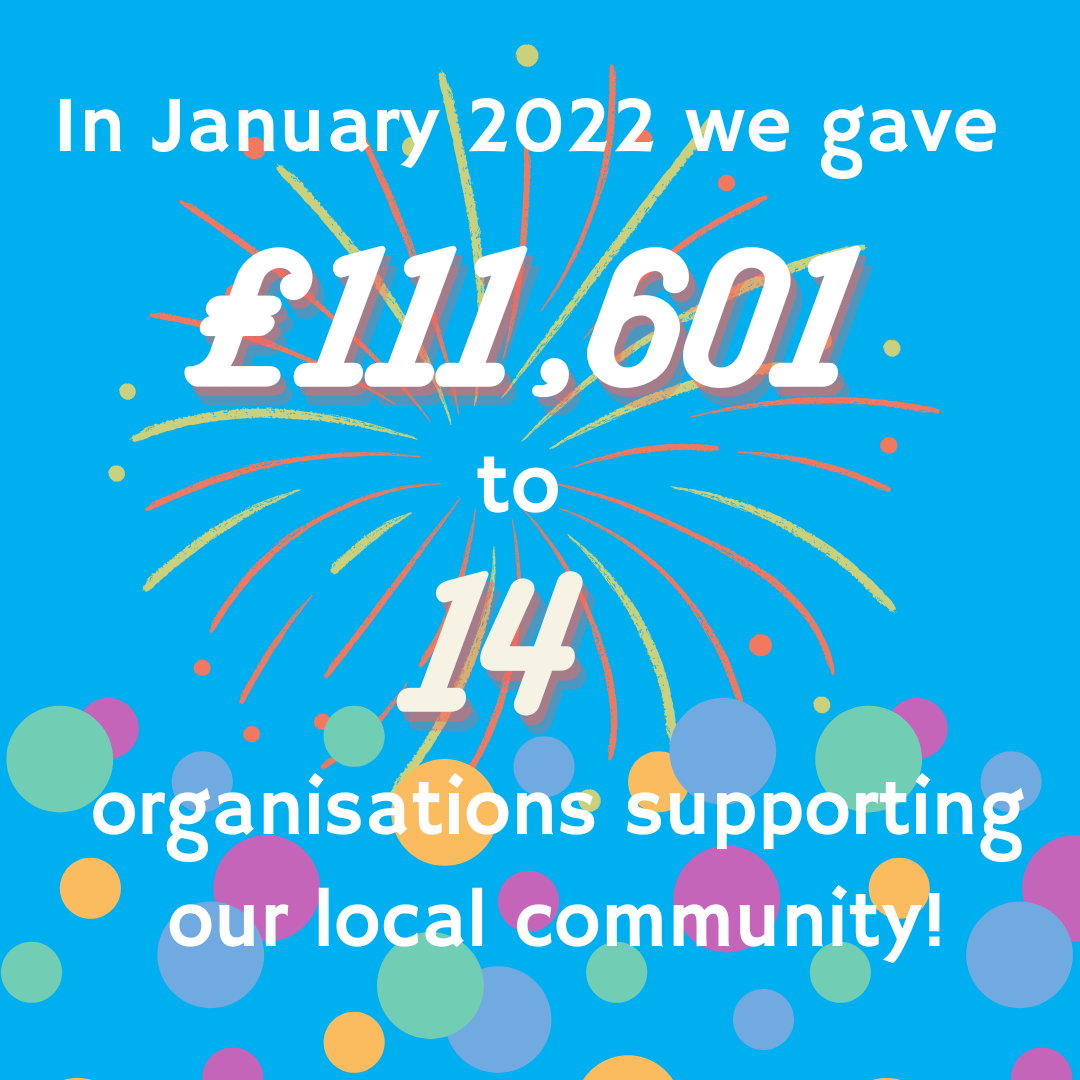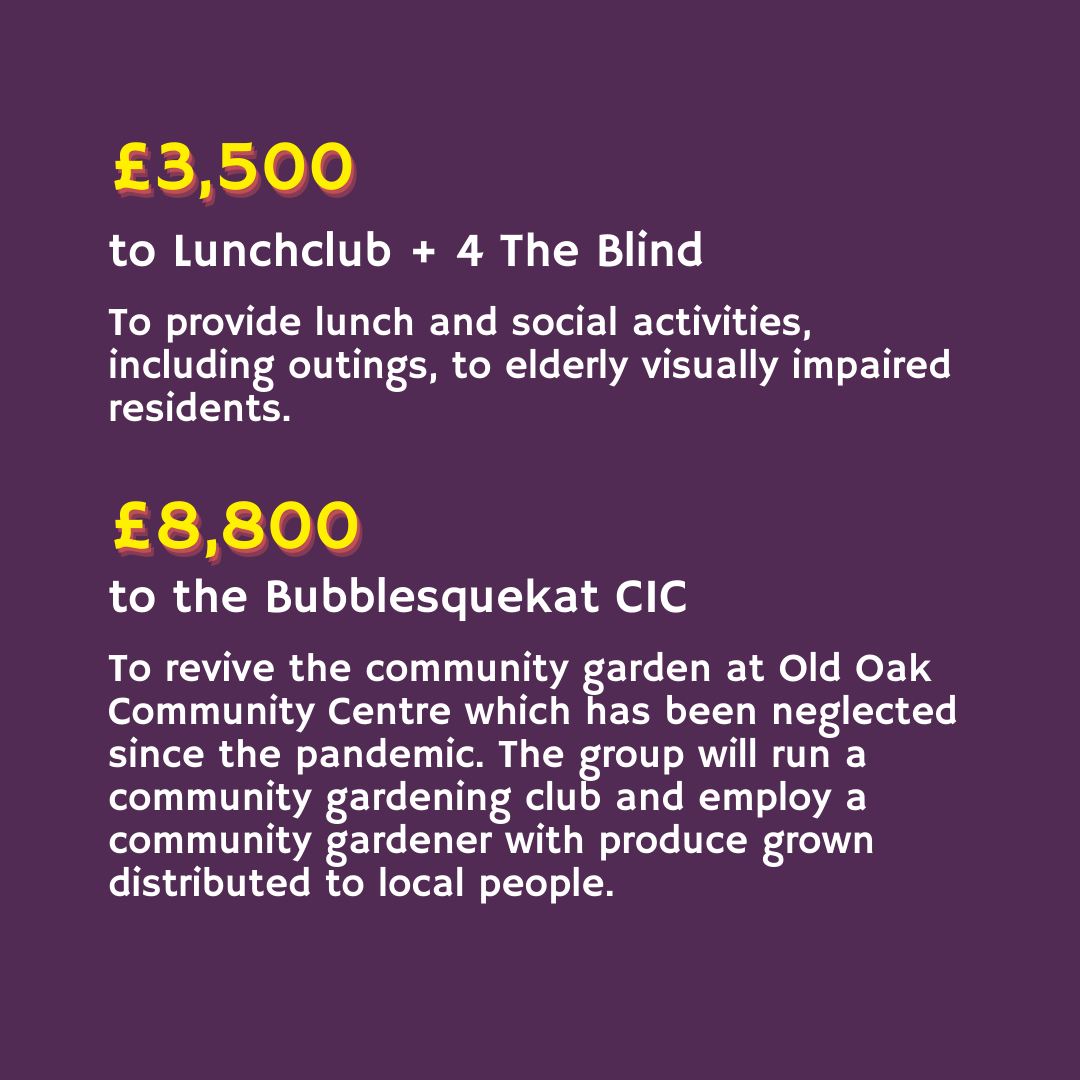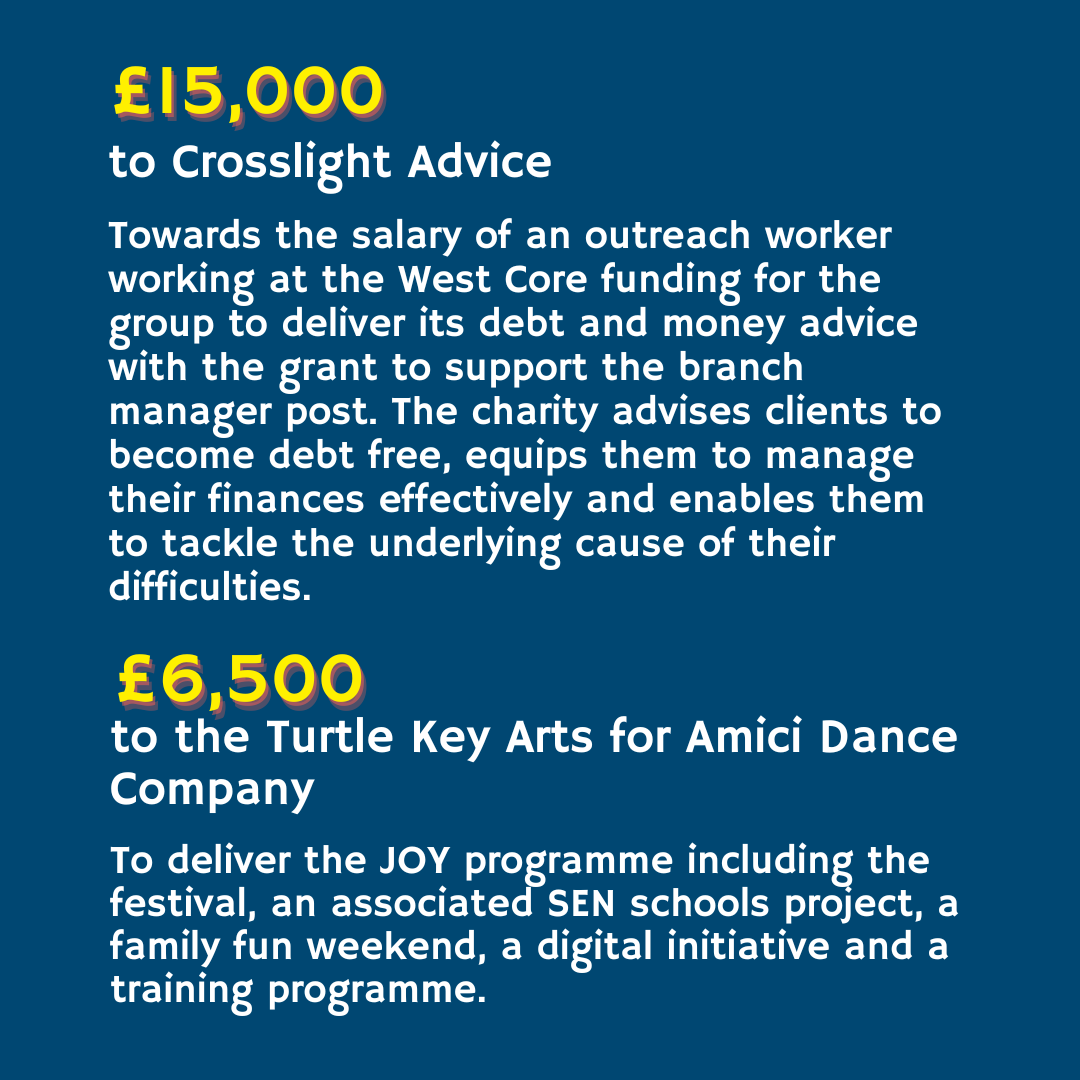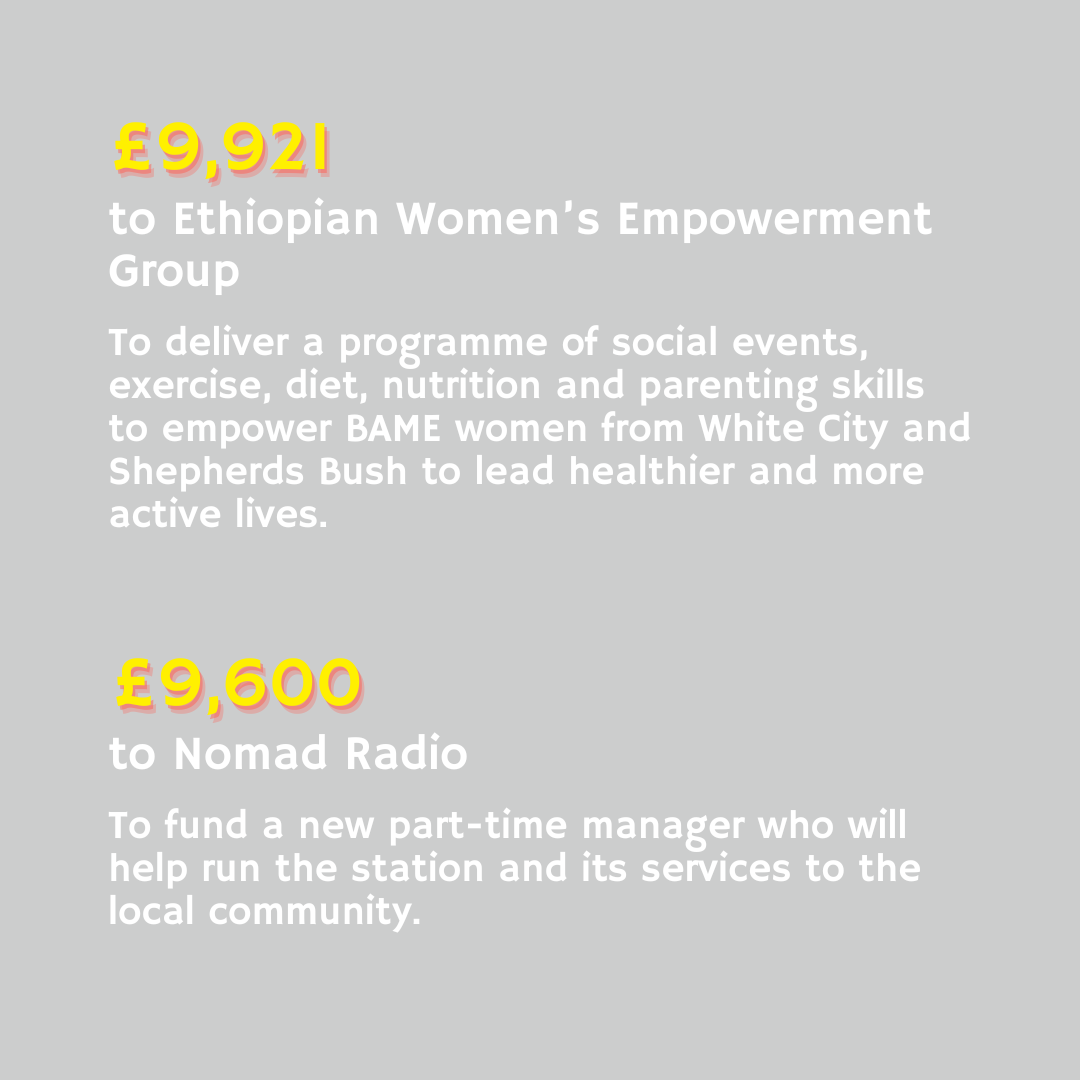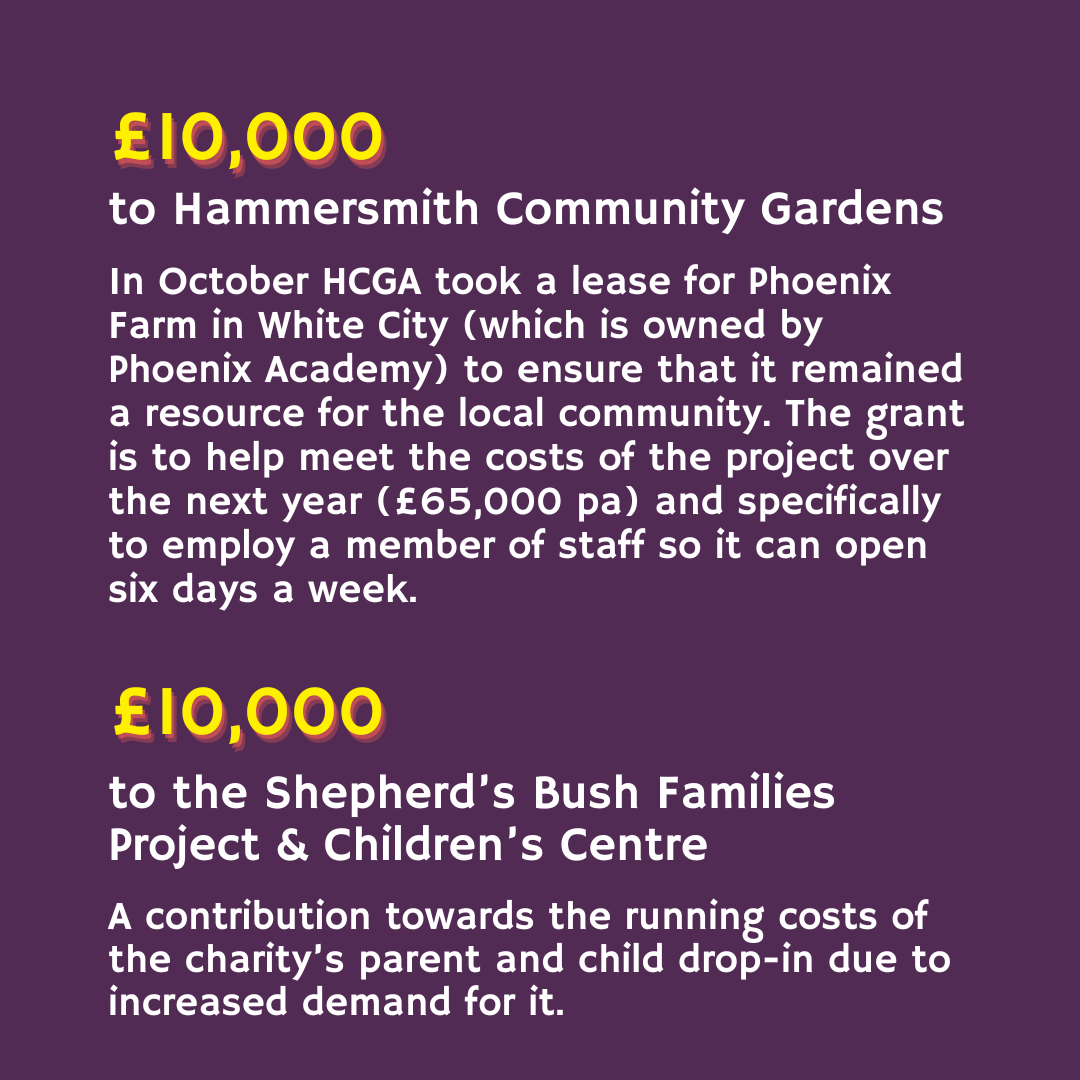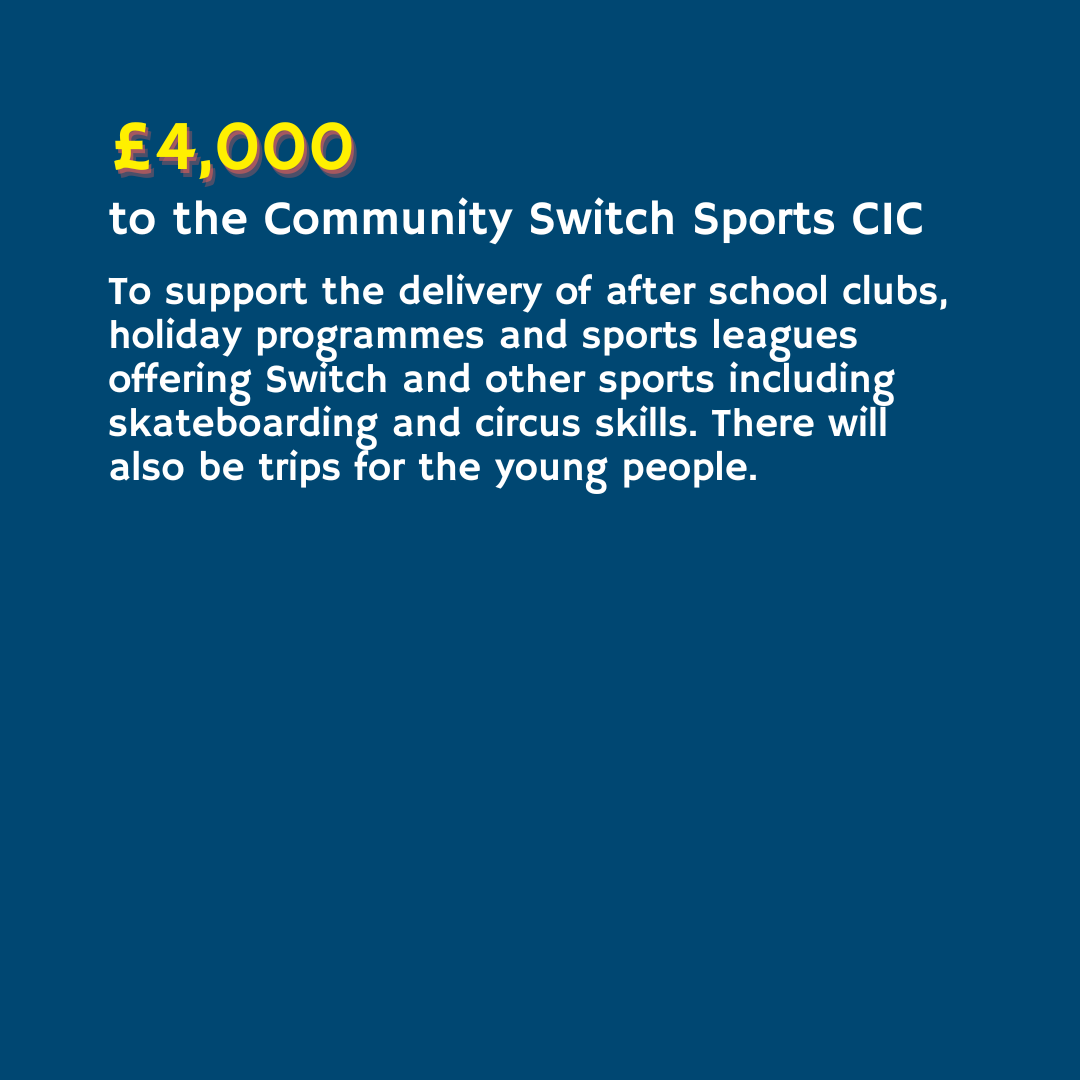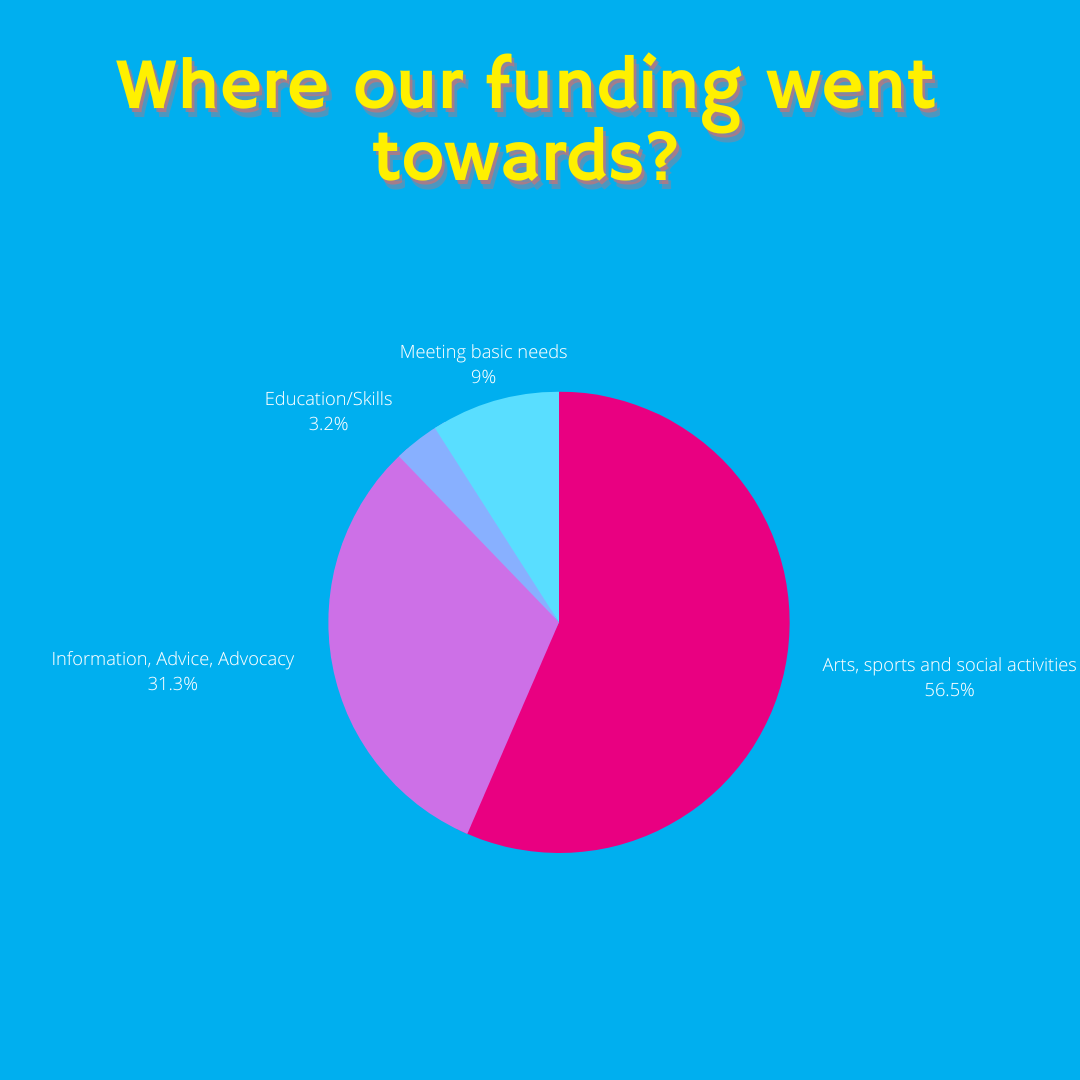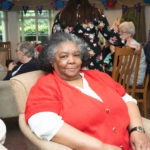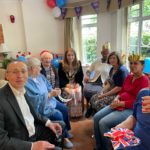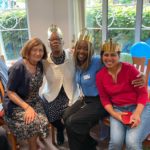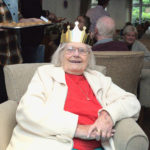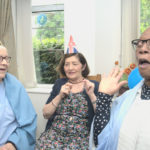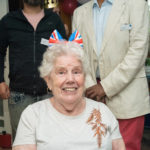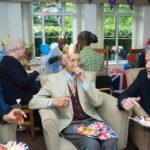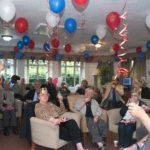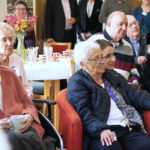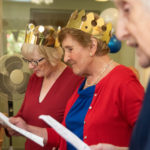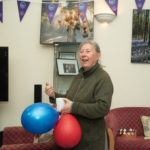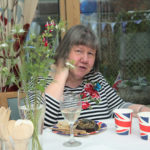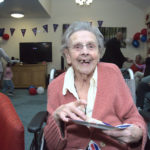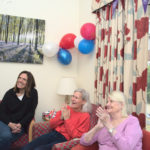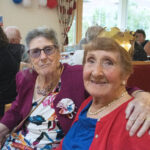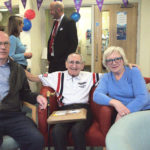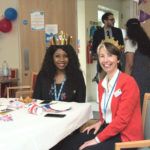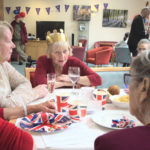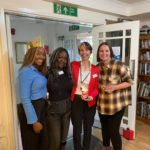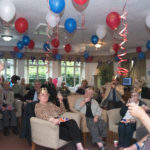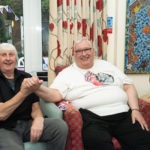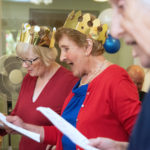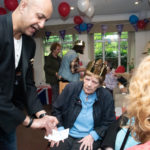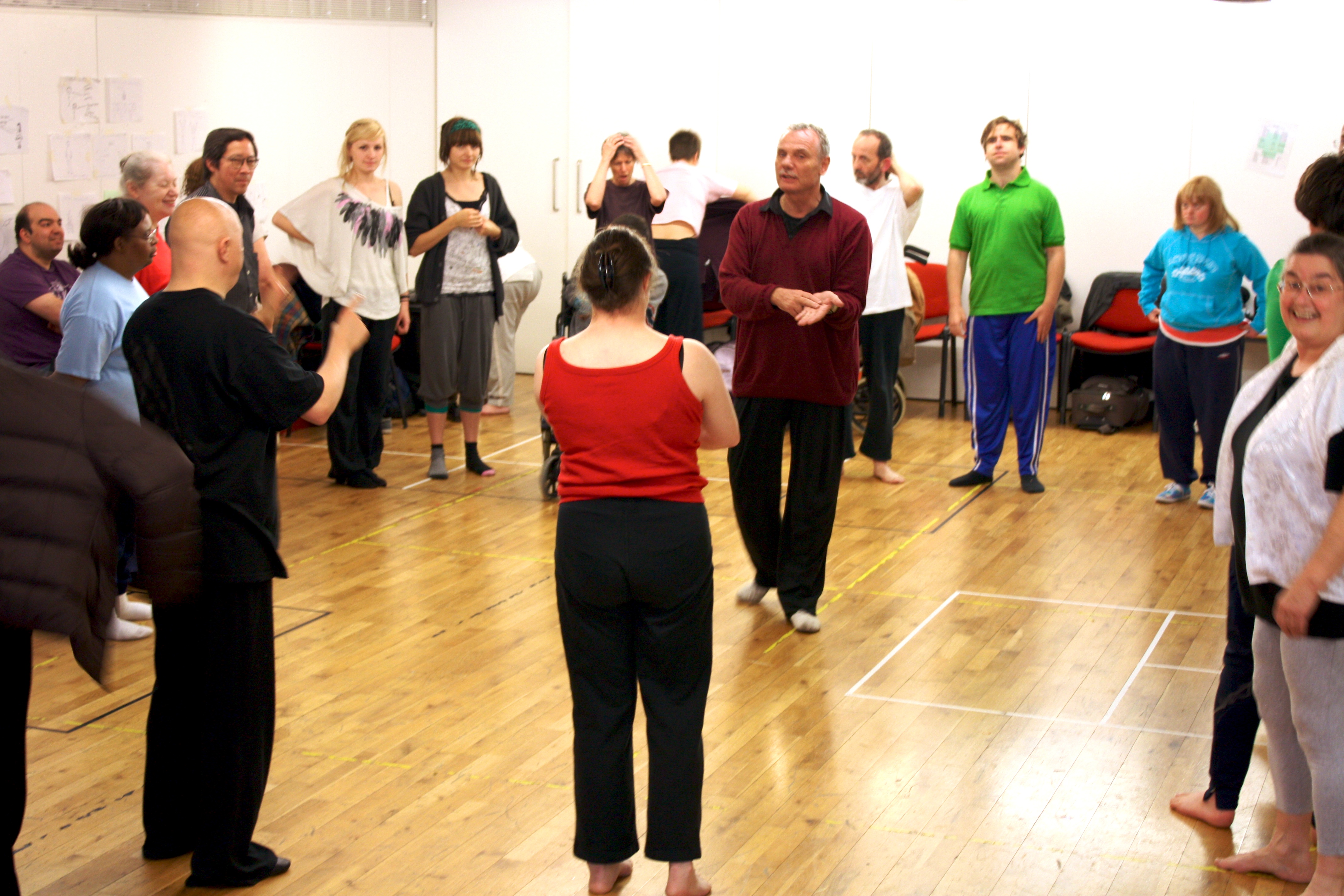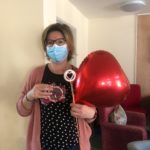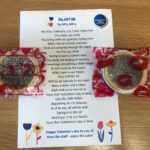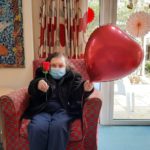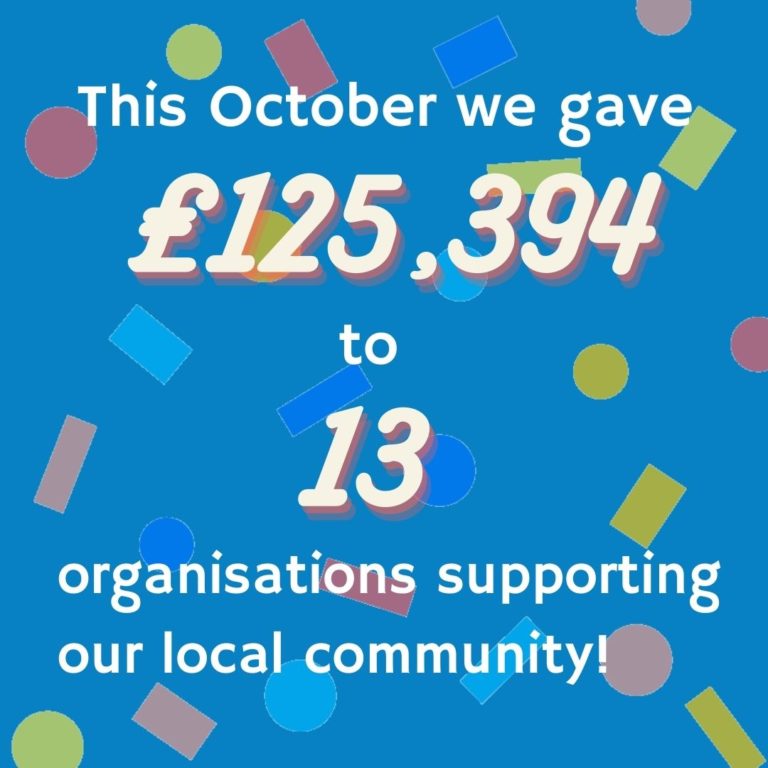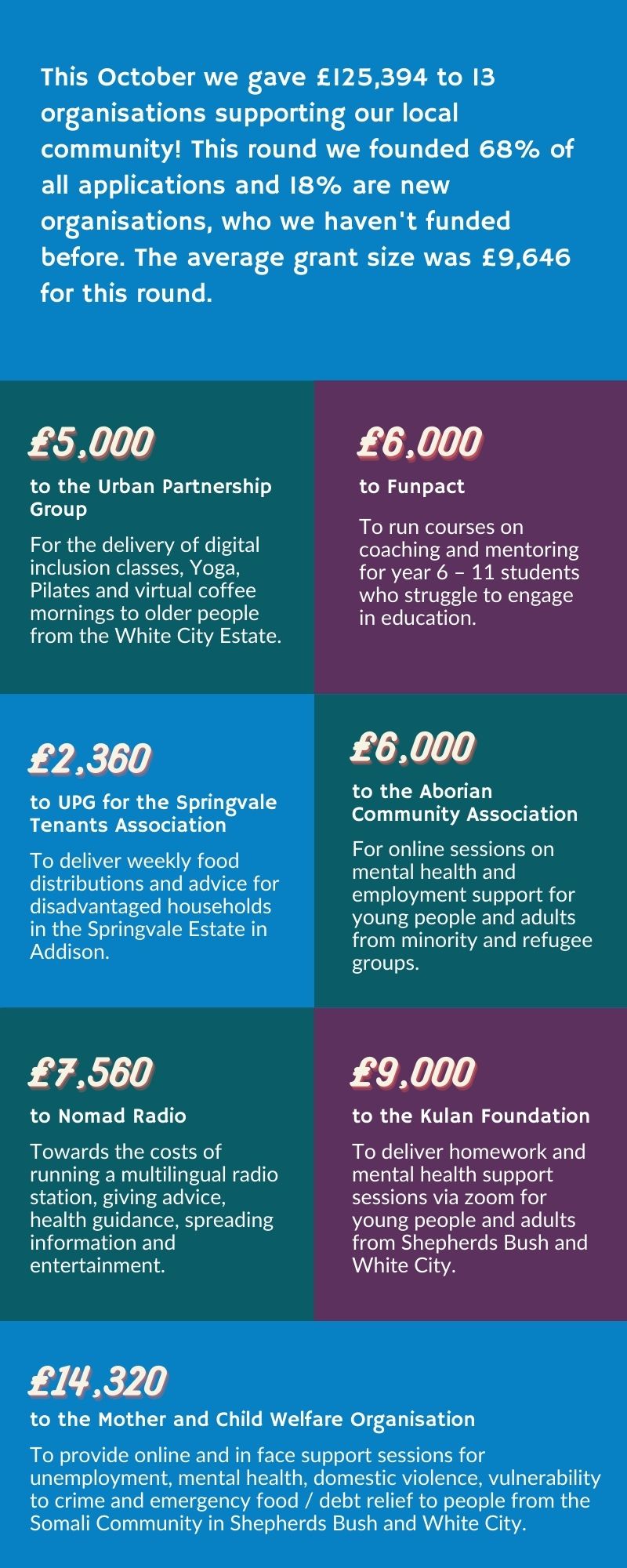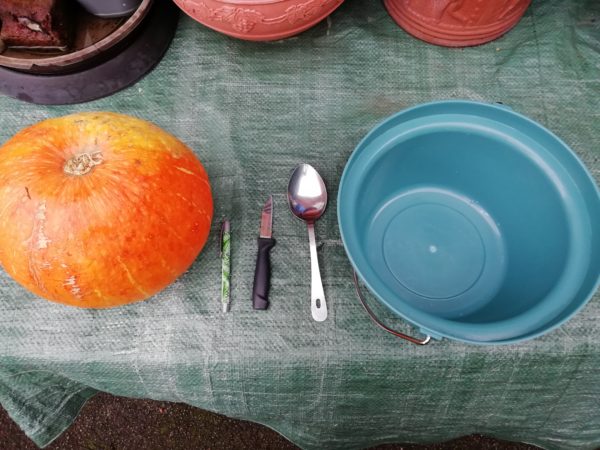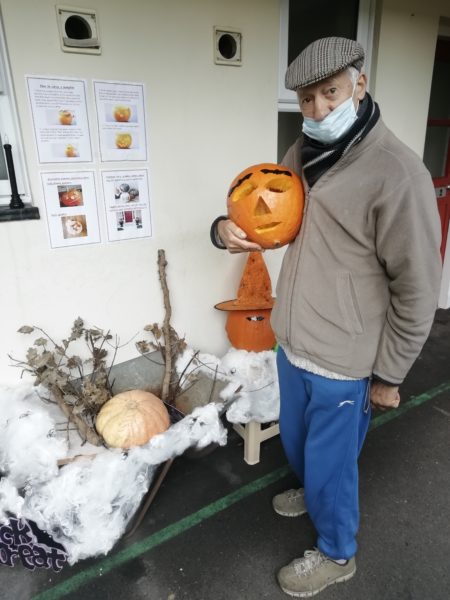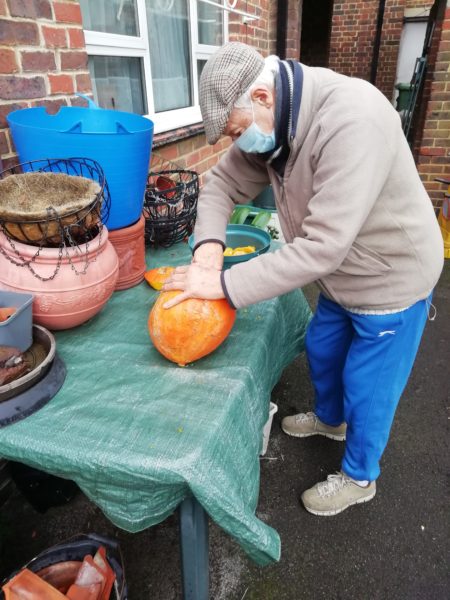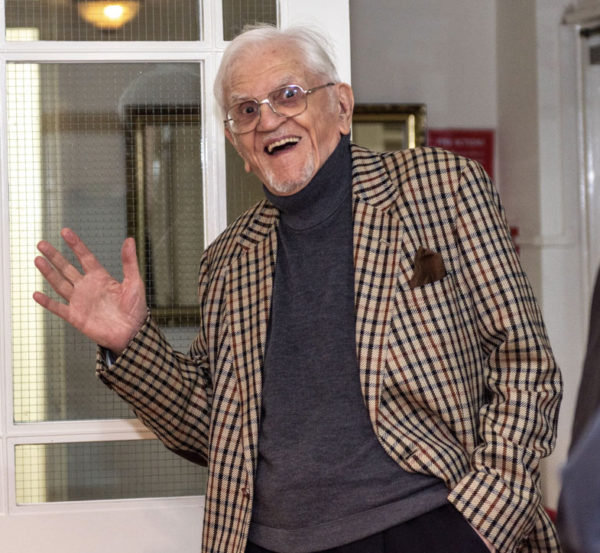
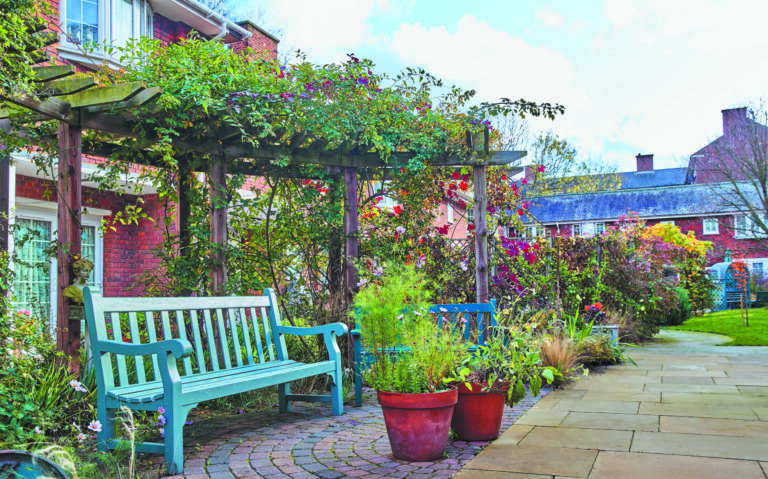
Want to find out more about living in an almshouse?
If you think you might be eligible, we'd be happy to give you a tour of our almshouses and share what it's like to live here.
Read More ...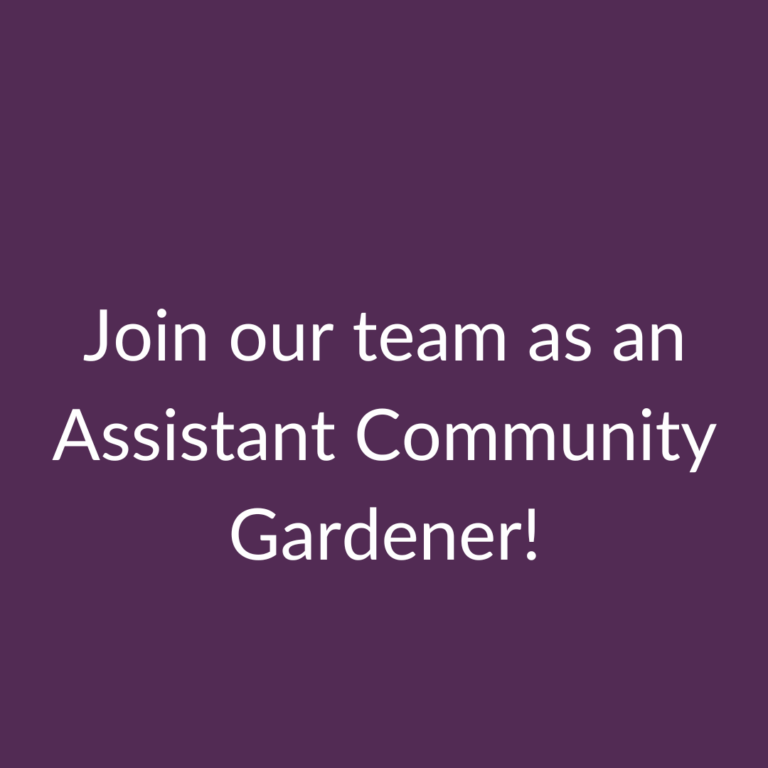
Vacancy for Assistant Community Gardener
Join our team in Hammersmith.
Assistant Community Gardener
Salary: £28K (pro rata) depending on experience and generous benefits package
Appointment Type: Permanent
Hours: 4 days per week/ 30 hrs per week
Location: Hammersmith
About us
Hammersmith United Charities was founded in 1618 and makes grants to community organisations helping local people address complex social issues such as poverty, inequality or mental ill health. We also have two almshouses in Hammersmith, for older members of our community. Over the years our gardens have been developed to ensure they are not only beautiful, but creative spaces where our residents can get involved if they choose or simply relax and enjoy. The gardens are based on organic principles. They include plants that attract butterflies, bees and birds, and plants that are stimulating in colour, aroma and texture. Residents can tend to their own hanging baskets, pots and allotments and get involved in various gardening projects and workshops that are run to help and support residents in engaging with the gardens. Our gardens have won many awards at the London Garden Society competition, which are judged according to Royal Horticultural Society guidelines.
About you
This is an exciting opportunity for a hardworking, professional gardener to continue the fantastic achievements of previous gardeners working with our Community Gardener. We are looking for someone who has demonstratable knowledge and experience, with the relevant horticultural qualifications/experience to support this. Knowledge and experience in a range of gardening disciplines/techniques is essential as well as an open mind to continuous development and learning new skills.
The successful applicant must be self-motivated with the ability to perform their tasks to achieve the highest standards. We are looking for someone with imagination and flair, an understanding of community organisations who has good communication skills, a caring disposition who is empathetic, with an unrelenting capacity to encourage and support our residents.
Experience in a similar role or position is desirable and a relevant horticultural qualification along with an eye for detail, the ability to take responsibility, act decisively and the ability to turn your hand to most tasks, is essential.
This is a physically demanding role, working outside all year round, in all weathers. The role involves carrying out tasks requiring high levels of manual dexterity, as well as physically demanding tasks, such as trimming hedges, shovelling, digging, mulching, lifting and carrying.
The successful applicant will be required to undertake an enhanced DBS Check.
We value and respect all the differences that make us who we are, including: age, cultural background, disability and mental health, ethnicity and race, gender, gender identity and expression, sexual orientation, and social background.
How to Apply
If you have any questions or are unsure about whether this is for you, please feel free to contact Victoria Cripps on 07909 203 924 for an informal chat.
Please complete the Application Form and send to lisa.dasilva@hamunitedcharities.com along with your CV by midday on 9th January 2026.
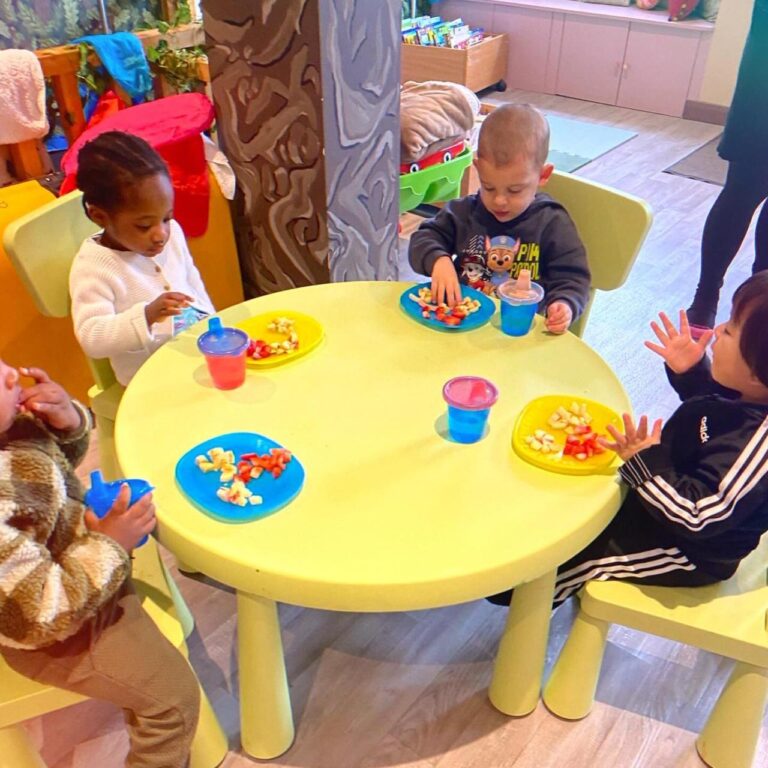
Solidarity Sports
Helping traumatised children to have a better childhood
Solidarity Sports works with more than 100 children in West London, most of whom have been referred by children’s services. Jasmine, Fundraising Coordinator at Solidarity Sports, explains, “These are children who have often been stripped of their childhood. They’ve gone through unimaginable things. We’ve had children who have experienced neglect and sexual abuse, who have fled war-torn countries, who have parents who are in prison, or who were born into homelessness.
“They’ve sometimes grown up in an environment where they’ve been completely ignored. They’ve not been taught about love or given any praise or encouragement, so they then develop this belief that they’re not really worthy of love, or that they’re not good enough, they’re not smart enough, they’re not bright enough. As a result, these children are very insecure and have very low self-worth and low self-esteem.”
Giving children a childhood
The majority of Solidarity Sports’ work is during the school holidays, when children are most at risk of neglect or abuse. The charity runs four activities a day, such as basketball, drama, art and gardening. It also organises trips to places that the children would otherwise be financially excluded from.
Jasmine says, “We give them a space where they can just simply be kids again. They can discover the joy of throwing a ball or painting a picture – the simple things that most people don’t think twice about. It’s about giving them a space to heal, to grow, to discover their passions and to not worry for a while about whether there’s food at home or where they’re going to live in six months’ time.”
Many of the children are on the verge of being taken into care or have already entered the care system. Solidarity Sports’ staff are all trauma-informed and aim to build long-term, positive relationships with the children – offering them a sense of stability. One-to-one mentoring is available throughout the year for those children who are most at risk. The charity also runs after-school programmes and works with grandparent carers and parents of younger children, to offer support and early intervention when needed.
Impact
While Solidarity Sports can’t fix all the difficulties that the children are dealing with, it can still make a significant impact on their lives. Many of the children attend for several years, during which time they are often able to rebuild their confidence and self-esteem, and to develop aspirations for their future. As one child, aged 12, says, “Solidarity Sports has changed my life. You have helped me so much and my mum likes you too. When I have a problem in my life, you guys are the first people I think of. You make my little sister happy too.”
Jasmine shares the story of one of Solidarity Sports’ former service users: “She’s grown up in a two-bedroom flat, heavily infested with mould, with five younger brothers, so she never had privacy. On top of that, her mum has very severe mental health issues, and her father is really ill with cancer.
“I take 30 children on a residential trip every year and she never wanted to do the zip line or rock climbing or participate in anything. She wanted to sit by the beach, read in peace and have a moment to just breathe.”
The girl attended Solidarity Sports programmes for several years, where she was encouraged to study, aim high and aspire to a better life. She set her sights on a career in law after speaking to one of Solidarity Sports’ employees. After working incredibly hard at school, she achieved two A*s and an A in her A Levels and is now studying law at university. Without Solidarity Sports’ intervention, encouragement and belief, it’s unlikely that she would have found the strength to achieve all that she has.
The teenager above is far from the only child who has been encouraged to aim high by Solidarity Sports. The charity supports children to improve their grades and stay in school. It also arranges scholarships to private schools and boarding schools for some of the most talented children.
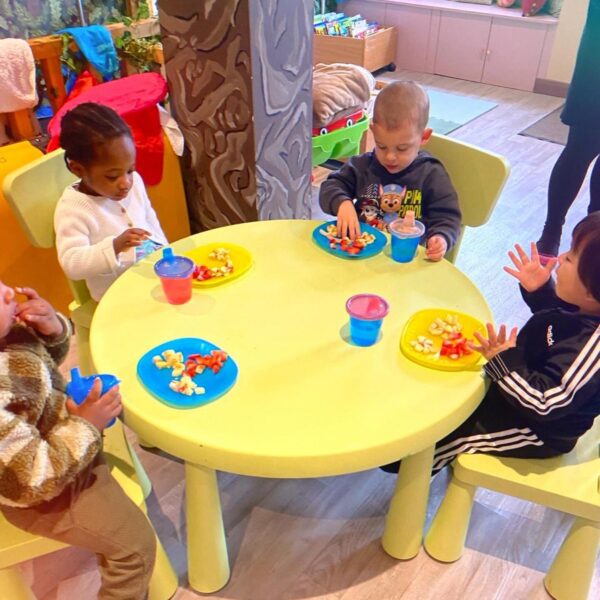 Under-fives
Under-fives
Solidarity Sports has a programme for under-fives, most of whom are witnessing domestic abuse at home or who are refugees or asylum seekers living in overcrowded accommodation with no recourse to public funds. The children attend the centre with their parents. Jasmine says, “If a woman has gone through years of abuse, she will often become very isolated and lonely. Some of the women have endured such trauma that they can’t create a bond with their child; they’re very disconnected. We provide an environment where parents and children have the opportunity to bond.”
Earlier this year, we provided Solidarity Sports with a £5,000 grant to cover the cost of new specialist toys and equipment for the under-fives programme and to help cover some of the charity’s expenses. Jasmine shares, “The children’s development is often severely delayed. We use specialist toys to help with their fine motor skills and other needs.”
Our Christmas card
Every year, HUC commissions a local person or group to design our Christmas card. This year, children from Solidarity Sports took on the challenge, with wonderful designs created by all age groups.
Jasmine shares, “We told the children, ‘This is a competition. One child will design a Christmas card that’s going to go out across London.’ The children really enjoyed it and got very competitive! There’s a feeling we’re constantly trying to create for the children, the feeling of being valued and cared for and listened to.”
We received some fantastic artwork from the children, so it was very difficult to narrow it down to one design. In the end, we chose the below pictures. One of the artists, who is just eight years old, said, “Find joy in the little things – they make life beautiful.”
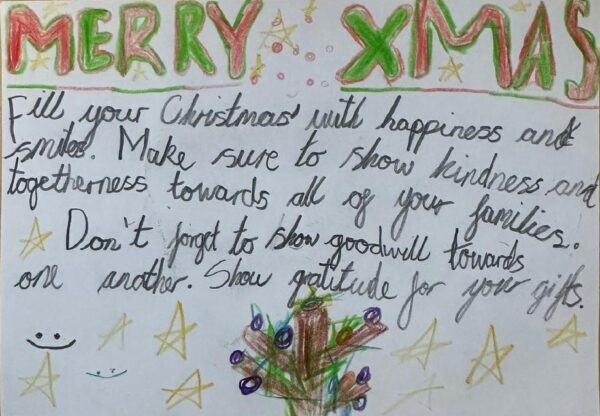

We’d like to thank all the children who took part for their creativity and for bringing so much warmth and joy to this year’s card. And we would like to thank the Solidarity Sports team for helping make the project such a success.
Get involved
Donate
Solidarity Sports is taking part in the Big Give campaign. If you make a donation here by Tuesday 9th December, it will be match funded. So if you give £5, the charity will receive £20. Solidarity Sports is aiming to raise £100,000 to support more than two hundred families this winter.
Volunteer
Solidarity Sports relies on a large team of volunteers to support the children on trips and help with activities. One volunteer, Emily, shared, “I’m constantly inspired by the children and the amazing people I’ve met through this journey.”
If you want to join the team, call or message Joanna on 07455 906418 to find out more.
Corporate partnerships
Solidarity Sports can offer team-building volunteering days and is also keen to hear from businesses that are looking for a new Charity of the Year to support.
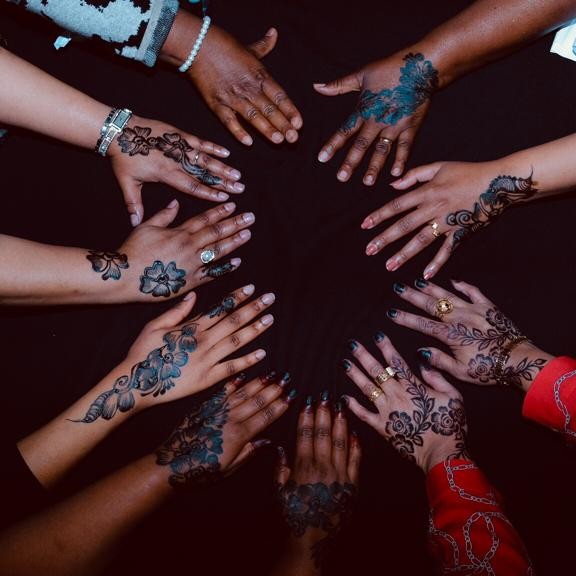
FORWARD
Tackling faith-based abuse in the UK and Africa
[Trigger warning: This article includes references to violence against women, including FGM.]
More than 230 million women and girls have experienced female genital mutilation (FGM). As well as causing severe pain, FGM can result in long-term complications, including urinary problems and difficulties during childbirth. In many cases, FGM can make sex painful and significantly limit sexual pleasure.
FGM and child marriage often go hand-in-hand, and girls who are married before the age of 15 are almost 50% more likely to experience domestic abuse. Worldwide, one in five girls are married before they reach the age of 18.
While FGM and child marriage are illegal in the UK, hundreds of girls are still forced into marriage every year and the NHS has seen more than 37,600 women and girls who have experienced FGM in the past 10 years.
FORWARD
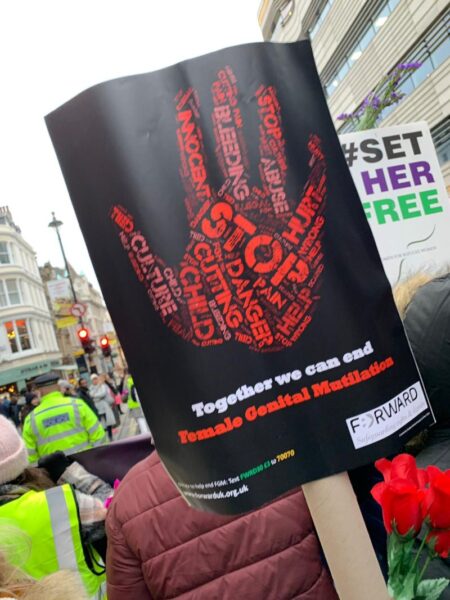
FORWARD (the Foundation for Women’s Health Research and Development) is a UK-based charity working to end violence against African women and girls. Executive Director Naana Otoo-Oyortey MBE explains, “We tackle multiple forms of violence against women and girls, particularly faith-based and ritual abuse. We’re looking at women who are affected by female genital mutilation, by child marriage and by domestic abuse. Some of the women have been trafficked; some are refugees or asylum seekers.”
The charity both supports survivors and works to prevent more women and girls from experiencing violence. Much of its work is in the community – engaging people about the dangers of FGM, educating professionals and ensuring that survivors are supported.
Naana says, “We want to ensure that women don’t perpetuate the abuse. With FGM in particular, women take a proactive role, with the false belief that they are protecting their children, so we want to make sure they don’t put their own daughters through it.”
Women who have undergone FGM are much more likely to experience problems during childbirth, but they often struggle to access expert healthcare in the UK. Naana shares, “It’s important to ensure that women’s needs are identified early, pre-birth, especially as not all hospitals understand the needs of women who have gone through FGM. We support professionals to be able to respond culturally appropriately in ways that will meet women where they are.”
Hammersmith United Charities’ grant
Earlier this year, we provided FORWARD with a grant of £9,985 towards the training and supervision of Maternity Champions and Community Champions in Hammersmith.
Earlier this year, we provided FORWARD with a grant of £9,985 towards the training and supervision of Maternity Champions and Community Champions in Hammersmith. These Champions raise awareness in their community, signpost people to services, offer one-to-one support, deliver talks and coffee mornings, advocate for women with professionals, and help to identify women and girls at risk of violence.
Naana explains, “Community Champions are critical in building bridges between statutory professionals and communities. They provide much-needed peer-to-peer support on the ground. Because of their language skills, they are able to bond better with women and help them to access services.”
The Champions have lived experience and can engage with people in a way that outsiders cannot. As one Champion said, “You have to be very clever [as a Champion] with how to approach community members, how to convince them, how to change or replace the bad ideas or bad habits or cultures in their head; to replace it with the new one and how to convince them that this is the right one.”
The Champions themselves also benefit, as they gain skills and experience that can help them to find paid employment.
Watch this video to find out more about Champions:
Get involved
- If you’re a woman or girl and have been affected by violence, you can access support on FORWARD’s website, by emailing support@forwarduk.org.uk or by calling 0208 960 4000.
- FORWARD is celebrating its 40th anniversary and is aiming to raise £100,000 by the end of the year to support its work. If you’d like to make a donation, you can do so here.
- If you’re interested in training to become a Community or Maternity Champion for your own community, email forward@forwarduk.org.uk
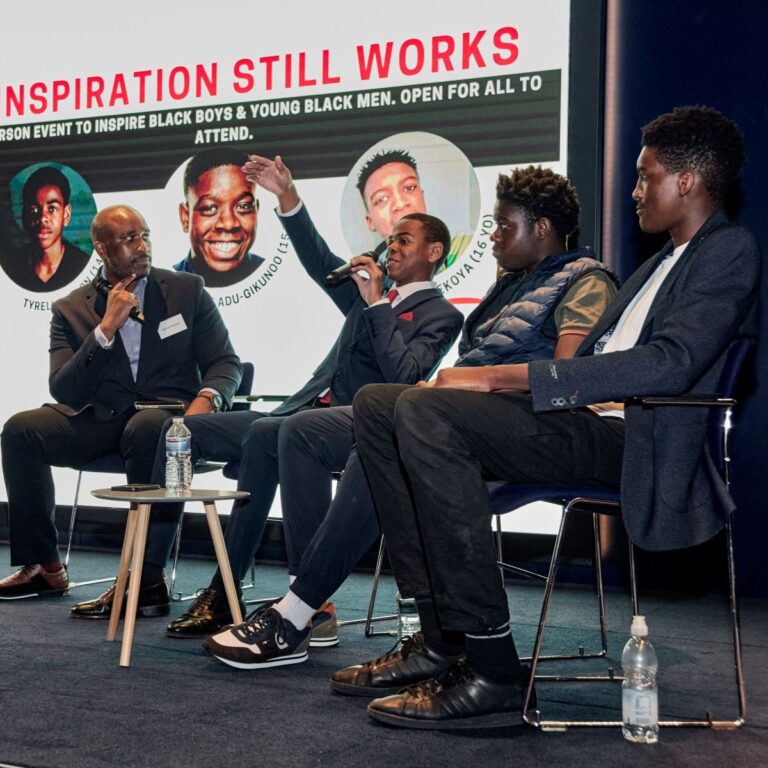
1000 Black Boys
“The final straw came when my 11-year-old nephew was threatened while he was at school.”
Black boys and young men are far more likely to be murdered in London than their counterparts. In 2022, 71% of the teenagers murdered in London were Black boys. Black men also face systemic barriers to achieving top jobs. According to the Black Talent Charter, “Verbal skills and poor commercial judgement were cited as reasons black candidates dropped out of interview processes, with companies describing a lack of ‘polish’ that allows candidates to operate within professional corporate social codes. In turn, this view may favour specific accents, mannerisms and conversational skills.”
Due to his own experiences, Ademola Adeyeba had long recognised the challenges faced by Black boys and young men. Bullied throughout school due to his African accent and name, Ademola attempted suicide twice; by his late teens, he had a dim outlook on life, was struggling and making poor choices, which nearly led to him being stabbed.
Thankfully, Ademola was able to turn his life around, build a successful career in sales and business, and become one of the top trainers in an international business. As he explains, “I discovered this whole new world where you can be successful based on how you communicate, deal with rejection and deal with setbacks. It dawned on me that nobody ever told me any of this when I was growing up. I wasn’t taught this at school or in life, but I was able to learn it in the business space.
“I saw the 2011 Tottenham riots first hand. I saw lots of really angry young people who were just totally fed up, and I saw that lots of them had great potential. I thought, ‘What if this young person got the kind of opportunity that I had? What if we could give some of the training I’ve had to Black boys and young Black men?’
“I was also sick and tired of seeing in newspapers the faces of young Black boys whose lives had been taken. The final straw came in 2018, when my 11-year-old nephew was threatened by a 12-year-old while he was at school.”
1000 Black Boys
Ademola used his experiences to create 1000 Black Boys – a social enterprise committed to inspiring Black boys and young Black men to unleash their potential and to live a life of purpose. The CIC does this in several interconnected ways:
- Events
- Mentorship
- Family therapy
- A YouTube channel
A digital platform is also planned, in order to support parents and guardians to access local services.
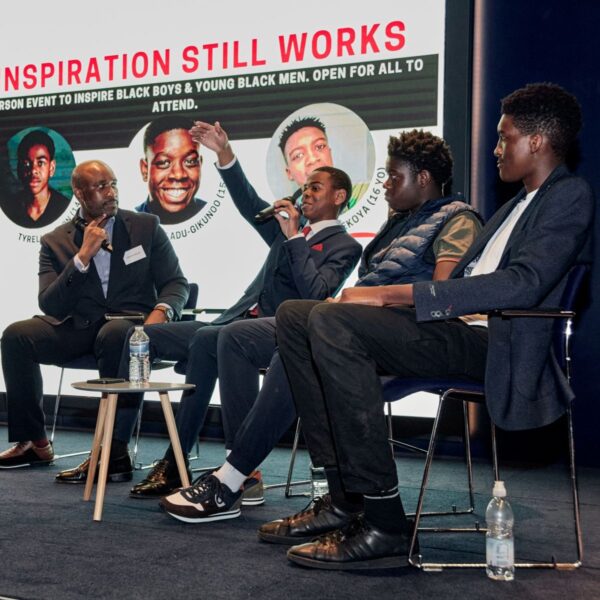 Tackling negative perceptions
Tackling negative perceptions
A key part of 1000 Black Boys’ mission is to counter the negative stereotypes that Black people face from the media, school and life in general.
Ademola says, “In the first session of our mentorship programme, we ask them about the perception that some people have of Black boys and young Black men. They come out with ‘I’m a rude boy, I’m a gangster. I’m a criminal. I don’t like maths, I hate school. I’m never going to amount to anything.’
“The media plays a massive role in that perception, but they’ve also been told the same in other environments. Many have been told by their teachers that they’re stupid and won’t amount to anything.
“So, we explore the fact that people who look like them are running businesses and contributing in phenomenal ways to the world. We start to break down the stereotypes and show these men and boys that they can choose to do incredible things.”
As one participant, Samuel, said, “It was really eye-opening. The information that Ade taught me personally and the other Black boys that were in the sessions was very empowering – something that you don’t really get at school … this organisation is really one of a kind, inspirational.”
1000 Black Boys regularly runs events focused on inspiration and empowerment. Ademola explains, “We bring in people who are doing brilliant things and have them share their story and their journey. These events are incredibly powerful and you can see them flick a switch in the young people. It gives them role models – proof that they can do great things.”
The CIC also holds events for parents who have lost a child to youth violence. Ademola says, “They’re dealing with the loss of a child, and they’re hearing things in the media that are not true, and they’re not able to say, ‘Hey, that’s not the case. This is what happened.’ So, we give them a platform to be heard and, where we can, we pay them as speakers.”
Hammersmith United Charities’ grant
We’re supported 1000 Black Boys with several grants; the latest is funding three of the Inspiration and Empowerment events at White City.
Ademola says, “It’s great to have a funder that really gets our mission and understands what we’re doing. Because of our name and what we do, some organisations don’t want to fund us, but HUC have been a great partner. In early 2024, they gave us the biggest grant that we’d ever had at the time. They’ve also helped us to meet other organisations within the local area.”
1000 Black Boys’ impact
The feedback from participants and parents has been overwhelmingly positive. As one boy who has been through the programme, Levi, says, “1000 Black Boys has really helped me to see the world in a different way … focus on the things that I want to achieve in life and how I can be successful and help other young Black boys who are trying to accomplish their goals.”
The CIC’s work also has an impact on the wider community. Ademola explains, “If we lose this young person, we all lose, but if this young person wins, we all win. Maybe the young person becomes the next tech billionaire, or an incredible chef or politician or business leader. When they get to realise their potential, they could employ thousands of people of different backgrounds and different races; that young person’s potential benefits everyone.”
Find out more
1000 Black Boys has various Mentorship Programmes and events planned; the best way to keep informed is by subscribing to its newsletter. You can also email hello@1000blackboys.com for more details.
Everyone is welcome to attend the events.
Support 1000 Black Boys
- Could your organisation benefit from diversity training or mentors and speakers who can inspire the next generation of Black leaders? Email hello@1000blackboys.com.
- The CIC is looking for a base or meeting space in Hammersmith, so if you know of anywhere up for rent that might be suitable, please contact Ademola.
- If you share the CIC’s vision, you can make a donation towards its fundraising campaign.
- If you would like to donate to or fund 1000 Black Boys in other ways, or if you know of other opportunities to collaborate or support the charity, please email hello@1000blackboys.com or visit 1000blackboys.com.
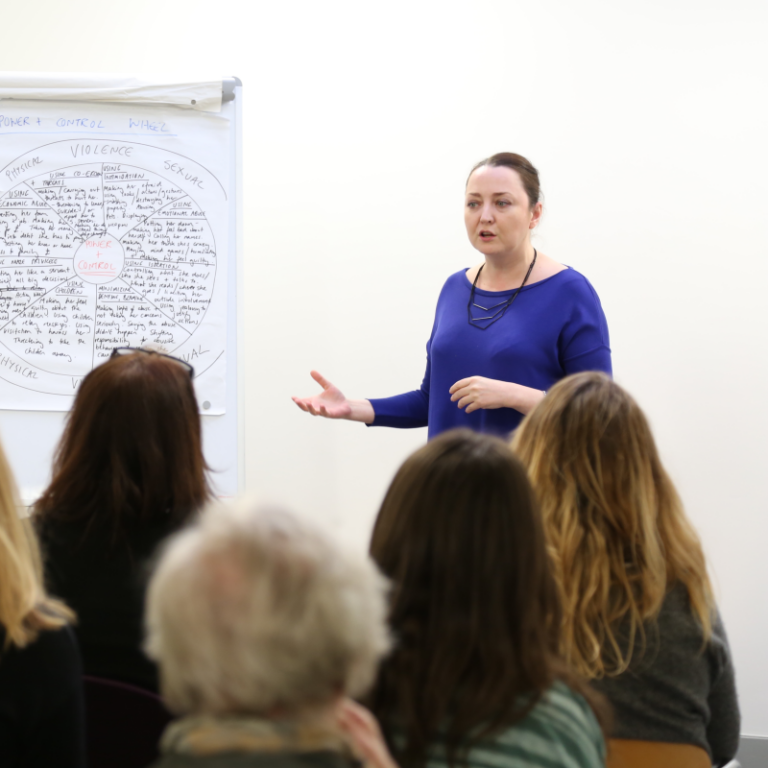
Mental health trauma is the unseen side of domestic abuse
Women who experience domestic abuse are twice as likely to experience depression as those who don’t.
UNiTE to End Violence against Women is an annual campaign led by the UN. The campaign kicks off on 25th November – the International Day for the Elimination of Violence against Women – and runs until Human Rights Day on 10th December.
Most violence against women is committed by the woman’s husband or other intimate partner. It happens in every country across the globe; 1.4 million women in the UK experience domestic abuse each year and, on average, one woman is killed by a male partner or ex-partner every week.
However, even more worrying are stats from the UK’s police chiefs – which point to more women affected by domestic abuse taking their own lives than were murdered by a partner or former partner. Yet there is very little awareness of or discussion around what is arguably a secondary and largely invisible impact on women.
That’s where organisations like Woman’s Trust come in. Set up almost 30 years ago, Woman’s Trust has an exclusive and specialist focus on providing free mental health care to address the trauma caused by domestic abuse and the effect this has on women in their daily lives – often going undiagnosed for years, sometimes even decades after the relationship has ended.
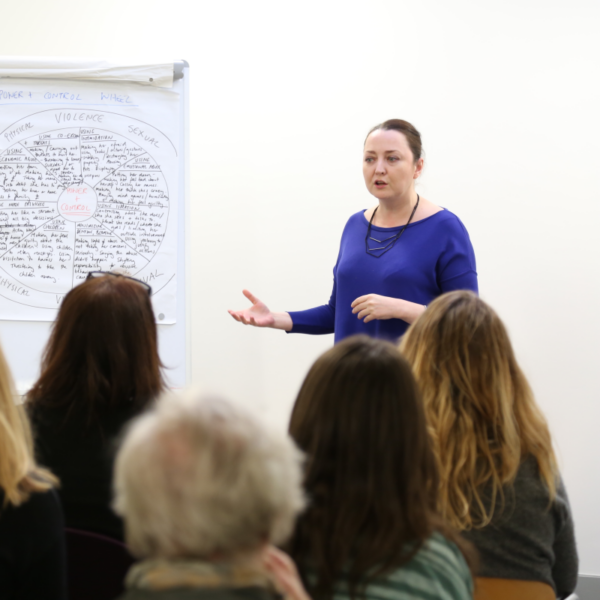 Woman’s Trust has received a number of grants from us since 2012. The London-based charity has supported tens of thousands of women with free therapy and counselling and has been a literal lifesaver for women at some of the most desperate times of their lives.
Woman’s Trust has received a number of grants from us since 2012. The London-based charity has supported tens of thousands of women with free therapy and counselling and has been a literal lifesaver for women at some of the most desperate times of their lives.
A client of Woman’s Trust shared, “My experience getting help and support from Woman’s Trust was invaluable. I was not in a good place and didn’t know that I was in an abusive relationship for all those years and what was abusive about it. When it’s psychological abuse, it’s very difficult to decipher. WT helped me to see things and to understand what was happening to me, which made me understand why I have been feeling so depressed for so many years.”
Rachel Prescott-Smith is Head of Fundraising at Woman’s Trust. She told us, ‘‘Domestic abuse still carries shame and stigma (which it shouldn’t) and as a result, many women don’t like to talk about it, and worryingly some don’t even recognise their experiences as abuse. Most people also don’t really consider the resulting trauma and mental health issues that experiencing domestic abuse can cause, even though one in two women’s suicide attempts are linked to their experiences of abuse. Raising awareness is so important, as it helps survivors know they are not alone, and that help is out there.”
According to Rachel, there are still many misconceptions around domestic abuse, from what it entails to how likely it is to happen and the way it affects survivors on a practical and emotional level. Many people don’t realise that the term ‘domestic abuse’ covers a wide range of abusive behaviour, from physical violence to economic control and psychological abuse.
Women who experience domestic abuse are twice as likely to experience depression as those who don’t, and it can take a long time to process the trauma – or even recognise that mental health challenges are caused by domestic abuse. Counselling is invaluable, but it’s difficult to access on the NHS and even more rare to get specialists who understand the unique ways in which survivors are affected, which is why charities like Woman’s Trust are so important.
Rachel shares, “If you’ve experienced domestic abuse and live in one of the areas that we work in, we can offer you up to 18 sessions with a counsellor. You’ll see the same counsellor, at the same time each week, so that you can build rapport and feel more comfortable. Sessions are completely confidential and can be online or face-to-face in a women-only setting.”
Get support
If you’re experiencing (or have experienced) domestic abuse, and you want to find out about counselling sessions in London, contact Woman’s Trust on:
(Office hours: Mon-Fri, 9:30am – 5pm)
If you want to make a professional referral for someone under your care or supervision, call Woman’s Trust on 020 7034 0303.
For immediate advice or support, please call the National Domestic Abuse Helpline on 0808 2000 247.
Angelou is a partnership of West Central London services that support women and girls affected by domestic violence and abuse. You can call Angelou for free on 0808 801 0660, email angelou@advancecharity.org.uk or visit www.angelou.org to find out more.
If you’re a man experiencing domestic abuse, call Respect’s Men’s Advice Line on 0808 8010327, email info@mensadviceline.org.uk or visit www.mensadviceline.org.uk. The ManKind charity can also help you to escape an abusive situation.
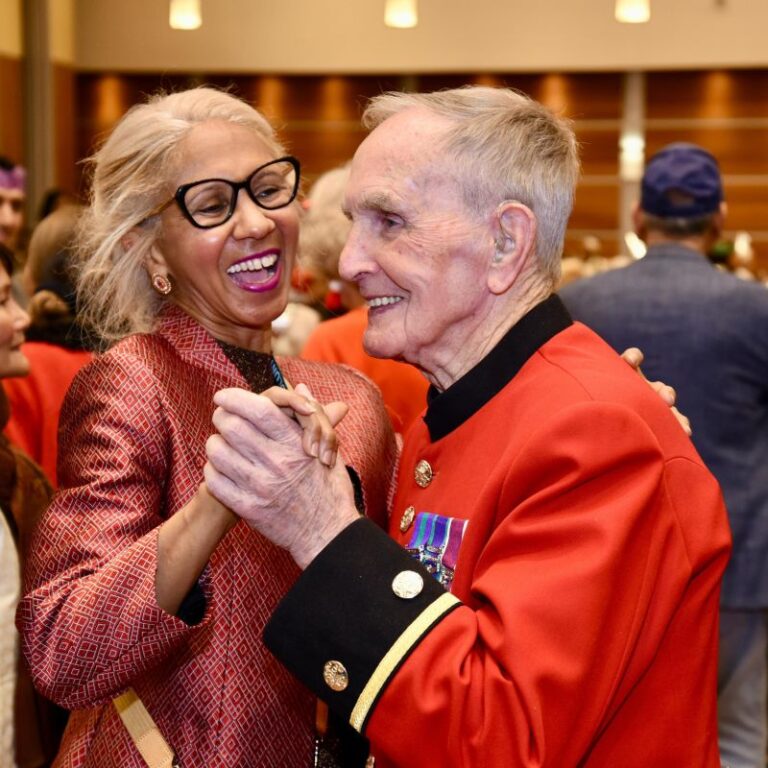
Reducing loneliness at Christmas
The H&F Big Christmas Day Lunch
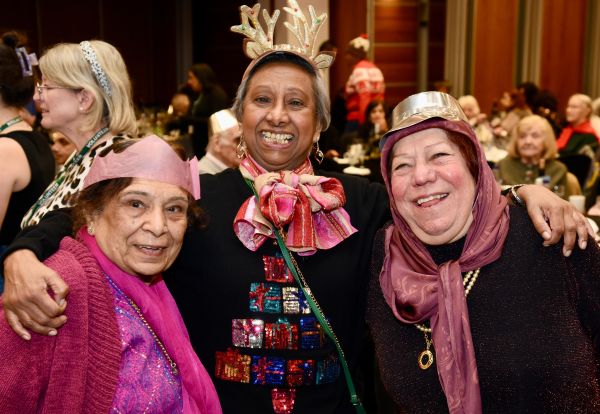 If someone you know is aged 60+ and likely to be alone on Christmas Day, please tell them about the H&F Big Christmas Day Lunch. Up to 500 people will celebrate Christmas Day together at Novotel London West. The annual event is free to attend and includes a two-course lunch, live music and a goodie bag.
If someone you know is aged 60+ and likely to be alone on Christmas Day, please tell them about the H&F Big Christmas Day Lunch. Up to 500 people will celebrate Christmas Day together at Novotel London West. The annual event is free to attend and includes a two-course lunch, live music and a goodie bag.
Almost one million older people in the UK often feel lonely. While this can be hard to cope with at any time of the year, Christmas can be particularly difficult. The festive period can be a painful reminder of loved ones lost or living far away.
The Big Christmas Day Lunch means that people can choose to enjoy the day with others rather than spending it alone. The event is always very popular. Guests and volunteers dance, chat and form new friendships.
It’s completely free to attend and free transport can also be arranged for those who need it.
Get involved
Attend the lunch
If you or someone you know is interested in joining the Big Christmas Day lunch, you can sign up here. The last day to register is December 10th. To attend, you need to be a resident of Hammersmith & Fulham and either be aged 60+ or referred by one of H&F’s services or charities.
Donate to ensure more people can benefit
It costs around £55,000 to run the event, so it’s only thanks to the generosity of local people and businesses that H&F Council can keep the lunch free to attend. Without these donations, many more people would spend Christmas Day alone and lonely. If you’d like to support the lunch, you can find out more and make a donation here.
Volunteer to help local residents
H&F Council is recruiting volunteers to support the Big Christmas Day Lunch. If you can’t volunteer on the day, there are still plenty of ways to get involved, from filling goodie bags to writing Christmas cards. You can sign up to volunteer here.
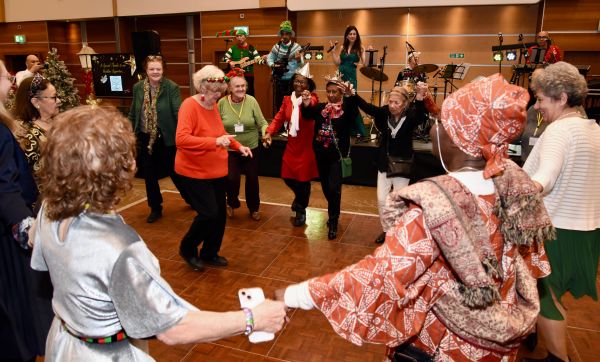
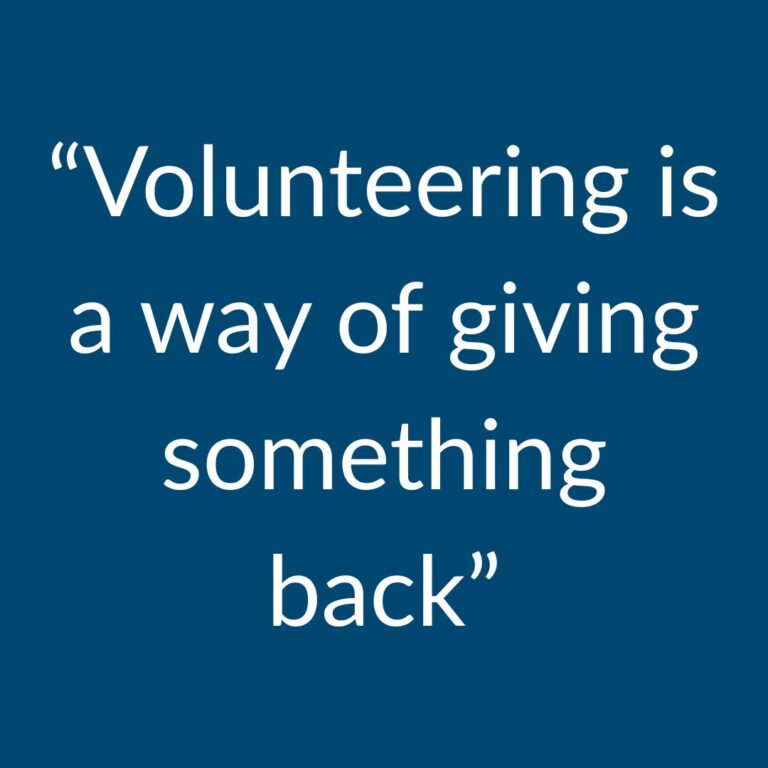
Volunteering for the Poppy Appeal
One of our residents, Siobhan, has been volunteering to support her community for more than 15 years.
Volunteers are at the heart of our community, sharing their time and skills to support others and, in turn, gaining new experiences, new friendships and contentment. Around 966,000 people volunteer in London each year. Those aged between 65 and 74 are the most likely to volunteer. Once people have retired from paid work, they often find that they want to continue contributing to their community and now have more time to do so.
One such volunteer is almshouse resident Siobhan, who has been supporting the Chelsea & Kensington branch of the Royal British Legion for 10 years. She finds it immensely rewarding: “Volunteering is a way of giving something back and helping others. It gives one a good feeling.”
For several years, Siobhan took on much of the responsibility for organising the branch’s Poppy Appeal, including managing volunteers and ordering stock, as well as selling poppies herself. She shares, “It ended up taking up a full four months each year. At our busiest times, I’d sometimes leave my home at 8.30am and not get back until 7pm.”
This year, Siobhan has reduced her workload considerably, but she’s still been helping out by packing and selling poppies.
The Poppy Appeal raises around £45-£55 million every year, which the Royal British Legion uses to support thousands of members of the armed forces, including with:
- Emergency grants, temporary accommodation and other practical support
- Career advice and training
- Counselling and wellbeing services
- Care homes, home adaptations and mobility equipment
None of this would be possible without an army of volunteers across the UK, many of whom have retired from paid work. As well as raising money, Royal British Legion volunteers help to raise awareness. Siobhan shares, “People will stop by the stand and ask questions. They’re often surprised that the Poppy Appeal isn’t just about the World Wars; it’s about supporting all veterans.”
Siobhan wholeheartedly recommends that people consider volunteering. Prior to the Royal British Legion, she supported Crisis at Christmas for five years and found it a “magical, rewarding and gratifying” thing to do. In fact, Siobhan has already found her next voluntary role – supporting patients and staff at Chelsea and Westminster Hospital. She’ll be greeting visitors, running errands and delivering medicine to wards.
Siobhan isn’t the only person at Hammersmith United Charities who enjoys volunteering. Several of our other residents and staff members volunteer regularly or on an ad-hoc basis. Siobhan even persuaded Scheme Manager Chris and Gardener Victoria (V) to sell poppies when she was short of volunteers!
Find out more
The Royal British Legion
The Royal British Legion is always keen to hear from people who would like to volunteer. There are a number of ways to support veterans through the charity, from selling poppies and sorting stock to helping in the office. To find out more, email ChelseaKensington.Chairman@rbl.community
Other ways to volunteer
Hammersmith & Fulham offers hundreds of ways to volunteer for your community. As Victoria Hill, Chief Executive & Clerk to the Trustees at Hammersmith United Charities, says, “Every single one of our grant-holders relies on volunteers in one way or another.”
You could read with children, serve clients at your local foodbank or help people to manage their finances. Whatever your interests, skills or availability, you’ll find volunteering opportunities by contacting local charities or visiting Simply Connect and Link Up London.

The RENA Initiative
Creating a safe space for women affected by loneliness and isolation.
While caring for a loved one can be an extremely rewarding experience, it can also be an isolating one. Artist Mellezia channelled those feelings to create The RENA Initiative – a CIC offering free visual arts programmes that create opportunities for people to be connected, empowered and valued.
Mellezia explains, “RENA stands for Recognising, Empowering and Nurturing Artists. Rena is also my mother’s name. She taught me that I could achieve whatever I set my mind to and be whoever I wanted to be. I wanted to be able to share that experience of being nurtured and empowered with others.”

Creative workshops
The RENA Initiative is currently delivering HeArty – a project co-designed with residents – where health and wellbeing practitioners come together with artists to share health education through fun and creative activities. Attendees are older women and women from global majority backgrounds ranging in age from 24 to 86. One participant shares, “There are very few spaces like this one in which, as women, we can be totally free to express ourselves and be at peace with one another. We share many things not only about art but also about our lives and that is very special.”
Tackling isolation
A key aim of The RENA Initiative is to help ease social isolation and loneliness. As one participant shares, “The project has done excellent work to educate me, improve my self-esteem, expose my hidden talent, keep me in touch with the community, gain new friendships and have a better quality of life.”
Empowering women
Mellezia mentors others to lead workshops, set up their own business and develop their project ideas. One mentee shares, “I feel Mellezia has a genuine interest in developing my know-how, best practices, care and attention for these workshops and events, which has boosted my confidence. Even if I were to hit a bump, there is always guidance and support.”
Menopause Awareness Month
This year, as in previous years, October’s HeArty workshop was focused on Menopause Awareness Month. Mellezia explains, “Due to the way that women, especially Black women, have been treated by medical professionals in the past, there’s a resistance to asking for help. It’s really important for me to create safe spaces where the community feel empowered and able to advocate for themselves. This year, we partnered with health coach Lorraine Fontaine of TheWellHealthSpace.com to explore how to support brain health and emotional wellbeing through the stages of menopause. Artist Jenny Bardoville then led a session on neurographic art.”
HUC’s grant
We recently awarded The RENA Initiative a £7,684 grant to support its work. Mellezia says, “We could not afford to provide our services without the help of this grant.
“What I love about HUC is that they are embedded in the community. They invest in grassroots organisations and projects that are important to residents. HUC trust and empower us to deliver our services, and they are accessible if we need support.”
Broadening horizons
“The cost-of-living crisis is massively impacting our community,” Mellezia says. “We provide activities that are fun and free. As well as workshops, we go on monthly outings. This month, we’re going to London Zoo; we’ll have a guided tour of the zoological society library, explore the zoo, sketch some of the animals and enjoy a nice lunch. That is something that would otherwise be completely out of reach for many people.”
The women agree. As one says, “This project has given me the opportunity to visit places I thought was out of my reach. It has broadened my horizon.”
The RENA Initiative has turned into a true tribute to Mellezia’s mother and helped Mellezia to work through her grief at losing her mother, “It helps to keep me going, knowing that something beautiful has come out of such immense loss. It is thriving, it lives on and it’s helping others.”
Find out more
The RENA Initiative’s HeArty workshops and outings both take place once a month on a Thursday. If you’d like to join, email info@therenainitiative.com or visit www.therenainitiative.com

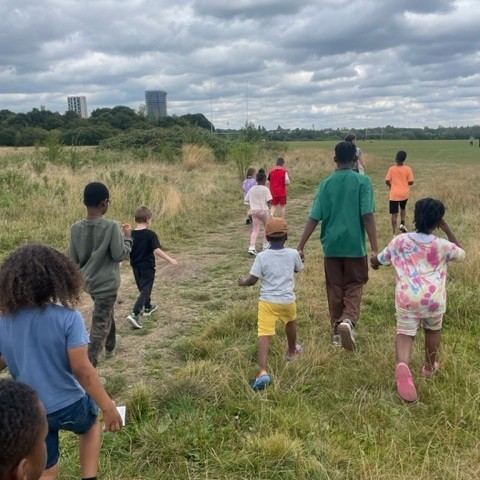
Urbanwise.London
Giving children the chance to enjoy nature.
Spending time in nature brings a wealth of benefits for children’s mental and physical heath. However, 34% of children in London don’t have a garden and 5% have no access to any outdoor space at all. Families on a low income are more than twice as likely to be deprived of outdoor space as those on a better income.
As Carlos Izsak, the new director of Urbanwise.London, says, “Our grandparents’ generation would explore miles from their home without supervision. Now, children go from their home to their car to school and then back again. They don’t get to explore the outdoors as much. They spend a lot more time on devices and they’ve lost touch with the local environment.”
Founded in 1983, Urbanwise.London gives children and adults the chance to reclaim the natural world. Carlos explains, “We work with young people and community groups to help them learn about the environment, history and geography, including how places have changed and will change.”
The educational charity is based in College Park and Old Oak – an area of high deprivation, where 38% of households have an annual income under £30,000. Over half of the homes are flats or maisonettes and many families can’t afford extra-curricular activities for their children. While the ward includes one of London’s largest public green spaces – Wormwood Scrubs – many residents don’t make full use of it.
Hammersmith United Charities’ grant
We’ve supported Urbanwise.London with several grants over the years. Our latest grant is helping to fund:
- A club at Old Oak’s Family Hub for children and parents
- After-school clubs at Kenmont and Old Oak primary schools
- A summer family event and trips out
All sessions are free for participants and will include hands-on experiences out on Wormwood Scrubs. Carlos shares, “The children might learn how to use simple tools, how to look after themselves outdoors and how to be more resilient if it’s cold or raining. There’s a lot of teamwork involved and our education officer, Lydia, runs creative, sustainable arts and crafts activities with the children, plus some forest school-inspired activities.
“We also explain that the Scrubs is a resource for them to use and tell them about activities that they can join. It’s not just about connecting with nature; it’s about connecting with the local area and its history.”
The impact
Urbanwise.London aims to close the opportunity gap by offering children from families on a very low income the chance to engage with nature in a way that their better off peers may take for granted. 93% of children who participate in an Urbanwise.London project report feeling happier and calmer after sessions. Teachers and community staff say that children’s behaviour and focus improves.
As one parent fed back, “My child came home excited and confident – he talks about nature in a way he never did before. This is the first time I have been able to keep him attending a club outside of school.”
Other projects
Urbanwise.London also runs several other projects for people around Hammersmith, including:
- Guided walks focusing on culture, heritage, wildlife and wellbeing
- Greener Canalside, where a team of volunteers tidy and replant the Paddington Arm of the Grand Union Canal, including litter-picking by kayak!
- Local studies sessions and projects with schools
Black History Month
One of our previous grants enabled Urbanwise.London to create a film for Black History Month. The film showcases historical figures who have made an impact on Hammersmith, from Mary Seacole to Ellen and William Craft.
Find out more
To keep up to date with Urbanwise.London and find out when projects are open to new participants, sign up to the charity’s newsletter.
If you’d like to volunteer to help more children enjoy nature, the charity would love to hear from you. Email learn@urbanwise.london.
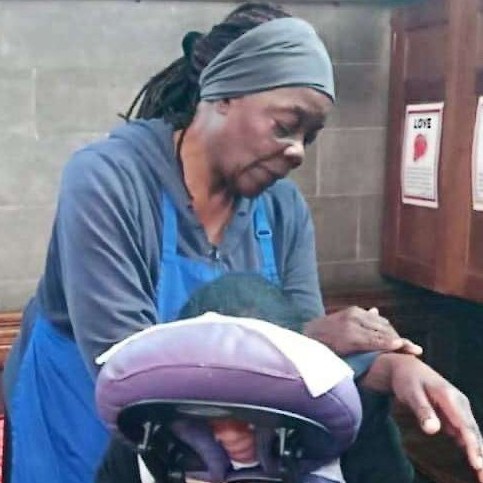
Community Massage London
Find out how this CIC is helping more people to benefit from complementary therapies.
Massage, reflexology and other hands-on therapies can bring so many benefits, including:
- Aiding relaxation
- Reducing stress and anxiety
- Easing physical pain and tension
- Improving sleep
- Improving flexibility and ease of movement
- Combating loneliness and social isolation and creating connections
However, the price of private therapies can be out of reach for many people, including those who are retired, disabled or not in paid work. In other words, the people who would most benefit are often those who can’t afford to.
Community Massage London offers free and low-cost massage, reflexology, shiatsu and acupuncture in community settings across Hammersmith & Fulham and Kensington & Chelsea.
The CIC was set up in 2018 by Teresa Meekings and Ray Prosper. Teresa says, “We recognised the need to support marginalised communities with their health and wellbeing. People often think massage and reflexology are a luxury, but complementary therapy isn’t about pampering; it’s about taking care of yourself, focusing on what matters to you, and making meaningful progress in your physical and emotional wellbeing.
“Each session is shaped around what the client wants and we offer practical self-care tips they can use at home. This helps clients to feel listened to and in control of their own health. Complementary therapies are also preventative tools and have been shown to reduce GP and A&E visits.”
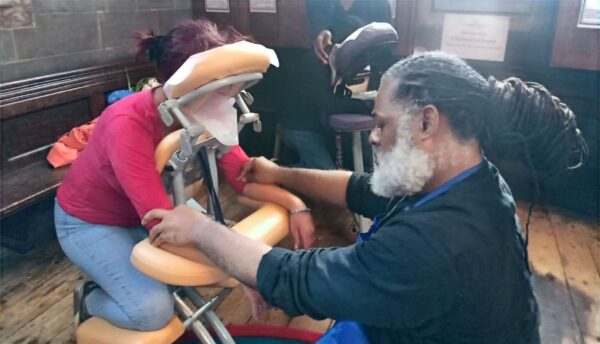
Tackling loneliness
Many of Community Massage London’s clients live alone and are struggling with social isolation. The treatment they receive may be the only time they experience the touch of another person that month. Teresa shares, “A lot of the benefits of massage are down to the power of touch. The sessions give people a reason to come out of their home. The time focused on them, combined with the therapist’s caring touch and compassion, can help them to feel more connected and cared for and so reduce their anxiety and stress.”
As one participant said, “These sessions are invaluable, the caring touch is something special to look forward to each month.”
Volunteers work alongside the therapists, offering refreshments and a friendly person to talk to. They can also signpost people to other organisations that can offer support.
Hammersmith United Charities’ grant
Our grant has enabled 24 people to benefit from up to 12 complementary therapy sessions at White City Community Centre. The sessions last for 20 minutes and participants can choose between massage and reflexology. Most participants are over 60 and on a low income.
The CIC suggests a £10 donation from clients who are in paid employment and a £5 donation from those who aren’t, making the treatment considerably more affordable than a private session.
Teresa says, “We couldn’t do this without grant funding. We have to cover the cost of paying the therapists, hiring the hall, administration, insurance, scheduling software and things like that. We really need the grant funding in order to be able to make this affordable for people.”
World Mental Health Day
Community Massage London is taking part in a World Mental Health Day event on 9th October 2025 at St Mary Abbots Church, Kensington Church St, W8 4LA, 12 to 4pm. Organised by SMART London, the event will include various wellbeing activities, a free lunch and a Q&A session. Email admin@smartlondon.org for more details.
Impact
Community Massage London’s clients have reported all of the above benefits and more. A post-treatment survey found that 82% of participants experienced a reduction in stress and 65% a reduction in pain. Many people experience multiple improvements. One client shared, “I’m having better sleep, less pain, less swelling in legs and feet.” Another said, “I have benefitted from the sessions both mentally, (as a Carer for my mum) & physically.”
Find out more
If you’re on a low income and feel that you’d benefit from Community Massage London’s complementary therapies, visit www.communitymassagelondon.co.uk to book a session.
Would you like to enable more people to benefit from complementary therapies? You can support Community Massage London’s work by:
- Donating via Go Fund Me.
- Supporting the CIC at no extra cost by doing your usual online shopping through Easy Fundraising. Every time you shop online from one of the 8,000+ retailers (including Amazon, eBay and several supermarkets), a percentage will be donated to Community Massage London.

John Betts Primary School
Supporting vulnerable children through play therapy.
There are a number of life experiences that can have a significant impact on a child’s mental health, from parental separation to bereavement. This can lead to the child withdrawing from friends, struggling to manage their emotions, and finding it difficult to engage with school.
While adults in a similar situation often benefit from counselling, children can lack the communication and reasoning skills to explain or even understand how they are feeling and what they need.
Play therapy
A play therapist is able to support children to work through some of their challenges in a safe environment and to express feelings that they may not want or be able to talk about. The British Association of Play Therapists explains, “Play therapy helps children understand muddled feelings and upsetting events that they haven’t had the chance to sort out properly. Rather than having to explain what is troubling them, as adult therapy usually expects, children use play to communicate at their own level and at their own pace, without feeling interrogated or threatened.”
 Sarah Foster is a certified play & creative arts therapist who works in several schools across Hammersmith & Fulham, including John Betts. She says, “The children who are referred to me are usually struggling socially, emotionally or behaviourally. For example, they might be struggling with anxiety, low self-esteem, anger management or separation anxiety. Toys become their language, their words. Through that, you can gain an insight into what’s troubling them and help them to unpack that, process events and better understand their feelings.”
Sarah Foster is a certified play & creative arts therapist who works in several schools across Hammersmith & Fulham, including John Betts. She says, “The children who are referred to me are usually struggling socially, emotionally or behaviourally. For example, they might be struggling with anxiety, low self-esteem, anger management or separation anxiety. Toys become their language, their words. Through that, you can gain an insight into what’s troubling them and help them to unpack that, process events and better understand their feelings.”
Sarah has a range of toys and art materials for the children to choose from, such as playdoh, figurines, sand trays and musical instruments. Most of the children have 12 play therapy sessions, but some will see her throughout the whole academic year.
Sarah takes a non-directive, child-centred approach. She explains, “The children take the lead. One of the central tenets is unconditional positive regard, where you’re completely accepting of the child as they are. There’s no concept of ‘good’ behaviour and ‘bad’ behaviour. They bring what they bring to a session, including, usually, the issues that school or parents have concerns about.”
As the focus is on play, children are able to relax and enjoy their time with Sarah. One parent fed back, “Thank you so much for all your help and wisdom with X, we know how much he has loved his time with you.”
Benefits of play therapy
Children benefit from play therapy in a number of ways. As one parent shared, “I feel that the therapy has really helped him. And X has recognised that in himself too. We have definitely noticed positive changes. Thank you!”
Benefits can include:
- Increased confidence and self-esteem
- Finding it easier to express thoughts and feelings
- Improvements in behaviour and concentration
- Better sleep
Sarah says, “There’s a really high impact rate for play therapy. You see a positive difference in over 80% of cases. It’s deeply rewarding work.”
Apply for a Community Grant
Some of John Betts’ play therapy sessions are funded by a Hammersmith United Charities Community Grant. If you’d like to apply for a grant to support your community initiative, you can find out more here.
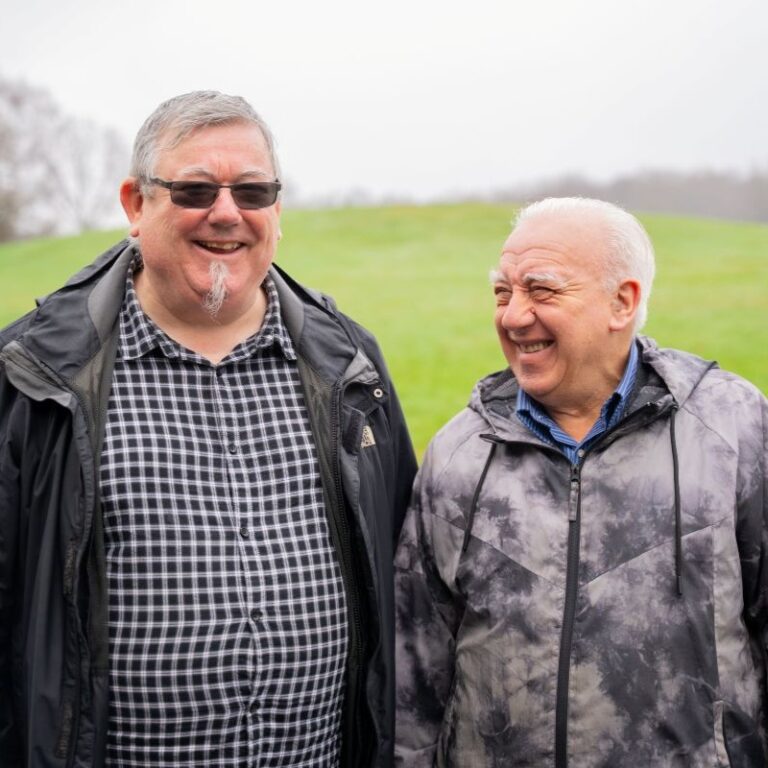
International Day of Older Persons
Building communities for older people in Hammersmith.
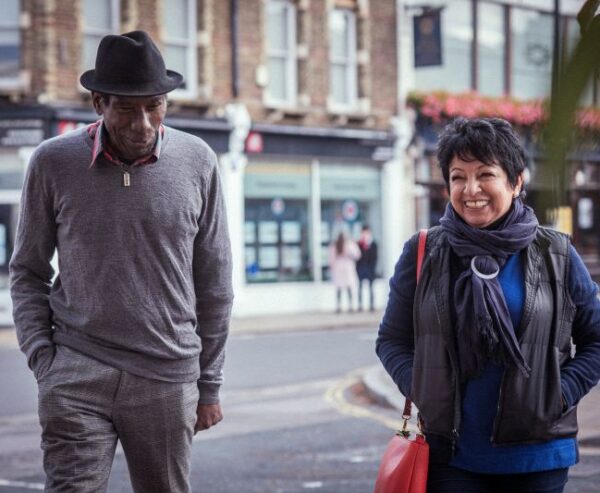
October 1st is the International Day of Older Persons. This year, the UK theme is ‘Building Belonging: Celebrating the power of our social connections.’ As the Centre for Ageing Better explains, the day is a chance to “celebrate the vital role that social connections can play in our lives; from a quick hello on the street to deep and supportive relationships that are built over time. The communities we live in shape our ability to connect – and in turn, the connections that we make help shape our local environment.”
Friendships are important for most people, whatever their age. However, it can be harder for older people to make new social connections, especially if you live alone, no longer go out to work or have mobility issues.
Bringing people together through almshouses

Hammersmith United Charities has two almshouses – John Betts House and Sycamore House. Both are designed to make it easier for older people to maintain or develop social connections. Residents’ flats are built around a large communal garden, which everyone has access to, and regular events such as coffee mornings, exercise classes and social groups give people extra opportunities to come together in the communal lounge. The almshouses are located in the busy heart of Hammersmith, making it easier for residents to maintain friendships in their local community as they age.
As one resident, Lorraine, says, “There’s lots on socially here at Sycamore House, so I involve myself in that as much as I wish – I usually go to the coffee morning and catch up with everyone on a Thursday. I’ve made some very good friends here.”
Read more about how living in an almshouse community can reduce loneliness and isolation.
Support for older people in Hammersmith
Many other charities can also offer support if you’re struggling with loneliness, the cost of living or other challenges.
- Age UK Hammersmith and Fulham runs a variety of activities every week, from yoga to a film club. You can also get support if you find it difficult to go shopping.
- The Men’s Shed group meet several times a week and maintain Godolphin Gardens as well as working on their own projects.
- Citizens Advice Hammersmith and Fulham can give you advice on a range of topics, such as debt, benefits and energy costs. The charity offers face-to-face meetings, and you can also call for free on 0808 278 7832.
- The WILDE Foundation provides a creative outlet for women who have experienced trauma (such as domestic abuse) and those struggling with loneliness or mental health challenges. Many of its members are over 60.
- The RENA Initiative delivers monthly art workshops and outings for women of every age.
- Women Aid and Empowerment runs accessible exercise classes, including chair-based yoga. Participants are able to socialise after the classes. Founder Hanna shares, “I have a lot of retired and widowed people attending. Some had become isolated in their home. Since coming to the class, their health has improved and so has their loneliness.”
- The Grove Neighbourhood Centre Folk Art Group helps to tackle loneliness though a weekly art group. Most members are retired. Chair Carey Whitley says, “We provide a place where it is easy to nurture new friendships.”
- Women’s Trust provides free counselling for women who have experienced domestic abuse. (1 in 30 people aged 60 to 74 is a survivor of domestic abuse, whether that’s physical violence, financial abuse or coercive control.)
- For Brian offers dementia-inclusive activities, including art sessions.
Volunteering as an older person
Volunteering can be a great way to combat loneliness and give back to your local community. In fact, 35% of people who are aged 65 or older frequently volunteer. Whatever your age or mobility needs, there’s likely a volunteer role to suit. Whether you fancy reading with children, volunteering at your local foodbank or making sure people can access free financial advice, get in touch with local charities to find out more. You can also find volunteering opportunities at Simply Connect.
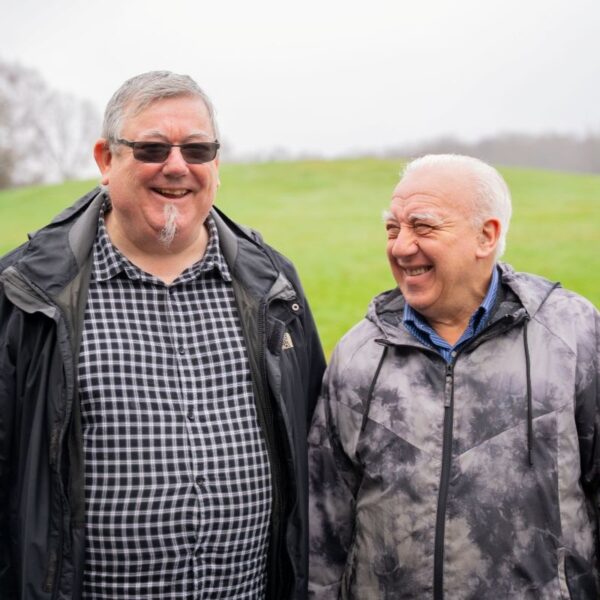
Protecting the rights of older people
While the Equality Act is designed to legally protect people from discrimination, older people still often experience ageism. According to Age UK, this can include being refused interest-free credit, a new credit card, car insurance or travel insurance; being refused a referral from a doctor to a consultant; or even losing your job.
Often ageism is more subtle. As the Centre for Ageing Better says, “Ageism is all around us, yet it’s so ingrained in our daily lives that we barely notice it. Being told you should ‘act your age’, ‘slow down’ or ‘that’s ‘too young’ for you’. Becoming ‘unemployable’ in your 50s. Being told you’re ‘surprisingly tech-savvy’ or ‘you shouldn’t wear that at your age’. This isn’t a part of ageing. It’s ageism.”
In many countries, there is no legal protection against ageism whatsoever, which is why several charities have been calling for a UN convention to protect the rights of older people. The UN has agreed to start work on such a convention “to ensure older persons’ equality, dignity and societal inclusion – not just for today’s population but for the youth and children who will be the older persons of tomorrow.”
You can find out more about how to challenge ageism at www.agewithoutlimits.org
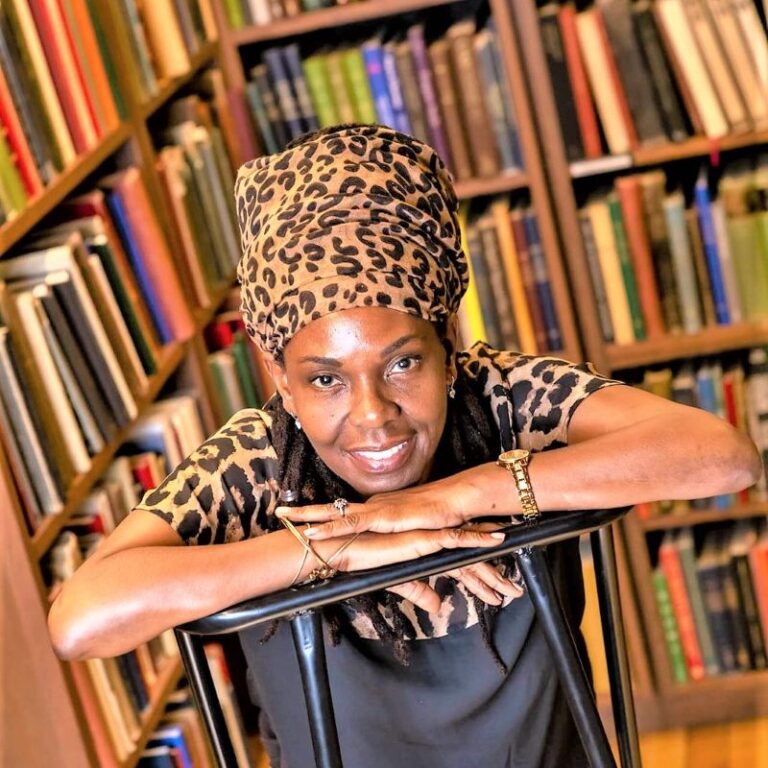
The WILDE Foundation
Helping women to write their way to better mental wellbeing
[Trigger warning: This article includes references to serious sexual assault and other events that may be triggering.]
Traumatic life events can lead to significant mental health challenges, including depression, anxiety and low self-esteem. The WILDE Foundation gives women the chance to write about their life experiences and share their stories in a safe, supportive environment. By doing so, the women can be helped to process and heal from their trauma, improve their mental health and regain a sense of control over their lives.
As one participant, Jen, shares, “As an Author, Writer, and Poet, it is such a blessing to be with like-minded ladies from all walks of life. Sharing our memories and life experiences by writing stories or in poetry form … We learn so much about each other and the workshop gives us the skills and confidence to write our stories to the world.”
Some of the women have survived horrendous experiences. One woman was imprisoned and repeatedly raped by her neighbour as a teenager. She escaped to the UK, where she experienced years of abuse from her partner – a police officer. Through the WILDE Foundation, she’s been able to rebuild her trust in people and escape from her abuser.
Sharing Human Stories
As well as the online writing workshops, the women meet on the second Sunday of the month to share Human Stories at the Nubian Centre. WILDE founder Rasheda Malcolm explains, “A woman will volunteer to be the ‘book’. She might say, ‘Okay, I want to talk about my childhood.’ She will talk about her childhood, and then the rest of the group will ask her questions about it. We have a Caribbean lunch afterwards so everyone can sit together and eat.
“Women have bonded through sharing stories and experiences of domestic and childhood sexual abuse, loss, bereavement and ill-health; for some, these stories have been shared for the very first time.”
Tackling isolation
Many of the women are lonely due to social isolation, disability, poor mental health or other challenges. The WILDE Foundation provides a “nurturing and safe social platform, where loneliness and isolation are lessened for a few hours.” While most of the writing sessions are held online, the women meet in person for Human Stories, and sometimes go on outings to the seaside, a local spa or another place of interest.
The women have also formed friendships that continue outside the group. Rasheda shares an example of an older group member who is almost housebound due to severe arthritis. The WILDE in-person meetings are often the only time she’ll leave her home. Rasheda says, “One of the other ladies, who’s got arthritis in her shoulders, invited her to come swimming. So now they meet up to exercise in the water.”
Empowering through education
People often think of domestic abuse and rape as being solely about physical assault. To address this, Rasheda delivered a 12-week CPD-accredited course called Free Me as part of the Sunday workshops. She says, “One woman said that that it had taken her all this time to realise that she’s been financially abused throughout her entire marriage. She didn’t know that was abuse until Free Me.”
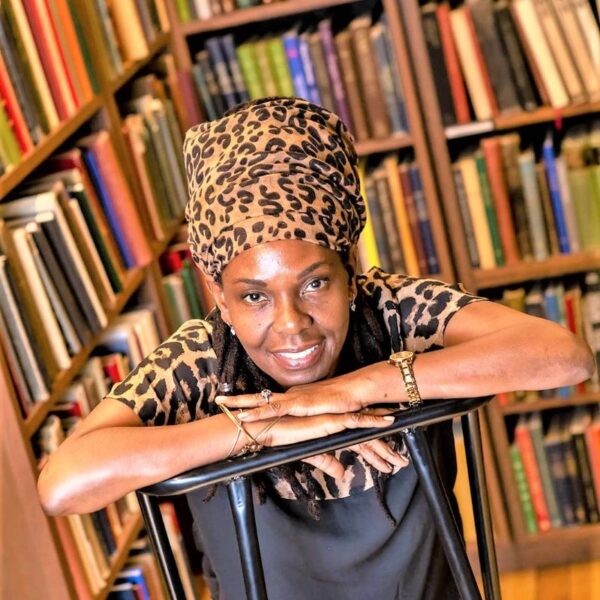
Black History Month
For Black History month, the women meet for an epistolary workshop, where they write letters to their younger self, older self or to a woman from their culture who they admire. The focus of the workshop is on healing. Rasheda says, “The letters bring out so much and we also talk about Black history – they didn’t take slaves; they took mothers and fathers and doctors and nurses and enslaved them. That can then lead to us starting to find out about other events in history. One Irish lady shared what the British did to the Irish in the Cromwellian war.
“It’s a good sharing experience and, as always, we end with food. Everybody brings a dish from their country to share. You can dress in whatever you’d wear in your country and come along and party!
“We’ve got quite a little melting pot here where people can bond and make friends. We call it our tribe. One lady is 83 years old and White British. She says that she feels at home with us and that ‘I’m learning to understand more than I ever did before because when we grew up, we weren’t allowed to mix.’”
Encouraging writers though an annual festival
The WILDE H&F Writers’ Festival is an annual event to “uplift and spotlight emerging and minoritised voices from across the UK.” It’s open to everyone and many of the women from the writing workshops take part.
This year, the festival was held on 19th July at the Bush Theatre. Rasheda says, “It poured with rain, but 230 people turned up with their umbrellas and raincoats. We had an open mic, so people had the opportunity to share their writing. One spoke about her experiences of domestic abuse; another about the menopause and how at times she felt suicidal.
“It was brilliant to have the grant from Hammersmith United Charities to put towards the festival, because it gave people that opportunity to stand on a platform and be applauded, which gave them such confidence.”
Find out more
You can read examples of the women’s writing by clicking on the links on the right-hand side of this page.
Join the WILDE Foundation
- Writing workshops are held online on Fridays and Saturdays at 10:30am-12:30pm.
- Human Stories is held on the second Sunday of the month, 12-3pm, at the Nubian Life Resource Centre, 50 Elleslie road, W12 7BW
- The letter writing workshop for Black History month is on 12th October 2025, 12-3pm, at the Nubian Life Resource Centre.
All sessions are free to attend. If you’d like to find out more or join in, email Rasheda at wilde2000@btopenworld.com.
Enter the WILDE H&F Writers’ Festival
The next WILDE H&F Writers’ Festival is on June 27th. Submissions open at the end of October. There are classes for adults and under-18s and prizes include a place on a Curtis Brown Creative Masterclass. For more details, including this year’s themes, visit www.handfwritersfestival.co.uk.
Volunteer for the WILDE Foundation
Rasheda says, “If anyone’s interested in talking to women who have had it hard and are re-emerging and gaining their confidence, they’ll be very welcome.” People have volunteered to talk about books, dementia prevention and other topics, as well as to help support the Foundation’s members on outings. Contact Rasheda at wilde2000@btopenworld.com.

Moving to an almshouse when you’re 60 – Angie’s story
“It’s a restorative place. Everybody has been so friendly and warm and welcoming.”
Angie moved to Sycamore House a few weeks ago. We caught up to find out how she’s settling in…
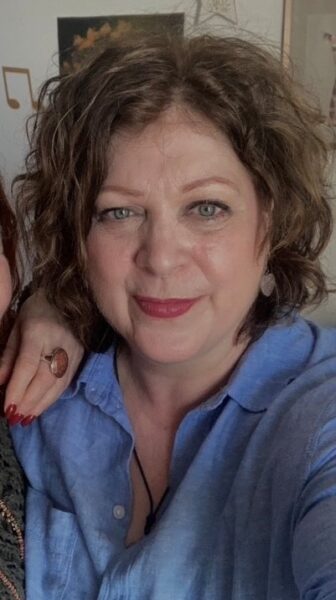 What do you think of your new home?
What do you think of your new home?
It’s just such a joy. I couldn’t have asked for a more beautiful home. It’s spacious and peaceful and the environment is absolutely stunning. I was in a studio flat before. Now, I have a separate bedroom, which is almost as big as the whole of my last flat.
I have multiple sclerosis so am at home quite a lot, but my last flat was so cramped it was difficult for me to physically manoeuvre my way around it. Now, I can move around much more freely. I could ballet dance around if I was capable!
My flat has been decorated and new flooring was put down. There are beautiful units in the kitchen. I’ve got a balcony as well, so I can stand outside and look at the moon at 10 o’clock at night if I want to.
Why did you decide to move to Sycamore House?
I lived on a busy junction for the last 11 years. It wasn’t a very nice environment. I had 24-hour noise from sirens, so I didn’t sleep well. There was mould, and I had years of anti-social behaviour from a neighbour. It was pretty horrendous.
Before then, I was living in a lovely flat in Fulham with a friend of mine, who’s an opera singer. I’d just finished a degree in music technology when I got breast cancer. The council wrongly withheld discretionary housing benefits, which meant that payments to my landlord were delayed, so I was made homeless, through no fault of my own, and ended up in social housing accommodation.
I wanted to move for a very long time, but I just didn’t have any other options. I’m in receipt of benefits due to my long-term health issues.
A friend had been to the open day at Sycamore House and told me all about it. I’d just turned 60, which opened the door for me. I put my name down and it all happened really quickly. Now, I’m living in this beautiful place with birds singing and butterflies flying.
You’re enjoying living in a quieter neighbourhood then?
Yes. You don’t feel like you’re in the heart of London. It’s so peaceful, a ray of sunshine, an oasis in the desert! Before, I had to wait until things died down around two o’clock in the morning before I could get off to sleep. Whereas now, if I want to go to bed at 8.30 I can, which is incredible.
It’s quite surreal. I keep having ‘pinch me’ moments. Just to be able to open the curtains and see the sun coming up is wonderful. There’s a hammock swing in the garden that’s definitely got my name on it!
Have you met many of the other residents?
Yes, I’ve already bonded with a lot of people here. Everybody I’ve met has been so friendly and warm and welcoming. Whenever I pop down to put my rubbish out, I always end up bumping into people and having a chat.
We went on a trip to Southend yesterday. I went to the coffee morning today, and I’m having a meal with one of my new neighbours tonight.
Chris [the scheme manager] is so lively and efficient as well.
It sounds like living here has really lifted your spirits.
It’s already been a healing time for me, even just in my first few weeks of living here. It’s a restorative place; I can already feel my nervous system calming down. Hopefully, once I’ve been here a little while, I’ll be able to do more of the things that I really love to do. I’m a jazz singer, songwriter, poet, reflexologist and natural health enthusiast, but I haven’t been able to do much of that for the last 11 years. I was offered a grant from Help Musicians a couple of years ago to write songs and record an album, but I had to let it go. The situation I was in just made things too difficult – the noise, the anti-social behaviour and the fact that I basically became a carer for my next-door neighbour.
Maybe, once I’m settled, I can reapply for that grant. I’m already down to sing at Christmas at Sycamore House!
It’s been a very stressful decade, so I feel very blessed that this is my home now.
Find our more about our almshouses
We’re always happy to show people around our flats, communal areas and award-winning gardens. You can find out what we offer, how to arrange a visit and who’s eligible here.
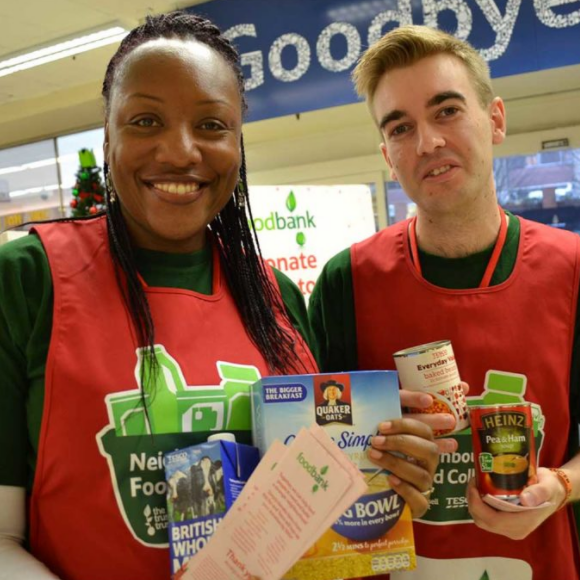
Hammersmith & Fulham Foodbank
“Our numbers doubled within the space of three months.”
One in seven people in the UK is at risk of going hungry. Low incomes, a lack of jobs (particularly for people who are disabled or who have caring responsibilities) and high housing costs are just some of the drivers.
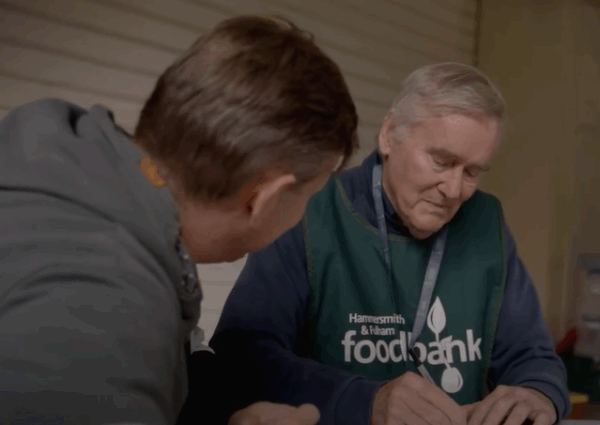
Not surprisingly, the number of people needing emergency support from foodbanks has doubled over the last five years. Foodbanks in the Trussell network gave out 2.9 million emergency food parcels last year. Over 1 million of those were for children.
Here in London, foodbank use has reached an all-time high. At least 454,750 food parcels were distributed in London between 2023 and 2024.
Hunger in Hammersmith
The rising need is a situation that Phil Storey, Chief Executive of Hammersmith & Fulham Foodbank, knows all too well. He shares, “The cost-of-living crisis hit us in winter 2022; our numbers doubled within the space of three months. We went from feeding around 1,000 people a month to suddenly feeding 2,000 people a month. That meant we needed double the number of vans, double the amount of food and so on. In the winter of 2023, the number went up by another 500, so we were feeding 2,500 people a month for most of 2024.”
The foodbank ended up feeding 30,147 people across the borough last year. As one of its clients shared, “Without you I would have fallen apart, words can’t explain what you have done for me. I was sinking in quicksand and you gave me the branch to pull me out.”
 The crucial role of volunteers
The crucial role of volunteers
Hammersmith & Fulham Foodbank could not survive without the help of volunteers. Phil says, “The vast majority of what we deliver relies on volunteers. Our foodbank sessions are run by a volunteer team. We’ve got volunteer drivers. We’ve got volunteers in our warehouse who sort all the food. We’ve got volunteer admin. We’ve got volunteer fundraisers. Our charity is rooted in the idea of local people volunteering to support other local people who are struggling.”
Volunteering with Hammersmith & Fulham Foodbank
The charity is always in need of more volunteers. You can volunteer on a regular or ad hoc basis. Phil adds, “We get a real mix of people helping, including students. A lot of our volunteers gain really valuable skills, which they can then take into the workplace. We can add to people’s CVs, give them skills, give them experience and put them in touch with their local community.”
Hammersmith United Charities’ grant
We’ve provided several grants to the foodbank over the last few years. The most recent grant was for £6,185 towards the cost of training volunteers. Phil explains, “As a professional organisation, our volunteers need to meet minimum standards in areas such as food hygiene and safeguarding. However, the HUC grant means we can invest in additional courses. We’ve been able to ask volunteers, ‘What areas would you like to develop in; what training will be useful to you?’ and proactively respond to that need.”
Helping people to get back on their feet
One crucial role the foodbank plays is signposting. An assessor from Citizens Advice Hammersmith and Fulham (CAHF) joins the client’s first session to discuss what support the person is entitled to.
The foodbank also directs clients to other organisations that might be able to help, and volunteers are on hand to talk about the challenges that clients are experiencing. Phil says, “Training our volunteers to have those more in-depth conversations is vital. While 66% of people only need our help one to three times, others have more complex, long-term problems. Training in areas like mental health and domestic violence helps our volunteers to have conversations that get to the root cause of people’s difficulties. By focusing on addressing those root causes, we can help people to get back on their feet quicker.”
As one foodbank client says, “There is always someone to talk to, on top of some help with food, and when you leave, you feel more positive, uplifted – that there are some good people in the world that care about you as a person.”
The charity is also running de-escalation training, so that volunteers can better support people who are experiencing extreme stress and anxiety.
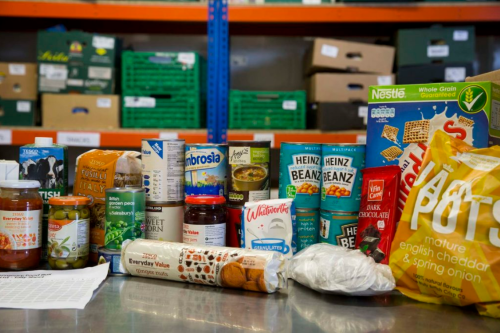 Support your local foodbank
Support your local foodbank
As part of a network of foodbanks, Hammersmith & Fulham Foodbank is able to buy food at wholesale prices, so your money will have the greatest impact if you make a direct donation. You can also donate food at one of the many drop-off points across Hammersmith. You’ll find a full list of the items most needed here.
Phil says, “We have about 12 tonnes of food going out every month. Donations, of food, money or time, are the only thing keeping us going.”
Hammersmith & Fulham Community Compass
If you work for a charity or community group in Hammersmith & Fulham, please consider signing up to Community Compass. It’s a way for people to find the support they need quickly. As Phil says, “There are so many amazing agencies in Hammersmith & Fulham, but often they aren’t aware of all the other help that’s out there. Community Compass is a digital signposting platform aimed at residents, but it will also be useful for organisations. It means we can quickly and easily help somebody to connect with the breadth of support that is out there in our community.”
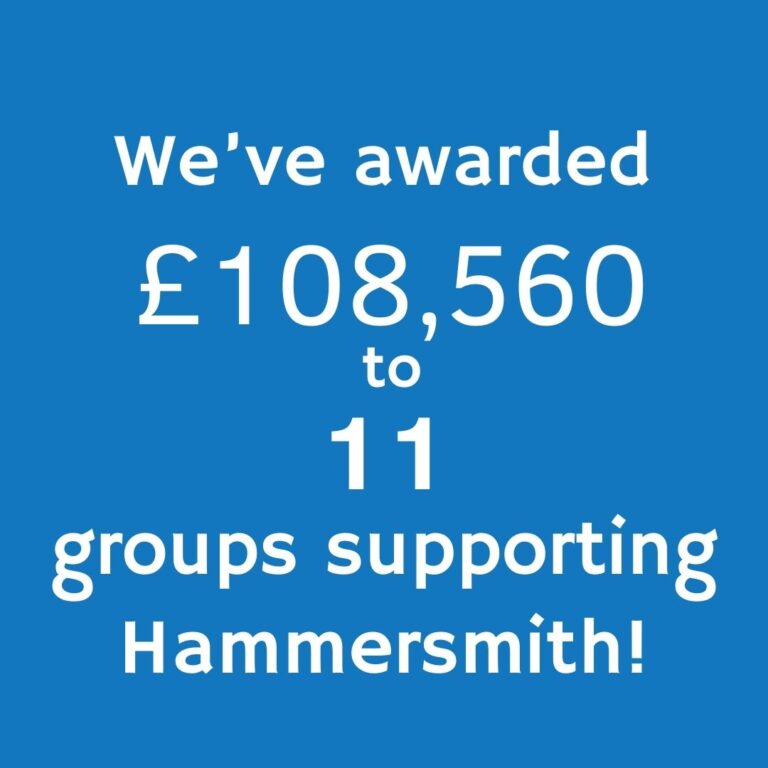
July 2025 grants announced
11 groups have been awarded grants totalling £108,560.
The voluntary sector makes life better for thousands of people in Hammersmith. From counselling to after-school clubs, the services offered by these organisations can be life changing.
We’ve been supporting grassroots causes for many years, by awarding Community Grants to groups that make a tangible impact to people’s lives, including those working to alleviate poverty, enrich children’s lives, and help some of the most vulnerable people in Hammersmith.
Our most recent grant round in July 2025 saw 11 groups awarded grants totalling £108,560. The full list of grant holders is as follows:
White City Theatre Project (WCTP): £15,000
Many organisations need to raise funds to help cover core costs and we’re happy to support this. WCTP is putting its grant towards expenses such as office overheads and practitioner fees, in order to run community youth theatre projects in Hammersmith.
Woman’s Trust: £15,000
Our grant will help Woman’s Trust to deliver 1-to-1, trauma-informed counselling for women in Hammersmith who are affected by domestic abuse. Approximately 13 women will benefit from a combined total of 176 counselling sessions. Read our Woman’s Trust case study here.
For Brian: £15,000
For Brian is using some of its grant to provide a dance programme for people with dementia. The CIC is spending the rest on accessible transport, volunteer expenses and office costs. You can read our interview with For Brian’s founder here.
Urbanwise.London: £14,961
The educational charity will deliver outdoor, nature-based learning sessions for children and their parents at Wormwood Scrubs Open Space each week. It will also run after-school clubs, a summer family event and trips out.
Hammersmith & Fulham Law Centre: £10,000
With the help of this grant, Hammersmith & Fulham Law Centre will provide advice and representation to people on a low income who have had their employment rights infringed. For example, clients could be victims of workplace discrimination and harassment, have experienced trafficking or been unfairly dismissed from their job.
FORWARD: £9,985
The grant will fund the support and supervision of four local community workers, and the training of 10 maternity champions in Shepherd’s Bush, White City and Old Oak.
The RENA Initiative: £7,684
The CIC was set up to ‘Recognise, Empower and Nurture Artists (RENA)’. Our grant will help The RENA Initiative to run its ‘HeArty’ project – bringing health and wellbeing practitioners together with artists to deliver workshops, befriending group outings and mentoring.
Women Aid and Empowerment: £7,000
More women will be able to enjoy weekly classes in chair-based yoga, chair-based exercise and Zumba. Participants will also have longer to socialise after the classes, and be served tea, coffee and snacks. Read our case study on Women Aid and Empowerment.
Amici Dance Theatre Company: £6,000
11 young Amici members who have a disability will be supported to take part in a theatrical production. The grant will help to ensure that their access and travel needs are met and that they have a support worker.
Somali Parents: £5,400
Somali Parents will be increasing its director’s hours from eight to 16 per week to enable more effective administration, project coordination, bid writing, and partnership work.
WiggleWaggle World CIC: £2,530
WiggleWaggle CIC is running 36 Zumba sessions at Family Hub Old Oak Community Centre, two community fun days and a community Christmas party. Our grant will contribute towards the costs.
How to apply for a HUC Community Grant
We’re particularly keen to hear from smaller, local organisations in our area of benefit, which have a strong connection to their community and a working knowledge of the local area. Your project can be one-off or ongoing. What interests us most is the difference you’ll make to the local people most in need.
Please complete our Eligibility Quiz before applying and then contact us at grants@hamunitedcharities.com to tell us about your project. We like to talk to applicants before you apply to get a better understanding of what you’re doing and answer any questions you may have.
Find out more
- Learn more about our Community Grants
- Read our grants FAQs
- Hear from other organisations we’ve supported
- Read more about how to apply
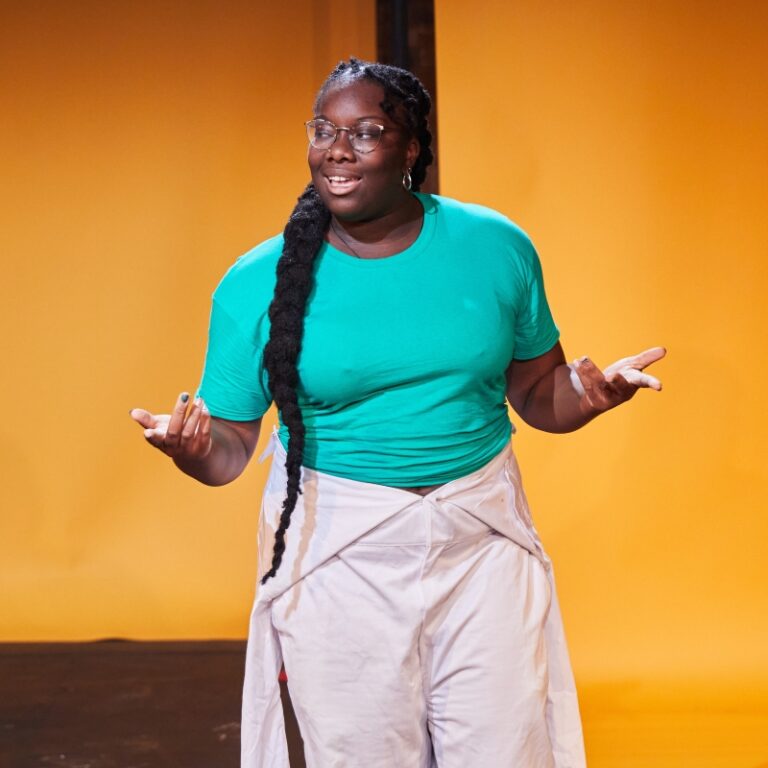
The Bush Theatre
Read how the Bush Theatre’s charity is opening up the world of theatre for young people in West London.
Drama can be hugely beneficial to children and young people. As well as being a lot of fun, it can boost confidence and self-esteem, increase communication skills, and encourage teamwork, collaboration and empathy.
However, drama and other expressive arts are not always taught in schools. Between 2010 and 2023, there was a 42% decline in expressive arts GCSE entries. More than 40% of English state schools stopped offering music and drama GCSEs altogether. Much of the decline is due to cuts in funding, with schools in disadvantaged areas struggling to make up the financial shortfall.
Angela Wachner is the Interim Executive Director and Co-CEO of The Alternative Theatre Company, which trades as the Bush Theatre. She says, “Drama provision in schools is being eroded across the country, so there’s a real need for better access. It’s also clear that people from a global majority or lower income background are underrepresented in all parts of the industry.”
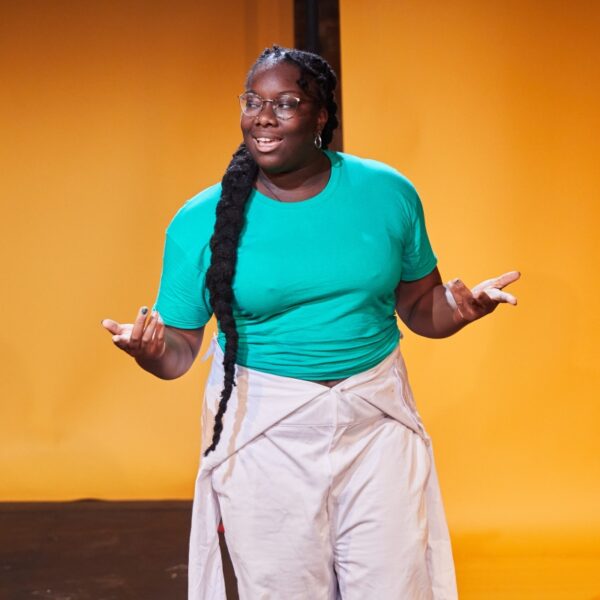
Opening up the world of theatre
The Bush Theatre is working to ensure more young people are able to access drama and theatre, whether that’s through acting, writing or being able to attend live performances.
The charity runs the Bush Theatre and has two Young Companies – one for teenagers aged 14 to 17 and the other for 18 to 25-year-olds. Both meet weekly. Alongside acting, the young people explore storytelling, creative writing and different roles in the theatre industry.
One Bush Young Company member, Tabby, shares, “I have grown in self-confidence hugely. I have more trust in myself and my ideas and have also developed my skills. Everyone at Bush is so genuine and it really encourages me to be the best version of myself.”
The Bush Theatre also offers work experience opportunities and runs workshops for local schools and youth groups.
Angela says, “As well as the theatrical element, it’s about participants exploring their creativity, whether that’s through drama or dance or music or something else. People, particularly younger people, are multi-skilled; they’re dancers and they make magazines and do art and write poetry and all sorts of things. That’s really exciting. We don’t ever want to hinder that creativity by saying, ‘This is how you do theatre.’”
Removing financial barriers
Financial challenges can often make it difficult, if not impossible, for young people to access theatre and drama outside school. Angela says, “Most of our community projects, including our Young Companies, are free and sometimes we’ll offer financial support to engage with a programme. We don’t want to add any additional barriers to accessing drama; there are already so many barriers in place, including a perception that theatres are only for certain people.”
West London schools are offered free tickets to performances at the Bush Theatre. As well as attending the performance, pupils are able to take part in a pre-show workshop and a Q&A with the cast and creative team.
Championing unheard voices
The Bush Theatre’s mission is to “champion, uplift and support unheard voices.” The charity is mainly led by people from a global majority background and it platforms diverse cultures, stories and identities. Angela says, “A lot of opportunities have disappeared in the sector since COVID, and in the context of an increasingly more challenging economic climate. Many people have had to leave the arts because they can’t rely on it for a career anymore. Our charitable aim is to be the giver of opportunities for people so they can take their first step into theatre, or become an audience member, or find out what their own creativity looks like. We’re really conscious of not losing the small gains that we’ve made in terms of increasing diversity within the sector across multiple different metrics, and we want to continue our progress.”
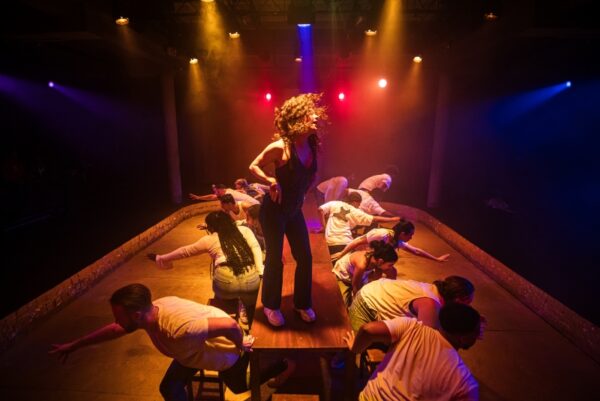
Springboarding careers
Support doesn’t end once a young person has aged out of the Bush Young Companies. Many former young members join the Bush Writers’ Group or take part in adult productions. Six Bloom Bursaries are offered each year, enabling young people who are particularly talented to access financial support and mentorship.
Angela says, “Coral Wylie, who was a member of our Bush Young Company, has just had their debut play staged, which is testament to how well our programmes link together to create a pipeline for people to progress their careers and explore their creativity.
“Our work as a producer of new plays is well-known by local and national audiences. Perhaps less understood, is that to provide everything required to nurture our artists and audiences, we must actively fundraise to secure over half a million pounds every year. We are incredibly grateful to all those who give what they can to support all we hope to achieve together.”
Hammersmith United Charities
We awarded the Bush Theatre a £5,000 grant towards its community work, helping to fund opportunities for 443 young people. Angela shares, “Hammersmith United Charities are really easy to work with. They’re very engaged with the work we’re doing and very supportive.”
Get involved
You can find out more about the Bush Theatre on its website. If you’re interested in joining one of the Bush Young Companies, please email community@bushtheatre.co.uk.
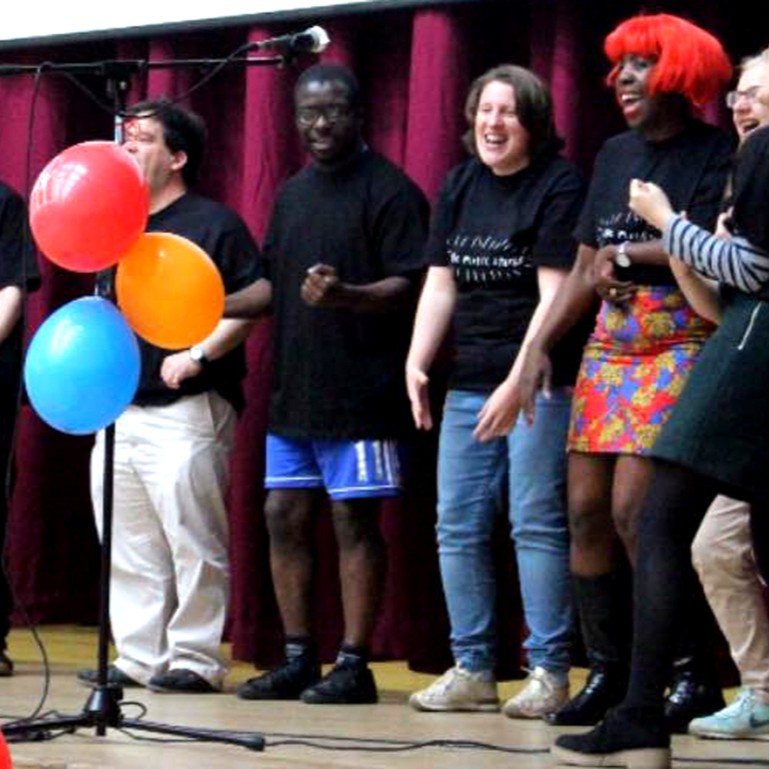
Making the arts accessible
Turtle Key Arts is knocking down barriers to enable more people to take part in theatre, drama, music and other arts projects.
Turtle Key Arts was founded in 1989 as an accessible arts space. Producer Niamh Hanns explains, “The idea was to create an accessible arts venue where people could see performances from a range of artists. While we no longer have that venue, accessibility is still at the heart of everything that we do.”
The charity is now a performance arts company working with a portfolio of dance, circus and theatre companies. Many of the freelance artists it works with have a disability or face other barriers to participating in the arts. Amici Dance Theatre Company, for instance, is a unique inclusive dance theatre company for disabled and non-disabled performers. Amici’s shows challenge conventional attitudes about disability.
Every production includes outreach events, and Turtle Key Arts also runs regular education and participation projects, with a focus on including people who are often excluded from the arts, such as those who are neurodiverse or have a disability. Key Club, for example, is a monthly arts and social club for 18–30-year-olds on the autism spectrum, while Turtle Song is a singing and songwriting project for people living with dementia and their companions and carers.
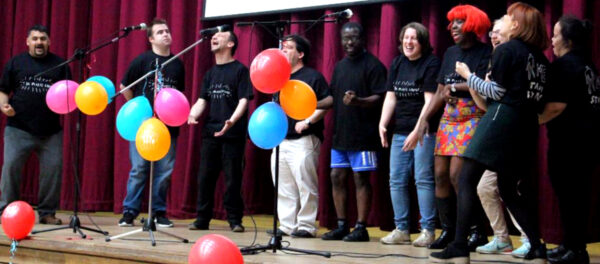
Unlocking creative potential
Niamh says, “The UK is still in a period of austerity where the arts aren’t prioritised and where there are so many barriers to accessing the arts. That has an impact on people’s wellbeing and ability to grow in confidence and to be themselves.
“At Turtle Key Arts, our tagline is ‘Unlocking creative potential’. Everyone has something valuable to bring to the world artistically. Sometimes you need support in doing that, which is why organisations like ours are so important.”
Removing barriers to the arts
To Turtle Key Arts, ‘accessibility’ isn’t just about removing physical barriers. As Ellie Park, a producer at Turtle Key Arts, shares, “We want to remove as many barriers as possible. All our outreach projects are free to participants, as price is often a barrier, especially for younger people. With our dementia project, if transport is a barrier to people participating, then we’ll provide that.”
One barrier that the charity aims to tackle is lack of confidence, particularly for people who are disabled, disadvantaged or socially excluded. Niamh says, “The arts are often seen as something that only certain groups can take part in, so people sometimes think, ‘It’s not for me; that’s not something I can do.’ We make sure that our projects are as inclusive as possible by putting things in place so that people can have that creative output.”
As an example, one of the charity’s projects is Key Words, which supports dyslexic young people to write a play. Participants dictate the lines and actions to scribes, so if they lack confidence in writing things down, that doesn’t become a barrier to being creative.
The impact of Turtle Key Arts’ work cannot be overemphasised. Being able to participate in the arts can improve mental wellbeing, reduce isolation and increase confidence. As the daughter of a Turtle Song participant shared, “I cried silent tears of sorrow, of pride, of happiness, of loss, of admiration, of gratitude and more. Thank you for bringing joy to my mum, for accepting her just as she is and for making her truly happy. I have not seen her smile like that for a long time, today she was my beautiful, intelligent, kind & caring, fun loving mum again.”
The JOY festival
One of the highlights in Turtle Key Arts’ calendar is JOY – a disability arts festival for people in West London, which it runs in partnership with Hammersmith and Fulham Arts Festival and the Lyric theatre. JOY is led by a steering group of disabled artists and practitioners. The festival was relaunched this year, and Turtle Key Arts commissioned a music piece by and for disabled artists. Niamh explains, “A group of disabled people who are musicians or who have an interest in music are working with a professional composer, director and musician to create a new song cycle on the theme of joy. It will then be performed at the Lyric.” Ellie adds, “The participants are aged 18 to 70. It’s good to have something inclusive for all adults, as a lot of opportunities cut off at 25.”
The commission was funded with a grant from Hammersmith United Charities, and the piece was performed at the festival on 3rd July. Niamh says, “Hammersmith United Charities have been really supportive of us and our work on the festival over the years. It’s great to have a really engaged local funder.”
Find out more
If you’d like to take part in a Turtle Key Arts project, please visit the charity’s website: www.turtlekeyarts.org.uk
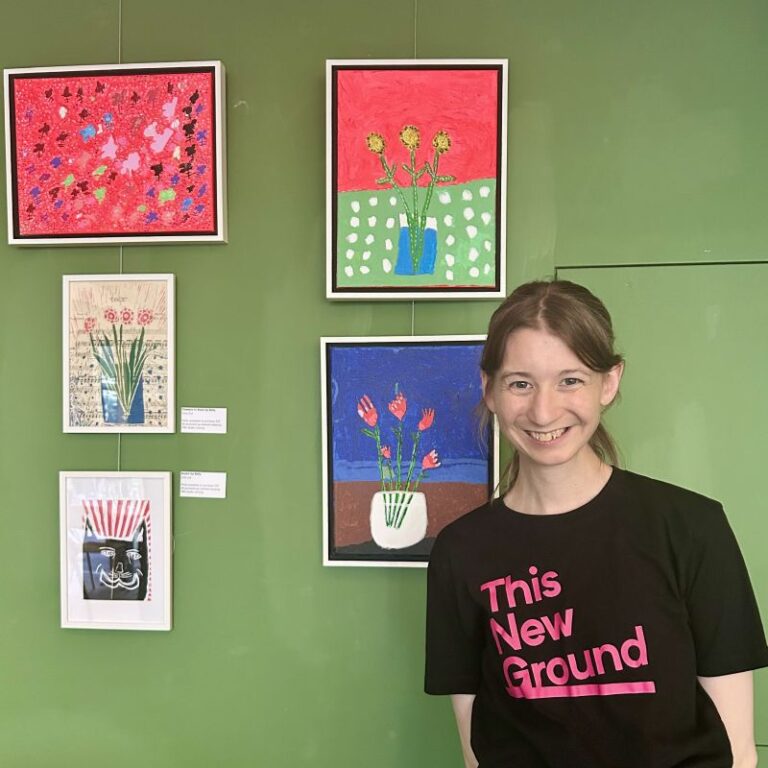
This New Ground
Art and music can often feel inaccessible to people who have a learning disability. This New Ground is helping to change that.
While This New Ground originally started as a choir, it has since grown into a community interest community (CIC) delivering a diverse and ambitious programme of creative engagement – elevating the voices and artistic talents of people who are neurodivergent or who have a learning disability.
The CIC is headed by co-founders Lucy Groenewoud and Nathalie Russell-Clarke. It has two hubs, one in London and one in Portsmouth. Lucy explains, “Nathalie started the choir because she recognised there was a real gap in provision for adults over 25 who have a learning disability. Over the years, this has developed into a thriving creative hub. More recently, we have gone on to open an art studio in the Creighton Centre.”
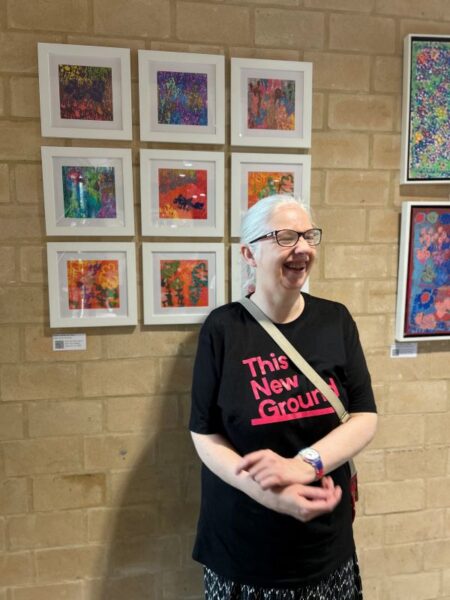
Changing perceptions
Lucy shares, “There’s a long-standing perception that art created by people with a learning disability belongs in community centres. It’s often seen as craft, not art. But thankfully, things are changing. Slowly but surely, cultural perceptions are shifting, and the arts sector is beginning to recognise the value, depth and complexity of work by neurodivergent artists and artists with a learning disability.
“A powerful example is Nnena Kalu, a phenomenal artist with a learning disability, who has just been nominated for the Turner Prize – one of the most prestigious awards in contemporary art. Her recognition marks an important moment of visibility and validation for many others still fighting to be seen.
“We’re working to challenge outdated and negative perceptions around learning disability and creativity. Our goal is to get the work made by artists in This New Ground seen, valued and celebrated by wider audiences.
“One exciting step in that journey is our new partnership with Lush, who are transforming artwork by some of our artists into beautiful Knot Wraps and greetings cards. For the artists, it’s more than just visibility – it’s the powerful realisation that, ‘Actually, this is something I could have a career in.’ It’s about recognition, opportunity and a sense of real creative ownership.”
Offering paid work opportunities
Research by Mencap shows that just 26.7% of people with a learning disability are currently in paid employment. This New Ground is able to offer two avenues for paid work. Firstly, it helps artists to sell their work. Secondly, it hires them to support businesses who want to make their communications more accessible.
Lucy says, “We believe in the voices and the talents of people with a learning disability and of those who are neurodivergent. For us, it’s really important that people have the opportunity to experience paid work and being in a workplace.”
Tackling isolation

Along with creativity and employment skills, there are many other benefits felt by This New Ground participants. Lucy says, “Isolation is a really big factor for a lot of the people we work with. A lot of them don’t have support, they live independently and they aren’t working, so our sessions are a social lifeline where they can develop relationships. Singing and creating art also increases confidence and gives people a real sense of achievement. Creative spaces like ours offer community, expression and connection in ways that are truly transformative.”
Martin, a participant at This New Ground’s art group, says, “It’s about getting out and about and meeting new people and being artistic. I didn’t think I had any art skills, but clearly I do, and I have grown to enjoy art.”
Platforming people with lived experience
Lucy and Nathalie want to ensure that people with a learning disability can help to guide and steer the CIC. Lucy shares, “We’re working to diversify our leadership and have people with lived experience on our leadership team.”
The Hammersmith choir is now peer-led, with a keyboardist and drama facilitator on hand to offer support.
Hammersmith United Charities’ support
“Quite often people will come in and say they don’t have enough money to buy food,” says Lucy. The Creighton Centre has been able to organise food vouchers, and Hammersmith United Charities has provided This New Ground with a grant to help cover running costs.
Thanks to grant funding and volunteer support, the CIC is able to keep the art club and choir free for participants. At a time when many are facing deep financial hardship, this means access to creativity, connection and community remains open to everyone.
Lucy says, “We’re incredibly grateful for the funding we receive; we wouldn’t be able to operate without it. It enables the whole group to take part in a vital weekly social activity – something that makes a real difference to people’s lives.”
Get involved
This New Ground activities are held at the Creighton Centre, 378 Lillie Road, London SW6 7PH.
TNG Studio: Open Tuesdays, please email lucy@thisnewground.com if you’d like to join a supported studio session.
Art group: Tuesdays, 1–2.30pm
Singing group: Tuesdays, 3–4pm
The groups are free to attend. Please email lucy@thisnewground.com if you’d like to join.
Work by This New Ground artists is being exhibited at Sands End Arts & Community Centre until 31st July 2025.
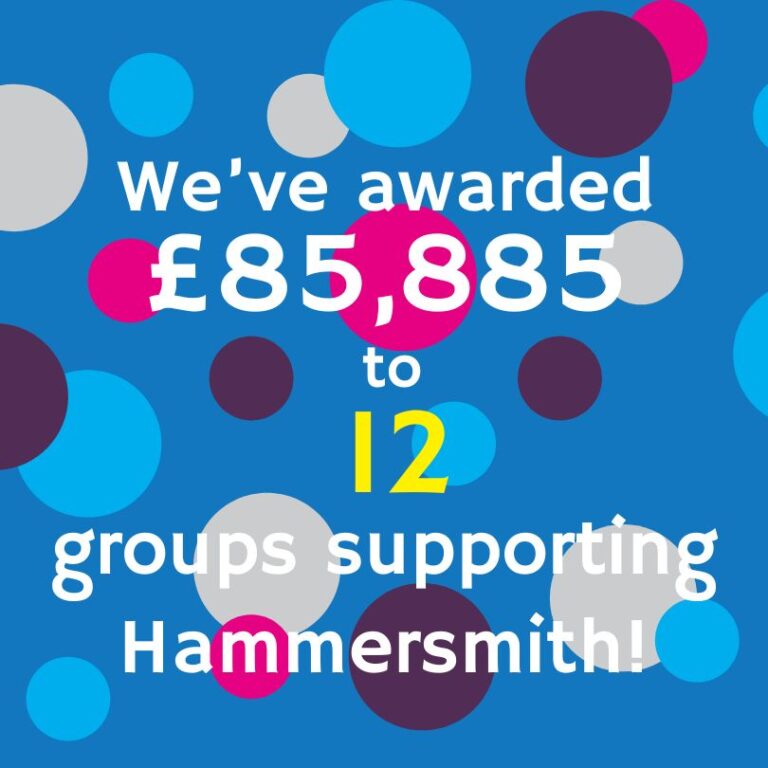
February 2025 grants announced
12 groups have been awarded grants totalling £85,885.
Hammersmith is a vibrant, welcoming area with numerous charities and other local organisations making a positive difference to people’s lives, day in, day out. We’ve been supporting these grassroots causes for many years, by awarding Community Grants to groups that make a tangible impact to people’s lives, including those working to alleviate poverty, enrich children’s lives, and support some of the most vulnerable people in Hammersmith.
Our most recent grant round in February 2025 saw 12 groups awarded grants totalling £85,885. The full list of grant holders is as follows:
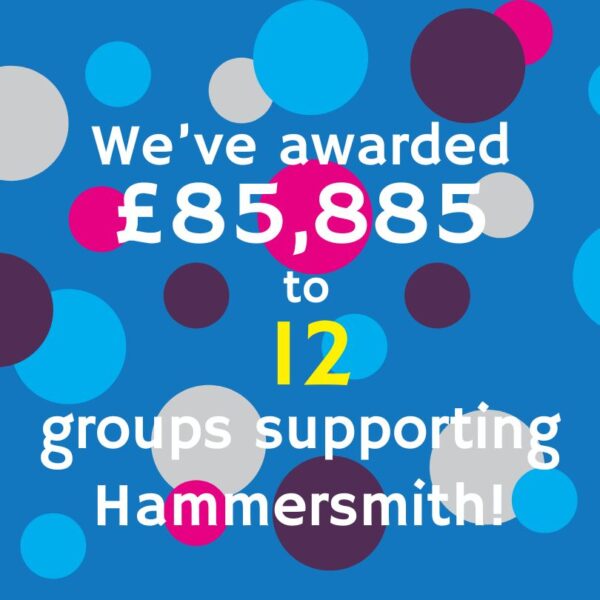 John Betts Primary School: £12,200
John Betts Primary School: £12,200
The grant will enable up to 28 children to receive play-based therapy, helping them to thrive at school and beyond.
Urban Partnership Group: £10,000
The 13-week Strengthening Families programme funded by our grant will help 15 inmates at Wormwood Scrubs to strengthen ties with their families.
Age UK Hammersmith & Fulham: £9,052
Age UK’s Shopping Service helps housebound and/or disabled older people to retain their independence. You can read more about the service in our case study.
Kulan Foundation: £7,500
The Kulan Foundation provides a range of services for people from a global majority background. The charity is putting its grant towards staffing and premises costs so that it can continue its popular homework club, parent workshops and other projects.
Dads House: £7,300
The grant will fund the energy costs of Dads House’s food bank, lunch club and family law clinic, as well as providing essential supplies for single fathers and their families.
The Reanella Trust: £7,200
With the help of our grant, The Reanella Trust is able to offer mental health counselling, mentoring and group activities for Black children who are disabled or who have bipolar. Read our case study here.
The WILDE Foundation: £6,550
The WILDE Foundation is using its grant to help it run ‘Women Heal’ workshops, which support women to manage grief, trauma and mental ill-health, and to run local activities such as its Writers Festival.
Hammersmith and Fulham Foodbank: £6,185
Hammersmith and Fulham Foodbank relies on volunteers to create food parcels and support people in crisis. Our grant will enable the charity to train volunteers in areas such as ‘conversations with vulnerable people’ and ‘mental health awareness’.
Community Massage London CIC: £5,898
The grant will fund massage and reflexology sessions for people who may otherwise not be able to access them.
Solidarity Sports: £5,000
Solidarity Sports works with disadvantaged children who are recovering from complex trauma. The focus is on transformational play-based activities. Our grant will help to fund equipment and other expenses for children under 5.
Turtle Key Arts: £5,000
The grant will fund performance art by and for disabled artists in the borough, to be performed during the JOY festival.
Grove Parent and Toddler Group: £4,000
The Grove Parent and Toddler Group gives adults and children a fun, supportive place to come together each week. The grant will be put towards staffing and location costs. Read our case study here.
How to apply for a HUC Community Grant
We’re particularly keen to hear from smaller, local organisations in our area of benefit, which have a strong connection to their community and a working knowledge of the local area. Your project can be one-off or ongoing. What interests us most is the difference you’ll make to the local people most in need.
Please complete our Eligibility Quiz before applying, and then contact us at grants@hamunitedcharities.com to tell us about your project. We like to talk to applicants before you apply so that we can get a better understanding of what you’re doing and answer any questions you may have.
Find out more
- Learn more about our Community Grants
- Read our grants FAQs
- Hear from other organisations we’ve supported
- Read more about how to apply

Making exercise affordable for all
Women Aid and Empowerment brings people together through Zumba.
From park runs to salsa classes, group exercise is a great opportunity to socialise, get fit and have fun. However, monthly membership fees can make exercise unaffordable for people on a low income. What’s more, as Hanna Teffera shares, “Many people find going to the gym difficult for other reasons, including subtle racism, ageism, body shaming, or the pressure to keep up with high-intensity classes that are too challenging for people with mobility difficulties or reduced fitness.”
Women Aid and Empowerment
 To address these barriers, Hanna partnered with two other women to set up Women Aid and Empowerment. She explains, “We decided to set up our own community interest company after hearing that a popular programme, which offered free fitness classes for women in White City, was closing. We realised that most of the women in our community are economically disadvantaged and would struggle to afford to join a gym. They were very upset about losing the free classes as this was often their only opportunity to exercise and socialise with other people.”
To address these barriers, Hanna partnered with two other women to set up Women Aid and Empowerment. She explains, “We decided to set up our own community interest company after hearing that a popular programme, which offered free fitness classes for women in White City, was closing. We realised that most of the women in our community are economically disadvantaged and would struggle to afford to join a gym. They were very upset about losing the free classes as this was often their only opportunity to exercise and socialise with other people.”
The CIC now runs classes in Zumba, chair-based yoga and chair-based exercise at three locations in Hammersmith & Fulham, including White City Community Centre. Unlike most exercise classes, these ones are free and welcome people of all abilities. Hanna is a professional fitness instructor so leads the classes. One participant, Eunice, says, “Hanna’s chair-based exercises have been a game-changer for me! Her classes are not only accessible but also incredibly effective. I’ve noticed significant improvements in my strength and flexibility, all while having a great time.”
Crucially, the classes also give people the chance to socialise afterwards. Hanna shares, “I have a lot of retired and widowed people attending. Many used to be active but had become ill or disabled. Some had become isolated in their home. Since coming to the class, their health has improved and so has their loneliness, as they feel that they have somewhere to go. They talk after class, meet up with each other and feel more connected with their community.
“For instance, one lady was very lonely. All her children had left home so she was by herself. Because of our class, she has found a best friend. Another lady became very depressed after losing her son. Doing exercise and seeing other people has really helped her.”
Participants have also reported other health benefits, including improved sleep and reduced stress.
One regular participant, Joanna, shares, “Hanna’s exercise sessions are a fantastic way to socialise and meet new people! Her warm and welcoming approach creates a friendly atmosphere where everyone feels included. Not only do we get a great workout, but we also have the opportunity to connect and build friendships. I’ve loved getting to know others while staying active, and Hanna’s positive energy makes every session enjoyable. It’s the perfect blend of fitness and fun.”
Find out more
Women Aid and Empowerment runs Zumba, chair-based yoga and chair-based exercise classes at:
- White City Community Centre
- Matthew Hall Community Centre
- Acton Vale
- Chiswick Town Hall
For more details and to book, visit https://waelondon.org/ or contact Hanna on h.teffera@yahoo.co.uk, 07383 117676.
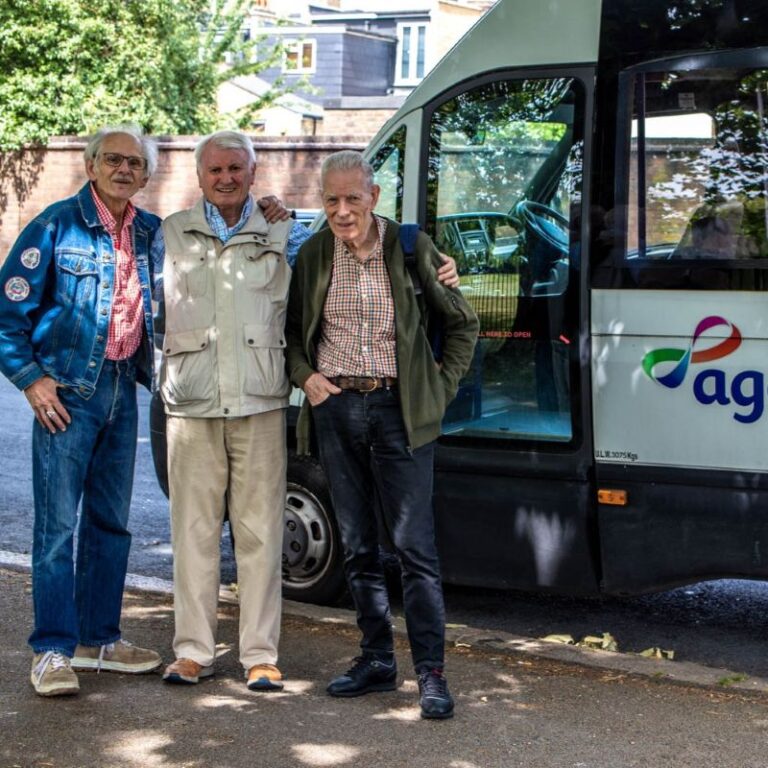
Tackling loneliness for people who are housebound
Age UK Hammersmith & Fulham’s Shopping Service help older people to retain their independence and social life.
According to Age UK, almost one million older people in the UK often feel lonely. Without the social structure of a workplace or chatter at the school gate, it can be all too easy to go for days without speaking to another person.
Age UK Hammersmith & Fulham helps to bring older people together. From a lunch club costing just £2, to bingo, a music club, arts & crafts activities and yoga, there are a wide range of weekly activities to choose from.
The Shopping Service
Loneliness can be particularly difficult for people with mobility issues who struggle to leave their house so can’t reach the charity’s activity centre. For these people, the charity’s Shopping Service provides a crucial lifeline, helping them to retain their independence and meet up with friends.
Jordan, the minibus driver, and Noel, a volunteer, pick clients up from their homes and take them to the supermarket. Some clients are accompanied by a care worker or family member, but most are happy to travel on their own as Jordan and Noel are on hand to help with wheelchairs and can offer assistance in the supermarket if people need it. Many of the charity’s clients would otherwise be unable to do their own shopping, and for some, this could be the only time they leave the house. As one client, John, shares, “Getting out for that morning has been the highlight of my week.”
Richard Ashe is the Fundraising Manager at Age UK Hammersmith & Fulham. He says, “The Shopping Service is vital for our housebound and disabled clients. Some of these clients used to come to our activity centre. They’d come for lunch or a yoga lesson for example, but bit by bit, their mobility has deteriorated, or other circumstances have come up, which means they now can’t attend. The Shopping Service gives clients a bit of normality back.”
Social interaction
Groups of around eight clients travel to the supermarket together at the same time each fortnight. As a result, they get to know one another. As Richard says, “It creates a little community. Everyone’s chatting. It seamlessly blends social interaction with a core life activity.”
One client, Michael, shares, “I feel like I’m part of a group! One week I didn’t feel well enough to go shopping; the next, everyone said they had missed me. How lovely is that?”
Tailored to clients
Most weeks, the minibus heads to the ASDA Superstore, so people can buy clothes and other essentials as well as food. However, the service is guided by the clients. Richard shares, “Sometimes they want to do something different so will go to Sainsburys or Tesco, particularly if one of them needs something in particular.” The charity also surveys its clients regularly to check that they’re happy with the service and whether they want to change anything.
If a client needs extra support, for example because their carer is away, the charity can usually arrange for another volunteer to come along. Richard has accompanied them a couple of times himself.
The Shopping Service costs just £3 as it’s subsidised by Age UK Hammersmith & Fulham, with the help of a grant from Hammersmith United Charities.
Age UK Hammersmith & Fulham also offers a befriending service. The charity’s Volunteering Manager aims to match clients with volunteers who have similar interests. Richard says, “Some of them will go out to the theatre together. One pair sit down to have a good game of chess every week.”
In Hammersmith and Fulham, 40% of people over 65 live alone, and 25% have a long-term health problem. For those who need support, even if it’s just a friendly chat or the chance to meet new people, Age UK Hammersmith & Fulham provides a crucial service.
Find out more
If you want to find out more about the Shopping Service or volunteering, visit www.ageuk.org.uk/hammersmithandfulham

Grove Neighbourhood Centre Folk Art Group
“Art class connects me to others through the simple pleasure of just enjoying playing with paints.”
 The Grove Neighbourhood Centre Folk Art Group has been running since the 1970s. To begin with, the group created decorative painted objects as seen on canal barges, but over the years it’s turned into a community of people who enjoy many forms of creativity. They’re led by art teacher Rachel Leach. While Rachel will often bring something along to inspire members’ creativity, there’s no pressure to follow a particular theme, so people will often just ask for her advice on a piece they’re working on or try something new. The group uses a variety of materials, including watercolours, acrylics and charcoal.
The Grove Neighbourhood Centre Folk Art Group has been running since the 1970s. To begin with, the group created decorative painted objects as seen on canal barges, but over the years it’s turned into a community of people who enjoy many forms of creativity. They’re led by art teacher Rachel Leach. While Rachel will often bring something along to inspire members’ creativity, there’s no pressure to follow a particular theme, so people will often just ask for her advice on a piece they’re working on or try something new. The group uses a variety of materials, including watercolours, acrylics and charcoal.
People are welcome to attend whether they’ve been painting for years or have barely picked up a paintbrush since their schooldays. Carey Whitley is Chair of the group and has been a member for 18 years. She shares, “When I first came, I was very nervous, because I’d been told at school, ‘’You can’t do art,’ and I believed it. I happened to go to a fete at the community centre and was attracted to the art group’s stall, which was vivid in colour. Colour always speaks to me, so I nervously went to a class and said, ‘Please don’t ask me to draw. I just want to play with colour.’ I spent the first three weeks just painting a colour wheel, which was great fun!”
Tackling loneliness through art
As well as helping people to improve their art, the group gives members the chance to socialise with other art lovers. Carey says, “We provide a place where it is easy to nurture new friendships, which often go beyond our weekly art sessions. It’s a very sociable group. Everybody is focused on what they’re working on, but we chat about art exhibitions that people may have been to, or something that may have inspired them, or how wonderful all the new spring leaves are, etc. It’s just nice to have a shared enthusiasm and interest that everyone can talk about, especially as around half of the group live alone and around 80% are retired.”
As one member says, “Art class connects me to others through the simple pleasure of just enjoying playing with paints.” Another artist attends partly because it’s, “a great place to meet new like-minded creative friends and revive my own artistic flair in pleasant surroundings.”
Many members of the group head to the pub together after each class, and some regularly visit the V&A. The group also goes on occasional outings and has attended summer courses in Devon and Somerset.
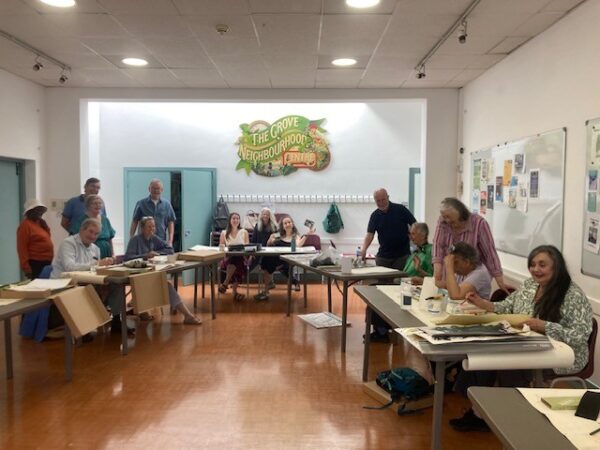
Art for mental health
Art can benefit people’s mental wellbeing in a number of ways. According to the Mental Health Foundation, “Participating in the arts can enable people to deal with a wide range of mental ill-health conditions and psychological distress. The best part is that it helps people to improve their mental health through creativity. Making art is helping many people express themselves, without having to use words.”
Rachel shares, “One lady has just returned having had cancer and been homeless. She’s really suffered but she loves to come along, and she loves being with people, and it really, really helps her. It lifts her spirits.”
Hammersmith United Charities’ support
The Grove Neighbourhood Centre Folk Art Group has received a number of grants from us over the years, which it’s used to part-fund the cost of paying Rachel and hiring the neighbourhood centre. Carey says, “I don’t think that the group would have survived about four years ago if we hadn’t been able to get a grant.”
Thanks to our grants, the art group has been able to keep subscription costs affordable for members, some of whom would otherwise struggle to attend.
The need for the art group cannot be overemphasised. As one member says, “It’s inspiring and relaxing to make art surrounded by lovely people while having tea and biscuits!”
 Find out more
Find out more
The Grove Neighbourhood Centre Folk Art Group meets on Wednesday afternoons, 2.30pm – 4.30pm. Drop-ins are welcome and pay £7 – £10, depending on their income.
Grove Neighbourhood Centre
7 Bradmore Park Road,
Hammersmith, W6 0DT
“I cherish the lightness and banter between all us amateur artists; the encouragement and support from everyone has made a big difference to my confidence – and when I miss a class I really notice the difference.” A member of The Grove Neighbourhood Centre Folk Art Group


Celebrating Volunteers’ Week
It’s Volunteers’ Week, and we’re celebrating the contribution made by the thousands of people who help Hammersmith to thrive.
Volunteers are the lifeblood of the voluntary and community sector. Without them, many charities simply wouldn’t exist and people wouldn’t get the support they need, whether that’s mentorship, financial advice, therapeutic support or a myriad of other services that volunteers provide, day-in, day-out across Hammersmith.
Victoria Hill, Chief Executive & Clerk to the Trustees at Hammersmith United Charities, says, “Last year, more than 2,000 people volunteered for the organisations supported by Hammersmith United Charities. Doorstep Library, for example, places volunteers at the very heart of its service. Almost 200 people volunteer through the charity to read books with children, helping to improve literacy and inspire a love of reading.
“In fact, every single one of our grant-holders relies on volunteers in one way or another. Hammersmith United Charities is no different. Volunteering is in our ethos. Many of our staff members and almshouse residents are themselves volunteers. I myself have volunteered as a Trustee of StreetGames and St Martin-in-the-Fields Charity for many years. In turn, I rely on the skills and guidance of our volunteer Trustees at Hammersmith United Charities.”
Our Head of Grants and Community, Paul Robson, regularly volunteers for Age UK Richmond upon Thames. He visits older people in their homes to help them fill in forms to get Attendance Allowance, a Blue Badge or a Freedom Pass.
Paul says, “I volunteer because I get a big kick out of being helpful to people in a practical way. Benefit forms are really daunting if you are not used to them, so it is rewarding to use my skills to help. Also, I love chatting to the people I visit about their experiences of living in the area where I grew up.”
Paige Windust, our Grants and Communications Officer, shares, “Prior to working in the charity sector, I volunteered as a UKiset and Occupational English Test teacher at RefuAid, and as an administrator at Refugee Action, Kingston. I wanted to support individuals who were rebuilding their lives in the UK after experiencing forced migration, and did so by helping them prepare for a range of equivalency examinations in order to retrain in their chosen fields.”
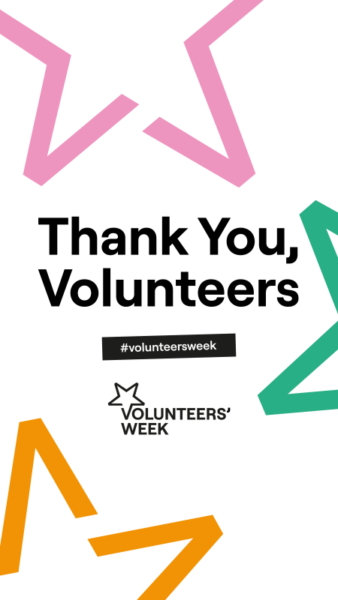 The benefits of volunteering for charities and their clients
The benefits of volunteering for charities and their clients
According to the Royal Voluntary Service, volunteering adds £4.6 billion to the economy per year.
Volunteers enrich charities in many ways. They share skills gained through their employment, education or life in general, and provide an extra pair of hands – often delivering services that the charity could otherwise not afford to run.
Stephan Wiedmer, Branch Manager at Crosslight’s Hammersmith office, says, “One of the benefits of volunteers is that they have time to really listen to clients. After meeting with a Crosslight volunteer, clients often tell us that it was the first time someone took the time to sit down with them and listen carefully to what they have to say. That makes such a huge difference.”
Many volunteers have lived experience of the issue that the charity is tackling. Volunteers can also provide new perspectives, opinions and approaches. They can help a charity to look at a problem from a different angle, gain a better understanding of the local community and identify opportunities to improve.
The benefits of volunteering for individuals
Of course, volunteers themselves also benefit from the time they spend supporting their community. Volunteering is a great way to meet new people, use your existing skills, learn new skills, boost your CV and feel good about giving back to your community. As Paige says, “I learnt a lot about the real-life impact of humanitarian crises, and the skills I learnt helped me enormously in my job as a teacher, and later in the charity sector when working in a community as diverse as H&F.”
Catherine Johnstone CBE, Chief Executive of Royal Voluntary Service, says, “Volunteering is a very effective means to improve confidence and skills and show commitment to an organisation, helping both the employed and unemployed boost their employability and prospects.”
Finding the right volunteering opportunity
There are numerous volunteer roles available across London. Before you start your search, you may want to consider which issues you want to help to tackle, and the skills and interests you have to share. Whether you’re a whizz with spreadsheets, love cooking or football, or are great at problem solving, there will be a charity who would welcome your help. As Michael Angus, Director of Barons Court Project, says, “We’ve had volunteers in to teach drumming, yoga, creative writing, drama and all different things.”
You could support the strategic direction of a charity by becoming a Trustee, work directly with a charity’s clients as a mentor or adviser, or support a charity through admin, marketing, fundraising or similar work. You can also choose to give your time weekly, monthly, or on a one-off basis.
In short, whatever your interests, skills or availability, if you’re keen to volunteer, the perfect opportunity is waiting for you to grab it. Get in touch with local groups working in a sector that interests you, or find volunteering opportunities through:
Whatever volunteer role you decide to do, thank you!
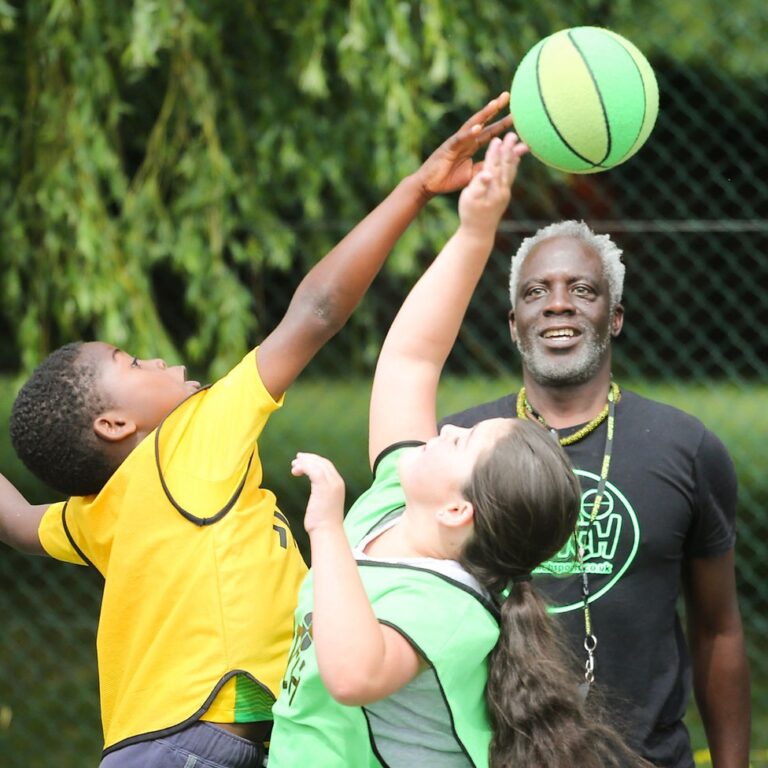
Community Switch Sports
The Hammersmith CIC that’s getting more kids into sport.
As a child, did you ever stand on the sidelines of a football match wishing you could join in but feeling unable to? Sport has numerous benefits, from mental and physical wellbeing to boosting skills such as perseverance and resilience, and yet less than half of all children get the recommended 60 minutes of physical activity a day.
There are many reasons for this. Cost is a considerable barrier. According to Sport England, children from the least affluent families are far less likely to meet the recommended 60 minutes than those from more affluent families (45% compared to 57%). When you consider that kids’ sports clubs are often private organisations that charge £70+ an hour for a pitch, it’s hardly surprising that less affluent families are often priced out.
Confidence is another barrier. Many children don’t see themselves as ‘sporty’ and aren’t confident enough to put themselves forward to play.
Accessible sport
Community Switch Sports is giving more children in Hammersmith the chance to enjoy sports. Co-Directors Danny Hibbert and Lucy Wragg have created a space where everyone feels included and able to participate. One way they’ve done this is by inventing a whole new sport – switch.
Unlike most other sports, switch can be played by mixed-gender, mixed-ability and mixed-age teams of three, five or seven players. It brings together five different sports: football, basketball, handball, volleyball and netball. Danny explains, “The pitch is split into three sections. The middle section is only for football. The two end zones are where you score and are for all the hand sports. You’ve only got seven seconds with a ball in your hands, though, so you have to pass it; it’s not just about you. With switch, everyone gets involved. You don’t need a high level of skill to play. You see kids realise, ‘OK, this isn’t as hard as it looks. I can do this.’
“A lot of the kids that play switch don’t play other sports. Switch is their sport, for them. They feel really included as they can all do their bit. If they’re not great at kicking the ball, they might be good at throwing or catching it. Seeing kids playing a game that came from my mind is pretty amazing. I feel really fortunate to be doing what I do.”
The CIC runs free community switch sessions, and the sport is also played at several local schools. Switch isn’t just growing in popularity in the UK; Danny has taught the sport to PE teachers across Jamaica. He says, “I’ve been invited over to Jamaica twice. Both my parents were Jamaican, so to go to their country and take my sport there was just amazing.”
Affordable sport in Hammersmith
Along with switch, the CIC runs football clubs for children aged four to 13. A key aim is to make sport affordable, so families on Universal Credit pay just £3.50 a session per child. The CIC’s holiday clubs are £1 a day for members and give children the chance to try a range of sports, from athletics to rounders, and to go on day trips. Danny says, “Social mobility is very important for these children. Some of these kids are stuck on this estate day-in, day-out, never going anywhere, so we like to take them out to the beach and other places.”
He adds, “I’ve been that child who couldn’t afford to go to holiday clubs. I’ve been the dad who couldn’t afford to send his kids. So, that’s why I do this. For me, sport should be as affordable as it can possibly be. Otherwise, you’ve got kids standing on the sidelines, watching others playing sport where they live, but they can’t afford to join in.”
One of the reasons that Community Switch Sports can afford to keep costs down for children is because it’s able to use three of the pitches at Hammersmith Park (also known as BBC Park) for free. However, that almost wasn’t the case. Danny explains, “About eight years ago, a company turned up and said, ‘We’re putting 10 pitches in this park and we’re going to charge you to use them.’ The community said, ‘No. This is our park. We’ve been playing here for free all our lives. If you want to be part of that, you need to give us something in return.’ In the end, a woman called Virginia Ironside took them to court and we won! We got three pitches for free, for all the kids from around this area to use.”
There are currently no local children’s football leagues, so the CIC is partnering with other clubs to start their own league. Danny says, “You can only train children for so long before they want to compete. They need to compete. It gives them so many life skills.”
As well as giving local children the chance to play sport, Community Switch Sports offers work experience and employment opportunities. Danny explains, “Most of our staff were kids who came to our sessions; I’ve known some of them since they were five or six. Several of our coaches have since moved on to work in other jobs in sport.”
Hammersmith United Charities’ support
Community Switch Sports is celebrating its tenth anniversary this August. Over the years, the CIC has received several grants from Hammersmith United Charities. Danny says, “HUC has always been part of our journey. They helped to start us off. One of the great things about the grants is that we can use the money to pay our staff, which you can’t always do with grants.”
Get involved
If you love sport and believe more children should be able to access it, then Danny would love to hear from you. He says, “We’re always looking for new people to help out. We’ve got a lovely community, with lovely kids, so whether you’re 14 or 60, get in touch.”
Find out more at: www.switchsports.co.uk

The Reanella Trust
Targeting mental health support to under-served Black communities.
The Reanella Trust launched during the pandemic as an online support group for young people, to help tackle isolation during lockdown. However, as Project Manager Katy Cooper explains, “We were so inundated with requests for support during that time that we applied for official registration with the Charity Commission in 2021. We thought, ‘We can’t just leave these young people without support.’ We chose the name Reanella because that was the name of our founder’s best friend. She lost her life to suicide in 2002 due to unsupported mental illness.”
The charity now runs targeted projects lasting six to eight weeks for children and young people aged between eight and 25. Each cohort of 30–40 people is able to access online group workshops and one-to-one support, delivered by a qualified, accredited psychologist. They can also take part in face-to-face activities, such as cookery and sport.
The impact of these Resilience Recovery Relief projects can be transformative, as one service user, Ginger, explains:
“Resilience Recovery Relief has given me the tools and encouragement I have desperately needed to overcome the negative thought patterns that held me back for so long. The inclusive environment provided by the project has allowed me to heal from the physical abuse I endured as a child. I’m now in a positive headspace to pursue education and start looking towards my future. I can’t thank the project and staff enough for helping me rediscover my worth and potential.”
R. Demetrius, one of The Reanella Trust’s clinical psychologists, adds, “I’ve witnessed remarkable transformations in the young individuals I’ve worked with through this project. The one-to-one therapy provided a safe space for them to heal, grow, and develop essential coping strategies.”
Three of the projects, offering around 120 places in total, have been funded with grants from Hammersmith United Charities.

Focusing support on under-served communities
The Trust has narrowed its focus over the last few years and now primarily works with two target groups:
- Black and disabled children and young people
- Black children and young people who have bipolar
Katy explains, “We’re quite a small organisation and wanted to focus on addressing a need that wasn’t being otherwise supported. We’ve developed relationships with these particular communities and demographics and people keep coming back to us for support. So, we kind of allowed the communities to direct and inform how we supported them.”
Black-led support
The Reanella Trust is a Black-led organisation and mainly focuses on providing support to Black children and young people. Katy explains, “While there’s been a very positive shift in understanding cultural differences, nobody can understand those nuances more than somebody with that lived experience. So that’s what we’re trying to inculcate into our provision.
“Black people, as a whole, don’t tend to gravitate towards traditional methods of mental health support. Back in the 60s and 70s, a lot of Black people with mental health difficulties were sectioned; a huge proportion of that demographic, who could have had support in the community, were basically written off. So, there’s historic mistrust and apprehension about the intentions of some supportive industries. There’s also a ‘stiff-upper-lip’ attitude; Black people don’t always believe that mental illness needs supporting.
“We’re trying to shift that perspective. As we’re a Black-led organisation, parents are maybe more open to us coming into their families and saying, ‘We can help you. Your children can benefit from external support.’ We’re able to immerse ourselves into these families in a way that other organisations may not be able to.”
Meeting an intermediate need
The majority of The Reanella Trust’s service users are on the waiting list for support from CAMHS (children and adolescents mental health services). However, as Katy says, “Some of these young people have been on the waiting list for over a year. We’ve lost service users to suicide in that time and self-harm is escalating. We’re just trying to provide intermediate support whilst they’re waiting for CAMHS.”
R. Demetrius adds, “We are all aware of the limitations of NHS services and the long waiting lists make it nearly impossible for young people who are struggling to receive timely help. The work The Reanella Trust is conducting is so important and the team works hard to help all of the young people who enrol.”
Supporting families
Katy says, “Often parents are unintentionally overlooked by mental health services, but the severe challenges experienced by young people have repercussions on siblings and parents. So, we provide a holistic and wraparound supportive service for the whole family.”
The trust’s aim is to ensure that parents and carers have the tools to support their young people after the project has finished.
The foster parent of one service user shares, “I have seen firsthand the positive effect that this project has had on our family dynamics and home life. The support and resources provided have not only improved J’s mental well-being but have also strengthened our family bond. We now have a better understanding of their needs and J is more capable of letting us know what she is feeling, and the tools she has gained have helped create a more supportive and nurturing environment for everyone.”
Offering ongoing support
The Trust’s support doesn’t stop completely at the end of a project. Many of the children and young people will return in a subsequent cohort. Katy shares, “We keep in contact with them between projects. Our plan is to train previous service users to support other young people. Whilst that helps our new cohorts, it also gives those previous service users a sense of purpose and keeps them engaged.”
Mental Health Awareness Week
12 to 18 May 2025 is Mental Health Awareness Week. This year’s theme is ‘Community’. Katy says, “Awareness weeks like this are very important, as long as they reach a broad demographic of people.
“They can help people who are struggling with mental illness to know that they’re not alone – that there are other people in a similar situation. It also raises awareness amongst people who might be unaware of what mental health challenges actually look like on a day-to-day basis, and how people can be supported.”
Find out more
The Reanella Trust relies on grants and donations to fund its work, and many of its team members are volunteers. If you’d like to find out more, please visit: www.reanellatrust.org
If you or your child are awaiting a CAMHS referral, the following charities may also be able to offer support:

Changing children’s lives through art therapy
How Wendell Park Primary School is using art to help children improve their mental health and resilience.
From stress and anxiety, to eating disorders and depression, mental health issues are on the rise, including amongst children. According to the NHS, around one in five children aged 8–16 have a ‘probable mental disorder’.
There are many reasons for poor mental health, including cyber bullying, family breakdowns, academic pressure and the impact of the pandemic. Socio-deprivation also plays a role; children with a probable mental health disorder are more than twice as likely as their peers to live in a household that has fallen behind with rent, bills or a mortgage.
Early intervention can have a huge impact on a child’s life, helping them to learn coping mechanisms and to increase resilience before a mental health issue becomes a crisis. However, CAMHS (children and adolescents mental health services) are struggling to meet demand, which has led to long delays for support. While the average waiting time is 108 days, some children are forced to wait for two years or more before accessing government-funded support. Many children do not qualify for CAMHS support at all, even if their day-to-day life is being impacted by poor mental health.
Without support, mental health issues can worsen, escalating from relatively mild symptoms to crisis point. More than one in four young people under 25 reported that they’d tried to take their own life as a result of having to wait for mental health support.
Wendell Park Primary School
 Wendell Park Primary School has been offering art therapy to pupils in need for almost a decade. The one-to-one sessions are led by Karissa Patel, an art psychotherapist.
Wendell Park Primary School has been offering art therapy to pupils in need for almost a decade. The one-to-one sessions are led by Karissa Patel, an art psychotherapist.
Karissa shares, “Many of the children who are referred to me have experienced some kind of trauma, which has a knock on effect on their self-esteem and confidence, particularly with children who have experienced some form of bullying. Some children might also question their self-worth if they’ve experienced being taken into care. Anxiety may heighten and seep into how a child engages with adults and peers if they have experienced or witnessed domestic violence. Additionally, trauma can also be experienced through loss of a loved one, whether that’s through bereavement or being removed from their parent(s). Overall, adverse childhood experiences have affected their day-to-day life. Art therapy helps to support children to voice their questions and make sense of their experiences; to create understanding rather than thinking, ‘It’s my fault that this happened.’
“Referrals are often times identified by behavioural, social or emotional challenges. For instance, the child might be acting out in class, unable to focus or to control their anger; they could start to withdraw and isolate themselves from their peers, refusing to socialise and engage, sometimes to the extreme of refusing to come to school.”
Art therapy
 As Karissa explains, “Art therapy uses creative processes to help the child to express and explore their thoughts, feelings and experiences, and to understand how their experiences affect everyday connections. It’s a non-judgmental, non-threatening space where the child can figure out who they are and learn to be more compassionate towards themselves.
As Karissa explains, “Art therapy uses creative processes to help the child to express and explore their thoughts, feelings and experiences, and to understand how their experiences affect everyday connections. It’s a non-judgmental, non-threatening space where the child can figure out who they are and learn to be more compassionate towards themselves.
“Art making can consist of drawing, painting and working with clay, plasticine, play-doh, sand and so on. There’s also an element of play involved, particularly for younger children. There isn’t a huge difference between art and play for young children, and it’s through these creative means that they develop their main way of communicating during their early years.
“Sometimes, it’s about giving children who may have had to grow up too quickly a chance to just be a child again. For example, they might be a young carer or an elder sibling who is given a lot of responsibility. They might act very mature but need help to catch up emotionally or psychologically.
“I take a child-led approach. Children have very little say in major decisions that affect them, such as where they’re moving to or who they’re going to live with. They lack control in their day-to-day life. So, the child tells me what they want to do. Once trust has developed, they will start to open up and include me. We can then work towards finding the right coping tools so the child is able to articulate and identify feelings in a healthier way. The overall aim is to help foster emotional resiliency.”
Karissa works with each child for between two terms and a year, during which time the child’s mental health and behaviour will usually improve. Rosie Peters, Head of Wendell Park Primary School, says, “Therapy profoundly impacts vulnerable children, fostering greater confidence and resilience. We receive positive feedback from parents, teachers and the children themselves. We see the impact art therapy makes on a young person’s self-confidence, on their ability to try and believe in themselves, and, overall, on them having a better sense of self-awareness.”
Grant funding
Karissa’s work with the children at Wendell Park Primary School is funded through a Hammersmith United Charities grant. Karissa shares, “It’s only because of charities like HUC that we can provide early intervention mental health care. It allows for those children who may not meet the criteria for CAMHS or who are facing a long wait list to be seen sooner, rather than having that long wait time where their symptoms might otherwise get worse.”

Find out more
You can find out more about art therapy and Karissa Patel on her website.
If you or your child are awaiting a CAMHS referral, the following charities may be able to offer support:
If you work in a school and want to support your pupils’ mental health, you can visit the Anna Freud website to download educational resources, including templates and toolkits.

Barons Court Project
“Our work is about loving people who may not love themselves and who don't always feel loved.”
Mental Health Awareness Week runs from 12 to 18 May 2025. This year’s focus is on celebrating the power of community. One charity that truly understands the importance of a supportive community is Barons Court Project. The charity manages Hammersmith’s only day centre for people who are sleeping rough and/or experiencing mental ill-health. According to Crisis, mental ill-health can be both a cause and a consequence of homelessness. Eight out of 10 people sleeping rough have been diagnosed with a mental health issue.
Michael Angus is the Director of Barons Court Project. He shares, “We focus on three areas: ‘Body’, ‘Mind’ and ‘Spirit’. Body comprises all the services that we offer to cater to our guests’ physical needs, such as showers, meals, laundry, podiatry, dental work, haircuts and so on.
“Mind is about one-to-one support for people who may not have the capacity to do everything by themselves. That might include filling out benefit forms and housing applications, writing a CV, searching for jobs and getting started with volunteering.
 “Spirit is about the things that enable people to live life in all its fullness – art, football, 10-pin bowling, and trips to museums, the theatre and Brighton, for instance. Enabling people to have a fuller life is particularly important for rough sleepers, because if you’re a male rough sleeper, your life expectancy is just 43.
“Spirit is about the things that enable people to live life in all its fullness – art, football, 10-pin bowling, and trips to museums, the theatre and Brighton, for instance. Enabling people to have a fuller life is particularly important for rough sleepers, because if you’re a male rough sleeper, your life expectancy is just 43.
“We also have a women’s support group, where women can get peer support and check in with each other. If someone has had a bad week, there’ll be people to say, “Did you try this?” or “What are you looking forward to for the coming week?” Just being part of a supportive community can really help people’s mental health.
“Many of our guests live with mental ill-health. Some have been coming here for many years and have been in and out of psychiatric wards. As an example, we had one lady in her 70s who said she wanted us to come to her funeral and for me to sing Jerusalem. When she died, I couldn’t make the funeral date, but her daughter said, ‘This project was such an important part of my mum’s life and recovery and wellness. We will move the funeral so that you can come.’”
“Our work is about loving people, often people who don’t love themselves and who don’t feel loved. It’s about trying to lift people’s spirits and show them that there’s hope, that things can improve. If they relapse, we’ll pick them up and carry on the next day.”
Mental Health Awareness Week
Michael feels that Mental Health Awareness Week plays an important role in acknowledging that “we’re all human and not every day is a good day.”
He says, “We’ve come a long way in terms of being more open about mental ill-health and understanding that it’s normal and nothing to be ashamed of. Years ago, people lived with the whole stiff upper lip, pull yourself together attitude, which is so damaging.
“We need to take care of each other. It’s not about wrapping people up in cotton wool, but about accepting that we’re all different and that we all express ourselves in different ways. We shouldn’t be fearful of mental ill-health or the people who are experiencing it.
“Our guests are some of the most beautiful, talented, extraordinary, wonderful people that I’ve ever had the privilege to meet. And it’s a joy to spend time with them.”
Hammersmith United Charities’ support
Barons Court Project has recently received a £10,000 grant from Hammersmith United Charities. It’s using the money to help pay for a project worker.
Project workers greet guests at the day centre, provide one-to-one and group support, and offer advice and assistance on accommodation, benefits, employment, volunteering and other services.
HomeLess Made
 Barons Court Project sells greetings cards and gifts featuring artwork by some of its guests. The money raised is split between the artist and the charity. Michael shares, “HomeLess Made started as a lockdown project. When I first suggested it to our guests, they said ‘Our art isn’t good enough. We are not good enough.’ The project has helped to show them that their art is good enough, and that they are good enough and they deserve this. We’ve seen the artists increase in confidence, self-esteem and dignity.”
Barons Court Project sells greetings cards and gifts featuring artwork by some of its guests. The money raised is split between the artist and the charity. Michael shares, “HomeLess Made started as a lockdown project. When I first suggested it to our guests, they said ‘Our art isn’t good enough. We are not good enough.’ The project has helped to show them that their art is good enough, and that they are good enough and they deserve this. We’ve seen the artists increase in confidence, self-esteem and dignity.”
One of the artists is Guan. Around 15 years ago, Guan was managing a shop in Oxford Street, but he was made redundant when the shop closed. His father then passed away in Malaysia, and Guan couldn’t afford the airfare to go to the funeral. Michael shares, “He wasn’t able to grieve properly and had a lot of shame and guilt at not being there to support his mum and his siblings. That led to him having a massive mental-health breakdown and becoming homeless.
“Guan was placed in Crisis House. While there, someone gave him some paint and paper and brushes. He’d never painted before in his life. When he started, his work was very angry – dark brown and black and grey. But each day, he went to the park. When spring came, he saw the trees starting to come back to life, and he said to himself, ‘If these trees can come back from the dead, why can’t I?’ That was his inspiration to use colour. And so, he painted a rainbow tree as a symbol of hope and new beginnings, which we made into a card.
“We’ve since sold lots of Guan’s cards, which has earned him thousands of pounds. He’s now got a stable home and recently spent two months in Malaysia reconnecting with his mum and siblings.”
Get involved
Do you have a skill you could share with others? Whether you’re an artist, a whizz at knitting or just enjoy singing, woodwork, pottery, cookery or another activity, Barons Court Project would love to hear from you.
Michael explains, “We’ve had volunteers in to teach drumming, yoga, creative writing, drama and all different things. If you have time to help us run activities, then we’ll be able to offer even more opportunities to our guests.”
Email services@baronscourtproject.org to find out more.
You can also donate to Barons Court Project through its website and support the charity and its guests by buying your greetings cards through HomeLess Made.
Watch Guan talking about his artwork
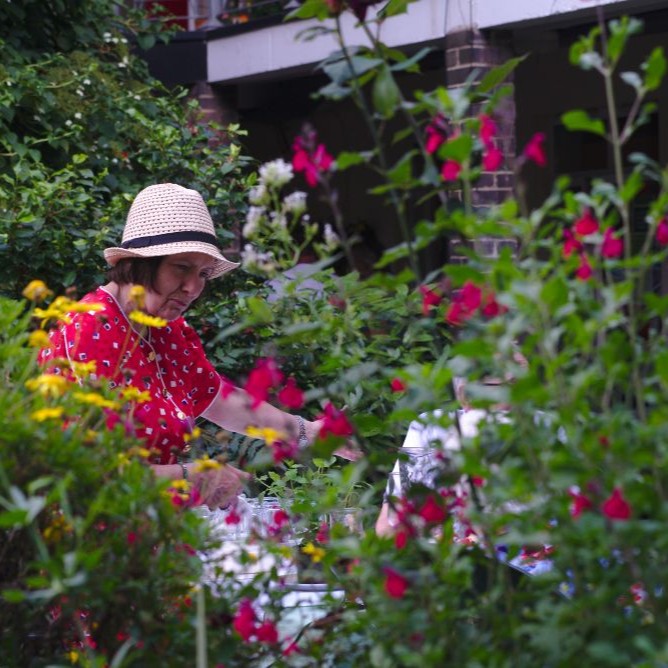
Celebrating National Gardening Week
You don’t need a private outdoor space to reap the many benefits of gardening.
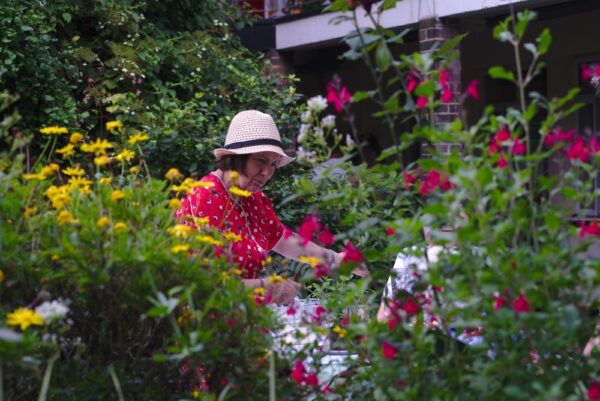
Organised by the RHS each year, National Gardening Week helps to raise awareness of the mental and physical benefits of gardening. Not everyone has their own private garden in Hammersmith, but most people can access a balcony, window-box or shared green space and just two hours in nature a week can improve wellbeing.
Our two almshouses – John Betts House and Sycamore House – both have large shared gardens. They’re managed by a team of three gardeners – India, Lucy and Victoria (known as V). The gardens are much loved by the people who live here.
As one resident, Ann, shares, “The garden is wonderful and I have a gorgeous tree just outside my front door, which gives me huge pleasure. It’s a marvellous setup really – a wonderful oasis in the middle of a busy city.”
As well as the shared gardens, a few residents at Sycamore House have their own gardens. We also have four allotment beds at John Betts House and five large planters specifically for residents, most of which are used for growing vegetables. Many of the residents also keep flowerpots outside their front doors.
The benefits of gardening
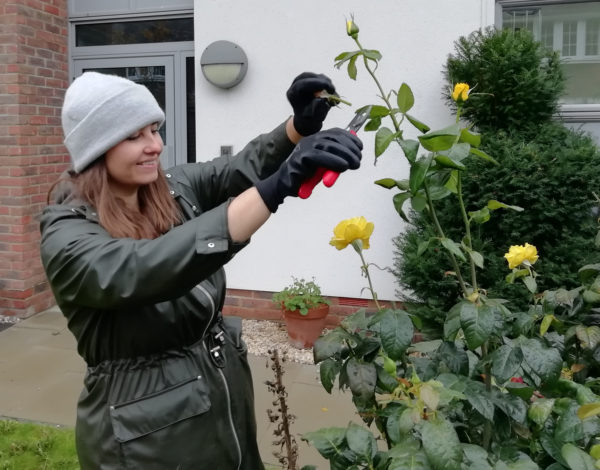 Numerous studies have shown that gardening can be hugely beneficial for both physical and mental wellbeing. It’s a great way to keep fit and active, and can help to reduce sleep problems, stress, anxiety and depression. India says, “There’s a lot of evidence that being able to enjoy green space can help certain health conditions and increase life expectancy. I definitely believe having nature in our lives is good for wellbeing, even if you’re just walking through it, sitting outside or seeing it from your window. And the fact that residents know they can be involved in the space and take part in activities is so good for them.”
Numerous studies have shown that gardening can be hugely beneficial for both physical and mental wellbeing. It’s a great way to keep fit and active, and can help to reduce sleep problems, stress, anxiety and depression. India says, “There’s a lot of evidence that being able to enjoy green space can help certain health conditions and increase life expectancy. I definitely believe having nature in our lives is good for wellbeing, even if you’re just walking through it, sitting outside or seeing it from your window. And the fact that residents know they can be involved in the space and take part in activities is so good for them.”
V adds, “Residents who don’t get involved in gardening still enjoy being able to see the garden and sit out in it. There’s a lot of research now showing that even just being able to see the colour green can have a positive benefit on mental wellbeing.”
Gardening for older people
Gardening can be particularly beneficial for older people, as it can help to maintain fitness levels, dexterity and independence. According to the gardening charity Thrive, “Time in nature has been shown to improve emotional state, physical health, verbal expression and memory.”
V shares, “Residents will often talk to me about a memory they have of a garden or outdoor space that they had growing up. Sometimes, there will be a particular plant that a relative loved, and so they want to put one in their pot or plant it somewhere in the garden to remind them of that person.”
Gardening together
When people garden together, as is often the case at Hammersmith United Charities, it brings added social benefits. Our residents support the gardeners with a number of jobs, including watering pots and clearing leaves.
We also hold gardening workshops for residents most months. V explains, “We had a seed sowing workshop in March, and are planning a hanging basket workshop for May.”
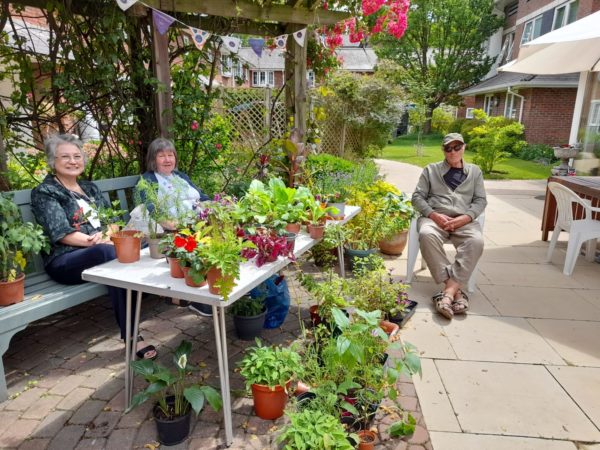
Get involved
- The focus of this year’s National Gardening Week is new gardeners. Whether you have a balcony, a shared garden or just fancy growing some house plants, you’ll find lots of beginner guides to help you get started at rhs.org.uk/get-involved/national-gardening-week
- There are several community gardens dotted around Hammersmith, most of which are run by Hammersmith Community Gardens Association (HCGA) . The charity is always keen to hear from people who have time to help out. You don’t need any experience of gardening to take part.
- Some GPs are now able to prescribe gardening instead of, or alongside, medication to ease stress, anxiety and depression. Patients are referred to a community gardening scheme, where they take part in a range of activities, from sowing seeds to pulling up weeds. Ask your GP for more information.
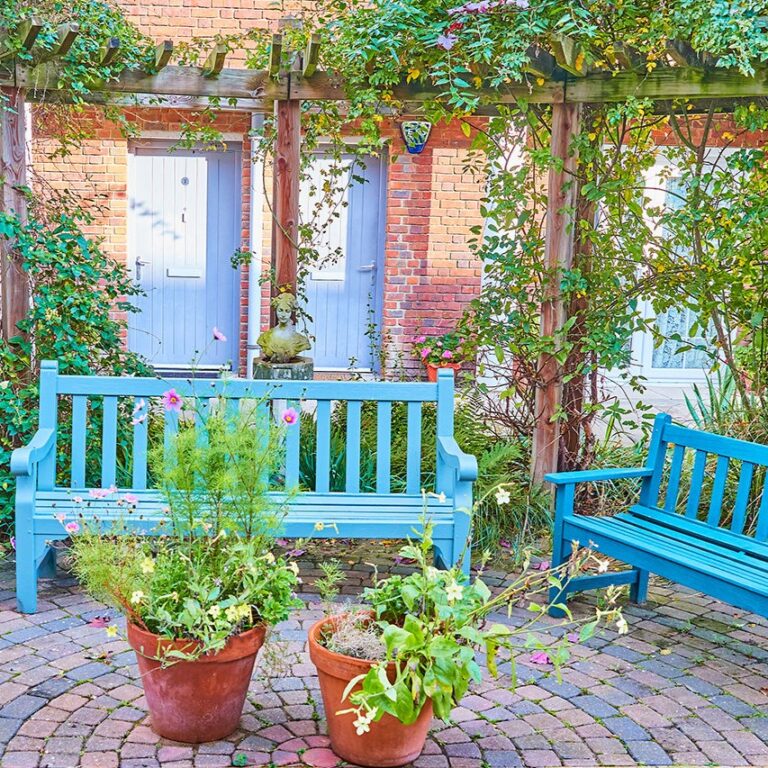
Gardening for the planet
Held on April 22nd every year, Earth Day mobilises people across the globe to take action to protect our shared planet.
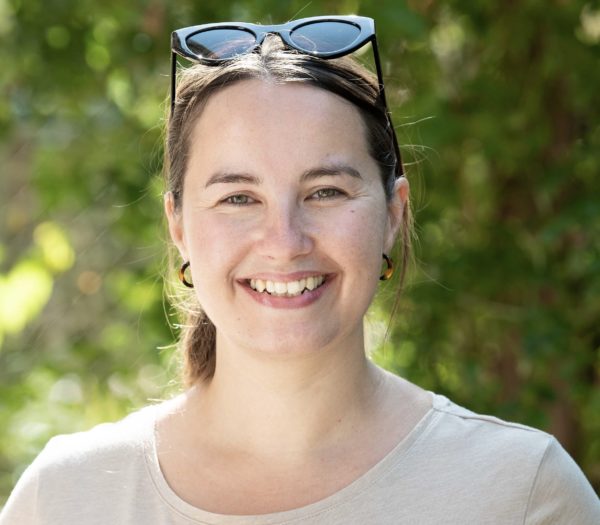 There are so many ways that every one of us can take action, from choosing locally produced food, to reducing waste and sowing wildflower seeds.
There are so many ways that every one of us can take action, from choosing locally produced food, to reducing waste and sowing wildflower seeds.
At Hammersmith United Charities, we’re fortunate enough to care for two award-winning gardens at our almshouses. The gardens are managed by a team of three gardeners – Victoria (known to most residents as V), India and Lucy. Many of our almshouse residents are also keen gardeners so often support V and the team with tasks such as deadheading, watering and sowing seeds.
V says, “We’re always trying to think about the planet and how we can support wildlife in the almshouse gardens.”
If you have space to grow plants, whether in a garden, on a balcony or in your home, here are a few tips for growing with the planet in mind.
Compost your food waste
Producing your own compost from garden and food waste both helps to reduce that waste and also reduces the need for buying plastic-bagged compost.
V shares, “We compost the majority of our garden waste on site. We have a large compost bay for each garden. We also have a Bokashi composting bin in each shared kitchen. Every layer of food waste is added to with a layer of Bokashi bran, which speeds up the fermentation process. Once the bin is full, the waste gets added to the compost bay.
“All the compost we generate is used as a mulch for our flower beds. The residents can also help themselves to it for their own garden areas or pots.”
Conserve water
Mulching the beds helps to improve the soil quality and also reduces the need for watering as it helps the soil to hold onto moisture. UK summers are expected to become hotter and drier as our climate changes. Reducing the need for watering and increasing the use of rainwater will become more and more important.
V shares, “Lucy, India and I recently went to a networking day at Kew Gardens. Water was the big topic of the day, and we’re trying to be more ‘water-wise’ at the almshouse gardens. For instance, we used to keep some small trees in large pots but have planted them in the ground instead, so they now need much less watering. We’re also currently looking at how we can utilise any overflow from our water butts, perhaps by connecting them to a planter or water feature.”
When choosing new plants for the gardens, V considers how well they can cope with rising temperatures and periods of drought. However, as she explains, “It’s more complex than just considering drought tolerance, because we now have extremes of winter downpours and much hotter, drier spells in summer. So, we need to be thinking in terms of plants that can cope with both extremes.”

Plant for pollinators
More than half of UK butterfly species are in long-term decline, and pollinating insects in general are struggling. One of the main issues is habitat loss, so planting pollinator-friendly plants is crucial. Anyone with even a small amount of outdoor space can play their part, as you don’t need to rely on large shrubs to attract bees and butterflies.
V says, “We had a huge buddleia that was taking up too much space and overhanging the walkway, so we had it removed. Buddleias are beloved by butterflies, so we’ve replaced it with several other pollinator-friendly plants. We grew some of these from seed, such as Lepechinia hastata, bought new plants including Scabiosa ‘Butterfly Blue’ and were given several hardy geraniums by the residents.”
Consider local wildlife
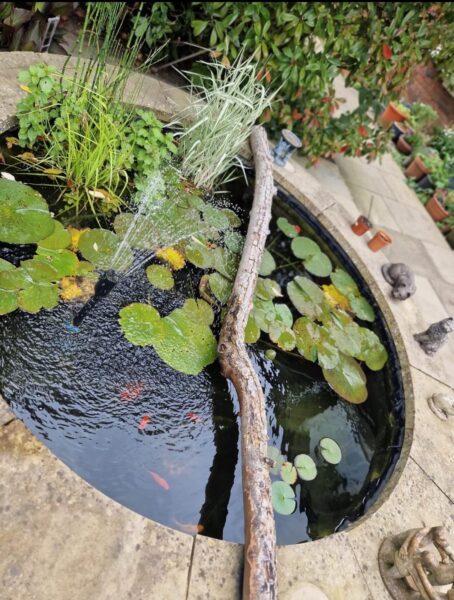 Offering easily accessible water is an easy way to support local wildlife, including birds and hedgehogs.
Offering easily accessible water is an easy way to support local wildlife, including birds and hedgehogs.
Our Sycamore garden already has a pond and the gardening team is considering creating a water feature in the John Betts garden. However, you don’t need to have a large garden to help wildlife, as even a shallow dish of water on a balcony will be appreciated by the birds.
V shares, “We get dragonflies around the pond at Sycamore House and I’ve seen the hummingbird hawk moth at both sites. We don’t have bird feeders up, but we try to create natural food sources through our planting. As a result, we have a lot of common garden birds, such as sparrows, robins, wrens and blackbirds, as well as the Eurasian jay. One resident even saw a heron here!”
Get involved with nationwide initiatives
Nationwide events, such as the Big Garden Birdwatch (January) and the Big Butterfly Count (18th July – 10th August) are crucial in helping charities to monitor different species. Many of our residents and staff members take part in both events.
If you have a couple of hours spare a month, you could also register to be a Bee Walker and count the number of bees you see on a set walk each month.
Find out more
- For more information on Earth Day, visit: earthday.org/earth-day-2025
- The RSPB has a wealth of information about wildlife-friendly gardening. You can also find advice on the Wildlife Trusts and RHS
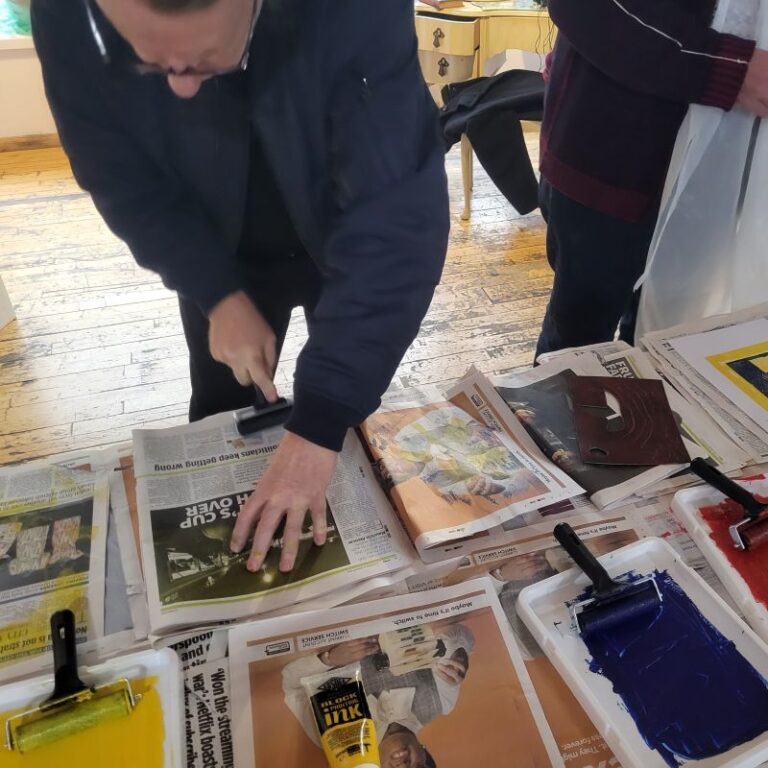
Making Headway
Find out how Headway West London is using its Community Grant to support people who have experienced a brain injury.
Suffering a life-changing injury of any sort can be devastating, but a brain injury can feel particularly isolating. Effects range from cognitive difficulties to memory issues, fatigue, sensory issues, loss of basic skills, and debilitating headaches. In short, every area of the person’s life can be affected.
William was hit by a car aged 21, while cycling from his home in Hammersmith to his workplace. The collision resulted in a traumatic brain injury. He shares, “It’s been very difficult to go back almost to square one. Adaptation is a key part of recovery. You have to build strategies for the differences you now have – cognitive, memory, attention. High-level cognitive strengths I struggle with now. As a traumatic brain injury survivor, it’s very easy to feel low when you have such differences relative to everyone else.”
Headway West London
William has found advice, support and a community of people who understand what he’s going through at Headway West London. The charity works with people who have survived a brain injury, and their families, carers and other professionals. Laura Murphy, Chair of Headway West London, shares, “You get such great care from the NHS, but when you get discharged from hospital there are real gaps in service offerings. It can feel like a bit of a minefield finding support, whether that be to meet therapeutic needs, or around lifestyle, housing, finances and so on.”
The sense of community that people find at Headway West London is crucial. As William says, “It was very difficult initially to accept what changes I’d have to deal with in my life at that young age. To find the community was really important to me. There are a lot of people who are there recovering with you and supporting you.”
You can hear from other brain injury survivors here.
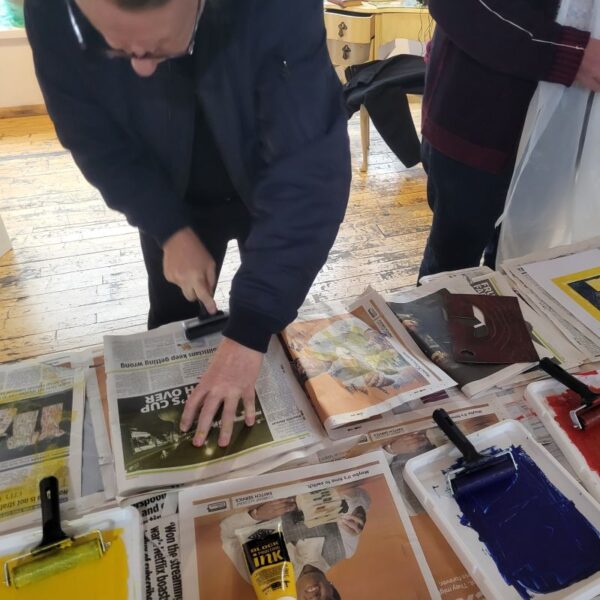 The REACTIVATE programme
The REACTIVATE programme
Headway West London has received a grant from Hammersmith United Charities to fund up to eight brain injury survivors on the REACTIVATE programme. REACTIVATE is a 6-week rehabilitation programme, which as Laura explains, “is about giving people the strategies and tools that they can put into practice to help improve their life. Different professionals attend each week to talk about different aspects of wellbeing and recovery. It’s about maximising rehabilitation, whether that’s physical or psychological. This grant enables us to reach more members in the H&F area.”
The groups are kept small so that each session can be tailored to the individuals’ specific needs. Brain injuries vary in severity and impact, and they can be experienced alongside physical disabilities. The REACTIVATE sessions are designed to be as inclusive as possible. For instance, if the group is being taught yoga techniques to aid relaxation, then chair-based exercises will be included for people with mobility issues.
Laura adds, “We have two part-time link workers, who work closely with REACTIVATE members. For example, some members might be able to engage well with the sessions but won’t remember that the sessions are on so will need phoning to be reminded. Other people might find it really challenging to attend in person, so we’ve offered hybrid sessions where they can attend online.”
“One of the most important things is bringing people together who have a shared experience and mutual understanding. That’s hugely important. You can just be yourself and be open about all the problems you’re having. You don’t have to explain why you find some things difficult. A lot of them become like peer mentors for each other, start their own WhatsApp group and encourage each other to stay on top of things, keep up with friends, go out for walks and so on.”
Feedback for REACTIVATE has been overwhelmingly positive, with a recent participant saying, “A great job running the workshops. These last five weeks have been very beneficial post surgery, in getting out of the house and safely connecting with useful information and people who understand some of the current difficulties. It’s a great course, and I’m really glad I joined the group.”
Supporting Headway West London
Do you have a few hours free each week? Headway West London is looking for more people to volunteer. You might have a specific skill, like art or yoga, to share with members, or experience that would be invaluable for the charity, such as social media. Headway West London is also recruiting new trustees and is particularly keen to hear from people who have lived experience of a brain injury, or a background in HR. Contact Headway if you feel that you can help.
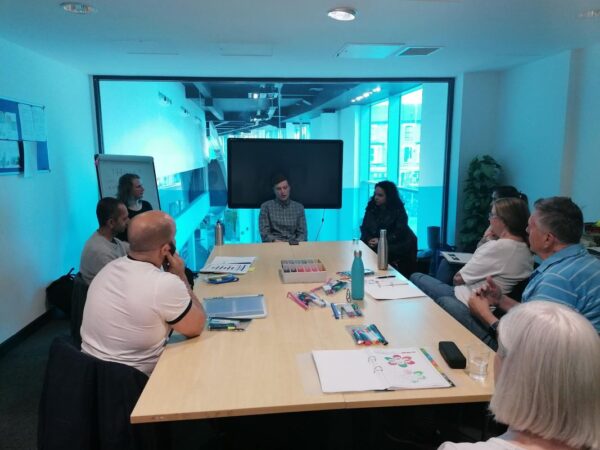

Inspiring women: Rosie Peters
“It’s important to get everyone involved on the journey towards gender equity, as we’re all on this journey together.”
Rosie Peters is Head of Wendell Park primary school and is helping to promote equality and inclusion both in the school and across the borough.
Can you tell us about the work you do on diversity, equality and inclusion at Wendell Park?
I have done a lot of work on diversifying the curriculum and changing the mindset of pupils, staff and parents through training, workshops and the use of national data and research.
We want all the children to be able to see themselves within school life and within the school curriculum, and to feel comfortable talking about their home backgrounds. We don’t want them to have preconceived ideas of what a person will be like. Instead, we want them to be curious, to ask questions and to find out more about a person.
We do a lot of work around the nine protected characteristics*. For example, we have discussions in our assemblies, invite guest speakers into school to give talks, and we make sure that we celebrate occasions like International Women’s Day, Black History Month, Disability Awareness Month and Pride. We also talk about famous people. For example, we spoke to the children about Beethoven and how his deafness didn’t stop him from becoming one of the world’s greatest composers.
People say that you can’t be what you can’t see, but we tell the children, “If you can’t see it, be it. Don’t be frightened of being the first one.”
By making diversity part and parcel of what the children are experiencing day in, day out, it becomes the norm for them. For instance, the children fundraise for the local community, which gives them an understanding of the struggle some people face and how they can make a difference. Recently, we’ve raised money for The Upper Room.
How are you sharing that message wider in Hammersmith?
We’ve done a lot of work with other teachers in the borough. I held a number of webinars where teachers had the opportunity to discuss the model that we use at Wendell Park and how to make sure that the curriculum is inclusive in their own schools.
We also started a grassroots organisation called The Power of Representation. For that, I had the pleasure of leading two webinars with the British historian Professor David Olusoga, who I think is absolutely fantastic. As part of the Year 6 curriculum, we now study his book ‘Black and British: A short, essential history,‘ When the children hear about the different communities who have been in Britain for centuries, it opens up history for them and makes them realise that they and their families are part of British history and that they belong.
What barriers still exist to gender equity?
Boardrooms are still male dominated. We still need more women in positions of power. We also need equity in pay, as all too often men and women are doing the same jobs, but the women are being paid less.
We’ve come a long way, but there’s still a way to go.
What can organisations and individuals do to help achieve gender equity?
Role models, mentors and coaches are crucial. Sometimes people may not see their own potential, so it’s really important when others who do see that potential are able to guide the individual forwards. Otherwise, it’s all too easy to stay in your comfort zone.
Earlier in my career, I had two fantastic headteachers – Sheila Mears and Julie Howarth – who really inspired me and pushed me forward. Without them, I would never have thought of moving up into leadership.
It’s important to get everyone involved on the journey towards gender equity, as we’re all on this journey together. We need to educate boys on this as well as girls. As an example, at Wendell Park, the football pitch is just for girls on a Wednesday. To start with, the boys complained, so we asked them a few thought provoking questions: “Have a look at famous footballers, who are they, male or female? Have a look at their pay, is it the same for men and women? Have a look at the history of football. Do you think female footballers have had the same opportunities? Why might that be? What can we do?”
We want our boys to grow up to be allies, to have an understanding of what they can do to make things more equal.
Which women leaders inspire you?
Michelle Obama. She opened up the White House to so many different people, championed education and is so resilient.
Do you think we need to consider intersectionality more when it comes to events like International Women’s Day?
100%. We need to look across the board and be aware of all the different barriers that people face, rather than looking at one protected characteristic in isolation.
When marking certain events and as an employer, it’s crucial to understand how to unlock the doors and be mindful that an individual may face multiple barriers because of having more than one of the protected characteristics.
That might mean making certain adjustments in your organisation, because if you don’t, you’re never going to be able to tap into the full resource that each individual can offer. The more diverse a workplace is, the more you get in return and the more you understand what the community you’re trying to reach actually needs.
Learn more
For diversity, equality and inclusion resources, Rosie recommends visiting Diverse Educators or speaking to its founder, Hannah Wilson.
* The nine protected characteristics are: age, disability, gender reassignment, marriage and civil partnership, pregnancy and maternity, race, religion or belief, sex, and sexual orientation.

Inspiring women: Dr. Christina Konadu
“Women are powerful. When women come together, we can achieve so much.”
In honour of International Women’s Day, we’ve been talking to some of the inspiring women who are making a difference in Hammersmith. Dr. Christina Konadu is Founder and CEO of the Bassuah Legacy Foundation, a charity working to support single parents and their families in London and Ghana.
 What comes to mind when you think of International Women’s Day?
What comes to mind when you think of International Women’s Day?
When I hear ‘International Women’s Day’, I think of resilience, empowerment and progress. It is a day to honour the contributions of women in every sphere, whether in leadership, community work, education or the home. It reminds us that while we celebrate how far we’ve come, there is still work to do in ensuring equal opportunities for all. As a woman leading a charity, I see first hand the strength of women coming together to support, uplift and create lasting change.
Why did you start the Bassuah Legacy Foundation?
I lost my husband at an early age, which meant I had to raise my children alone. Being a single parent for over 30 years was incredibly tough. In 2015, I had an accident and then needed a major operation in 2016, and then I lost my son soon after the operation.
Life became even more challenging. The pain never goes away; it is something I carry with me every day. But I try to heal myself by supporting others, working hard and turning my pain into purpose.
Through the Bassuah Legacy Foundation, we have made a difference to hundreds of single-parent families, giving them hope, a safe space and meaningful support. Our programmes focus on reducing isolation, empowering women and young people, and helping people re-enter the workforce.
Do you think there are still barriers to gender equality?
Absolutely. While progress has been made, gender inequality is still deeply rooted in many aspects of society. Women continue to face barriers in leadership, the workplace and even in their personal lives. These barriers are often subtle, such as stereotypes, unequal opportunities or the expectation that women should balance it all without proper support.
In the UK, women remain underrepresented in top corporate roles, the gender pay gap persists, and women often face barriers in industries like finance, tech and politics. I am from Ghana, which has also made progress in women’s representation but still has a long way to go. While it is significant that the current vice president is a woman, true gender equality goes beyond a single leadership position. The fact that the Ghanaian cabinet has only two women highlights the ongoing gap in political representation and decision-making power. Equality means equal participation at all levels, not just symbolic representation.
For single mothers world-wide, the challenges can be even greater. They are often stigmatised, judged, underestimated or left out of opportunities simply because they are raising children alone. This is why organisations like the Bassuah Legacy Foundation are committed to breaking down stereotypes and creating a fairer society where every woman is valued for her contributions regardless of her circumstances.
True gender equality will only be achieved when women and men have the same opportunities, the same respect, the same pay, and the same freedom to make choices without bias or limitation. Until then, we must keep raising our voices, supporting one another and challenging the barriers that still exist.
Which women leaders inspire you?
Many women leaders inspire me, each in different ways. Michelle Obama stands out for her grace, intelligence and dedication to education and women’s empowerment. She has used her platform to advocate for girls’ education, health and leadership, showing that true power comes from lifting others up.
I am also inspired by Ngozi Okonjo-Iweala, the Director-General of the World Trade Organization. She is a strong, trailblazing African woman who has broken barriers in global finance and trade, proving that women belong at the highest decision-making tables.
Another remarkable leader is Jacinda Ardern. Her compassionate leadership has set an example of what modern leadership should look like.
On a more personal level, I draw inspiration from everyday women who fight against the odds, such as single mothers, community leaders and grassroots activists. Their resilience, strength and ability to turn pain into purpose remind me of why I do the work I do. These community leaders include Farial Missi at Imperial College, who leads the Agents of Change Women’s Community Leadership Programme, and Sue Spiller at Sobus.
Women leaders inspire me in many ways and their stories remind me that no barrier is too high to overcome.
The Bassuah Legacy Foundation offers a range of support for single-parent families in London and Ghana, including:
- Workforce preparation, such as help with writing CVs and practising for interviews.
- The essential shopping programme and charity shop (90 Goldhawk Road, Shepherds Bush, W12 8HD), which gives families access to vouchers, welcome packs and loyalty cards.
- Financial and life skills, including a money management programme and healthy eating workshops.
- Community and wellbeing activities, such as social gatherings and trips.
The Bassuah Legacy Foundation is always keen to hear from single-parent families who want to be part of the charity, along with other individuals who are interested in volunteering opportunities or who want to support the charity’s work.
Find out more at: www.bassuahlegacy.org or by contacting Christina on WhatsApp on +44 7544 757987.
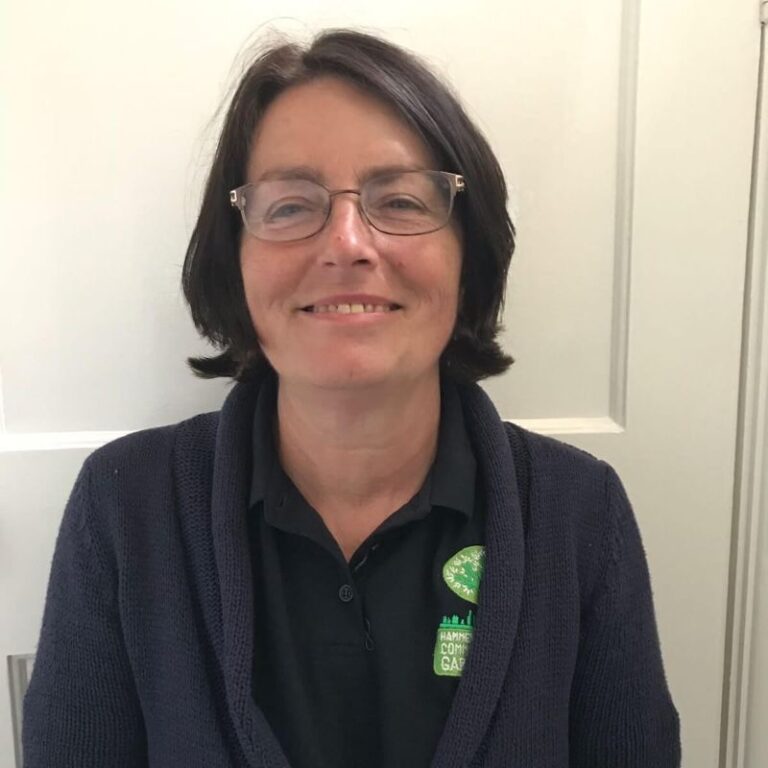
Inspiring women: Cathy Maund
“Women still don’t shout about their strengths enough.”
From Phoenix Farm to Ravenscourt Glasshouses, Hammersmith’s community gardens offer much needed pockets of nature in our urban landscape. Five of these green spaces are managed by Hammersmith Community Gardens Association (HCGA), which also looks after community spaces in Westminster, Kensington and Chelsea. The charity is led by Director Cathy Maund, who also finds time to be Treasurer of the London City Farms & Community Gardens Association.
We spoke to Cathy for our Inspiring women series, in the run up to International Women’s Day.
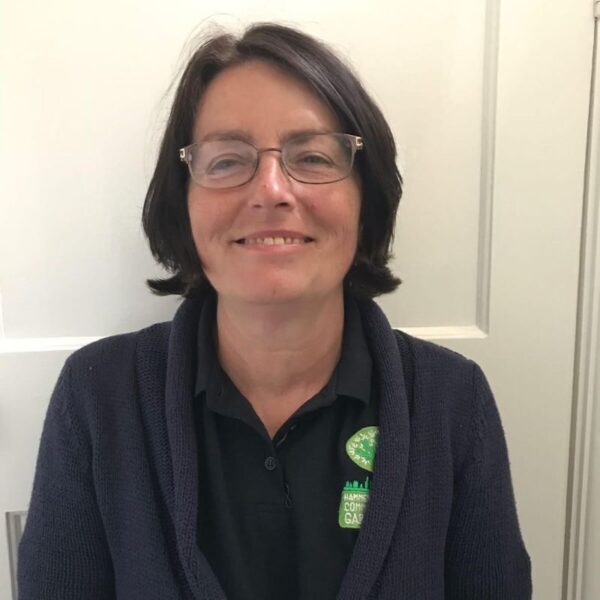 Do you think the UK has achieved gender equity, or are there still some barriers to overcome?
Do you think the UK has achieved gender equity, or are there still some barriers to overcome?
There are still challenges but things are changing; I can see that with my daughter’s experience of work. When I had kids, we had to pay for absolutely everything when it came to childcare, whereas now some of it is funded. However, statutory maternity pay is still crap! As a charity, I wish we could give people a year off on full pay, but we just can’t afford to do that.
Many women choose not to work in high-pressured jobs full time so that we can have a family, but that does come at a financial cost. It’s always a juggle.
Have you experienced any barriers in your career due to your gender?
No, but I’ve always worked in the charity sector and have been with HCGA for more than 30 years, so I think things might have been different if I’d been climbing the corporate ladder.
One of the things I’m very proud about is that HCGA has always been mainly led by women. At the moment, we’re up to 23 people – three are men and the rest are women. I think women are more likely than men to move into the charity sector; they often move over from the corporate sector when they’ve had kids.
The team works very collectively, we have quite a flat organisational structure. It’s a very small, close world, the community gardening and city farming world, and it’s been a privilege to work for one organisation for so long and see it grow.
Which women leaders inspire you?
Angela Rayner, the Deputy Prime Minister, is pretty good. I also really like Margaret Atwood, partly because I enjoy reading, but also because she’s quite political in what she says.
Women still don’t shout about their strengths and achievements enough, and they should.
HCGA celebrated its 40th anniversary last year. Along with managing community gardens, the charity runs a range of projects, from weekly sessions in schools to community workshops.
HCGA is currently running a series of free walks to help people discover new places in their borough. Find out more at https://hcga.org.uk/events/
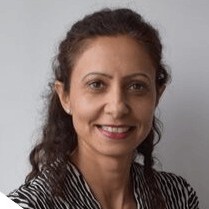
Inspiring women: Simi Ryatt
“We cannot look at things in isolation.”
To mark International Women’s Day on 8th March 2025, we’re celebrating some of Hammersmith’s top female community leaders. Simi Ryatt, CEO at Citizens Advice Hammersmith & Fulham, tells us about her career and why she’d love to see more female role models.
 Tell us about the difference you’re making in Hammersmith.
Tell us about the difference you’re making in Hammersmith.
I am the CEO of Citizens Advice Hammersmith & Fulham, where I have been for 14 years. Over those years, I have built strong relationships with the many different people working across different sectors, from commissioners to politicians, council officers, service users and peers working in other voluntary sector organisations. I feel that Citizens Advice makes a massive impact in the community and transforms people’s lives, and I feel very privileged to be able to lead an organisation that makes such a big difference. It makes my job so much more meaningful. It also helps me to have impact in other areas. I am currently a trustee of the Money and Mental Health Policy Institute, which explores the relationship between money and mental health.
Have you experienced any barriers in your career due to being a woman?
I believe I would have encountered more barriers had I remained in the private sector. I initially pursued a career in law, training to become a solicitor, but the legal profession in this country is well-established and has traditionally been male dominated. At the time, I felt that opportunities in law were largely accessible to individuals from certain economic backgrounds, often those with private or public school education and established professional networks – none of which I had as a woman of colour, an immigrant, and someone without those connections to accelerate my career. Securing a training contract was particularly challenging, which led me to begin volunteering at Citizens Advice.
As a child, I had an idealistic vision of using the law to help people. However, I found that within the legal profession, the emphasis was predominantly on financial targets, which I didn’t find personally fulfilling. My passion lay in social justice – ensuring that individuals who struggled to access legal support received the help they needed. This realisation led me to focus more on my work at Citizens Advice, where I eventually transitioned into a paid role and worked my way up.
Citizens Advice, with its national reach and federated structure, has provided me with extensive opportunities to work across different parts of the organisation, both locally and nationally, broadening my experience and skill set. This foundation also opened doors for me in the private sector. For example, alongside my role at Citizens Advice, I worked as a freelance trainer, delivering management and leadership training for major corporate organisations.
Ultimately, the charity sector has provided me with career opportunities that I may not have been able to access as easily in the private sector, enabling me to develop professionally while staying true to my values and commitment to social justice.
Do you think we need to be recognising intersectionality more when we talk about gender equity?
I think so. We cannot look at things in isolation. When I was younger, I certainly didn’t appreciate the intricacies or the importance of that intersectionality – about how important the networks are, how important it is to go to the right school, to get the right job etc, and how not doing so places you at a huge disadvantage. Alongside being a person of colour and being a woman, all of that just makes the mountain a little bit harder to climb.
How would you describe your leadership style?
It’s very important to me to have integrity and to be authentic. I want to make a difference and help people, but to do that in a way that is open and transparent. I have been lucky in my current role to have been given the flexibility to work around my children, which as a single parent enabled me to hold a senior leadership position. Through this, I learned that flexibility and trust actually enhances performance, unleashes creativity and fosters commitment – traits which I think are really important in a senior leadership role. As such, my leadership style is to provide flexibility, operate on the basis of trust and give people the freedom to flourish without micromanaging them.
What do you think governments and organisations can do to help bring about gender equity?
There are numerous steps that governments and organisations can take to promote gender equity. Firstly, organisations should make top-level, public commitments to gender equality, ensuring that it is embedded within their culture and strategic objectives. Addressing the gender pay gap is also critical. While legislation plays a role, transparency around pay scales – particularly at senior levels – is essential to ensuring fair and equitable compensation.
Access to education and professional development pathways is another key factor. Financial barriers often prevent women from advancing in their careers, so providing sponsorships, scholarships or funded training programmes can help bridge this gap and create more equitable opportunities.
Organisations should also implement clear, objective performance frameworks that provide evidence-based assessments of achievement. Transparent promotion pathways enable women to understand what is required to progress into leadership roles, reducing ambiguity and ensuring that talent and capability are recognised fairly.
Additionally, flexible working policies are crucial in supporting work-life balance, particularly for those with childcare or other caregiving responsibilities. By fostering an inclusive workplace culture that accommodates diverse needs, organisations can help create an environment where women can thrive and advance in their careers.
Are there any local women leaders who particularly inspire you?
I believe there is a noticeable lack of visible female role models – women who young professionals and aspiring leaders can look up to for inspiration. Men often tend to be more vocal about their achievements, whereas women, in general, may not always highlight their accomplishments as prominently.
Locally, there seem to be limited platforms for showcasing and promoting community leaders. Creating more opportunities for visibility could lead to initiatives such as mentoring and shadowing, which would be invaluable for aspiring women leaders.
One potential solution could be organising a conference featuring women leaders from Hammersmith and the surrounding areas. This could serve as a platform for them to share their experiences, discuss the challenges they have overcome, and offer guidance to others. By fostering dialogue and mentorship, such an initiative could help support the next generation of female leaders and promote greater gender equity in leadership.
Citizens Advice Hammersmith & Fulham provides free, confidential advice about benefits, debt, housing, employment and consumer rights. You can call 0808 278 7832 for advice, chat to an adviser online, or speak to someone face-to-face at:
Avonmore Library
North End Road W14 8TG
Monday to Friday, 10am-3.30pm
Citizens Advice @ Nourish Hub
Nourish Hub, Unit A, Swanscombe House, 1 St Ann’s Road, W11 4SS
Tuesday & Wednesday, 10am-3.30pm
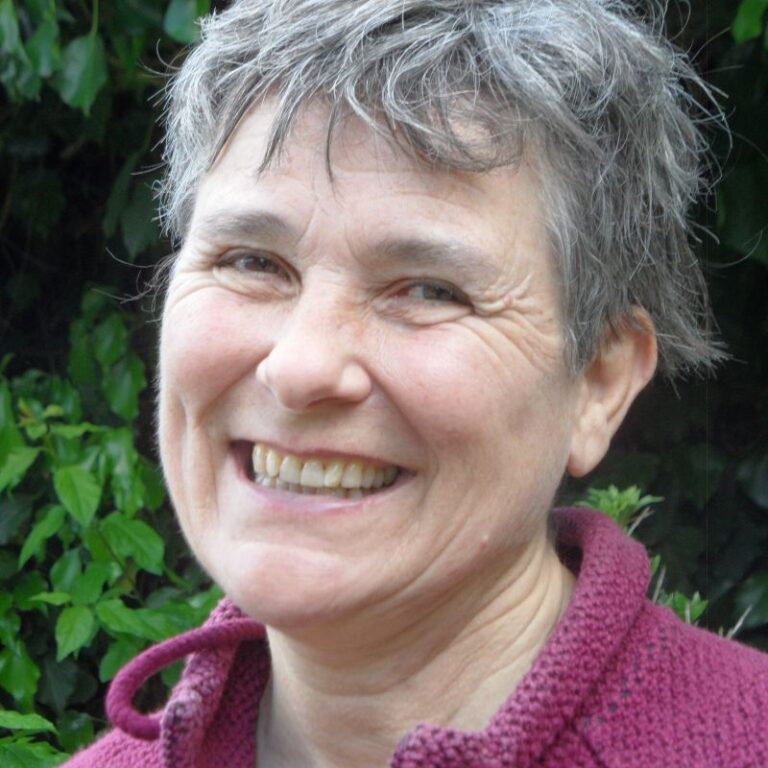
Inspiring women: Clare Morris
"I've gone after things if I really believe in them and am tenacious in that respect."
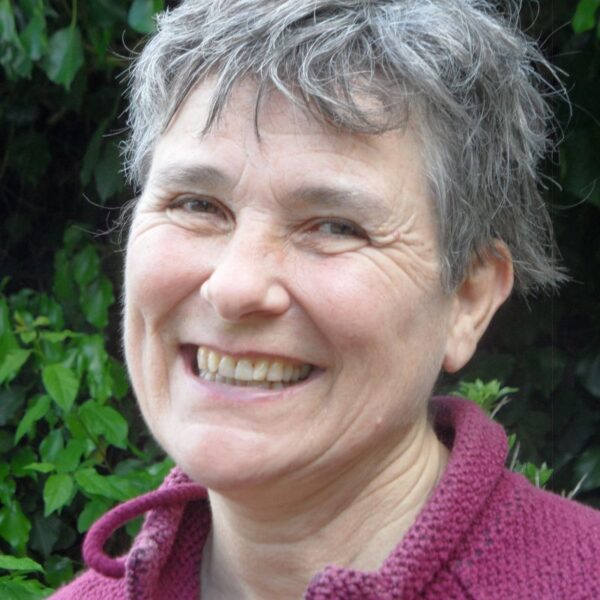 In honour of International Women’s Day, we’re spotlighting some of Hammersmith’s most inspirational community leaders. In the hotseat today is Clare Morris, co-founder of dementia charity For Brian.
In honour of International Women’s Day, we’re spotlighting some of Hammersmith’s most inspirational community leaders. In the hotseat today is Clare Morris, co-founder of dementia charity For Brian.
How are you making a difference in your community?
I’ve always worked to extend the boundaries of dementia care. When you’re working with people with dementia, you need flexibility, you need to think outside the box, and you need to provide continuity and familiarity.
My focus is on creating a real community of people who can choose activities that suit them, dip in and out as they choose, and feel that they belong. For Brian complements traditional streamlined services and enables people with dementia to live independently for longer.
What barriers, if any, have you faced as a woman in your career?
I’ve always had high expectations for myself but have sometimes struggled to meet them in a corporate setting. I’ve gone after things if I really believe in them and am tenacious in that respect, but I’ve learnt to plant seeds and let them grow. It is less stressful! The older I get, the more I recognise paternalism in society and how that might have contributed to challenges over the years.
I remember when I was working as a speech therapist, there was a restructuring of grading and pay for speech therapists. The woman in charge of doing so downgraded my pay band, doing what was expected of her. Was that because I was a woman? I don’t know, but I do know that speech therapy was mainly a woman’s profession. The union rep, a man, achieved a good outcome for my colleagues and I, to get us upgraded, or should I say recognised and valued. Unions had more influence then.
These days, working in co-production with people with lived experience, and working for myself, seems to side-step gender inequality, but perhaps that’s easier at my age?
What do you think needs to happen to achieve wider gender equity?
I think it’s important to talk about it, to get it out on the table. Things are much better than they were in the 70s, 80s and 90s. Men aren’t as paternalistic, but there are still issues, so education is still needed.
A high expectation of yourself, belief in yourself and belief in what you are doing are vital, but you also need to learn to communicate that. You never stop learning.
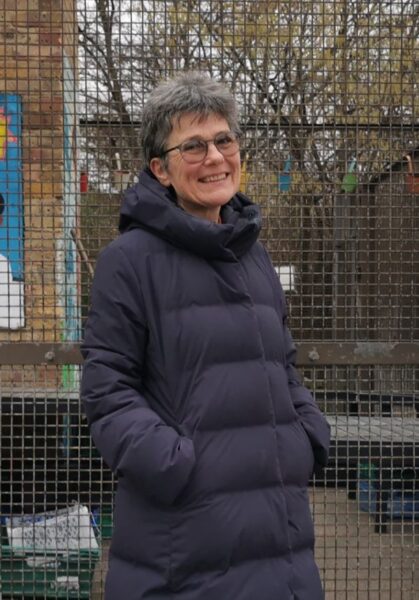 Which other female community leaders are you inspired by?
Which other female community leaders are you inspired by?
For me, it’s the people who will go out of their way for you, and who you have a spark with. Sharon Tomlin, for example, has been incredibly supportive and we share an understanding of working in the community. We have good conversations and share feedback that moves us forward. It is always a pleasure.
Another woman who has stuck by me is Margaret Adjaye, who teaches at Roehampton University Business School. We were put in touch by the London Community Foundation, so she could support me to develop my business skills. Margaret is so good at all the things that I’m not good at! I’ve learned so much from her; she’s helped me to become more of a businesswoman yet retain the ethos of heading a sustainable organisation that is guided by members with lived experience.
I’m also inspired by our new director, Carol Sargant. She lives in Loughborough but used to work in pharmacology and her father had dementia, which prompted a change in career. She is skilled in setting up co-operatives, and shares our vision of enabling people with dementia to improve their quality of life through travel.
And there’s Elise Brown, who set up Mama Haven and is upskilling young women to become leaders and to expect a decent salary. A successful professional woman, she encourages aspiration in other women.
For Brian
For Brian’s vision is to ‘cultivate a society where dementia inclusivity thrives, ensuring equal access and opportunities for all individuals to actively engage and derive wellbeing from their community.’
The social enterprise is working to tackle the challenges faced by people who have dementia and connects people with activities to improve their wellbeing. As one client says, “I have attended art therapy, a day at the Royal College of Art, street parties, technology classes and cycling … It’s the place I go for support and help, and they are always there for me … They change lives.”
You can find out more about For Brian at www.forbrian.co
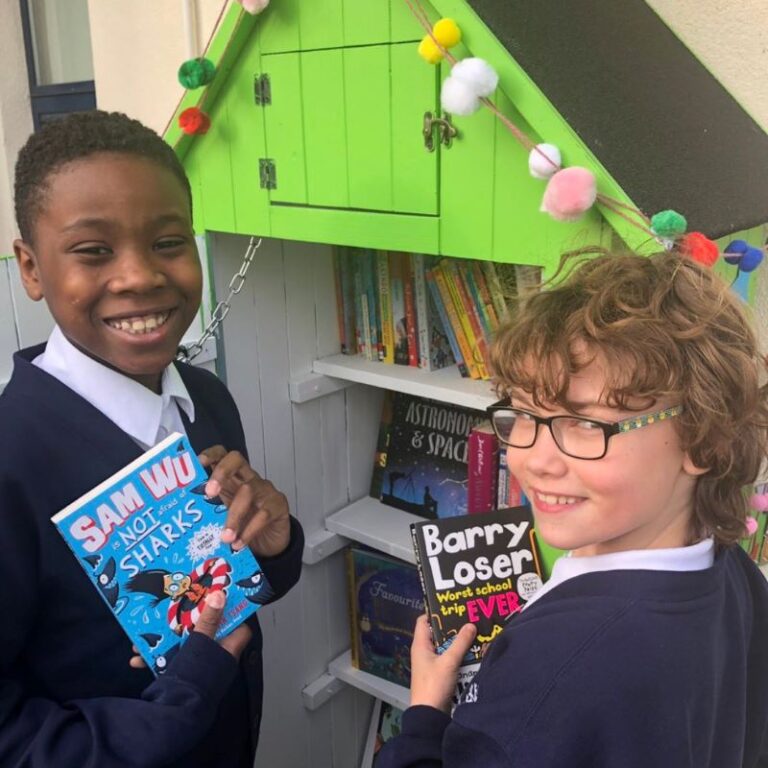
For the love of reading
Thanks to the Children's Book Project, thousands of children in Hammersmith will be given their own books this year.
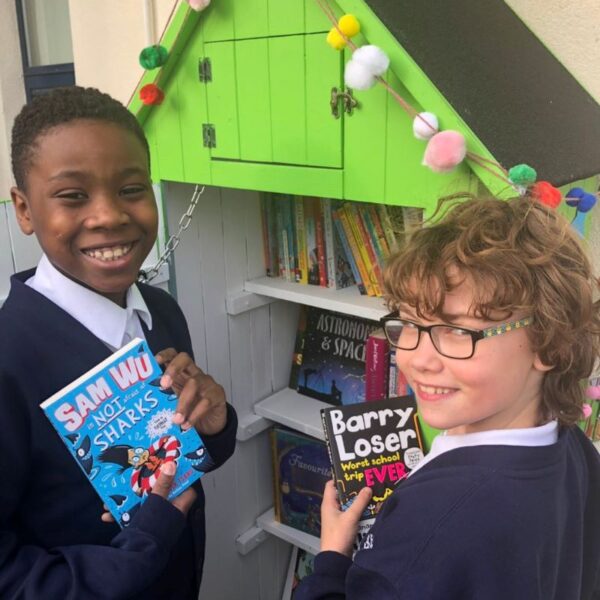 Many of us can easily reel off our favourite childhood stories, from the Tiger Who Came to Tea, to Harry Potter, the Faraway Tree and The Cat in the Hat. And yet today, almost 20% of children aged five to eight don’t own a single book. As well as impacting their love of reading, this can have far-reaching consequences.
Many of us can easily reel off our favourite childhood stories, from the Tiger Who Came to Tea, to Harry Potter, the Faraway Tree and The Cat in the Hat. And yet today, almost 20% of children aged five to eight don’t own a single book. As well as impacting their love of reading, this can have far-reaching consequences.
According to the OECD, reading for pleasure is even more important for children’s educational success than their family’s socio-economic status. Children from disadvantaged backgrounds who are doing well by the end of primary school are twice as likely to have been read to at home in their early years than those who are doing poorly.
The Children’s Book Project
The Children’s Book Project was founded by Hammersmith-resident Liberty Venn to get more books into the hands of more children. She says, “In the course of my work with literacy-oriented charities and with children’s publishers, I became aware of the positive role that early access to books plays in children’s development and in their outcomes. Children become immersed in stories and with characters; they enjoy themselves and, without realising, their literacy improves.”
Of course, as book lovers know, books aren’t only important for educational success. Kate Morgan-Evans is the Grants & Engagement Manager at the Children’s Book Project. She shares, “There’s a lot of research about the benefits of reading for mental health and wellbeing. You can escape into a book from real life. It broadens your imagination, introduces new ideas and can take you to new worlds. When you read with your child, their heart rate slows and there’s a release of endorphins. It’s a really, really powerful thing.”
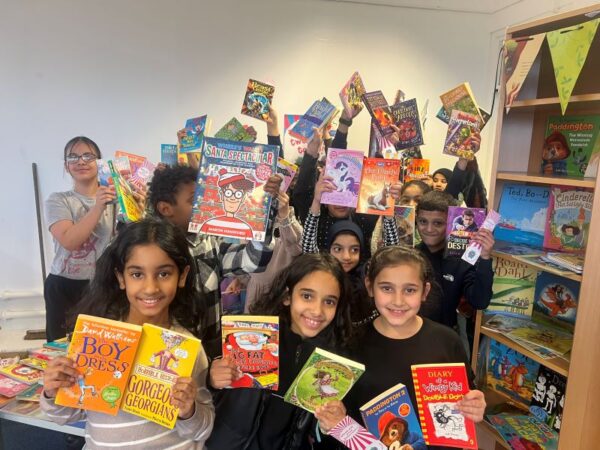
Around 135,000 children across the UK receive books from the Children’s Book Project each year. The charity mainly distributes books through schools, but also works with food banks, refuges, community groups, prisons and women’s groups.
Barriers to reading
There are many barriers to reading, including the cost of books. As Kate points out, even £2 for a book in a charity shop can be unaffordable for families who are struggling with the cost of living. Not all parents grew up with a culture of reading and not all have experienced the benefits or joy that a book can bring.
Libraries do play a vital role in promoting reading, but hundreds have shut across the country in recent years, and the most disadvantaged areas are four times more likely than the richest to have lost a publicly funded library. While primary schools loan books to children, the books are usually from a specific reading scheme and designed with phonics in mind, rather than just pleasure.
Kate says, “With the Children’s Book Project, children get to choose their books, take them home and keep them. There’s no time limit on them, so those books can be enjoyed time and time again and shared with the rest of the family. Giving a child a book shows the child that they’re important, that they’re valued, that they’re special.”
New homes for old books
The books distributed by the Children’s Book Project are all pre-loved or surplus, having been donated by families or publishers. Rather than just handing the books out, the schools host book gifting events, where children can look through all the books available and choose the ones they want to take home.
Kate shares, “We’ll be gifting more than 500,000 preloved and surplus books to children this academic year. We aim to work with each school over multiple years, which helps to create a book-rich environment. We provide bunting and tokens so the school can mimic a shop experience, as many of the children will never have been to a bookshop.”
Working with schools in Hammersmith
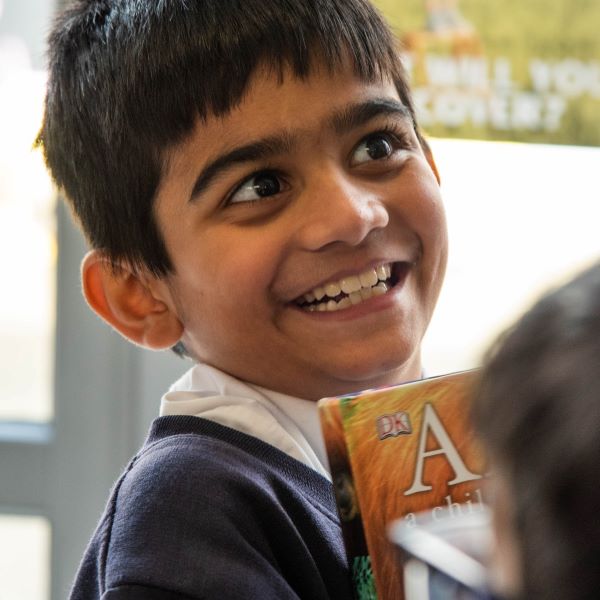 The charity recently received a £3,000 grant from Hammersmith United Charities. It will use the grant to deliver books to around 1,200 children in total at Brackenbury Primary School, Flora Gardens Primary School and Wormholt Park Primary School. Every child in the three Hammersmith schools will be able to choose up to six books to take home and keep.
The charity recently received a £3,000 grant from Hammersmith United Charities. It will use the grant to deliver books to around 1,200 children in total at Brackenbury Primary School, Flora Gardens Primary School and Wormholt Park Primary School. Every child in the three Hammersmith schools will be able to choose up to six books to take home and keep.
According to one teacher at Wormholt Park Primary School, “The pop up book shops are eagerly awaited. The children take great delight in looking at, sharing, recommending and choosing a book to take home and keep. For many children, this has been the first time they have had the experience of visiting a ‘book shop’. Books make the difference, books can change lives.”
Liberty adds, “All children should be able to access a book without the cost being a barrier and so we are incredibly excited to be supported by Hammersmith United Charities and expand our work in the borough.”
Donate books
Do you have books needing a new home? The Children’s Book Project accepts fiction and non-fiction books suitable for children. It can’t accept:
- Old or damaged books
- Encyclopaedias, textbooks, revision books or religious texts
- DVDs or CDs
- Ex-library or reading scheme books
If you’d like to donate a book, you can drop it off at several locations in Hammersmith and Fulham, including Bute House Preparatory School for Girls and Winkworth estate agents. Find your nearest collection point and register your details here.
Volunteer for the Children’s Book Project
The Children’s Book Project relies on volunteers for a number of roles. You could help to sort through books, liaise with schools or promote the charity’s work on social media. Find out more at www.childrensbookproject.co.uk
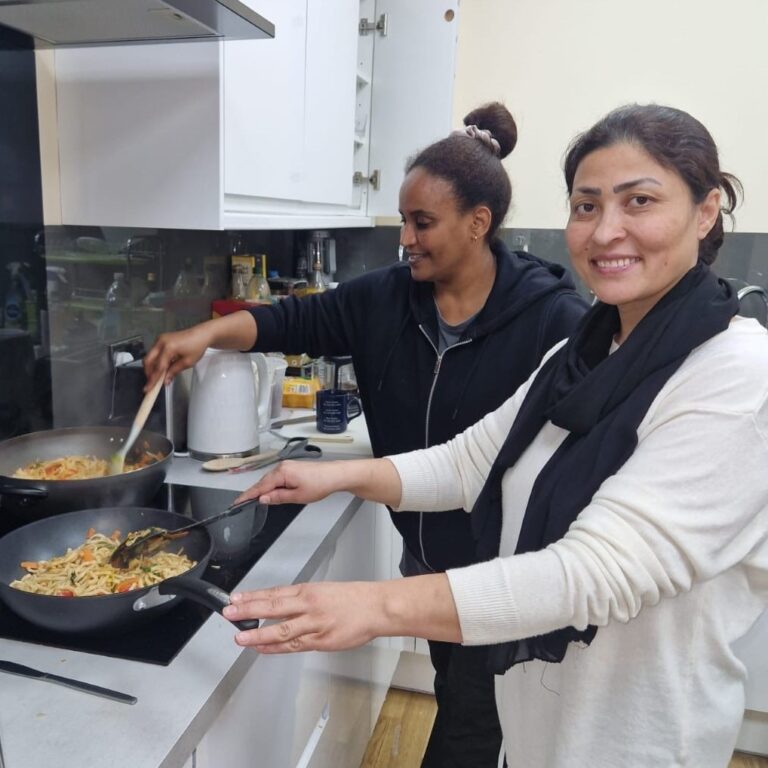
Supporting homeless families
Shepherds Bush Families Project & Children’s Centre
More than 330,000 people are on the social housing waiting list in London. Many properties that used to be social housing have been sold off over the years and not replaced. In Hammersmith and Fulham alone, 827 social homes were sold and 434 were demolished between 2012 and 2022, and only 129 new social homes were built, leading to a net loss of 1,132 homes.
Unsuitable housing
Alongside the number of affordable homes decreasing, the population has risen across London, increasing demand and helping to drive up rent. Private rental costs can be double or even triple the cost of social housing, which means many families, whether they’re in full-time employment or on benefits, are struggling to make ends meet. They’re also often stuck in homes that are too small for their families or in very poor condition, as they can’t afford more suitable accommodation.
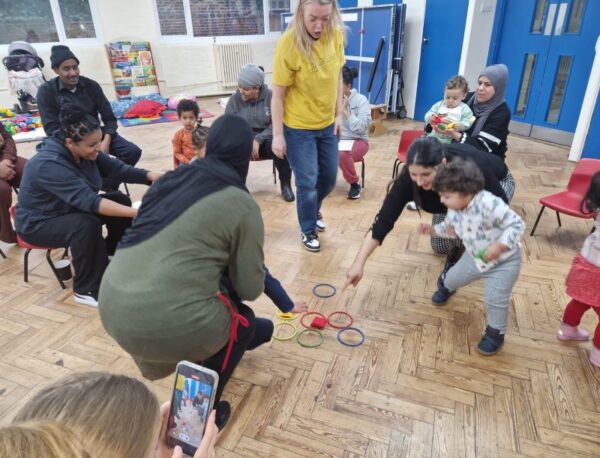 It’s perhaps not surprising that Shepherds Bush Families Project & Children’s Centre has seen an 80% increase in demand for support over the last two years. CEO Tina Mayers explains, “We work primarily with families where there’s a housing problem. There’s less social housing available, so families are staying in temporary and overcrowded homes for longer. We’re also seeing a lot more families who are living in private rented accommodation struggling with poor conditions, including damp and mould.”
It’s perhaps not surprising that Shepherds Bush Families Project & Children’s Centre has seen an 80% increase in demand for support over the last two years. CEO Tina Mayers explains, “We work primarily with families where there’s a housing problem. There’s less social housing available, so families are staying in temporary and overcrowded homes for longer. We’re also seeing a lot more families who are living in private rented accommodation struggling with poor conditions, including damp and mould.”
Living in an overcrowded or unsafe home can have serious repercussions on childhood health and wellbeing. Tina shares, “We’ve seen quite a few children admitted to hospital due to mould and other incidents related to their housing.
“Things that children in normal housing take for granted are often denied to children living in unsuitable accommodation. There’s no space to play or to do homework or coursework. They can’t invite their friends over. We continue to see a significant increase in the number of parents, children and young people who are struggling with mental and/or physical health difficulties.”
Shepherds Bush Families Project & Children’s Centre
The charity offers a range of services, including:
- Parent-and-child drop-in sessions
- After-school club
- Holiday clubs
- Advice and advocacy appointments
- Therapeutic counselling
- Coffee mornings
- English conversation group
The aim is to give children a safe space to play, do their homework and enjoy activities that are otherwise denied to them, and parents a place to get advice and support. As Tina explains, the long-term goal is to “empower parents and caregivers to regain a greater sense of control and affect changes in their lives. We also ensure children and young people develop and have a firm foundation in physical, social and emotional education from which to flourish, maximise their potential and enjoy good outcomes.”
One parent who has benefited from the charity’s support is Monica. She shares, “While I was pregnant, my relationship broke down and I faced the prospect of being homeless and bringing up my child alone. Without [the charity] I wouldn’t have been able to finish my degree in accounting, which means I wouldn’t have found a job.”
A 15-year-old whose family attends the centre adds, “This centre gives a positive environment for many children. It gives a stable place where I could do my homework. It also gave me a safe place to play. It is a reliable centre in which children can play and not be on the streets getting involved in crime.”
Community Grant
Hammersmith United Charities has supported Shepherds Bush Families Project & Children’s Centre with a number of Community Grants over the years. The latest grant of £10,000 is helping to fund the charity’s early intervention work. Tina explains, “We try to reach families early on before a problem becomes a crisis. We run drop-in sessions for parents to come with their children to play; staff try to give parents the confidence to talk about their difficulties so that we can offer advice. It’s about not letting families slip through the net, because once a family hits crisis point, it’s really hard to help them get back from that.
“Some grants are very restrictive and you can only spend the money on children’s services, when actually you need to support the parents as well. We’ve been very lucky with Hammersmith United Charities. They’ve been brilliant over the years and the support they give us is for the work that we actually need to do.”
How to help local families
There are a number of ways you can support local families through Shepherds Bush Families Project & Children’s Centre, including:
- Making a donation
- Fundraising for the charity
- Signing up to a platform like Give as You Live where you raise money (at no extra cost) while you shop
- Joining the Board of Trustees
- Donating clothes, toys and other essentials
- Volunteering to support the children or parents
You can find out more about the charity at its website: www.shepherdsbushfamiliesproject.org
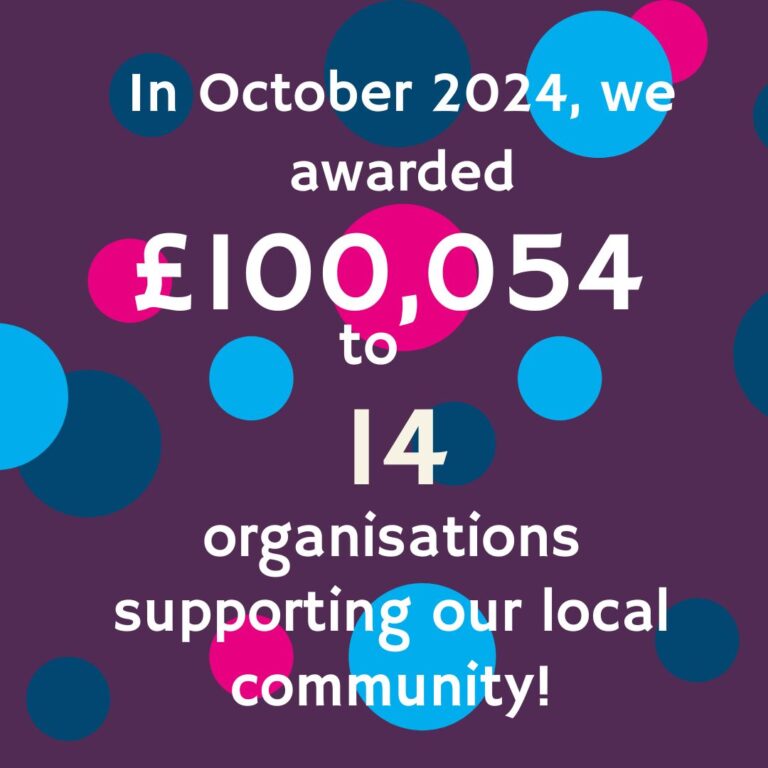
October 2024 grants announced
14 groups have been awarded grants totalling £100,054.
Our Community Grants help to support local groups in and around Hammersmith. Grants are awarded twice a year. Our most recent grant round in October 2024 saw 14 groups awarded grants totalling £100,054. These include Shepherds Bush Families Project, which is using its £10,000 grant to support vulnerable families, including through drop-in sessions for families who are homeless or experiencing severe housing difficulties.
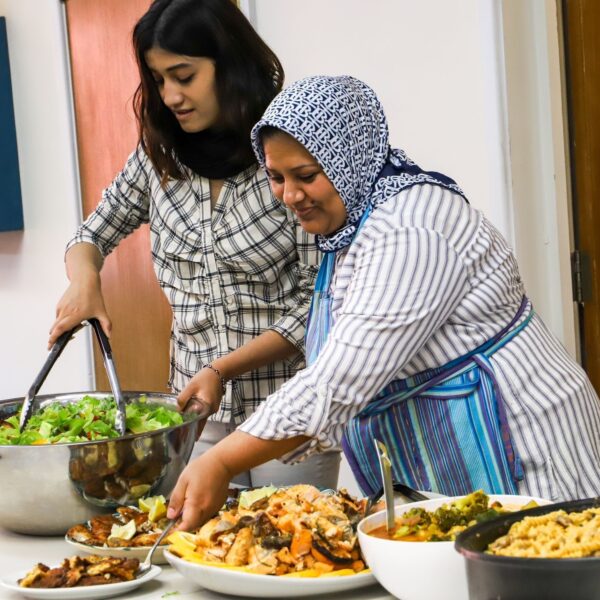
The full list of grant holders is as follows:
West London Welcome
£14,999 to help provide emotional support, advice and signposting to 500 asylum seekers and refugees. Our grant will cover 50% of the charity’s rent. You can read more about West London Welcome in our case study.
Community Switch Sports CIC
£14,995 to help ensure that children in low-income families can access sport and to organise the first low-cost White City junior football league.
Barons Court Project
£10,000 towards the salary of a project worker who will welcome and support visitors at their day centre for people on a low income, many of whom are homeless and/or experiencing mental health difficulties.
Health and Wellbeing for All CIC
£10,000 to run social and advice sessions for Somali women, to reduce loneliness and increase wellbeing.
Shepherds Bush Families Project
£10,000 towards the cost of early intervention work with vulnerable families, including ones who are homeless. Read more about Shepherds Bush Families Project in our case study.
Citizens Advice Hammersmith and Fulham
£8,000 towards the salary of an Assessor who is the first point of contact for local people and ensures they get to the service that can help them.
Original Club
£7,000 towards the cost of running Taekwondo classes at the community centre in Edward Woods.
Wendell Park Primary School
£6,250 to provide art therapy for children experiencing difficulties such as trauma, abuse or bullying.
Intergenerational Music Making
£5,000 to help provide music sessions that bring primary school children and older people together to combat social isolation.
Lyric Hammersmith Theatre
£4,000 to provide free theatre tickets for 100s of people on a low income.
Grove Neighbourhood Centre Folk Art Group
£3,300 to deliver therapeutic art sessions.
Headway West London
£3,210 to run a rehabilitation programme for people with brain injuries.
Children’s Book Project
£3,000 to make sure that children at three local primary schools have their own books to read.
West London Death Café
£300 to hire a room so that people can talk about their feelings and experiences around death.
How to apply for a HUC Community Grant
We’re particularly keen to hear from smaller, local organisations in our area of benefit, which have a strong connection to their community and a working knowledge of the local area. Your project can be one-off or ongoing. What interests us most is the difference you’ll make to the local people most in need.
Please complete our Eligibility Quiz before applying, and then contact us at grants@hamunitedcharities.com to tell us about your project. We like to talk to applicants before you apply so that we can get a better understanding of what you’re doing and answer any questions you may have.
Find out more
- Learn more about our Community Grants
- Read our grant FAQs
- Hear from other organisations we’ve supported
- Read more about how to apply
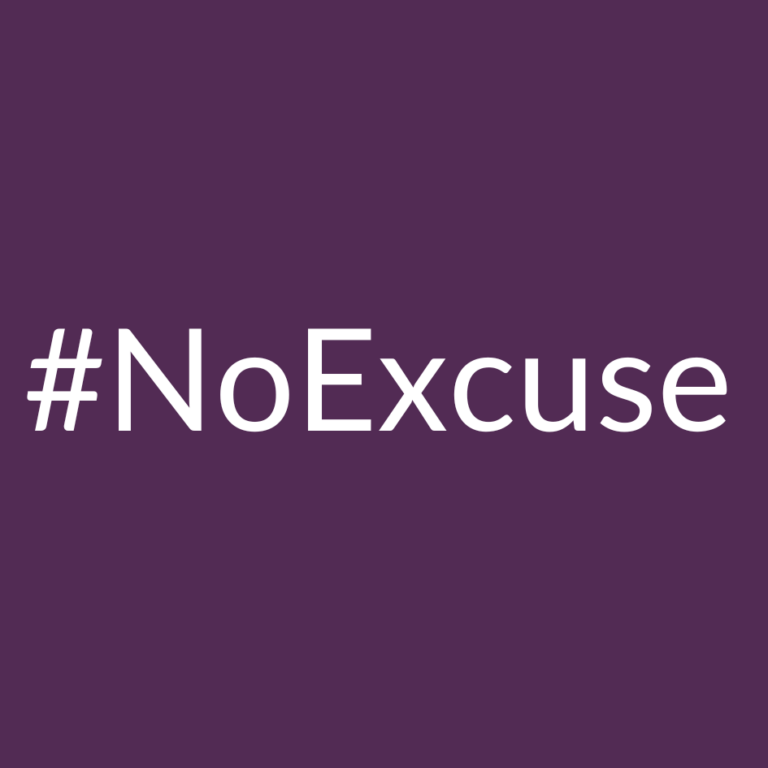
We need to talk about domestic abuse
Almost 250,000 people in London will likely experience domestic abuse in 2025.
UNiTE to End Violence against Women kicked off on 25th November – the International Day for the Elimination of Violence against Women – and runs until Human Rights Day on 10th December.
Women are more likely to experience violence from someone they know than a stranger. Domestic abuse happens in every borough across London, to people of every gender, race and economic background. However, there are still many misconceptions around domestic abuse, from what it entails to how likely it is to happen.
Myth: Domestic abuse is rare
Sadly, domestic abuse is all too common. One in four women in the UK will experience it during their lifetime. The Met Police recorded 96,768 domestic abuse offences in London last year, but the actual number of cases is likely far higher. According to some studies, almost 250,000 adults in London will have experienced domestic abuse in the last 12 months.
Myth: Domestic abuse is always violent
Domestic abuse is primarily about control and doesn’t always involve violence. The domestic abuse charity Refuge describes it as, “a pattern of behaviour on the part of the abuser designed to control his partner.” It includes:
- Economic abuse: taking control of the partner’s wages or benefits, not allowing her access to money, stopping her from working, taking out credit cards or loans in her name, etc
- Psychological abuse: such as manipulation, constant criticism, threats, name-calling and stalking
- Sexual abuse: being forced or pressured into sexual acts
- Coercive control: a pattern of behaviour designed to control the partner, for example by monitoring her phone, isolating her from friends and family and telling her what to wear
- Physical abuse: hitting, pushing, choking or restraining her, throwing things at her, etc
- Technological abuse: sharing intimate images online, sending her abusive, threatening or intimidating messages, tracking her use of social media and websites, etc
Myth: If it was that bad, she’d leave.
There are many reasons why a woman stays with her abuser. She may believe that she’s to blame, or she may still love her partner and think that he can change. She may not want to break up the family unit or doesn’t feel that she can cope without her partner. Her religion and/or wider family may forbid divorce. She may also be scared about what her partner will do if she does leave.
Even when a woman desperately wants to escape her abuser, she may have been isolated from her family and friends and feel that she has nowhere to turn.
Myth: Once she leaves, the abuse will automatically stop.
Leaving an abuser can be an extremely dangerous time, particularly if he’s physically violent. The perpetrator will often want to retain control, so may continue to intimidate and harass his victim, for example by sending messages, following her or taking out debts in her name. The National Domestic Abuse Helpline can offer advice on the safest way to leave an abusive relationship.
Myth: Domestic abuse is only carried out by men against women
Domestic abuse can happen to anyone, whatever their gender or sexual orientation, and the abuser can be male, female or non-binary. While women are far more likely than men to experience an abusive relationship, 13% of men have experienced domestic abuse. Men may be less likely to recognise that they are in an abusive relationship and too embarrassed to seek help.
Myth: I’d know if a family member, friend or colleague was experiencing domestic abuse.
Domestic abuse isn’t always easy to recognise. The abuser may act very differently in public and the person being abused may feel too frightened or ashamed to ask for help. If you suspect that someone you know is experiencing domestic abuse, Refuge has advice on how you can support them.
Get support
If you or someone you know needs help, please call the National Domestic Abuse Helpline on 0808 2000 247.
Angelou is a partnership of West Central London services that support women and girls affected by domestic violence and abuse. You can call Angelou for free on 0808 801 0660, email angelou@advancecharity.org.uk or visit www.angelou.org to find out more.
If you’re a man experiencing domestic abuse, call Respect’s Men’s Advice Line on 0808 8010327, email info@mensadviceline.org.uk or visit https://mensadviceline.org.uk. The ManKind charity can also help you to escape an abusive situation.
If you’re experiencing (or have experienced) domestic abuse, and you want to find out about counselling sessions in London, contact Woman’s Trust on:
(Office hours: Mon-Fri, 9:30am – 5pm)
If you want to make a professional referral for someone under your care or supervision, call Woman’s Trust on 020 7034 0303.

“A place that makes my not good days better.”
Up to 250 children and teenagers come to the Sulgrave Youth Club every week, most of whom have little access to other organised activities.
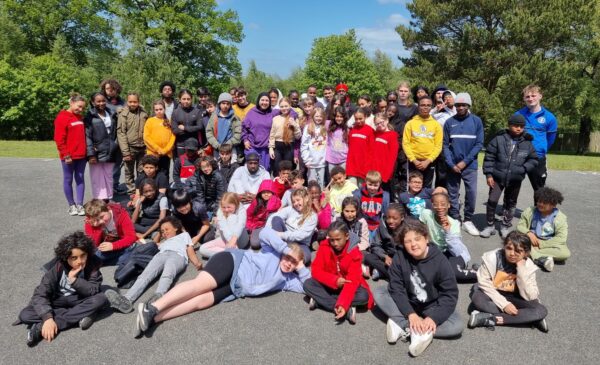
The cost-of-living crisis has had a devastating impact on families who were already struggling to make ends meet. For many parents and carers, there is little-to-no money to spare for non-essentials like children’s clubs or extra-curricular activities.
It’s perhaps not surprising that, according to a report by Sport England, children and young people from less affluent homes get the least amount of physical exercise. Those from a global majority background, such as Black and Asian children, are also considerably less likely to be physically active than White children.
The Sulgrave Youth Club in Shepherds Bush welcomes 200-250 children and teenagers every week. The club was founded in 1926 and is now a registered charity. Three youth clubs meet weekly, all of which are free and offer a range of activities, such as football, dodgeball, table tennis, art and music. The club also runs low-cost taekwondo, drama and rollerskating clubs.
The benefits for the young people who take part extend far beyond physical exercise. Club Manager Nick Sazeides shares, “The club gives young people a safe place to be. It’s a place where they feel comfortable and know all the staff. It’s also a place where they can express themselves, and a place where they learn while having fun.”
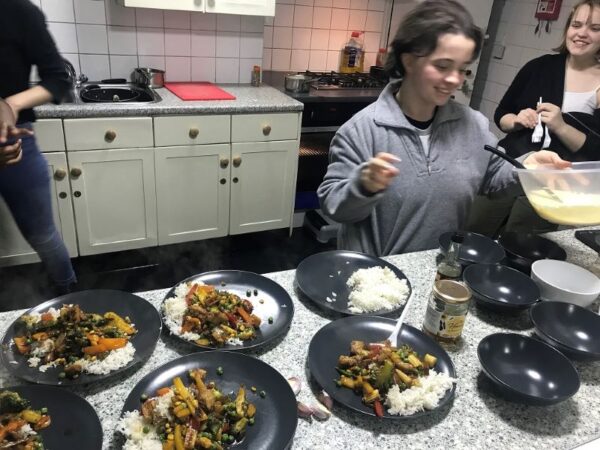 One of the areas of learning is cookery. The young people are able to join in with cooking a healthy meal at the weekly youth clubs. For those experiencing food poverty, the meal they share with their friends at the club may well be the most nutritious they eat all week.
One of the areas of learning is cookery. The young people are able to join in with cooking a healthy meal at the weekly youth clubs. For those experiencing food poverty, the meal they share with their friends at the club may well be the most nutritious they eat all week.
A junior member says, “It makes me more happy and I get to meet new friends, cook and do fun games. I have a place that makes my not good days better!”
The Sulgrave’s maths, English and science clubs are very popular. While many children struggle with these core subjects, those from low-income homes that don’t have English as a first language can find them particularly challenging. Nick shares a recent message from a parent: “Amaiah received outstanding results for her end-of-year exams. She almost got full marks on both math and English papers, a huge improvement from last year. Thank you all so much. It’s amazing how much an extra hour a week can help a child.”
Over 650 children and young people aged 7-19 come to the Sulgrave Youth Club every year. 73% are from minority ethnic communities; 59% live in areas of deprivation or receive free school meals; and 18% have a learning difficulty or disability. Most have little access to affordable facilities outside of the club or school. As one parent shares, “It’s hard to find inexpensive fun things to do with the kids but my daughter loves Sulgrave and it doesn’t hurt my pocket.”
Nick adds, “Young people can become bored, frustrated, and isolated if at home, or susceptible to negative peer pressure and potential anti-social behaviour if out on the streets. Without the opportunities offered to them by the Sulgrave, their experiences would be limited, their social development would be impaired, and their potential would not be fulfilled.”
One of the senior members shares, “Sulgrave is like a second home to me and the staff are like family and if the Club ever shut down it would feel like a piece of me disappeared.”
The Sulgrave Youth Club was awarded one of our Flexible Three Year Grants earlier this year. Nick says, “It was a real bonus as we lost our council contract last year and our running costs have increased. The grant will give us a degree of financial certainty.”
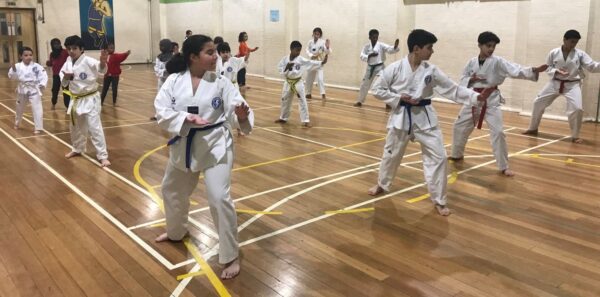
Find out more
You can find out more about the Sulgrave Youth Club on their website: www.thesulgraveclub.org.uk
If you’d like to apply for a Community Grant for your organisation, the current funding round is open until Monday 13th January 2025. Find out how to apply here.

A safe place to play
The Grove Parent and Toddler Group is a vital part of the community, giving adults and children a fun, supportive place to come together each week.
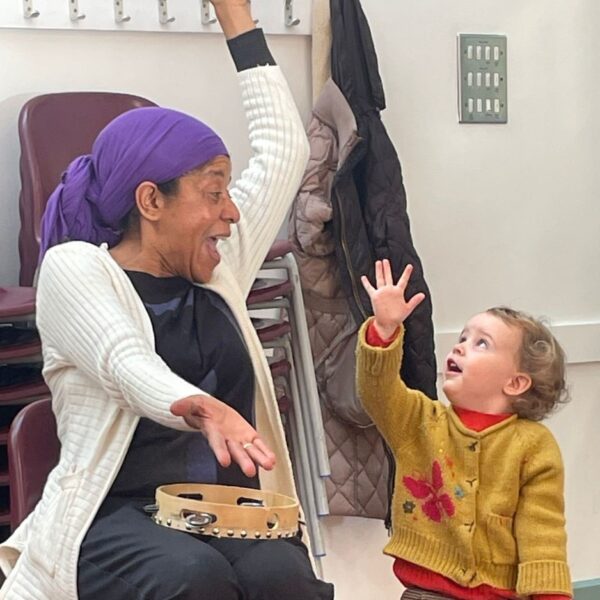 While looking after a young child can be very rewarding, it can also feel isolating at times, especially if you don’t have friends in the same situation. There are only so many times you can sing Old Macdonald before you start really craving adult conversation. And you have so many questions… Am I doing this right? Should they be walking by now? Can I please just have two minutes to drink a cup of tea in peace?
While looking after a young child can be very rewarding, it can also feel isolating at times, especially if you don’t have friends in the same situation. There are only so many times you can sing Old Macdonald before you start really craving adult conversation. And you have so many questions… Am I doing this right? Should they be walking by now? Can I please just have two minutes to drink a cup of tea in peace?
Parent and toddler groups serve a vital role in communities, bringing adults and children together to socialise and learn from one another. However, as Sharon Robinson, Chair of the Grove Parent and Toddler Group, shares, “So many of these groups have closed because they’re no longer funded by local authorities or by the government, leaving a significant gap in the community.”
The Grove Parent and Toddler Group was established around 50 years ago in Hammersmith and is still going strong despite financial challenges. The group meets three mornings a week. Crucially, the fee is just £3.50 per child, or £4 per family, making it affordable for most people in the area. It’s well attended by mums, dads, carers, childminders and nannies, who are able to share advice, ask questions and, crucially, socialise and form new friendships.
But the benefits aren’t just felt by the adults. As Sharon explains, “Development through play is a vital part of a child’s early years. Space to play is limited in inner cities, but here children get the opportunity to be part of a stimulating environment with safe outside space and to form their first social relationships with other children. We run a different creative activity each week and rotate toys regularly to hold the children’s interest. The outcome is that the children start school more confident, self-assured and with a wider sense of the world.”
One of the regular attendees, Maria, adds, “The playgroup is perfect. Great activities, space and healthy snacks. The children love coming here. Rahiya, the lady that runs the group, is kind and the children love her.”
The Grove Parent and Toddler Group is able to keep fees low thanks to grants and other donations. The group has received several grants from Hammersmith United Charities over the years, as we recognise how important it is to local families.
Sharon shares, “Our two main expenses are hiring the space and paying the play leader who runs the sessions. It’s these kinds of running costs that charities need most help with, but so many grants are only offered for equipment or specific projects. Hammersmith United Charities are one of the few that will fund running costs and they’ve been brilliant. They realise that, in the grand scheme of things, we only require a small amount of money to survive, but it means such a lot to us and the people who come here.”
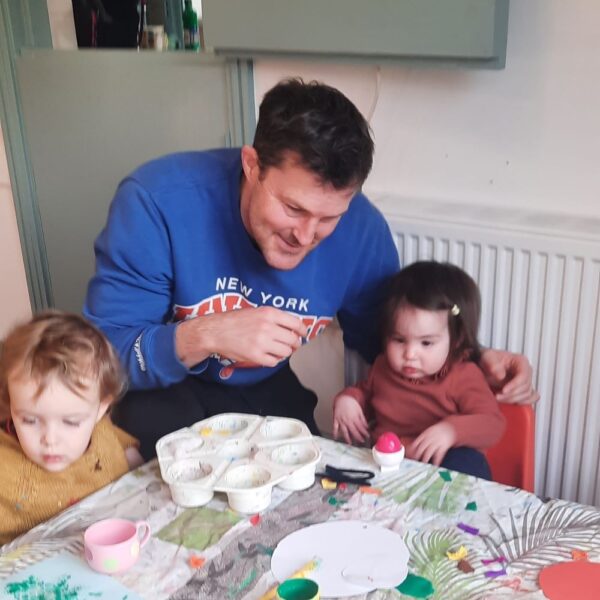
Find out more
The Grove Parent and Toddler Group runs three drop-in sessions a week during term time: Monday, Tuesday and Thursday, 10am-12 noon. There’s no need to book.
The group meets at the Grove Neighbourhood Centre, a registered charity which hosts a wide range of activities, from pilates and yoga to a weekly lunch club.
Hammersmith United Charities has supported a few of the groups that meet at the centre, including granting £300 towards a coach trip to Brighton and £3,300 for therapeutic art sessions. Find out what’s on at the centre here.
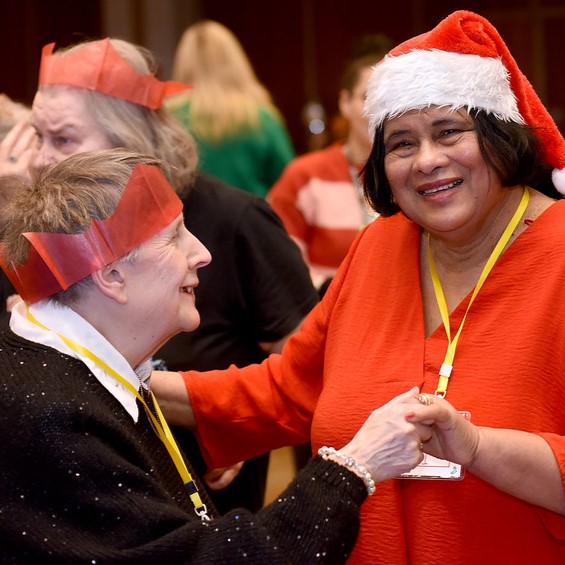
H&F Giving’s free Christmas lunch
How H&F Giving is helping to tackle loneliness this Christmas.
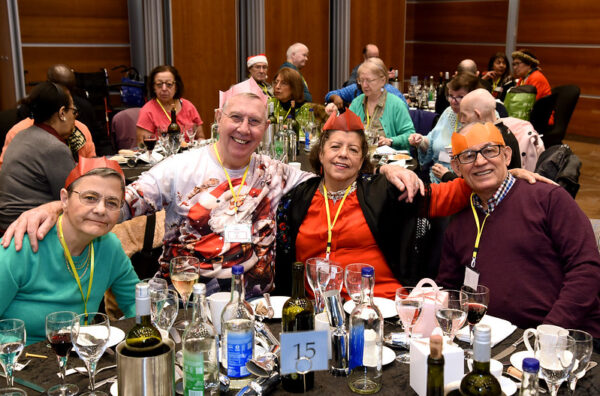
Loneliness is hard to cope with at any time of the year, but it can be particularly challenging during the festive period. Older people who live alone can find it especially difficult. According to Age UK, 2.3 million older people said they wished they had someone to spend time with last Christmas.
Thanks to H&F Giving, up to 500 people aged 60+ will celebrate Christmas Day at a free party at the Novotel London West. As well as a two-course lunch, guests will enjoy carols, live entertainment, music and dancing. They’ll also be given a goodie bag of Christmas treats to take home. The event is completely free for Hammersmith and Fulham residents who are 60 or older, and free transport will also be arranged through the HATS Group.
The Big Christmas Day Lunch is a joint effort with Hammersmith and Fulham Council. It’s entirely funded by donations and corporate sponsors, and only made possible with the help of more than 100 local volunteers.
Support the Big Christmas Day lunch
- Do you know someone who might be alone at Christmas? Please let them know about the Big Christmas Day lunch. Places are free but you do need to book by Monday 16 December.
- If you’d like to make a donation to support the lunch, you can do so here.
- Volunteers are needed to help residents to and from the minibuses. Please email ali@hatsgroup.com if you’re able to help.
Other support for older people
Age UK has several services to help reduce loneliness amongst older people, including a Telephone Friendship Service. If you know someone who would benefit from a weekly chat over the phone, you can find out more here.
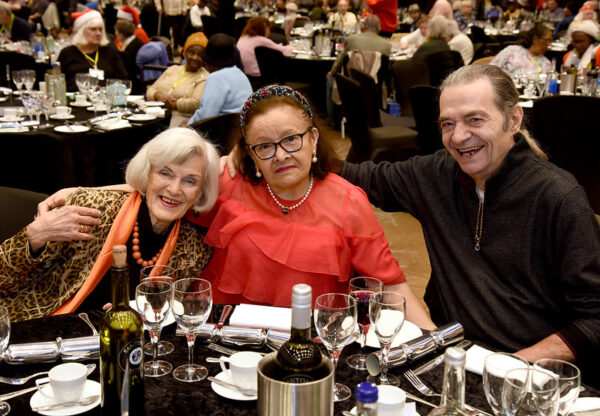

“It’s a wonderful oasis. I’m extremely happy here.”
New resident Ann shares her thoughts about living at John Betts House.
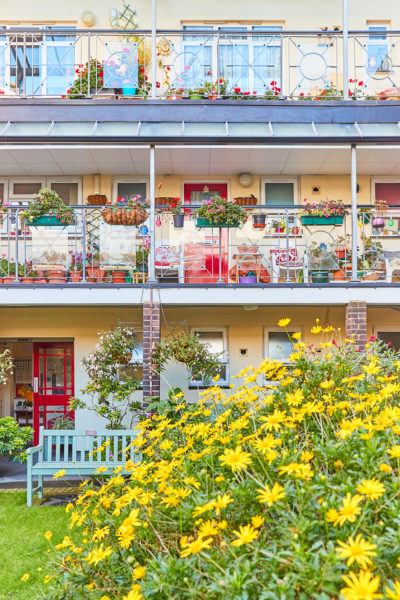 Why did you decide to apply for a flat here?
Why did you decide to apply for a flat here?
I was living in an almshouse in Notting Hill, but they sold the building and we all had to move out. Their plan was to use the money to build a bigger almshouse to accommodate more people. In the meantime, they were going to house us in alternative accommodation, but that was going to be miles away in North London.
I simply didn’t want to go. I’ve always lived in this area, and my daughter lives in Hammersmith. Miraculously, I knew about Hammersmith United Charities’ other almshouse, Sycamore House, so my daughter went to see the Scheme Manager Chris. While there wasn’t a flat available in Sycamore House, luckily one came up in John Betts. I was so grateful. And I must say, I am very happy with my little flat. It’s absolutely lovely.
What makes you happy with the flat?
When I came to see the flat, it had been occupied for a very long time, so I asked if they could possibly repaint it all white. They did that, so I have this smart little drawing room, and they also put in a new kitchen and new bathroom. It’s just heaven.
It is a little on the small side; I had to get rid of an awful lot of my furniture, but other than that it’s perfect. My daughter is nearby and my three grandsons come to have supper, which is lovely.
Do you like the outside space?
The garden is wonderful and I have a gorgeous ginkgo tree just outside my front door, which gives me huge pleasure. I’m quite disabled, so I can’t do much gardening, but I did bring a rose bush with me from my previous garden, and two camellia bushes, which are sitting on either side of my front door.
It’s a marvellous setup really – a wonderful oasis in the middle of a busy city. It’s so quiet and I feel very safe here.
Have you met many of the other residents?
I’ve met one or two, who have been tremendously kind. I went to the Macmillan Coffee Morning. One can go to weekly coffee mornings, but they’re a bit early for me.
Do you feel that you’ve been welcomed by the Scheme Manager and other Hammersmith United Charities employees?
Everybody has been so helpful and nice. I’m just so relieved I made this choice and that they were able to accommodate me. I’m extremely happy here.
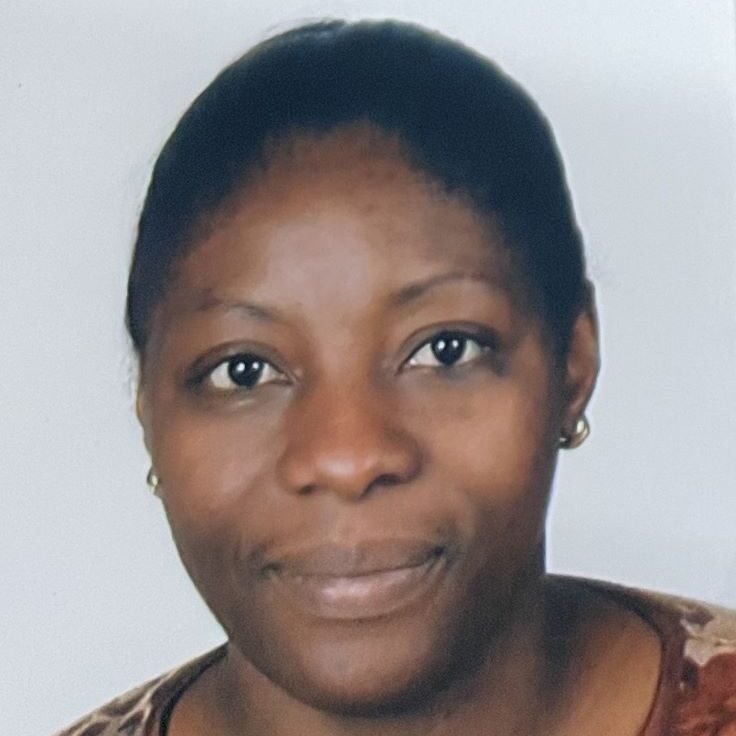
“She walks smiling into any meeting and lights it up with ideas”
October was Black History Month, so we decided it was high time to celebrate one of our own heroes: Atinuke Adenigbagbe.
Atinuke (fondly called Tinu by her friends) is the Scheme Manager at John Betts House.
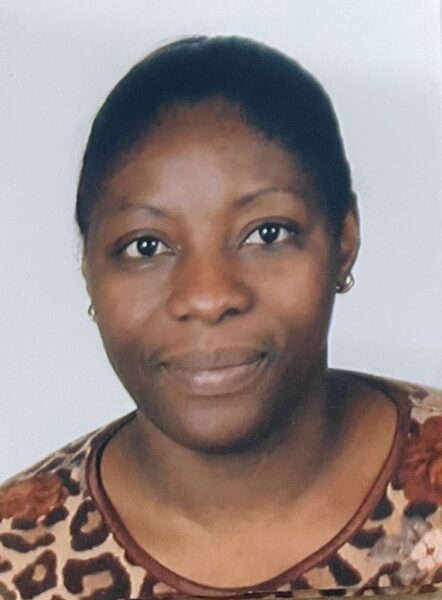 Can you tell us a bit about yourself?
Can you tell us a bit about yourself?
I moved to London from Nigeria 32 years ago and have been working in health and social care for 23 years, focusing on mental health, social care and housing. I am passionate about making a positive impact on people’s lives.
I have four wonderful children and what I call my ‘community family.’ As a Sunday school teacher, I love listening to people and sign-posting them to the help they need, as many struggle alone. It’s fulfilling to use my skills and training to support my community.
And what does your job at Hammersmith United Charities entail?
I started at John Betts in July 2023. My primary role is to ensure that residents have a safe and secure home, making sure everything is functioning properly and that everyone is well taken care of. I also assist residents with applications for adaptation aids and Housing Benefit, and I have good professional relationships with our local surgeries. Residents know they can always come to us for support.
We host weekly coffee mornings, and on the first Thursday of each month, we enjoy fish and chips together. On the last Thursday, one of our residents cooks a meal for everyone. And I look forward to more resident-led activities in the coming year.
It must be reassuring for residents and their families to know that you’re here to offer support?
It’s incredibly reassuring. For instance, when one resident was in the hospital, I checked in regularly, asking if there was anything I could help with. Another resident, who has a life-limiting illness, often tells us, “If it wasn’t for the support that is available living here, I don’t think I’d still be here.” It is reassuring to know that residents value the offered support, and it gives families peace of mind, which comes back to me been satisfied with the work I do.
You must get to know some of the residents really well?
Absolutely! They get to know us too. For example, now that my younger daughter is at university, residents often ask how she’s doing, and they share pictures of their grandchildren or stories of their university life, which are always very interesting to listen to.
Do you enjoy working for Hammersmith United Charities?
Yes, I truly feel we are a supportive team. I lost my sister last year, and the level of support I received, particularly from the Chief Executive, was beyond what I expected. Even though I hadn’t completed my probation, I felt encouraged to express my grief, and their support helped me feel at home here. I’m proud to be part of this team and the impact we make in the community is amazing.
I believe you ran activities at John Betts House to celebrate Black History Month?
Every Tuesday, we watched stories highlighting the contributions of Black individuals to our area. Despite the discrimination they faced, such as signs saying, “No dogs, no Blacks, no Irish,” their impact has been significant. Residents engaged with the videos, reminiscing and sharing memories, and we enjoyed tea and cake together afterward!
Do you have any Black heroes?
I greatly admire Nelson Mandela. He inspires me with his resilience; despite his struggles, he always saw hope. His journey reminds me not to give up on myself. As a Black person, I believe in the importance of resilience – keeping your head high and believing in yourself is essential. In my role, we receive training in dignity, diversity and inclusion, promoting equality and acceptance for everyone.
We asked one of our residents, Clodagh, about Tinu. She said, “From the first day she arrived, it was clear that Tinu had brought with her a deep knowledge of community living and the needs of residents – support, a listener, a problem-solver, and a proactive approach to health and wellness, both physical and mental.
“She walks smiling into any meeting and lights it up with ideas, plans and information, and leaves us to decide. She absolutely owns her role in a sometimes difficult and complex job.”
Find out more
You can watch a video about Hammersmith and Fulham’s Black history here.

Introducing our new resident – Pilar
We recently welcomed a new resident to John Betts House. We caught up with Pilar to find out why she decided to move to an almshouse and how she’s settling in…
How long have you been living in Hammersmith?
I arrived in Hammersmith in winter 2001. I was born in Madrid, Spain, on the 5th of November. When I first heard the huge Bonfire Night celebration in a park here, I was stunned, and more so when my friends explained to me the history behind that date. Since then, I have celebrated my birthday with Guy Fawkes night and the sound of firework displays at London parks.
I went to Camberwell College of Art and studied a Master’s in Paper Conservation that I enjoyed a lot. Caring and protecting old books, photographs and paintings with my hands was an extraordinary experience that I have kept in my heart.
Are you retired or are you still working?
Very probably, I am retired now, but as my main job was, and still is, to study, I am lucky and I continue studying, with less compromise now, but still with a lot of pleasure. So I could say that I am retired and also working… or more likely neither!
Why did you apply for a home at John Betts House?
First of all, for my health. My heart deterioration made it impossible to continue living with a lot of stairs, garden, etc and the doctors suggested that I live in a better place to manage my heart condition. My main concern was to continue living in Hammersmith, where I have lived for all my time in London. A friend of mine spoke to me about John Betts House.
Do you feel that you’ve been welcomed to John Betts?
Since the first day, I could feel a good energy, vibration and environment at John Betts, Sycamore House and Hammersmith United Charities as a whole. Personally, I have received all the help needed to establish my new life here, with the paperwork, the logistics and the daily routine. I have felt myself listened to, cared for, and treated with a high respect for my life, my own space and decisions.
What do you think of your new home?
My new flat is by a lovely point of the garden where I can see the different flowers and plants changing colour and forms. I can see also my neighbours and talk to them and enjoy their plants and produce in their pots, like chillies and small tomatoes.
Behind the house, is the allotment with vegetables and aromatic plants. Three gardeners take care of them and they encourage us to take care of the beds during the time the plants are growing.
Now I feel a little stronger, I would like to plant some vegetables in spring. The gardeners show the best disposition to help me.
The flat itself is comfortable, safe and very adequate for my needs. The kitchen is wide enough and I enjoy cooking in it. The flat is also very bright and warm. I feel that I am in a friendly and calm space.
Have you met any of the other residents?
Yes, there are a lot of spaces where you can meet with the other residents, and always when I need something like information, or when I meet them at the laundry or allotment, I have always found them to have the best disposition and friendly answers. I think they are attentive and respectful.
Have you been to any of the activities that are organised?
Until now, my participation has been irregular due to the conditions of my health, but now I hope to assist more regularly. I have been to some coffee mornings and other meetings at John Betts and Sycamore House, but unfortunately less than I would have wanted.
What do you think of the location?
It is a neighbourhood where people are happy living here. Many of my friends live nearby. I enjoy the diversity, the old factories and breweries, art and film studios, the number of workshops and craftsmen, small museums (such as Emery Walker’s House and William Morris’), squares, pubs, houses and old facades. I also appreciate all the old trees, Bishop’s Park, the long walk along the river under the old trees and the continuous changes of scenery.
The small shops, fishmongers, hospital, good transport and other services, along with the almost absence of hills or slopes, make it very convenient.
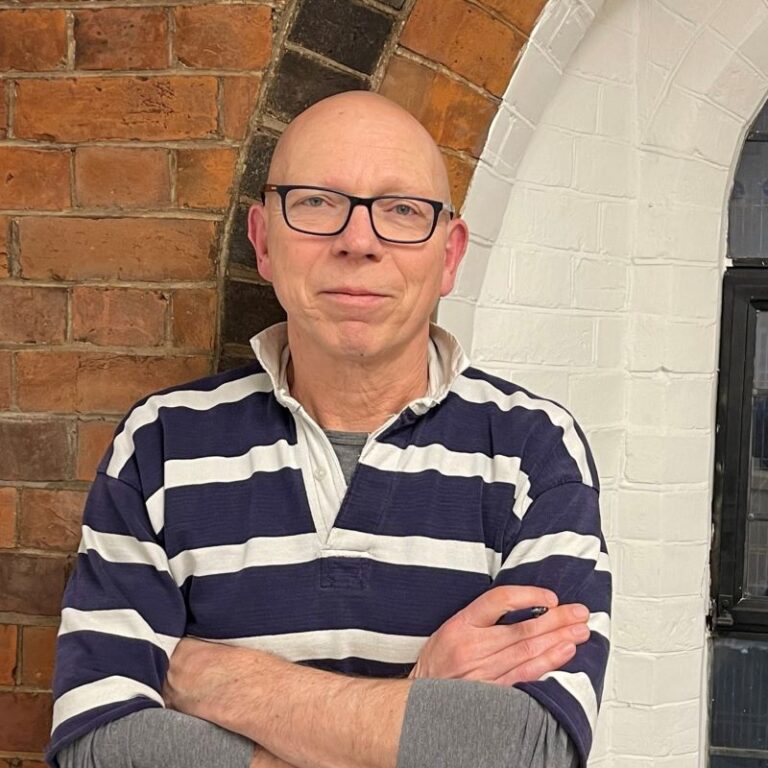
The Upper Room: Supporting homeless people in West London
From hot meals and clean clothes, to tailored advice and skills training, The Upper Room gives homeless and vulnerable people their dignity and a path out of poverty.
The Upper Room began as a trestle table of sandwiches outside a church. 34 years later, it offers a suite of services for socially disadvantaged people. The charity also hosts other local organisations, such as Glass Door and Citizens’ Advice, to ensure people can access the information they need to move forward.
One of The Upper Room’s key aims is to support people on their journey towards gaining a secure job. In many cases, the charity’s clients face multiple barriers to employment, from not being able to speak English, to a lack of digital skills, UK-recognised qualifications and work experience. Those with a criminal history often face additional barriers, so as part of its package of support, The Upper Room enables ex-offenders to get their driving licence and gain work experience through volunteering.
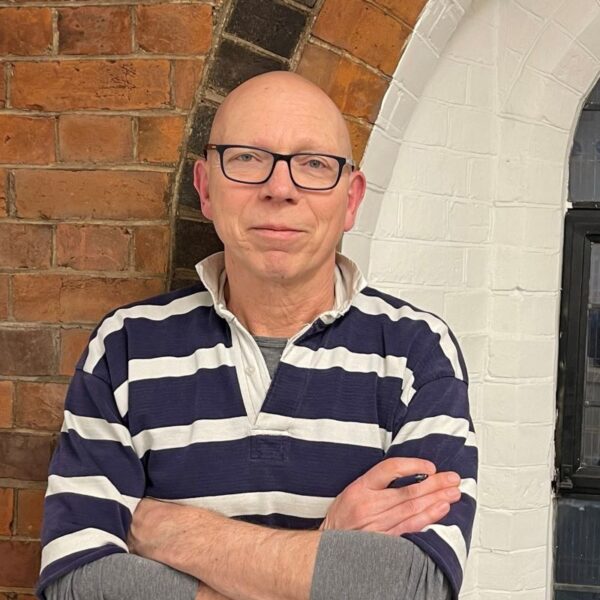
CEO Iain Cooper shares, “This year, 44 ex-offenders have gained their licence through us. Doing so significantly improves their employment chances, which helps them to stay away from crime.”
Suicide prevention
One of The Upper Room’s newest programmes aims to reduce the risk of suicide for Polish men aged 40 to 60. Iain explains, “As a group, these men are particularly vulnerable to suicide, partly because of a macho culture where men don’t discuss their feelings.”
The Upper Room has partnered with mental health charity Rethink to offer counsellor-led safe spaces when men can share their experiences. Most of the men who take part are homeless and many struggle with alcohol mis-use. Iain says, “We’ve seen a tangible difference in the men; the mood has started to lift. One of the men is a rough sleeper who’s been a regular at The Upper Room for a long time. He was starting to have severe mental health issues. He came to the group but didn’t say anything for three or four weeks. One day, we sang Polish folk songs together. Someone was taking photographs and in one of the photos this man is smiling. Nobody here had ever seen him smile before, and he couldn’t remember the last time that he’d done it.”
Funding
The Upper Room receives no government funding and has seen a significant increase in need over the last few years. The number of people sleeping rough in London has more than tripled since 2008/9. In Hammersmith & Fulham alone, 462 people were found to be sleeping rough in 2023/24.
Iain shares, “In 2022, we served around 20,000 hot meals to people who were homeless or experiencing food poverty. In 2023, that increased to just shy of 33,000. We’re expecting to serve closer to 40,000 meals this year.”
HUC launched the Flexible 3 Year Grants (F3YG) programme to make it easier for charities to cope with the increase in demand, and to plan ahead. We recognise that many charities are struggling with expenses such as wages, rent and utility bills, so F3YG grants can be spent on core costs.
The Upper Room is one of our newest F3YG holders and will be awarded £15,000 a year for three years. Iain says, “Without the back office to support the front office, the front office would fall over completely. You need systems, processes, hardware and so on. Our team are exposed to really traumatic stories on a regular basis, so they need access to proper mental health support. Funding for those kinds of core costs is hard to come by, so knowing that we have that money in the pipeline is game changing.”
Corporate partnerships
The Upper Room is keen to hear from businesses looking for a charity partner or volunteering opportunity. Iain says, “We can offer really positive away days for staff. Employees truly enjoy getting the chance to give something back to their community, and the business can get some great shots for their social media channels.”
If you’d like to find out more about The Upper Room’s corporate packages, please email uradmin@theupperroom.org.uk or call 020 8740 5688.
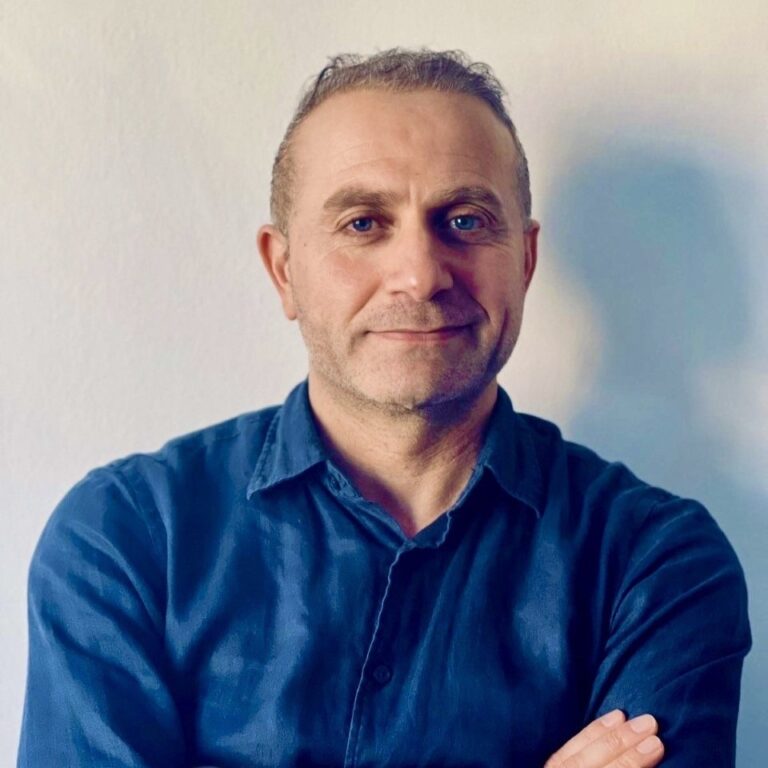
Hikayetna: Helping people to share their story in safety
Hikayetna means ‘our story’ in Arabic. The not-for-profit exists to empower and unite refugees and migrants, bringing communities together through culture and creativity.
My Health, My Life is Hikayetna’s latest project. The community organisation is creating several short films in Arabic to help refugees and migrants recognise mental health issues and understand how to get support when they need it.
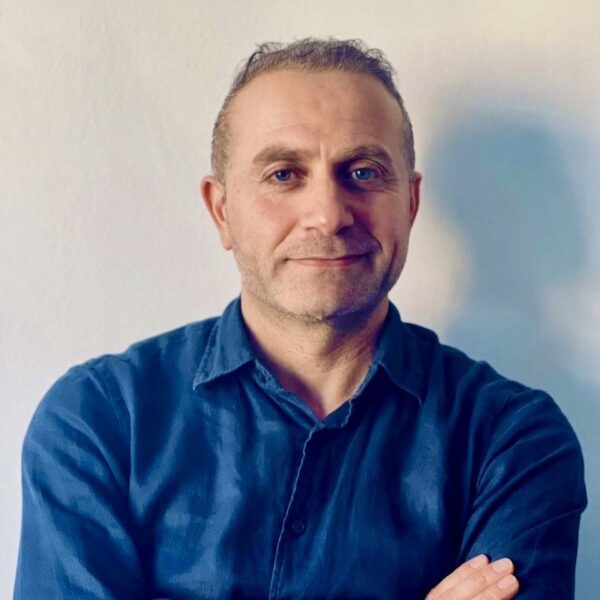 Here, Sulaiman Othman, Director of Hikayetna, tells us about the project and why it’s needed.
Here, Sulaiman Othman, Director of Hikayetna, tells us about the project and why it’s needed.
“I’ve met many refugees and other members of the Arabic-speaking community who are struggling with trauma and mental health issues. Many have come from a war zone and have lived in refugee camps. Once they arrive here, they’re kept very busy with documentation, assessments, setting up schooling, talking to the council, getting housing and so on. They don’t deal with the pain that they’ve brought with them. Some feel ashamed to talk about mental health, as in Arabic cultures, people often don’t talk about their feelings.
“Even if they do try to get help, there’s a lack of resources in Arabic. Support may be provided by the local community, the NHS or charities, but people can’t access it.
“We wanted to take this knowledge, these resources, and make it easy for people to access them. The videos are about breaking the ice, raising awareness, encouraging people to talk about mental health, and giving them the chance to make a fresh start.
“We’re going to produce three or four videos initially. Each will be two minutes long. We’re using Arabic in the videos, along with English subtitles and infographics.
“We’ll cover mental health, what it is, how the NHS can help, and how we can reduce the stigma around it. We’ll also interview an Arabic-speaking mental health specialist familiar with the culture.
“We’re hoping to launch the first video on social media in 2025. We’ll have a launch event to encourage the community to come together and talk about mental health issues. This is a small project, with a small grant, and a small team, but it’s part of a longer term goal. We’re meeting with universities and local organisations that provide mental health services to discuss how we can work together to support the Arabic community’s mental health and make it easier for people to connect, integrate and engage.”
Hikayetna has received a grant from Hammersmith United Charities towards the cost of creating the videos. You can find out more about our community grants here.

New sexual harassment legislation
The Equality Act has been strengthened with the Worker Protection bill. Here's how to make sure your organisation is taking the necessary steps to protect workers.
Employers now have a duty to protect their workers against sexual harassment from managers, colleagues, customers, visitors and other people who they might come into contact with through their work.
If one of your employees is sexually harassed, they may be entitled to compensation from your organisation. If the tribunal finds that you didn’t take ‘reasonable steps’ to prevent that harassment, the compensation could be increased by up to 25%.
What counts as sexual harassment
Sexual harassment is unwanted behaviour of a sexual nature. When it comes to workplaces, the person carrying out the harassment often (but not always) targets someone who’s at an equal or lower pay grade.
The person carrying out the harassment may intend to humiliate, intimidate or degrade the person they’re harassing. However, in some instances, they may not realise that the behaviour is causing the other person distress, particularly if the person they’re harassing feels too uncomfortable to complain. For instance, if an employee is being sexually harassed by their manager, they may try to ignore or make light of it because they’re worried about their job. What some people might consider as joking, ‘banter’ or part of a workplace culture can still be sexual harassment.
Behaviour doesn’t have to be physical to be classed as sexual harassment. For example, if a member of the team makes lewd jokes or suggestions, or makes sexual comments about someone’s body or clothing, that may be classed as sexual harassment. The comments don’t need to be aimed at a specific person to be deemed harassment.
Examples of sexual harassment include:
- Asking questions about someone’s sex life
- Telling sexually offensive jokes
- Making sexual remarks about someone’s body, clothing or appearance
- Making sexual comments or jokes about someone’s sexual orientation or gender reassignment
- Displaying or sharing pornographic or sexual images, or other sexual content
- Touching someone against their will, for example hugging them or stroking their arm
- Sexual assault or rape
Who the legislation covers
The Worker Protection bill is designed to protect all those who are in ‘employment’ and covers:
- Employees who have a contract of employment with the organisation
- Contract workers, including agency workers and those who contract to provide work personally such as consultants and freelancers, who cannot send someone to do the job in their place
- Apprentices who have an apprenticeship contract
- Job applicants
While volunteers aren’t always covered under employment legislation, they deserve to volunteer in a respectful environment where they feel safe and protected. Therefore, we recommend that policies, communications and training also include volunteers.
What you can do to prevent sexual harassment in your workplace
If your organisation employs people, it must take reasonable steps to prevent sexual harassment. These might include (but aren’t limited to) the following:
- Carry out a risk assessment to look at how sexual harassment could take place, and how risks can be reduced.
- Create (or update) an anti-harassment and bullying policy, which explains what sexual harassment is, what everyone’s responsibilities are when it comes to preventing and tackling it, and what actions will be taken against anyone who breaks the rules.
- Ensure that all employees read this policy and are trained to recognise sexual harassment.
- Give additional training to team managers so they know how to deal with sexual harassment.
- Make sure that staff members know how to report sexual harassment and have options for who to report it to (for example, if their line manager is the culprit, the staff member will need to be able to report the behaviour to someone else).
- Clearly communicate a zero-tolerance approach to sexual harassment and intimidation (for example through posters).
- Investigate any complaints swiftly, thoroughly and sensitively.
Further reading
We recommend reading the Equality and Human Rights Commission’s guide on harassment at work, which has been updated to reflect the new rules.
Outside of the workplace, Hammersmith & Fulham Council have brought in a new public spaces protection order (PSPO) prohibiting street harassment. The order covers activities such as catcalling, sexist, homophobic or transphobic slurs and non-consensual physical touching. The police will be able to issue fixed penalty fines for such behaviour.

Introducing our new Flexible 3 Year Grant holders
Find out how our newest grant-holders are supporting communities in Hammersmith.
Cuts in public funding, coupled with falling donations and an increase in demand, has hit local charities hard. According to NCVO, 85% of charities believe that this winter will be as tough, or even tougher, than the last, and one in five believe they won’t be able to meet the increase in demand.
HUC’s Flexible 3 Year Grants are designed to help organisations address demand and plan for the future. Our newest grant holders are The Sulgrave Youth Club, The Upper Room and the Hammersmith branch of Crosslight Advice. They’ve all been awarded £45,000, which will be split over three years.
The three charities all work to support vulnerable people within Hammersmith and the surrounding areas.
Crosslight Advice, Hammersmith branch
The cost-of-living crisis has affected people across society, but for those who were already struggling, the impact has been devastating. Crosslight Advice provides personalised advice on debt, benefits and housing. It also helps people to build financial resilience through its free Money Course.
Many of the Hammersmith branch’s clients have been pushed into debt to meet basic needs, which has then caused further issues. Case Manager Sara Thomas shares, “Debt is the third most important cause of poverty in the UK. 34% of our clients have cut down or gone without heating; 65% have a problem in at least one other area of their life, such as health, employment or housing; and 45% have cut down or gone without food.”
The branch is using its grant to help with staffing costs.
Crosslight Advice is always keen to hear from people who are interested in volunteering. You can find out more here.
The Sulgrave Youth Club
When families find it difficult to meet basic needs, there is little money spare to spend on children’s activities. Nick Sazeides, Club Manager at The Sulgrave Youth Club, shares, “Without access to affordable activities outside of school, children and young people can become bored, frustrated and isolated at home, or at risk of negative peer pressure and potential anti-social behaviour if out on the streets.”
The Sulgrave Youth Club runs free after school and evening clubs for children and young people in Shepherds Bush, along with a range of low-cost activities, such as drama, taekwondo, maths & English, and roller skating. More than 650 children and young people attend every year and new members are always welcome.
Nick says, “HUC’s grant will give us a measure of financial certainty while we explore how we can maintain and extend our range of services, reach and connect further into the community, fulfil our vision to ‘remove the limits to young people’s lives’, and ensure we have a viable future as a stronger and more resilient organisation as we reach our 100th year in 2026.”
The Upper Room
The Upper Room supports socially disadvantaged people, including those who are homeless, have been in prison or are affected by poverty. It offers a range of services, from providing hot meals, clean clothes and toiletries, to giving advice on benefits and finding a job. The charity’s UR4Driving project provides free driving lessons to ex-offenders to help them avoid being drawn back into crime. Participants also benefit from voluntary work, group workshops and informal mentoring from people with lived experience of the prison system.
HUC’s grant will help to support the charity’s core work, and also support the role out of new services. The Upper Room’s CEO Iain Cooper explains, “This grant will enable us to embed the good work we have done so far in establishing health-focused programmes addressing health inequalities, such as offering cancer screening for homeless people and working with high-risk groups to prevent suicide. We have been running a pilot suicide-prevention programme specifically targeted at middle-aged Polish men, which has proven a great success, and which we intend to run again and build in scope.”
Apply for a grant from Hammersmith United Charities
Our Flexible 3 Year Grants will return next year. While this programme focuses on organisations that we already work with, we also offer Community Grants, which are open to other charities working in Hammersmith.
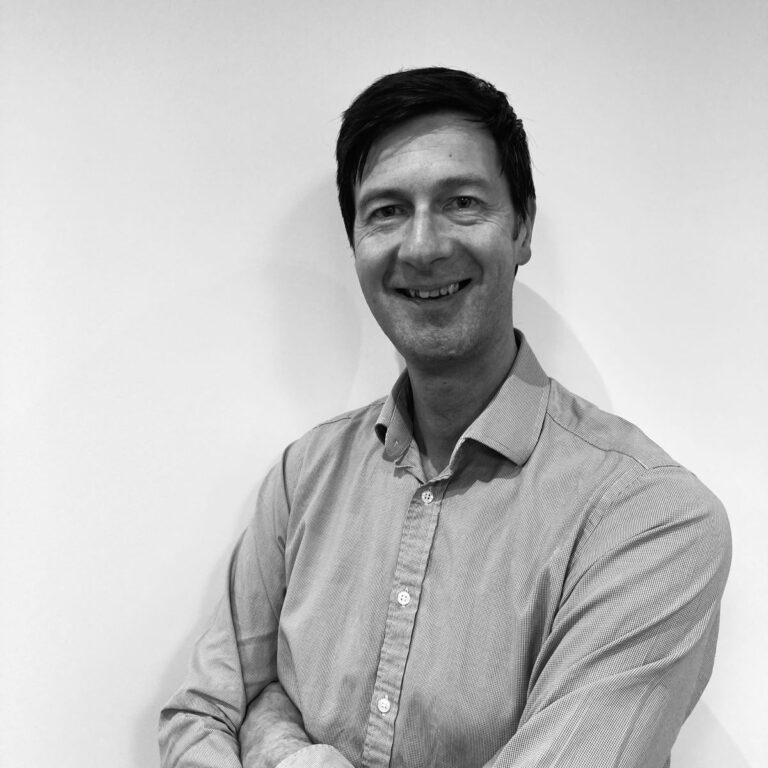
Introducing new trustee Derek Williams
Derek sits on our Finance and Investment Committee. He brings with him 30 years of experience in property, investment finance and business development.
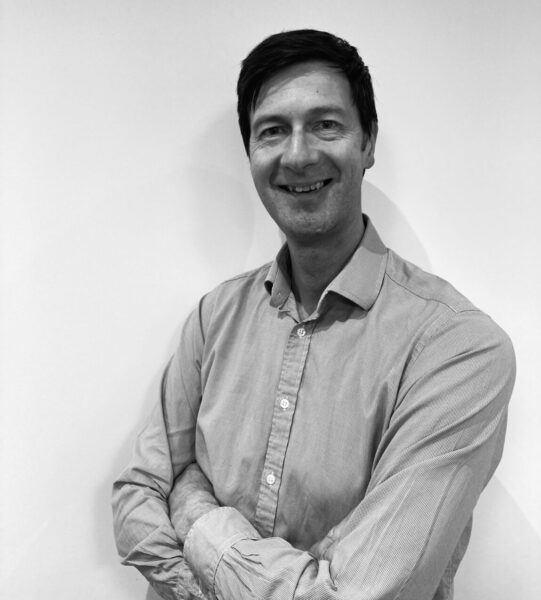 Can you tell us about your background?
Can you tell us about your background?
I’ve been a Hammersmith resident for a number of years. I grew up in a very diverse borough in North London, similar to Hammersmith. I started working as a chartered surveyor in my early 20s, then moved into strategy and analysis for 10 years for FTSE 100 companies. I wanted to gain a bit more global experience, so I applied for a role at an American company called Russell Investments. Long story short, I set up their European platform and team and, two promotions later, ended up in California, heading up their global real estate team. Having moved back to London, I now focus on helping to grow businesses. My current role is Managing Director of Investor Relations for The Valesco Group.
Why did you want to become a trustee for Hammersmith United Charities?
Hammersmith is home; it’s where my kids are being brought up. Living in America for a few years really made me appreciate London. It’s such a dynamic, exciting city, and I want to, albeit in a very small way, add value to it. I feel that my skills and experience in residential property, finance and investments can be of use to Hammersmith United Charities. I can also add value by picking up the phone and making introductions to help the charity build new relationships.
What do you do in your spare time?
I’ve got three kids and two rescue dogs. My wife Suzanne and I enjoy walking the dogs together. Our kids are aged 10 to 15, so they’re becoming more independent, but my son and I spent a couple of days playing golf together recently. It’s rare that happens, but it’s always nice to dust the golf clubs off. My second eldest child is at ballet school in Hammersmith full-time as she wants to be a professional dancer.
We’re a very active family. I used to play squash a lot, but my joints aren’t what they used to be! I do enjoy riding my Brompton folding bike though, which I mainly use for commuting from work in the West End back home to Hammersmith. It’s a really interesting borough; I enjoy living here.
Find out more
- Read more about our trustees

Fulham Reach Boat Club: closing the ‘holiday gap’
Fulham Reach Boat Club’s vision is ‘Rowing for All’. One of the ways it fulfils its vision is by offering free watersports weeks during the summer holidays.
The summer holidays can be difficult for many families. According to Feed London, 400,000 children in London are facing holiday hunger. Families on a low income may also not be able to afford holiday clubs and other activities. When combined with a lack of green spaces and safe places to play, this means that some young people stay home for much of the holidays, leading to social isolation.
Charities are helping to close the ‘holiday gap’ in Hammersmith & Fulham by offering free or heavily subsidised activities and lunches. Several HUC grant-holders are involved, including DanceWest, Nourish Hub, HCGA and Fulham Reach Boat Club.
Julia Philipson, Fundraising Manager at Fulham Reach Boat Club, shares, “Whilst their better-off peers might be doing all sorts of fun things, those activities usually aren’t accessible to disadvantaged children. So, they suffer from summer learning loss. Some are also at risk of being pulled into crime, partly due to holiday hunger.”
The boat club runs free watersports weeks during the summer and Easter school holidays for children in Hammersmith & Fulham who receive the Pupil Premium.
Julia says, “Our charitable programmes are for people in our community who may not ordinarily be able to access blue spaces in London or indeed access any kind of physical activities outside of school. It’s not about finding the next Olympic champions like Helen Glover or Mohammed Sbihi, it’s about getting children out onto the water for their physical and mental health.”

As well as rowing and other sports, the young people receive breakfast, a snack and a hot lunch prepared by Sam’s Riverside restaurant. They’re also taught water safety and basic first aid, and athletes often give talks on mindset, nutrition and other topics.
Along with the holiday clubs, the charity runs six-week programmes for disadvantaged children and teenagers from 11 secondary schools within Hammersmith & Fulham and three schools from neighbouring boroughs. The programmes are heavily subsidised, as the boat club fundraises to cover most of the costs.
Julia says, “Many of the children have multiple barriers to accessing watersports. They might have been told they’re no good at sport for example, but if you can’t catch, kick or throw a ball, you can still enjoy rowing. And maybe that will give you the confidence to try other activities. So, as well as benefiting children physically, it’s helping to change those negative self-perceptions.

“One boy brought his family down and told them all about the club and what he’d learnt. He also came in recently to thank the junior coach for the opportunity and for helping him to see things differently.”
The boat club tries to be as accessible as possible. Many of the young people who take part in the clubs aren’t strong swimmers. Others have special educational needs or disabilities. Julia recalls one boy who had a visual impairment. “He came down for a morning to try it and ended up really enjoying the experience. He came numerous times over the summer holidays and is now a junior member. He’s a very good rower.”
Fulham Reach Boat Club provides a few bursaries each year for young people who’ve enjoyed the free clubs and who want to keep rowing. The bursaries cover all costs, including competition fees.
The boat club’s other target beneficiaries are prisoners. Julia explains, “One of our team members, Imogen Walsh, had a chance meeting with an ex-prisoner at another boat club, who shared their story of how they’d transformed their life through rowing. That inspired Imogen to set up our Boats Not Bars programme, which helps to rehabilitate prisoners through sport to reduce the risk of them reoffending. So many young people end up in prison after taking a wrong turn in life because they didn’t have the support that others take for granted. We want to give them a second chance.”
While the boat club pays for staff and rowing coaches, it also benefits from lots of volunteers, some of whom started rowing through the holiday clubs. Julia shares, “It’s lovely to see their journey of growth from their first time trying rowing, to developing their skills, to becoming ambassadors for the club and welcoming new people in. These kids are really inspirational, they just need the opportunity to show what they can do.”
Summer in the City
While the Fulham Reach Boat Club programme is fully booked for the summer, a wide range of other free children’s activities are available through Summer in the City. Activities include roller skating, boxing, yoga, drama, DJing and manga. A healthy meal is provided for each child.
Holiday hunger
If your family is affected by holiday hunger, you may be eligible for support from the Hammersmith & Fulham Foodbank. The Nourish Hub is also running community lunches throughout the summer.

Introducing new trustee Kevin Griffiths
Kevin is one of our newest trustees and brings with him 25 years’ experience of working in the housing sector.
 Why did you want to become a trustee for Hammersmith United Charities?
Why did you want to become a trustee for Hammersmith United Charities?
I spent six years working in the borough and five years living here. It’s a very vibrant, fun place to live and work. Hammersmith is a real melting pot, with a huge spread of faiths and cultures.
However, there’s also a lot of deprivation here, and typical inner-city problems around homelessness and poor-quality accommodation, which is often right next to multi-million-pound properties. It’s hugely unfair. HUC helps to provide some balance and support for people who need it. I love what the charity does and admire the fact that they’ve been supporting the people of Hammersmith for 400 years.
What do you bring to the HUC board?
I’ve been working in construction for 25 years, mainly as a quantity surveyor. For the last 15 years, I’ve worked on social housing for Hammersmith & Fulham Council and other local councils. I’m currently General Manager at Fortem Solutions; I deliver repairs and maintenance frameworks for local authorities and registered providers.
I understand the issues the housing sector is facing, such as complying with the Building Safety Act. Compliance procedures are frequently being changed at the moment, which puts pressure on landlords and other housing providers. I feel my experience will be useful to HUC, providing the team with additional capacity and insights.
So you’re particularly interested in the almshouse side of HUC?
Yes. My first home as an adult was a former almshouse in Dunstable, near Luton. I lived there for almost five years. I hadn’t really appreciated what almshouses were before then or why they were so needed.
So, years later, when I heard about HUC, I looked into the charity and realised that it’s doing fabulous work, helping the people who most need support. Ultimately, I want people to have safe homes to live in.
What do you do in your spare time?
I’m studying for a Master’s, which takes up a lot of my time outside work. I also enjoy a round of golf and generally being outdoors when I get the chance. I did the Three Peaks challenge last year. However, I have two children, aged four and five, so most of my free time is spent with them. Family comes first.
Find out more
- Read more about our trustees

May 2024 Community Grants announced
£99,285 to 12 organisations!
Every year, Hammersmith United Charities provides £400,000 to local groups that are creating positive change in our area of benefit. Our most recent grant round in May 2024 saw grants awarded to 12 groups, ranging from £300 to £14,990 and totalling £99,285.
The organisations receiving funding include This New Ground CIC, who are using their grant to support people with learning disabilities to move towards employment. Participants will benefit from weekly art sessions, a peer-led singing group and individual mentoring.
Other grant-holders include the Mother and Child Welfare Organisation, who are using their grant to expand health equity projects, and Hikayetna, who are planning to create a series of short Arabic videos to improve access to mental health services.




How to apply for a HUC Community Grant
We hold three grant rounds each year and are particularly keen to hear from smaller, local organisations with a strong connection to their community and a working knowledge of the local area. Your project can be a one-off or ongoing. What interests us most is the difference you’ll make to the local people most in need.
Please complete our Eligibility Quiz before applying, and then contact us at grants@hamunitedcharities.com to tell us about your project. We like to talk to applicants before you apply so that we can get a better understanding of what you’re doing and answer any questions you may have.
Find out more
- Learn more about our Community Grants
- Read our grant FAQs
- Hear from other organisations we’ve supported
- Read more about how to apply

How to find (and keep) volunteers
HUC grant-holders share their top tips.
Volunteers are at the heart of most local charities and community groups. According to the Government’s Community Life Survey, 16% of people volunteer in a formal capacity (e.g. through an organisation) at least once a month. While this figure seems high, the reality on the ground is that organisations across London are struggling to find volunteers.
Numerous reasons were discussed for this at a recent HUC grant-holders meeting. According to the group, a key challenge is finding volunteers who have the necessary skills, confidence and time to give. A lack of staff and resources to recruit, train and supervise volunteers was also raised.
Retaining volunteers is also a challenge. People often have to give up volunteering or reduce their hours when they find paid work, for example. This has become an increasing issue due to the cost-of-living crisis, with more people needing to work extra paid hours to make ends meet.
On a brighter note, the grant-holders had plenty of tried and tested ideas to share. These include:
Publicise opportunities
- Make a short video to give potential volunteers a sense of what volunteering will be like.
- Advertise in community spaces, e.g. churches, schools, doctors’ surgeries and libraries.
- Make it very clear what the volunteer role is, including any specific skills that are needed.
- Showcase existing volunteers who reflect your target communities.
- Organise one-off events and small projects to give people a taste of volunteering.
- Follow up with volunteers who’ve not helped out for a while.
- Keep a list of people who’ve expressed an interest in your organisation to contact when you need volunteers (as long as you have their permission to do so).
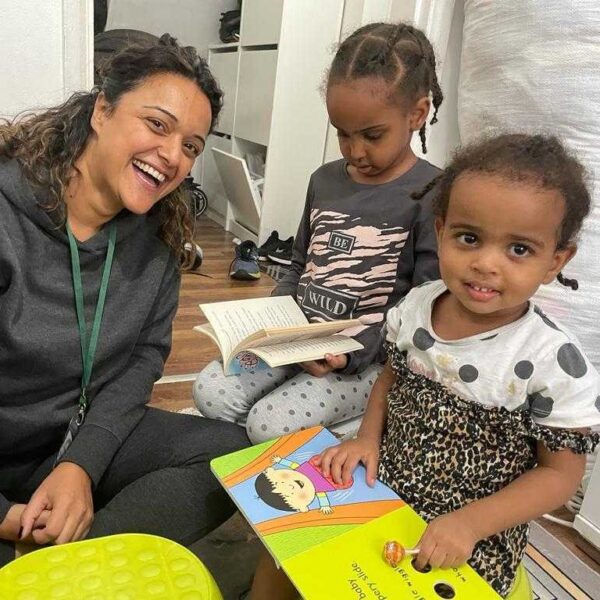
Volunteering with Doorstep Library
Create a welcoming environment
- Create a safe and inclusive environment.
- Provide a good induction, along with training and ongoing supervision and/or mentoring.
- Make people feel valued and invest in them.
Build a network
- Build partnerships with relevant organisations, e.g. partner with colleges and universities to offer work-experience placements to students.
- Ask other community groups and organisations to publicise your activities and volunteer vacancies, in exchange for publicising theirs to your audiences.
Other ideas
- Make sure the first contact – whether in person or online – makes potential volunteers think “Wow, I want to be part of this.”
- Create micro-jobs for people with limited time or capacity.
- Enable an overlap between front-line volunteers and trustees.
Volunteering resources
If you’re keen to attract and keep volunteers, the following websites will be of interest:
- Access training and advice from the H&F Volunteer Centre.
- Connect with new volunteers at Do It.
- Promote volunteering opportunities at Simply Volunteer London (which replaced Team London in March 2024).
- Download Volunteer Centre Sutton’s Volunteer Management Toolkit.
- Read guidance on how volunteering might affect benefits.
- Read about Disclosure and Barring Service (DBS) checks.
- Check government guidance on the DBS process.
- NHS England offer free safeguarding training for volunteers. Register for e-learning programmes here.
- Attend the H+F Cost of Living Alliance’s networking event on 11th July.
- Access advice on skills-based volunteering in the Lloyds Bank Foundation’s new report – Skills Based Volunteering: A Win, Win, Win.
Networking meetings
The grant-holders were attending a networking event at Sycamore House. 13 charities and community organisations were joined by HUC staff and a guest from the H+F Volunteer Centre. If you’re a HUC grant-holder, we’ll email you details of our next networking event nearer the time.
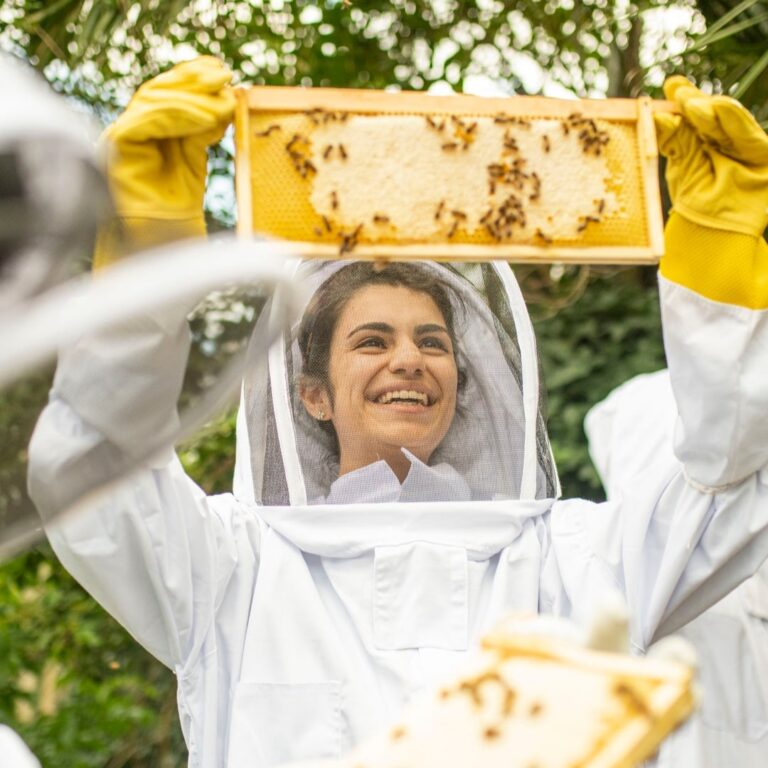
Bees and Refugees
Find out how one CIC is helping refugees to rebuild their lives, while protecting a rare British bee.
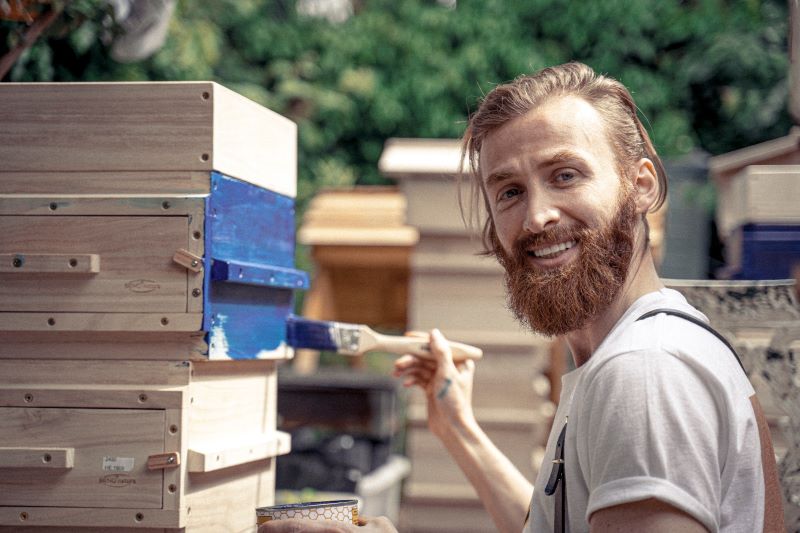 Bees and refugees may seem like very different target groups, but for Ali Alzein the pairing makes complete sense: “Bees are very important for our ecosystem, for our survival as humans, but it’s a difficult environment and they’re in real danger. Refugees are also facing a hostile environment. The establishment has not only turned its back on refugees, it’s actively punishing them for seeking safety.”
Bees and refugees may seem like very different target groups, but for Ali Alzein the pairing makes complete sense: “Bees are very important for our ecosystem, for our survival as humans, but it’s a difficult environment and they’re in real danger. Refugees are also facing a hostile environment. The establishment has not only turned its back on refugees, it’s actively punishing them for seeking safety.”
Ali was introduced to beekeeping in Damascus by his grandfather. He shares, “I had to leave Syria so applied for asylum in the UK in 2014. I’d been working in the luxury fashion industry, so continued with that, but the disparity between people who could spend £1000 on an item of clothing on the one hand, and people living in refugee camps on the other hand, was difficult to cope with. I was struggling with my mental health. My grandpa suggested I start keeping bees. They were delivered on a rainy, foggy day, but they soon filled the garden with life. I found it so calming, so grounding.”
That experience prompted Ali to launch a community interest company (CIC) – Bees and Refugees. He decided to focus on the native British black bee, which until recently was thought to be extinct.
The CIC runs therapeutic beekeeping workshops for refugees, helping them to process the trauma they’ve experienced. Workshops are also available for children, charities and local businesses. Most of the workshops are held in London, but Bees and Refugees also has a farm in Otford, Kent, which the CIC has renovated and turned into a community space. Ali shares, “People spend the day here in a beautiful, safe space. We cook together and teach them all about bees.”
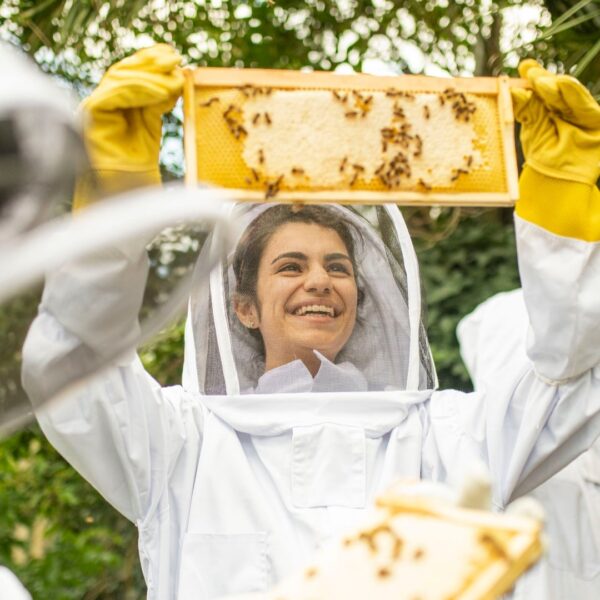 The CIC also raises awareness about the difficulties that refugees face, and it fundraises to support them. Ali shares, “Many of our community members come from Gaza. Some have lost more than 20 members of their family and have relatives who are stuck in Rafah. So, most of our work right now is focused on supporting this community.”
The CIC also raises awareness about the difficulties that refugees face, and it fundraises to support them. Ali shares, “Many of our community members come from Gaza. Some have lost more than 20 members of their family and have relatives who are stuck in Rafah. So, most of our work right now is focused on supporting this community.”
The CIC is making a real difference, both on bee numbers and on refugees. Ali, says, “It has a real impact on people. One man used to keep bees before he came to the UK. He said that working with bees again was the first time he’s felt at home since the day he left Syria seven years ago.”
The theme of this year’s Refugee Week is ‘Our Home’, so we asked Ali what home means to him.
“The home I came from is still not a safe place for me to return to, but for me, home is about community. I have an amazing community here, which has become a second family. We’re like a colony of bees!”
Bees and Refugees has received grants from Hammersmith United Charities and other organisations but is mainly self-funded. It raises income by managing beehives and insect hotels for local businesses, and by hosting corporate away days. However, it couldn’t survive without the help of volunteers. Ali says, “Bees and Refugees is the result of the collective work of so many people, so many buzzing bees.”
Find out more
- If you’re interested in supporting Bees and Refugees through volunteering, a corporate partnership or a donation, please visit their website.
- You can also follow the CIC’s work on Instagram, X and Facebook.
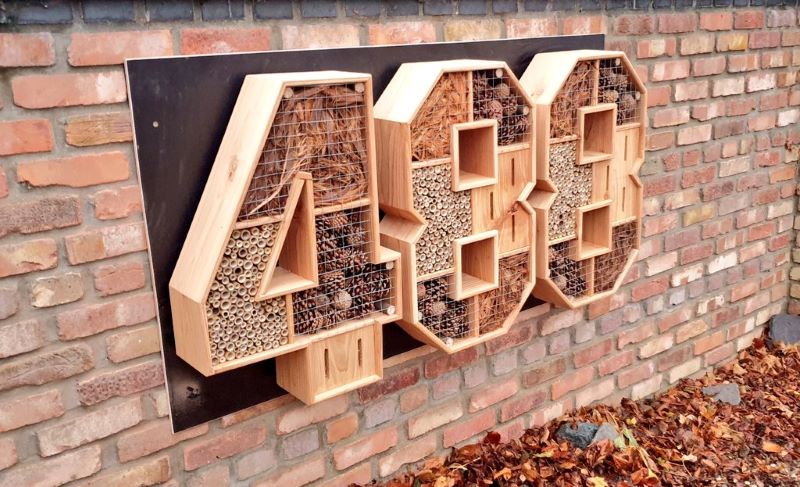
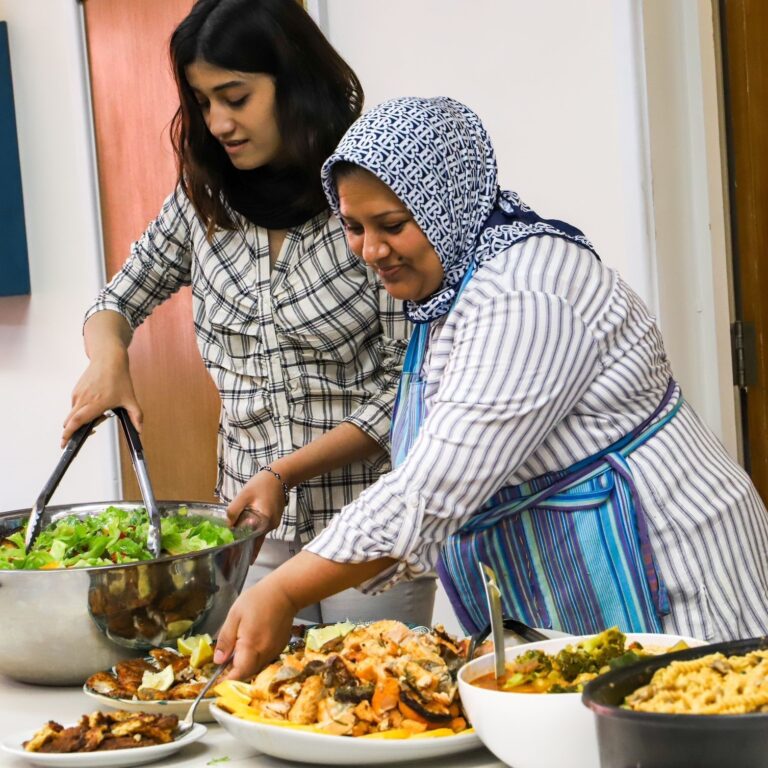
Welcoming refugees to West London
“As an asylum-seeking doctor, trapped in a [hotel] room with so little to do, West London Welcome revitalises my spirit.”
According to the UN, almost 100 million people have been forced out of their homes across the globe. The figure has more than doubled in just 10 years. Those who seek asylum in the UK are unable to work until they have been granted asylum, and receive just £8.86 a week of support, meaning that most have to rely on charities.
One of those charities is West London Welcome, which supported 492 asylum seekers, refugees and migrants last year. People visiting the charity’s community centre are able to get advice and support, learn English, take part in activities such as fitness classes and creative writing, and access essentials such as food and clothing. Perhaps most importantly, they’re welcomed into a supportive community where they can make friends to reduce their isolation.
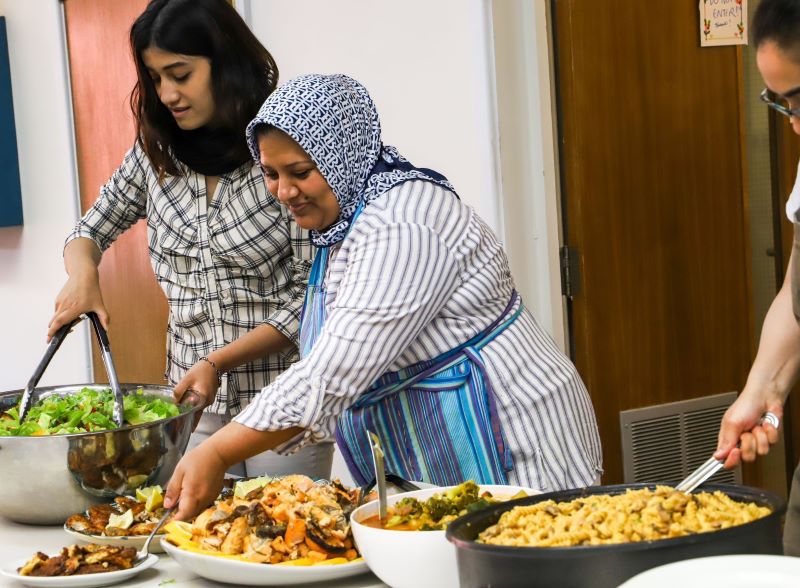
Joanne MacInnes is the Founder and Director of West London Welcome. She explains, “We primarily exist to be a place of welcome for new people to the country – a place to get to know local people and to feel supported.”
Zainab is one such person. She says, “As an asylum-seeking doctor, trapped in a [hotel] room with so little to do, West London Welcome revitalises my spirit. It’s a haven where everyone comes together, sharing experiences and hardships, reminding me of the profound impact of compassion and care.”
Refugee Week is 17-23 June. West London Welcome are planning several events, including a big party for their members and a fundraising event.
The theme of this year’s Refugee Week is ‘Our home’. Everyone deserves a place to call home, one where they can feel safe and at peace. For migrants and refugees far from their old communities, that need is more important than ever. However, most asylum seekers are housed in hotels, where they have very little space and cannot cook their own meals or enjoy the downtime that many of us take for granted.
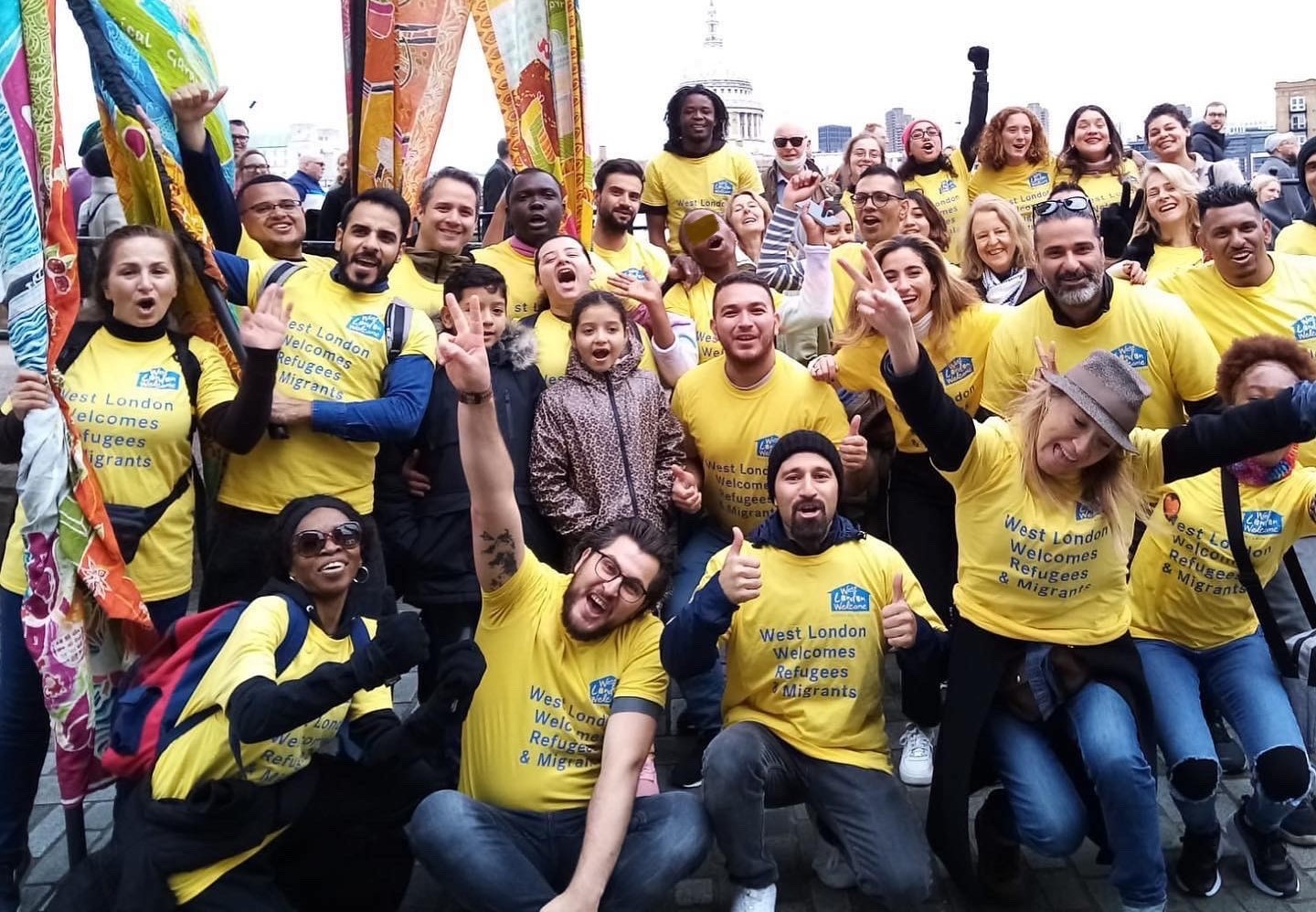
Once they’re granted asylum, refugees are given just 28 days to find new accommodation before they’re evicted from their hotel room. That would be difficult for most people, but for refugees the challenge is even greater, as Joanne explains:
“You haven’t got a deposit; you haven’t been allowed to work; you haven’t got a credit history; you’ve been infantilised and kept in destitution, and suddenly you’re thrown onto the open market, or you’re at the mercy of the council.
“Finding homes for people has been our biggest challenge recently and is what keeps us awake at night. In the second half of last year, the Home Office tried to clear its backlog of asylum applications, which meant that many more people were granted refugee status in a short amount of time. Before that, we might celebrate five people a year walking in and saying that they’d been granted refugee status. That grew to five to 10 people a week.”
If refugees can’t find new accommodation, they can end up on the streets or sofa surfing. Thankfully, West London Welcome have been able to stop that from happening to the people they work with. Joanne says, “We call on the local community to see whether anyone knows of a flat to rent which is affordable and where the landlord will accept housing benefit rates. We also work closely with a wonderful charity called Refugees at Home, who can often offer temporary housing. However, at times we’ve had to pay for a hotel, or one of our 130 local volunteers will put the person up until more long-term accommodation can be found.
“We don’t view people as clients – we’re a community – so we cannot see people forced out onto the streets.”
Find out more
- If you can offer a home to rent at the housing benefit rate, would like to volunteer, or need support, please contact West London Welcome.
- Hammersmith & Fulham Council is holding lots of events for Refugee Week, from a gardening workshop to Saturday Fun Day. Find out what’s planned for Refugee Week here.
- To show your support for refugees, visit the Refugee Week website to download resources, order a T-shirt and take part in a social media thunderclap.
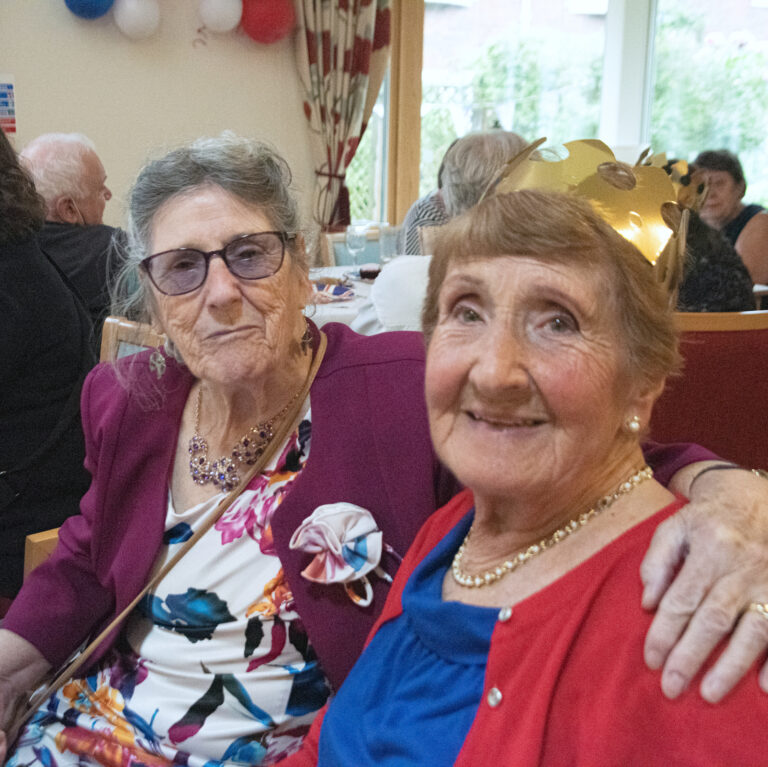
Building communities to reduce loneliness
Could almshouses be the solution to loneliness for people over 60?
According to Age UK, more than 70% of people aged 50 and over feel lonely to some extent. Many go days on end without speaking to another person. Feeling lonely can impact so many areas of your life, leaving you feeling depressed, anxious and struggling to cope. It can also affect your physical health. According to Loneliness Awareness Week, it can increase the risk of heart disease, high blood pressure, stroke and dementia.
One of the main reasons that older people feel lonely is isolation. When you no longer go out to work, and have no family or close friends living nearby, it can be difficult to meet new people.
Almshouses provide affordable housing with a particular emphasis on community, enabling residents to live independently with friendship and support nearby when needed.
Hammersmith United Charities have two almshouses – John Betts House and Sycamore House. Between them, they’re home to around 90 people aged 60 and over. Both almshouses host a wide range of activities, from coffee mornings and quizzes to trips out.
While each resident’s flat has a private living room, the almshouses also have communal social spaces and gardens.
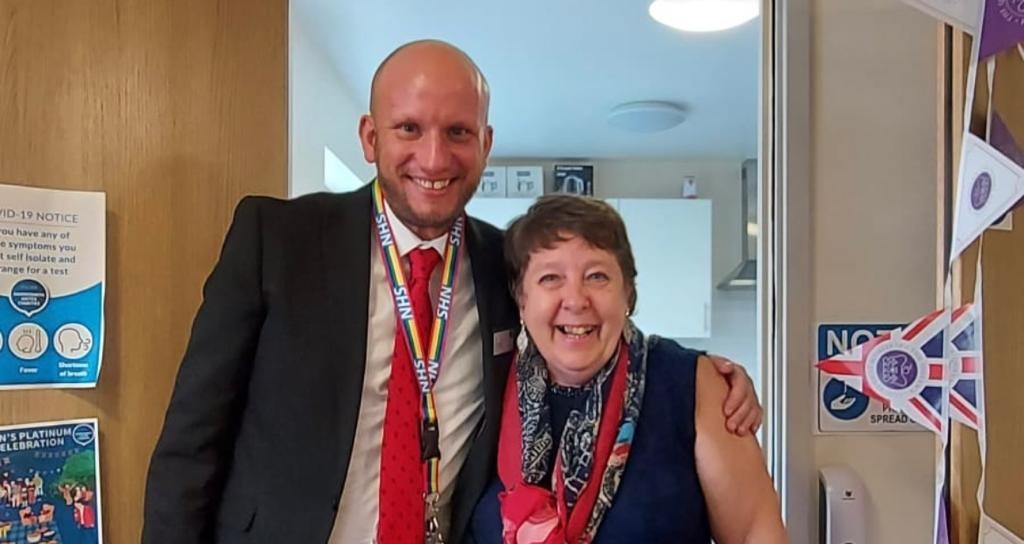
Lorraine moved to Sycamore House a couple of years ago. She says, “There is a wonderful garden at the back – the place absolutely shone in summer time. It’s lovely to go out and sit and enjoy time with others you’re friendly with. I think I can name nearly all of the 50 or so people who live here now.
“There’s lots on socially here at Sycamore House so I involve myself in that as much as I wish – I usually go to the coffee morning and catch up with everyone on a Thursday. I’ve made some very good friends here. We have lots of celebrations and parties, including a yearly fundraiser.”
One of Lorraine’s neighbours, Del, says, “They’re lovely people here. The staff are great. The best thing is you have your privacy, but the company is there if you need it. I am the quiz master here every Thursday. The residents get together after our coffee morning, and we have a good laugh.”
Apply for a home
We currently have flats available in both of our almshouses. If you or someone you know might be interested in applying, please visit our almshouses pages.
Here’s what our residents have to say about living here:
Tackle loneliness

“Houses on our street got bombed.”
This week, we’re marking the 80th anniversary of D-Day by sharing some of our residents’ stories of WWII. Today, it’s Betty’s turn.
“I remember the bombs dropping – the ‘doodle bugs’ [German V-1 flying bombs]. They used to come over and then you’d hear the engine stop and they’d crash into somebody’s house.
“We were lucky. We didn’t get bombed, but houses on our street did and people were killed. When the sirens went, we’d go down to Shepherd’s Bush underground station and sleep on the platform. We had an Anderson shelter in the garden as well, but my mum didn’t feel safe there.
“My mother was dead scared. We used to say to her, ‘Why are you frightened?’ When you’re a kid, you don’t realise how bad it is. You know that houses are being bombed and people are being killed and you’re sorry about that, but it doesn’t affect you in the same way as when you’re older.”
Betty and her family were evacuated to Nottingham. “We stayed with quite a well-off family called the Thornycrofts. You’d see Thornycroft buses on the road. They gave us a little flat in this big house and we were well looked after. We stayed for about six months. My mother got quinsy [an abscess near her tonsils]. She wanted to be home, so we came back to London.”
Betty’s step-father and uncle fought in the war. Both survived, but her uncle was badly injured. “My step-father didn’t really talk about the war. I don’t think a lot of them did. I think they saw some terrible things and just wanted to move on.”
Betty remembers the celebrations at the end of the war. “I was five when the war started and coming up to 12 when it finished. The street parties were good! It was five or six years after the war before things felt normal though.”
While Betty doesn’t recall hearing about the Normandy landings at the time, she says, “If it wasn’t for D-Day, we’d have lost the war. I was watching the telly yesterday and they spoke to a man who was in the navy then. He was only 16. A lot of them put their ages up so they could get into the forces. They were just kids.”
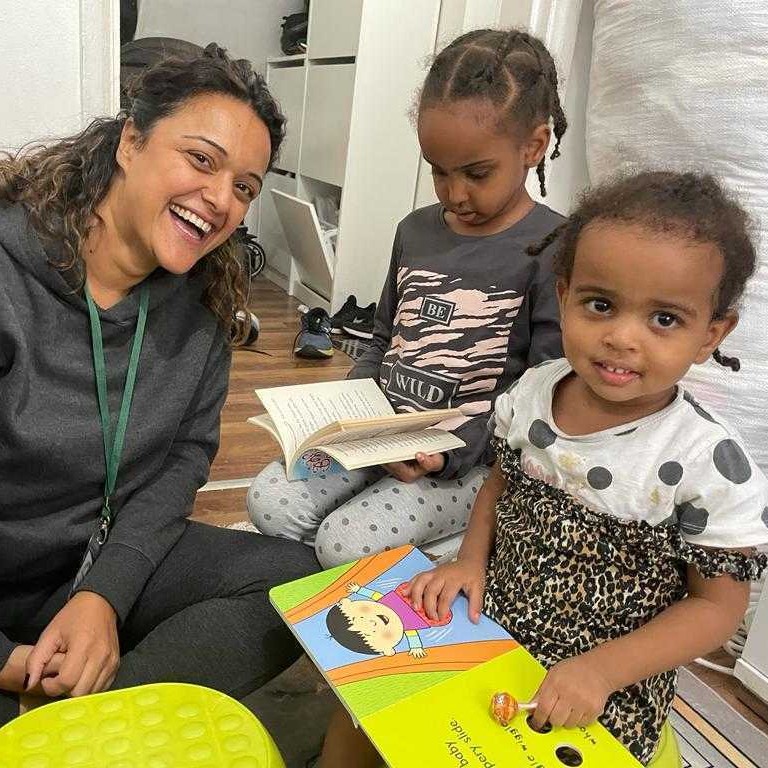
Calling all book lovers!
One of our grant holders, Doorstep Library, is looking for volunteers to read books to children.
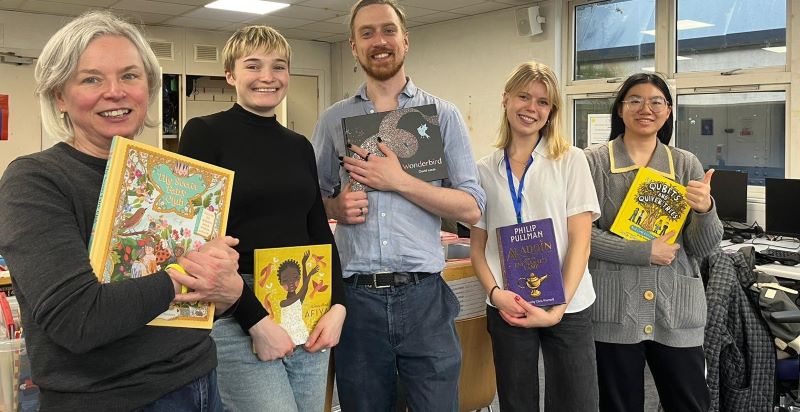
One in three children have never been read a bedtime story. They’ve never pictured themselves as the hero of the story, implored their parents for “just one more page”, or gone to sleep dreaming of what might happen next.You could help to change that.
Doorstep Library is looking for volunteers to read to children in London. Most readers visit children at home, for 20 minutes at a time.
About Doorstep Library
Olivia Rawnsley, Volunteer Engagement Manager, explains, “Our whole purpose is to encourage reading for pleasure. We’re all about having fun, getting creative, being silly and nurturing a love of reading, so that families have the tools to continue reading outside of our sessions.”
Doorstep Library currently has 187 volunteer readers but is always looking for more. As Ruth O’Malley, Head of Fundraising, says, “The more volunteers that we have, the more children that we can support.”
Visiting families at home helps children to see books as fun rather than purely educational, which is particularly beneficial for children who struggle with reading at school.
Olivia shares, “So many children go to secondary school unable to read properly. It’s a massive barrier to their education and really affects their confidence. Our volunteers help to bring back their confidence and bring back the fun.”
Ruth adds, “I’m not sure who has most fun, the children or the volunteers!”
Most Doorstep Library readers volunteer for two hours a week, and they often work with the same families for two years or more. If you can’t commit to volunteering every week, the charity is also looking for fortnightly volunteers and ad-hoc readers to provide holiday and sickness cover. Volunteers only work in term-time.
During the pandemic, Doorstep Library launched a new opportunity for online volunteers, who connect with families over Zoom. Online readers can be based anywhere in the UK.
Volunteering with Doorstep Library in a nutshell:
- Volunteer readers work in partnership, so you’re never on your own
- Most readers volunteer for two hours a week, usually 4.30–6.30pm
- You’ll visit the same families each week
- Ad-hoc and online opportunities are also available
- All books and other resources are provided by Doorstep Library
- You’ll receive full training
The difference you could make
93% of parents/carers said Doorstep Library has helped to improve their child’s reading skills. When you encourage a love of reading in a child, the benefits are far-reaching. Children who read for pleasure tend to perform better academically, particularly in subjects like English, maths and science.
As one of Doorstep Library’s volunteers, Sheila, says, “I believe that the ability to read is the key that opens the door to all other subjects. Reading fiction allows you to immerse yourself in a different place and use your imagination. Non-fiction greatly increases your knowledge of everything in the world, including yourself. The love of reading gives a lifetime of pleasure.”
Ruth adds, “Two of our volunteers were recently stopped by a young lady, who said, ‘You’re Doorstep Library; I remember you used to visit me. Before, I didn’t really enjoy reading or books but I’ve since gone on to university.’ When you hear stories like that, it really does bring to life what a difference our volunteers can make.”
Next steps:

“We thought being evacuated was thrilling. We were so naïve.”
This week, we’re marking the 80th anniversary of D-Day by sharing some of our residents’ stories of WWII. First up is Joan, who shares her memories of being an evacuee…
Joan was sent to Maidenhead with her twin brother and little sister. She shares, “The whole school went and we thought it was all rather thrilling. Being Londoners, going to the countryside sounded great. We were so naïve. We were sent on the train with our cases and gas masks. When we arrived, we had to sit in a field and wait to be chosen. That was the worst part, seeing whether anyone wanted you.
“A woman looked us over and said she could take my sister and I, but not my twin brother. He had a wonderful time with the family he stayed with, but my sister and I weren’t so lucky. People got paid for taking in evacuees, and I think the couple who took us just wanted the money. It was awful. My older sisters would come down to visit us with their boyfriends and we’d implore them to take us home, but they couldn’t.
“My twin brother would drive past in this big car and wave to us. We’d be sat on the doorstep with just a packet of crisps and corn beef.
“Luckily, we only stayed for a month as I got tonsillitis. My parents happened to come down for a visit, took one look at me and brought my sister and me straight back home. I was so thankful. Mind you, other children had it worse. My neighbours went to stay with a family that were crawling with fleas.
“After a year, the couple who were looking after my brother wrote to my parents to ask whether they could adopt him. My parents had no intention of letting that happen, so they got him home on the very next train!”
While Joan was happy to be back at home, London was a scary place to live during the Blitz. “It was a terrible time. In and out of the shelters, dodging bombs.”
Joan was 13 when the Normandy landings took place. She remembers everyone being glued to the wireless listening to commentaries but, “As a child, I didn’t really understand the enormity of it.”
Joan is now 93 and has lived at Sycamore House for 23 years. “Moving here was the best thing I ever did. It’s a wonderful place to live. We have very good staff and the most beautiful gardens.
“I can’t see to read or do embroidery anymore, but I’m regenerating from top to bottom! It’s onwards and upwards – that’s my motto.”
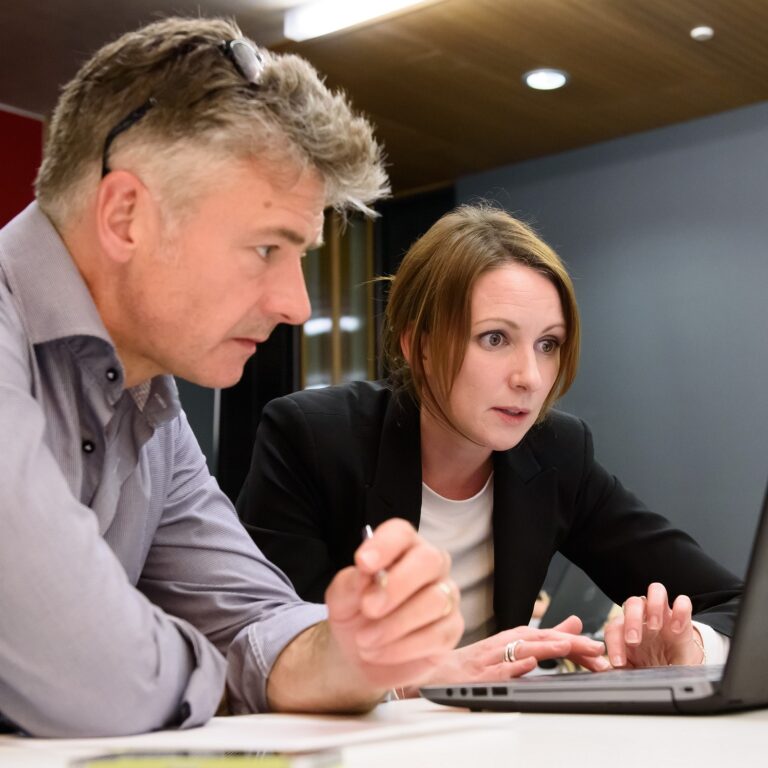
Local volunteers needed for finance charity
Could you help to support people in Hammersmith & Fulham?
Years of austerity, the pandemic and a hard-hitting cost-of-living crisis have left many people unable to cope financially.
Crosslight Advice provides free debt, benefit and budgeting advice to people across London. Not surprisingly, the charity has seen an increase in demand in recent years, so is keen to recruit more volunteers. Stephan Wiedmer, Branch Manager at Crosslight’s Hammersmith office, says, “There’s definitely been a significant increase in people approaching us for the first time. People who could just about manage on a low income before, such as pensioners and those on health-related benefits, have suddenly ended up with utility arrears and other debts. We’re also seeing people who are struggling to afford steep increases in rent. And we’re hearing a similar story from our partners, such as Citizens Advice, the Law Centre and other organisations.”
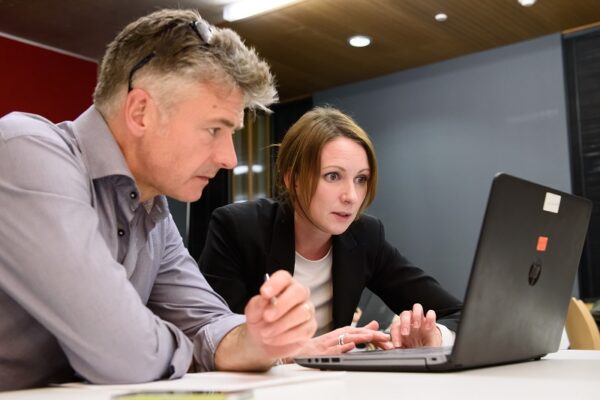
Volunteering for Crosslight Advice
45 volunteers currently support Crosslight Advice with a wide range of tasks, from day-to-day admin, to meeting with clients, facilitating Crosslight’s Money Course and helping with fundraising. Many volunteers work across different roles.
Stephan adds, “One of the benefits of volunteers is that they have time to really listen to clients. With more and more things going digital, vulnerable people sometimes feel ‘No one is really interested in me; I always have to answer questionnaires, fill out forms, and answer difficult questions, but no one is actually listening to me.’ After meeting with a Crosslight volunteer, clients often tell us that it was the first time someone took the time to sit down with them and listen carefully to what they have to say. That makes such a huge difference.”
A crucial way that volunteers support clients is by taking some of the pressure off. Stephan explains, “In some cases, we help the client apply for benefits like the Personal Independence Payment, or grants to help with certain issues. We can also help to arrange payment plans, create a sustainable budget and, if necessary, support the client to go through insolvency so that they can make a fresh start.”
Volunteers are given full training before they work with clients, so you don’t need a background in finance to offer your support.
Volunteering with Crosslight in a nutshell
- Wide range of volunteer roles available
- Volunteers work in pairs for face-to-face roles
- Full training provided
- Volunteers need to be comfortable working on computers
- 2+ hours a fortnight
The impact you could make
86% of Crosslight clients say the charity has helped to improve their situation. Enid* is a foster carer who found herself in financial difficulty after leaving an abusive relationship. She was struggling to manage as a single parent and coping with several health issues, including vertigo, anxiety and PTSD. She says, “Once I spoke with my debt adviser, things started to make sense. If someone had explained things to me years ago the way she did, I wouldn’t be in the mess I am now, which makes me so sad. I’ve been so lost for so many years.
“I was embarrassed to have such a huge amount of debt. I was always so worried about people judging me, but my debt adviser never ever judged me. I hope that the months ahead will bring new things and more hope with the support of Crosslight.”
Find out more
- If you’d like to support people like Enid, you can find out more about volunteering with Crosslight here.
- Crosslight Advice is one of our grant-holders. If you work for a charity and want to apply for a grant of up to £15,000, find out more here.
*Name has been changed
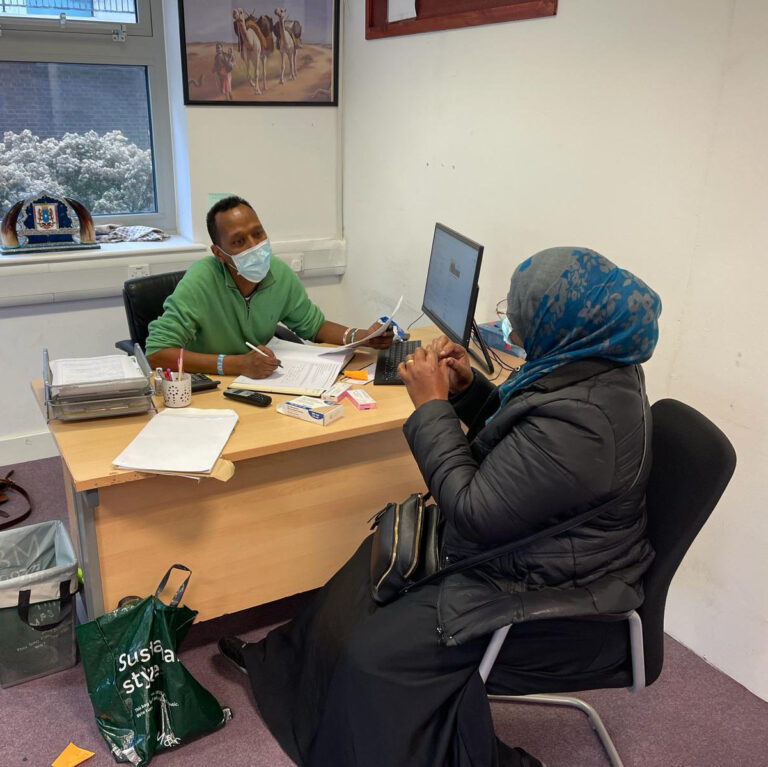
New Flexible 3 Year Grant holders announced
Find out more about some of our Flexible 3 Year Grant holders
Many of our grant holders are facing the perfect storm of increasing costs coupled with increasing demand. Our new Flexible 3-Year Grants programme was launched in response to feedback from grant holders, who let us know how much they value multi-year funding. The grants will help organisations to meet demand and plan for the future.
Our first funding round closed in December 2023, and we’re delighted to say that Family Friends, The Violence Intervention Project and the Lido Foundation have all been awarded £45,000, which will be split over three years.
Family Friends
We all need someone to turn to when times are tough – someone who will listen without judgement, offer advice and provide emotional support. Family Friends offers all this and more. Its befriending service helps parents to feel more confident, connect with local services and work to build a brighter future for themselves and their children. The charity also offers ‘Big Buddies’ to support children and teenagers with homework, hobbies and goals.
CEO Mel Christodoulou says, “The grant will enable us to employ a dedicated Family Connector focused on Hammersmith and Fulham, responding to a 36% increase in referrals this year. This ‘boots on the ground’ presence will allow us to extend our services and create a sustainable future in Hammersmith and Fulham.”
The Violence Intervention Project (The V.I.P)
When children and teenagers are aggressive, it’s often a sign of childhood trauma, such as abuse, neglect or bereavement.
The V.I.P works with young people to break the cycle of violence. It does this through ‘Urban Therapy’, which combines both therapeutic and practical support, to develop their psychological resilience and improve their socio-economic situations. This holistic approach is key to achieving long-term, sustainable changes within their cohort.
Funding & Operations Manager Jamie Crouch says, “Despite experiencing adversity and disadvantage, our clients have the potential to lead positive and fulfilling lives – and we act as the bridge between their past and their future.”
The V.I.P will use its grant to help establish a new youth committee, engage members of the public and contribute to staffing costs.
The Lido Foundation
Recent years have taken a huge toll on people’s finances, so it’s no surprise that the Lido Foundation experienced a three-fold increase in the number of people needing support last year. CEO Liban Muse says, “We have seen people in desperate situations who had to make difficult decisions to get food on the table for their families or to heat their homes.”
The charity helped 1400 people in 2022-23, many of whom are Black women with limited English and digital skills. The Lido Foundation offers practical support, such as helping people to apply for Universal Credit, negotiate with creditors and avoid homelessness.
HUC’s grant will help the Lido Foundation to cover its core costs, including contributing to the salary of the charity’s welfare adviser.
Find out more about applying for a grant
We will award up to three more Flexible 3 Year Grants in 2024. The exact date for applications is to be announced but is planned for June. This programme focuses on organisations that we already work with.
We also offer Community Grants. There are three opportunities to apply each year. If you’d like to be informed when the next round opens, please sign up to our newsletter.
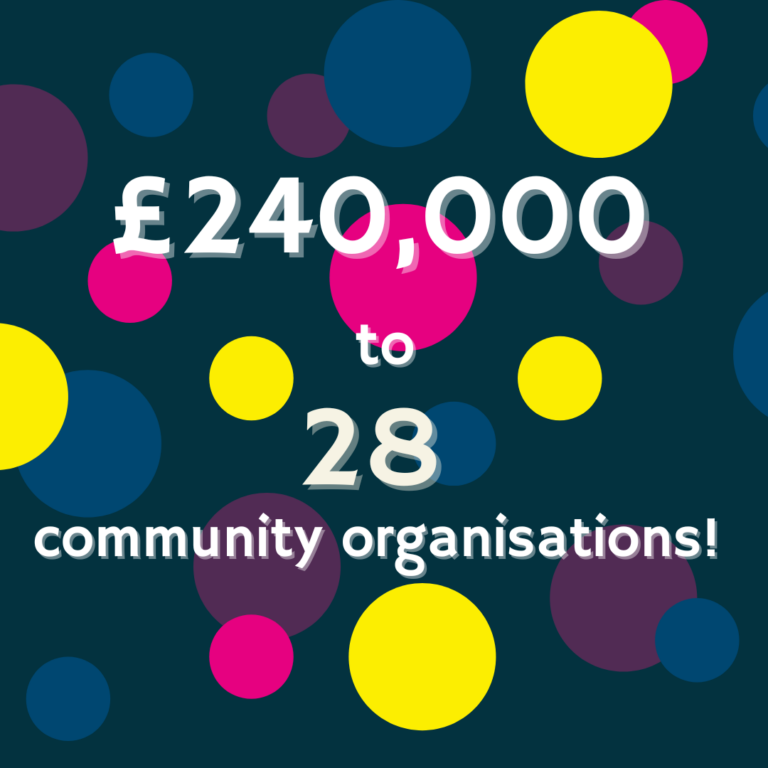
November 2023 and February 2024 grantees
£240,000 to 28 community organisations!
Every year, Hammersmith United Charities provides £400,000 to local groups that are creating positive change in our area of benefit. Our most recent grant rounds in November 2023 and February 2024 saw unprecedented demand, with organisations requesting a total of over £640,000. The Committee responded by approving grants to 28 of those groups, ranging from £3,500 to £15,000 and totalling over £240,000.
The organisations receiving funding include Age UK Hammersmith and Fulham, who support 426 people over 50 years old; Bees & Refugees, who work with 100 people in H&F, most of whom are on a low-income; and Hammersmith Community Gardens Association (HCGA), who manage four community gardens in H+F.
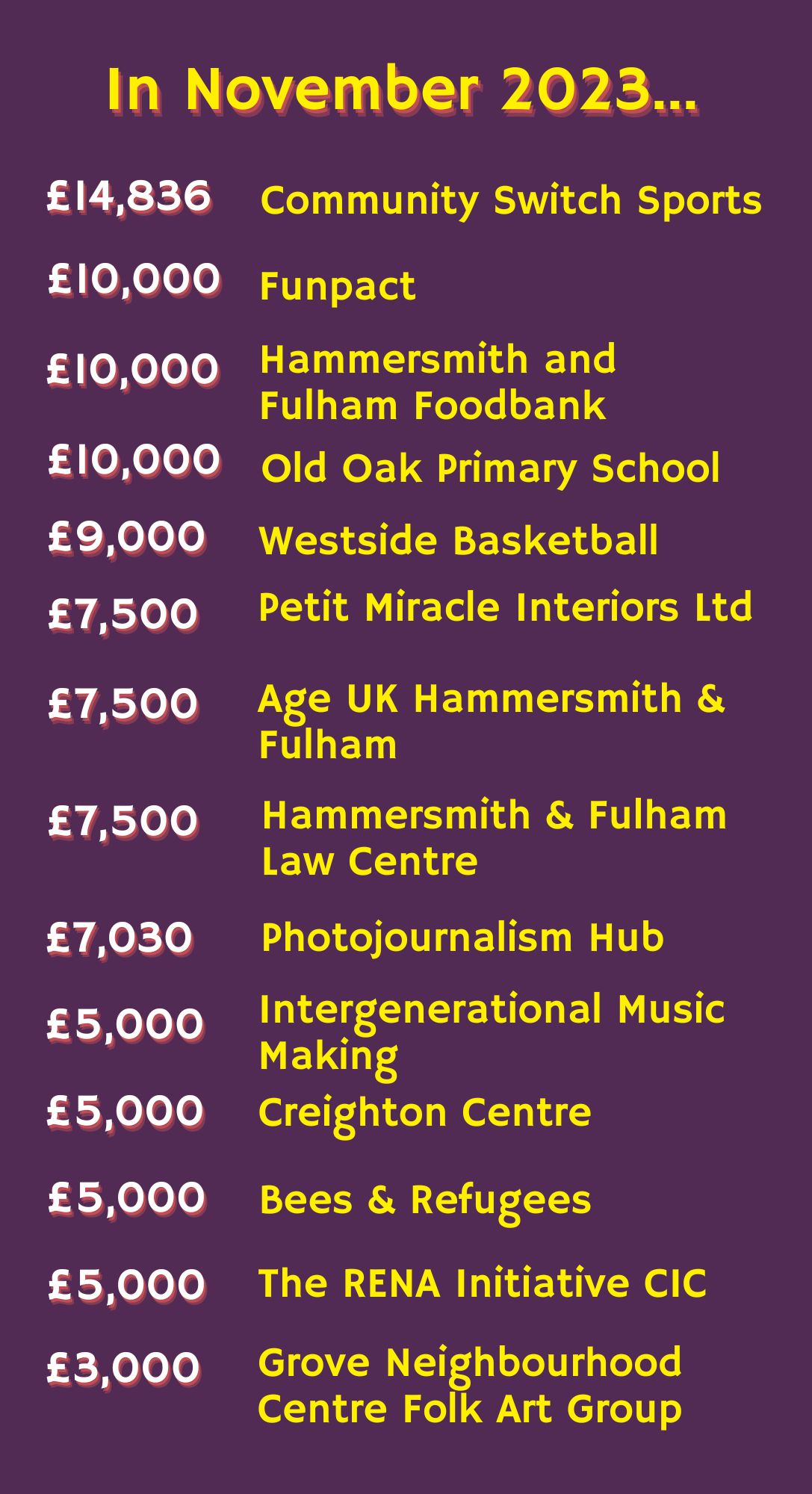

How to apply for a HUC Community Grant
We hold three grant rounds each year and are particularly keen to hear from smaller, local organisations with a strong connection to their community and a working knowledge of the local area. Your project can be one-off or ongoing. What interests us most is the difference you’ll make to the local people most in need.
Please complete our Eligibility Quiz before applying, and then contact us at grants@hamunitedcharities.com to tell us about your project. We like to talk to applicants before you apply so that we can get a better understanding of what you’re doing and answer any questions you may have.
Find out more
- Learn more about our Community Grants
- Read our grant FAQs
- Hear from other organisations we’ve supported
- Read more about how to apply
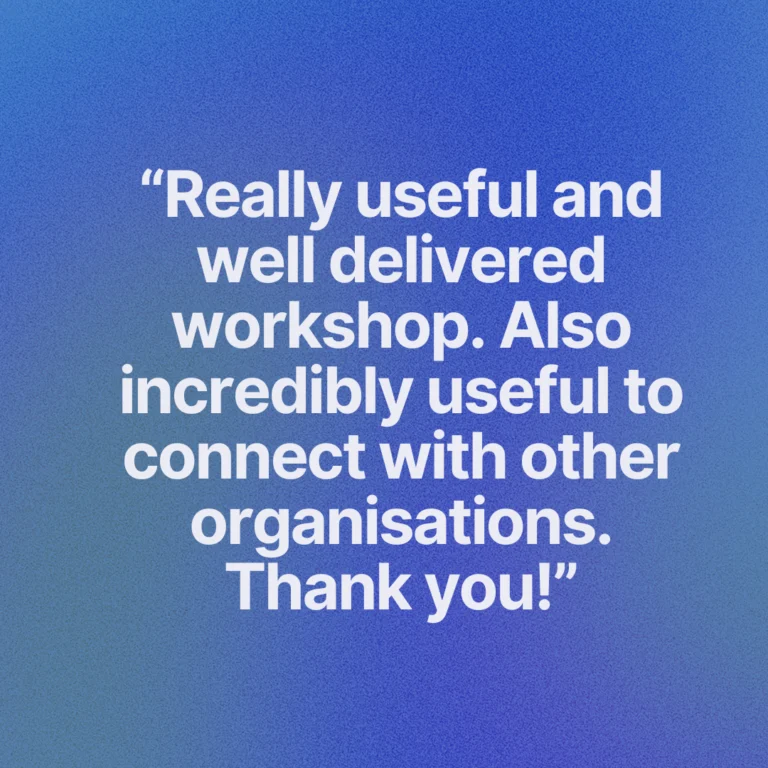
CIC workshop success
“How do I convert a CIC to a charity?”, “Which banks accept CICs?”, “How do I employ people at my CIC?”
These are just some of the questions that came up at the recent workshop we held for the leaders of Community Interest Companies (CICs). Many of the organisations that we work with are Community Interest Companies. Smaller CICs are often run by just one person, who has to manage everything from customer service to admin, accounting and marketing. Not surprisingly, many CIC leaders struggle to keep up with admin and reporting, which makes it difficult to apply for grants and other funding.
So, when we asked local CICs whether they’d be interested in a workshop to share ideas and experiences, the answer was a resounding “yes”. To help ensure that as many CIC leaders as possible could attend the workshop, we decided to hold it online. We also worked with Dr Edwards & Bishop King’s (DEBK) and Peabody Trust to promote the event to relevant organisations.
The Directory of Social Change recommended that we ask Leesa Harwood to run the event. Leesa has more than 30 years’ experience in the third sector and now runs her own consultancy company, so was the ideal presenter and facilitator.
The two-hour workshop proved to be very informative, with plenty of lively discussions and sharing of experiences. 11 people attended. All either run a CIC or are considering setting one up. Conversations included finding directors with the right skills, whether (and how) to change from a CIC to a charity to attract more grant funding, and the challenges of employing people part-time.
Feedback was very positive, with one participant writing, “Thank you for organising today’s workshop. Very helpful and great to connect with other local organisations.”
At Hammersmith United Charities, we often receive grant applications from community groups that are finding it difficult to keep up with CIC administration or which are struggling to create an appropriate organisational structure. We hope that workshops such as these will support local organisations to share information, access funding and, ultimately, become more sustainable so that they can continue their vital work for many years to come.
If you’d like to discover more about what was shared at the workshop, you can access the files here. And, if you’re thinking of setting up your own CIC, Social Enterprise UK has lots of useful information and you can also download guides from the government’s website.

5 minutes with…Lisa Da Silva, Head of Housing and Property
We’re really happy to welcome Lisa to Hammersmith United Charities. Lisa is responsible for ensuring our almshouses are of the highest quality and meet the needs of our residents.
What’s involved in your new role?
My role as Head of Housing and Property is to lead the sheltered housing operations for the charity. I will be responsible for delivering a safe and high-quality housing service meeting statutory and regulatory requirements. I will also be responsible for ensuring that the support services provided to residents meet their health and wellbeing needs.
What are you looking forward to most about your new role?
I am looking forward to working as part of a smaller team and bringing my experience and knowledge to the table. Continuing in an almshouse charity setting is advantageous as I feel I will be able to hit the ground running to continue to deliver homes that are safe and well maintained, as well as a high-quality service on behalf of Hammersmith United Charities to the residents.
What sort of work have you been doing previously?
I have over 25 years’ experience of working in the housing sector, the majority of which has been spent in supported housing for older people. I have experience of managing both sheltered and extra care properties and I am keen to share my knowledge and experience as well as continuing to learn myself.
What do you like about the area?
It has been several years since I worked in an urban, vibrant setting with dispersed sites, so I am really excited about this aspect. I am very keen to familiarise myself with the wider community as the setting should lead to lots of opportunities which will be beneficial to the residents.
What sort of things bring you joy outside of work?
I really enjoy spending time with my family and socialising with friends over dinner or a catch-up coffee. I have to be honest though, I can often be found with my nose in my Kindle – there is nothing as relaxing as a good book.
Find out more
- Meet Lorraine, one of our residents
- View our almshouses and gardens
- Read our FAQs
- Check you’re eligible
- Apply now
- Questions? Contact Lisa on lisa.dasilva@hamunitedcharities.com or 07470 793 565
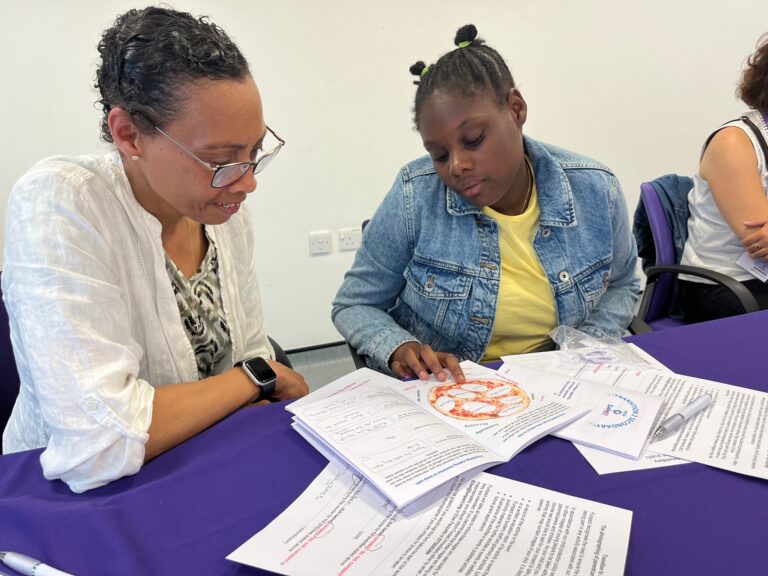
Parenting, the Funpact way
When her children approached the pre-teen years, Elise Pacquette became concerned that she knew nothing about what it was like growing up in today's society. How could she lead children into independence in a world very different to the world she grew up in?
“Parenting is tough, really tough. While some think that once kids start to become more independent it gets easier – well, in some ways it gets harder.
So the parents/carers go to parenting classes, teens go off to PSHE classes at school. But they are getting different information, at different times. As a parent myself I just couldn’t understand that there were no courses for parents and young people to attend together.
It didn’t make sense to me that this didn’t exist, so I set it up myself. Now Funpact enables parents/carers and their children to come together, have fun and learn about independence, forming a firm foundation for further discussion at home together.
We run transition to secondary workshops for year 6s and their parents/carers, helping them both feel ready for the next chapter in their lives. Our course, Bridging the Gap, focuses on the social, emotional, financial and practical aspects of growing up. Ambition 2 Success is run as a one-day workshop in schools for both parents/carers and pupils to attend. It helps them create a positive trajectory for their lives and learn strategy and problem solving skills.
It’s not been at all easy – the learning curve to get Funpact to where it is now has often been pretty much vertical. I am often self-medicating on chocolate under my duvet! My background – as an illustrator, painter, stage manager, sign language interpreter, prop making tutor – didn’t help me much when setting up Funpact. I had no idea what I was doing but I was driven by an unrelenting passion to see change in how families are supported towards their children’s independence. And one thing I do know about myself is that I have grit.
And now there are so many stories of families who have come up to us and told us of the impact courses have made well after they have attended them. That the course helped the bond between them and their child, helping them better understand each other.
I remember one teen who was really struggling in school, and didn’t open up to his mum at all. Through our course that relationship started to grow and he started to share some of the stuff that was going on for him. The parent was then able to give him the support he needed and everything got sorted out.
There was also a father whose work shifts meant he hardly saw his son. But he managed to come to the first session of a six-week course and enjoyed it so much he changed his shifts so he could attend the course and spend more time with his son. So it’s not just what we explore during the courses but the relationships they help.
We are indebted to our youth alumni, who help us regularly update our sessions based on their expertise and lived experience. And I can honestly say that without Hammersmith United Charities’ funding we probably wouldn’t exist today. Hammersmith United Charities gave Funpact our first ever grant and have supported us ever since as we have grown. Through this funding we can now support year 6 pupils in over 20 schools in Hammersmith and Fulham, run Bridging the Gap in five schools and three community venues and Ambition 2 Success in five schools.
Up until now, I have been working alone in the back room, but this year because of our Hammersmith United Charities grant, I will have two new team members to join me for a few hours a week to help us grow. This is incredibly exciting!”
Find out more
- More about Funpact’s services and courses
- Find out more about Hammersmith United Charities’s grants programme and other organisations we’ve funded
Picture gallery – Funpact at work:
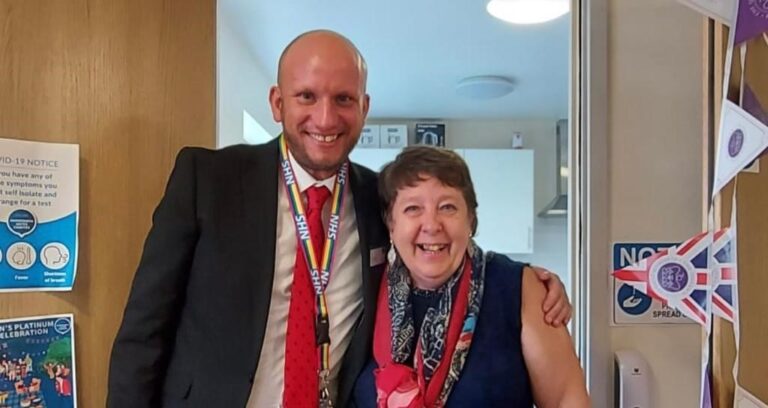
“My new home is a gift”
It was a big life change for Lorraine when she retired and moved to Sycamore House a few years ago. But her lovely flat and its newfound security has ‘changed her life’, she says – and she’s busier than ever.
“I came to Sycamore House two years ago, having lived in Barons Court for about 16 years. I’d been having all sorts of problems with tenants, drugs and dealers. There were lots of stairs, and my flat had been broken into. It just felt like time to move.
I found out about Sycamore House via a friend. It’s absolutely amazing. I just love the flat; it’s bigger than the one I was in before. There is a wonderful garden at the back – the place absolutely shone in summer time. It’s lovely to go out and sit, and enjoy time with others you’re friendly with. I think I can name nearly all of the 50 or so people who live here now.
There’s lots on socially here at Sycamore House so I involve myself in that as much as I wish – I usually go to the coffee morning and catch up with everyone on a Thursday. I’ve made some very good friends here. We have lots of celebrations and parties, including a yearly fundraiser where family friends can come along, and the local mayor visits too.
The best thing about Sycamore House is the security and safety, and having the help there whenever you need it. Because my family is in Northern Ireland, I don’t have any immediate family nearby. So this community is perfect, because as and when I need support, it’s there.
Chris, Sycamore House’s scheme manager, is an excellent support – he helped with the paperwork that had to be done when I moved in, and now we keep in touch every day via Whatsapp. I know I can go and see him in person if I need particular help with something.
Chris helped me with getting housing benefit, which I qualified for after I retired a couple of years ago. I’d never been on benefits in my life so I was a complete novice and didn’t know anything about it. But Chris helped me navigate the system which was a big relief.
I was very apprehensive when I retired and moved out of my old flat to come here. But it’s changed my life. My eyes have been opened by all the new volunteering I’ve done in the local area: I work at the food bank, Charing Cross Hospital chemo ward, and have applied for work at Maggie’s too.
This flat is a gift; I thank God every day that I made the move. Life is good.”
Find out more
We provide safe and affordable sheltered housing in Hammersmith with beautiful, award-winning gardens.
- View our almshouses and gardens
- Read our FAQs
- Hear from our residents
- Check you’re eligible
- Apply now
- Questions? Contact Lisa on lisa.dasilva@hamunitedcharities.com or 07470 793 565
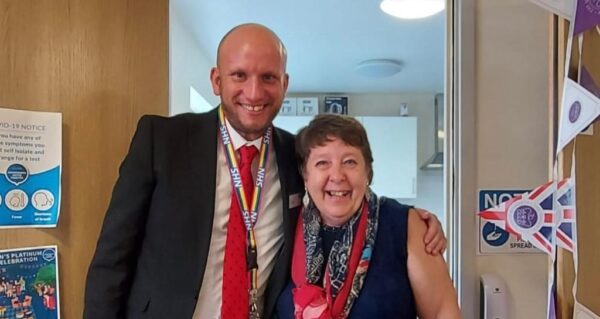

In pictures: out and about
Our team took part in the Wormholt & White City Community Festival in September, which celebrated our vibrant community.

5 minutes with…Our community gardeners
Meet our community gardeners, India and Lucy, who nurture the award-winning green spaces at our almshouses.
What do you both do and why do you enjoy it?
We are the community gardeners for Hammersmith United Charities’ two sheltered housing schemes (almshouses), John Betts House and Sycamore House.
The gardens are an unexpected highlight at both almshouses. Visitor, residents and staff alike often comment on the beautiful surprise of the gardens as they discover them for the first time.
We manage, maintain and improve the gardens while also providing activities and workshops for residents. A big part of our role is to encourage the residents to use the gardens, and advise and support them with their own plots and pots displays.
At both the almshouses, we love the diversity of personalities, activities and events – and how each day is different from the last. The kindness of the residents to the staff and each other is a daily joy.
How would you describe the gardens?
The gardens provide a space for all residents to enjoy in a variety of ways. Groups of residents meet in the gardens for a chat and a cup of tea, others sit alone and immerse themselves in the sounds and sights of nature, or simply read a paper or have a chat on the phone. Some residents get their daily exercise by doing laps of the gardens, while many residents have their own small plots and pots, getting involved in the practical nature of gardening, planting, watering and weeding.
Currently residents are preparing for spring by planting bulbs in pots and looking forward to the next growing season following the dark and quiet winter months.
How do the residents help you with the gardens?
We work closely with the residents and many of them assist us in maintaining the gardens by watering and weeding, sweeping paths, leaf clearance and dead heading the beautiful roses. We appreciate all the work the residents do and could not maintain these award-winning gardens without them.
What are some important gardening jobs you’ll be doing as we head into the autumn and winter?
Seasonal jobs include leaf clearance and ensuring all pathways are safe, bulb planting and compost turning. We manage all our green waste so that it returns to the gardens for the health of the plants and trees. We are currently preparing areas in both gardens to create wildflower meadows for next summer.
What is your favourite local green space to visit and why?
India has recently introduced Lucy to W6 Garden Centre on the edge of Ravenscourt Park. It is a beautiful oasis of indoor and outdoor plants, garden supplies and has a gorgeous cafe. Many of our residents enjoy it too!
Find out more
- Our award-winning almshouse gardens
- John Betts House and Sycamore House, our two sheltered housing schemes
- Eligibility for our almshouses
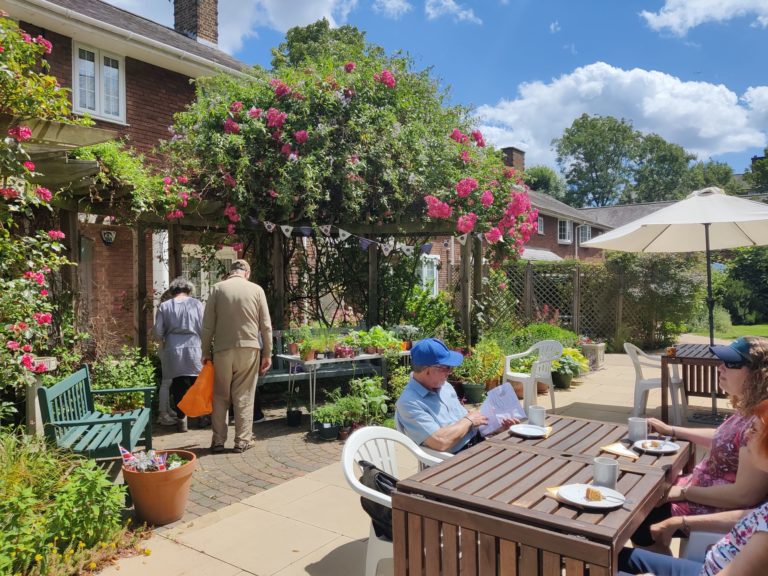
Almshouse living may boost life expectancy by up to 2.5 years
New research from Bayes Business School has found that many almshouse residents receive a “longevity boost”.
On average, the lower a person’s socioeconomic status, the lower their life expectancy. But new research from Bayes Business School has found that many almshouse residents receive a “longevity boost” compared to their peers of the same socioeconomic status from the wider population.
The new research is based on analysis of many decades of records from 15 English almshouses. The life expectancy of almshouse residents was compared to people of similar gender and socio-economic background from the general population and was generally found to be longer. Giving an example, the authors estimate that a 73-year-old man entering the almshouse with the highest longevity boost in the study today could live 2.4 years longer than his peers from the same socioeconomic group.
Almshouses, which have traditionally provided affordable community housing for older people, are usually designed around a communal courtyard or gardens. Residents live independently and there are plenty of opportunities for social connection and support when needed.
Professor Ben Rickayzen, report co-author and professor of actuarial science at Bayes Business School, said: “More research is needed to ascertain exactly what factors cause almshouse residents to have a longer life. However, we postulate that it is the sense of the community that is the most powerful ingredient.
“For example, a common theme… is that [almshouses] encourage residents to undertake social activities and responsibilities on behalf of their fellow residents. This is likely to increase their sense of belonging and give them a greater sense of purpose in their everyday lives while mitigating against social isolation.”
Hammersmith United Charities Chief Executive, Victoria Hill, said: “It’s great to hear some evidence for what we’ve always felt to be true. Community means different things to different people, but usually it’s more than just the opportunity to socialise and be active. It’s often things like feeling safe and welcome among your neighbours, knowing there’s always someone nearby to help or being able to help others. It doesn’t surprise me that this feeling of belonging in your community may help you live longer and, we hope, happier lives.”
Find out more
- The full report: ‘Almshouse Longevity Study: Can Living in an Almshouse Lead to a Longer Life?’
- Bayes Business School news release with a summary of key findings
- Find out more about Hammersmith United Charities’s almshouses
- Find out more about almshouses and their history
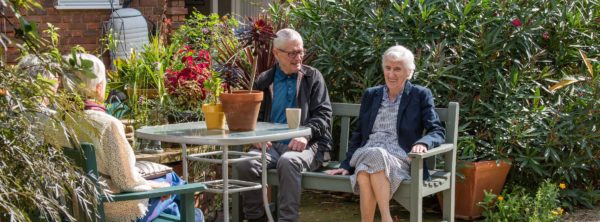
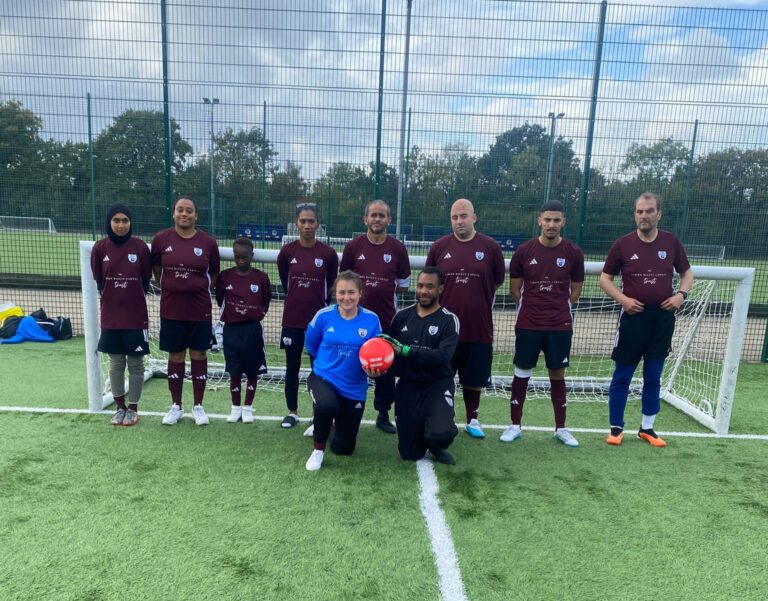
Football for mental health
Minds United started with seven people, some balls and a whistle. Now they're playing in European mental health tournaments and helping Hammersmith people turn their lives around.
CEO Tarik Kaidi shares the Minds United journey:
“I’m not going to lie: when I was sectioned 10 years ago, it was a bit mad. I’d never had a mental health problem before. It just came out of nowhere. I didn’t have a good experience in the hospital, and became homeless after I was discharged. I eventually found a home in north Hammersmith in 2016.
Playing football really helped my recovery; I also took my FA Level 1 coaching course, funded by Fulham FC Foundation. There’s just something about playing the beautiful game in your own community. It’s a great way to socialise, it releases endorphins and makes you feel good – and playing as a team builds all sorts of other skills too.
I just couldn’t get this vision out of my mind. I wanted to start a football club to improve mental health. I didn’t have any funding – just a big dream and a big idea.
So in 2019 I started a Saturday club for people recovering from substance abuse, seven people to start with. And just me, with a bag of footballs, bibs, cones and a whistle. It was a hard surface pitch in North Kensington. Pretty brutal if you slipped and fell.
Small steps
Then we got our first grant: £300 from the London Football Association. That helped us set up our first mental health ‘turn up and play’ sessions. These casual, small-sided games are all about lots of touches on the ball and plenty of exercise. They’re also a great opportunity for people to socialise and share experiences about mental health.
When we first entered the mental health league, we got absolutely battered. But we got more funding near the end of 2019 which was a real turning point: we got a minibus so I could drive the team to league fixtures. That meant more players, and then we started winning! We were invited to other leagues, and became a Football Association accredited club.
A big opportunity came when I had the chance to bid for funding from the Grenfell Projects Fund. I’d expected that it would be done online, but at the last minute I had to go in and speak in front of 150 people. I wasn’t feeling confident at all. There was me – big beard, a cast on my arm, hat on, bad hair… But I went in there and did it. And I got the highest vote!
That was a real dream fulfilled. We were finally able to play on a nice astroturf pitch with padding, so we could tackle properly and our goalies could dive without too much damage. It was a bit more central so people started noticing us as they walked past and would come and join us.
Kicking off for community
After that we set up as a community interest company, and it became about much more than football.
Our community football programme is now going from strength to strength – our mental health ‘turn up and play’ football sessions are now available for young people, men, women and mixed. We also have small-sided teams in mental health and community leagues.
One of our team, Joseph, is a chef, and after our Wednesday sessions he cooks Caribbean food which everyone enjoys: he does lovely meals and buss up shut (Trinidadian rotis). Joseph also provided the catering at our 4th annual awards ceremony last month.
We’ve also started helping people access Football Association qualifications in refereeing, coaching, safeguarding and first aid, which broadens employment opportunities.
We also now have a clubhouse which is open throughout the week: people can come to just chat, colour, play pool, Xbox, whatever. It’s a safe place where people can express themselves and feel they belong, whatever they’re into – no pressure.
We recently received a donation from the Stewart family along with a grant from Hammersmith United Charities. This has had a great impact because it’s allowed us to employ two women from north Hammersmith who were previously in volunteer positions. They run the women’s only football session, and also the tea and chat session in the clubhouse each week where people can get together.
One of these people, Myra, joined Minds United a few years ago. She was drinking really heavily at the time. She was very nervous coming along, but she had a go at goalkeeping. She said that she loved everyone instantly, and felt supported to get out of the rut of drinking – she says that being part of the club has changed her life. Being on hand to share her experiences has also helped other people going through the same thing.
A big moment for me was going back to the hospital years after I was sectioned there. It felt strange. But this time I was there to offer them a free service to help in-patients join the Minds United community. So now, people who have been sectioned are allowed to come along on escorted leave with a nurse and play football with us. I think it speeds up their recovery. It’s something I would have loved at the time: there are so many other forms of therapy, apart from medicine.
What we’ve found is that, so far, anyone who’s regularly engaged with Minds United has never been sectioned again.
And me? Running this organisation, as stressful as it can be at times: it gives me real focus and purpose. And we’ve come so far! Now we go to Italy every year to play in the mental health football tournament. We’ve won it the last two years. Little old Minds United!”
Find out more
- Minds United have been supported by a donation from the Stewart family and a grant from Hammersmith United Charities. Find out more here: ‘Lasting legacy for John’
- If you’re experiencing mental health issues and would enjoy a cup of tea and a chat, play pool table, table tennis or other games, you can drop in to the Minds United Clubhouse between 12-3pm Monday to Thursday (opposite Tesco West Kensington). Find out more about the Clubhouse here
- Minds United is looking for volunteers to join their free FA coaching course: for more information contact info@mindsunitedfc.com
- Find out more about Hammersmith United Charities’s grants programme. Our next grant application deadline is 18 January 2024.
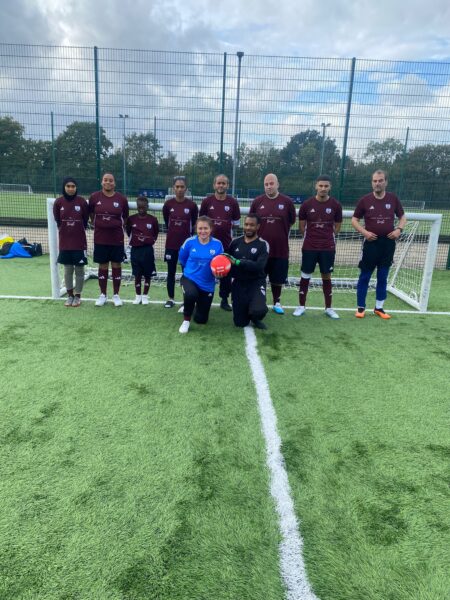
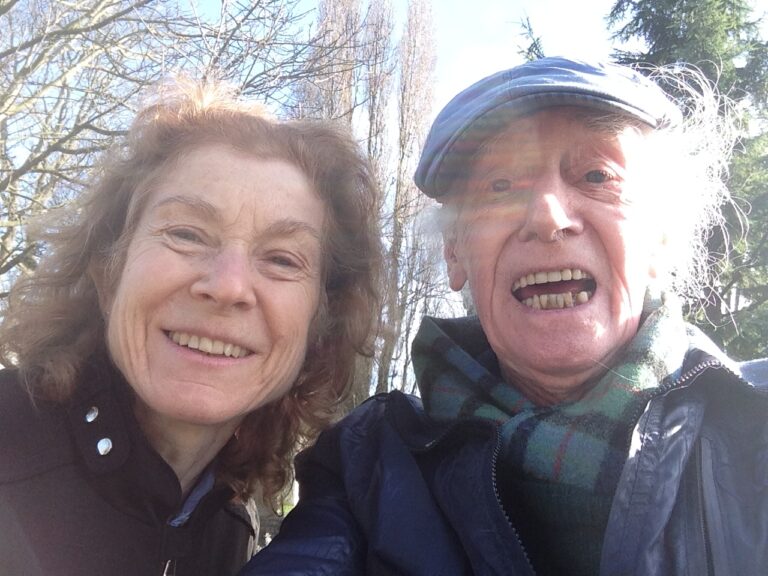
Lasting legacy for John
When Mary-Lou Stewart’s husband John passed away in 2021, she was keen to donate to a local cause in his memory.
We linked Mary-Lou up with Minds United, whose football community helps improve mental health. It’s a project that John would have been proud to support, says Mary-Lou.
Although he was born and grew up in Coatbridge, Scotland, Hammersmith was always close to John Stewart’s heart; he lived here for 50 years. “He loved this area – it’s such a good part of the world,” says Mary-Lou. “He was always keen to make a difference to his community.”
Football, in particular, was “very special” to him, and he enjoyed going to local matches with friends and family, Mary-Lou remembers, which is why she was so keen to make this donation to Minds United in his memory.
Despite lifelong mobility difficulties due to the effects of tuberculosis on the bones of his left leg when he was a child, John loved to play football himself and was a welcome addition to the local street team from his early teens. “He was always the goalie,” says Mary-Lou, “and what he lacked in speed he made up for in skill – he used to use his crutches as a bit of a weapon!”
“I think being able to enjoy football, in spite of his disability, made him realise he was capable of doing whatever he put his mind to,” says Mary-Lou. “It’s lovely that there’s a place like Minds United where people can just be themselves and leave their baggage behind. Making this donation feels like a wonderful way to honour John’s life.”
Find out more
- Minds United have been supported by a personal donation from the Stewart family, along with a grant from Hammersmith United Charities. Read about Minds United’s journey
- Hammersmith United Charities’ grants programme
- Support Hammersmith United Charities
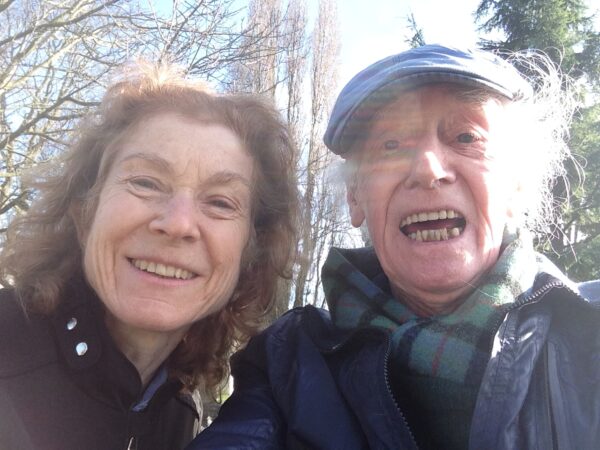
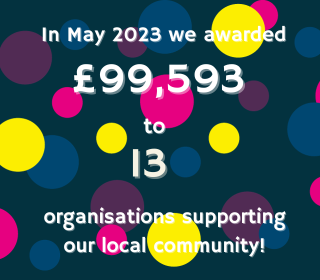
May 2023 Grantees
Each year Hammersmith United Charities provides £400,000 to local groups providing services or creating positive change in area of benefit. In our last grants round in May 2023, we awarded grants totalling £99,593 to 13 local organisations based in Hammersmith.
Among those 13 organisations receiving our community grants were Bubble & Squeak funding towards a stall manager for community surplus food stall. BLINK Dance Theatre funding towards developing their performing arts programme. Shepherds Bush Families Project funding towards running core activities and The WILDE Foundation funding towards developing and running a community hub and hall.

Who is eligible for a community grant?
Community Grants: A grant of up to £15,000 towards one-off or ongoing projects, or core costs. There are three grant rounds in February, May and October. More about Community Grants
Your project can be one-off or ongoing, but we’re most interested in the difference you will make to local people. We are particularly keen to fund smaller, local organisations with a strong connection to their beneficiaries and a good knowledge of the local area.
Please do get in touch with us for a chat before you make a full application for either grant programme, even if you’ve been funded by us in the past. We’d love to find out more about your work and answer your questions.
Find out more
- Our Community Grants
- Our Flexible 3 Year Grants
- Arrange a call with Hanifa and Paul in our Grants team – contact grants@hamunitedcharities.com

February 2023 Grantees
We invest in the future of our local community through our grants programme. We give grants to organisations supporting people who live in our area of benefit.
Each year Hammersmith United Charities provides £400,000 to local groups providing services or creating positive change. In our last grants round in February 2023, we awarded grants totalling £129,400 to 17 local organisations based in Hammersmith.
Among those 17 organisations receiving grants were Solidarity Sports towards their two-week Easter Holidays project. The Invisible Café funding towards five different classes held per week, these classes are all aimed to enhance wellbeing and promote positive mindful actions. Simple Therapy CIC funding weekly face-to-face counselling with a qualified counsellor for a period of 6 weeks for local residents, and the local branch of Citizens Advice H&F to part fund an Assessor role to provide more support to local people.
Who is eligible for a grant?
Your project can be one-off or ongoing, but we’re most interested in the difference you will make to local people. We are particularly keen to fund smaller, local organisations with a strong connection to their beneficiaries and a good knowledge of the local area.
Please contact us to tell us about your project. We like to talk to applicants to develop a better understanding of what they are doing and answer any questions you may have.
Find out more
- Read our grant FAQs
- Hear from other organisations we’ve supported
- How to apply

Taking control of money worries
Local people are getting to grips with their personal finances with Crosslight Advice
Lorelei Freeman, Crosslight’s Financial Capability Lead, tells us about the support on offer and some practical steps people can take.
How can people get started with taking control of their finances?
With the current cost-of-living crisis, many people are feeling the pressure like never before. Personal finances can seem confusing, overwhelming and complicated.
Start by putting together your own budget. Begin by figuring out exactly what you do spend, and what income you are getting, and then use that to help decide what changes you could make to either reduce your spending or bring in more money. Both of these are easier said than done, of course!
Some other ‘quick wins’ you could try to reduce your outgoings: Check through your subscriptions. Do you actually go to that gym any more? Did you forget to cancel that service after your free trial period expired? Use an online price comparison service like USwitch or MoneySavingExpert to see if you could save money on your phone, internet or insurance payments.
What does Crosslight Advice do?
Crosslight Advice, which received a grant from Hammersmith United Charities in 2022, is a debt advice and money education charity which works to lift people out of poverty and help them to build a better future. We have local branches in Hammersmith, Shepherds Bush and Fulham, and support some of the most marginalised and vulnerable people in society through our work. We provide comprehensive debt and benefit advice, as well as free money education and budget coaching programmes to build financial resilience.
People often tell us they feel stressed, anxious, afraid or embarrassed at the start of their time with us. We work together to address these emotions and aim to equip people with some practical ‘money skills’ to navigate everyday life, as well as helpful ways of thinking about our money.
Our free Money course teaches skills to help people understand and manage their money. This helps them gain more control over their finances, and apply tools and ideas to their situation so they can take action in areas where they can make changes.
For one-to-one support, we offer a Budget Coaching programme. We work with people over a series of sessions to look at their money management goals, work out what would be most helpful in achieving them, and plan and take some practical steps together.

Find out more
- Sign up for an face-to-face or online Money course
- Get more information about Crosslight Advice
- Discover more about Hammersmith United Charities’ grant-giving programme.

Six tips for a top grant application
Do you need funding for your community project in Hammersmith? Find out what we're looking for
We give out around £400,000 each financial year in grants, mostly to small community groups – our next grant application round opens on 1st March and closes at 5pm on 18th April 2024. Take a look at our tips first so you make the most out of your application.
1. Don’t assume knowledge.
The person reading your application may not be familiar, or that familiar, with your group and what it does. Don’t assume they have any prior knowledge about the group, its track record, how it delivers its work and the needs of the people you support.
2. Be clear about who benefits
Try and be as specific as possible about who you are aiming to support. Instead of saying: “Our sports club aims to reach young people from the north of the borough”, be more specific, such as: “We will engage young people aged 11-15 from White City who do not usually take part in sport.”
3. Can you demonstrate your service or project is needed or wanted?
It always strengthens an application if you can provide some evidence that your proposed project or service is wanted by the people who will benefit from it. Have you done a survey or held some discussions with these people which you can summarise? What are the challenges locally you are trying to help address?
4. Be realistic.
Sometimes groups in their applications seem over ambitious about how many people they will reach or support. Similarly, sometimes newly-established groups apply to us for a lot of funding but do not have a track record of delivery. So be realistic about what you aim to achieve for the size and age of your group.
5. Apply when it is the best time for your group.
We have three funding deadlines each year (usually around January, April, and September) and we divide the funds we have between these three periods. We aim to let groups know the outcome within a month of the deadline. Apply when you are ready and have researched the needs of the people you are looking to help.
6. Talk to us.
We are always happy to speak to new applicants before they put together a grant application. Do leave plenty of time to talk to us in advance of the deadline so you have time to refine your submission.
Find out more

Cost of living advice for communities
Some practical tips and signposting to help with our community's common money worries. By Natalia Perez, trustee, welfare advice specialist and White City Councillor
What are you hearing from residents about cost of living?
After the lockdowns we’ve started to run ‘surgeries’ for our constituents where they share the things that concern them. At the moment, residents are telling us that they’re worried that they won’t be able to pay for: food for their family; essentials like bread and pasta; and gas and electricity.
They’re also concerned about buying fresh food because of the electricity costs of keeping it in the fridge or cooking it, and about the costs of keeping medication in the fridge too.
What sort of advice are you giving them?
We’ve now set up a cost-of-living crisis team in Hammersmith and Fulham. The team provides advice about available services and support across the council and more widely. Residents can get in touch here, call 0800 917 6994 or email costoflivingteam@lbhf.gov.uk
Another good source of information is the Hammersmith & Fulham Council’s website where there is information about benefits, paying your council tax, help with food, help for families with children, paying for your gas electricity and water, improving energy efficiency, help with broadband and phone packages, paying rent, along with contact details of local organisations that can give further advice.
If residents need urgent support with food, medicine, loneliness or isolation and or fuel payments, they should call our Community Connect team on 0800 145 6095.
What advice can you give to small community groups or start-ups at this time?
It’s really important to think about good governance and leadership, making sure that your board represents the community that you serve and has a clear understanding of the changing needs of the community that you serve during the cost-of-living crisis.
Regularly listen and engage with your beneficiaries. Monitor services and seek feedback to see if there are gaps in service provision that can be improved.
Think of the strategy too – have a clear map of where you want your community group or start-up to be three years from now to help you develop clear achievable yearly plans after the cost of living crisis.
Finally, find opportunities for collaboration and partnership work with other organisations and council services.
Find out more:
- Online support about cost of living: Hammersmith & Fulham’s Council’s website
- Personal support about cost of living: Contact the Cost-of-living crisis team
- For urgent queries about cost of living contact the council’s Community Connect team on 0800 145 6095
- More about Hammersmith United Charities’ grants for community organisations

Meet trustee, Natalia Perez
Welfare advice specialist and White City Councillor, Natalia Perez, joins us as a new trustee.
 Passionate about the life-changing difference that good advice can make, our new trustee Natalia Perez is also a Councillor for White City ward. Dedicated to improving her community’s quality of life, she sits on our Grants & Partnerships Committee.
Passionate about the life-changing difference that good advice can make, our new trustee Natalia Perez is also a Councillor for White City ward. Dedicated to improving her community’s quality of life, she sits on our Grants & Partnerships Committee.
Why did you decide to become a Councillor for White City ward?
I wanted to give back to the community that’s been my home for the last 22 years. I’ve dedicated much of my working life to the charity sector – organisations that give social welfare advice about things like benefits, housing and disability. I’ve worked with women and their families who’ve been struggling to make ends meet and threatened with homelessness. I found it so rewarding to see the huge impact good advice had on their wellbeing and quality of life. These experiences inspired me to get more involved with local issues and to directly help residents in our borough and White City ward.
Why did you decide to become a trustee?
I’ve always admired Hammersmith United Charities’ work: giving older people safe, secure, warm and affordable almshouses; supporting a great variety of grassroot community-based projects and charities through grant giving for much needed and impactful work.
This mission aligns with my own passion for supporting the charity sector and communities in need. I feel very grateful and privileged to be a trustee of an organisation that’s been at the heart of Hammersmith for 400 years. I’m very keen to be involved in future work and support local projects.
What do you do in your spare time?
I love spending time with my daughter, partner and dogs. We have adopted two rescued dogs called Ziggy and Kusa. We all love going out for long walks and enjoying our local parks through the different seasons. Last year I started roller skating lesson in Hyde Park. I also enjoy exercising at the local gym and have a passion for dancing salsa and merengue in the kitchen.
Find out more:
- More about our trustees
- More about Hammersmith United Charities’ work

Do you need funding for your community project?
New grants for projects benefiting people in our borough.
We invest in the future of our local community through our grants programme. We give grants to organisations supporting people who live in our area of benefit.
Each year Hammersmith United Charities provides £400,000 to local groups providing services or creating positive change. In our last grants round in April, we awarded grants totalling just over £100,000 to a range of organisations in Hammersmith.
These included support for a charity which literally brings the library to the doorstep of children’s homes on the White City Estate, a festival in Hammersmith celebrating the borough’s Polish culture, and skills training for single parents to help them find employment.
Among those 13 projects receiving grants were Fulham Reach Boat Club towards the costs of running its summer holiday water activities for young people, Outside Edge Theatre Company for its recovery drama groups for people affected by addiction, Bassuah Legacy Foundation for its support services for single parents, and the local branch of Open Age to provide a range of activities for older people in Hammersmith.
Who is eligible for a grant?
Your project can be one-off or ongoing, but we’re most interested in the difference you will make to local people. We are particularly keen to fund smaller, local organisations with a strong connection to their beneficiaries and a good knowledge of the local area.
Please contact us to tell us about your project. We like to talk to applicants to develop a better understanding of what they are doing and answer any questions you may have.
The next deadline for applying for a grant is midday on Friday 16th September.
Find out more

In pictures: Open Gardens Weekend
We were delighted to show off our almshouse gardens to the public over the London Square Open Gardens weekend in June. Have a look at our gallery to see them in full bloom!
Find out more
Know someone who’s over 60, on a low income and in need of a safe and affordable home?
Find out about our sheltered housing in Hammersmith with beautiful award-winning gardens.

“I do believe that life is too short“
With a singing career which took him all the way to Elvis's studio, Sycamore House's resident quiz-master Del has performing in his blood - and is determined to make the most of every moment.
I was born in Fulham off Wandsworth Bridge Road, in Hammersmith Hospital. I was bought up with my grandparents and my mother and I lived with them, along with my aunt and uncle. When I was eight, we moved to Roehampton. I didn’t know what a bath was until I went there. Mine was a tin bath and I was always the last one in it.
My grandfather would take me to a musical theatre show every Friday night and I used to see people like The Crazy Gang and Norman Wisdom. My mum would take me to shows at the London Palladium. So I did the same with my kids: we used to take them to Leicester Square and get half-price tickets.
One Saturday night I went to a show and a lady was sitting on the stage singing ‘Somewhere Over The Rainbow’. It made the hair on the back on my neck stand up. I found out afterwards that it was Judy Garland.
How did you get involved in performing?
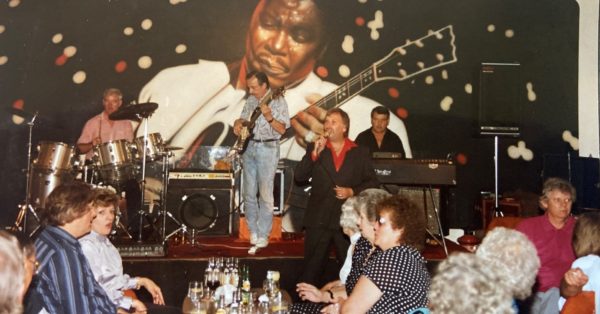 My genre of music was a mixture of Engelbert, Elvis and Tony Christie, Tom Jones and Sinatra. It started when I was growing up. My friend’s dad was an entertainment secretary in a club in Roehampton. We used to go there on a Saturday night, and they would call people up to sing. I was around 18 years old. They would say “Del, come up! Can you sing this for us?”.
My genre of music was a mixture of Engelbert, Elvis and Tony Christie, Tom Jones and Sinatra. It started when I was growing up. My friend’s dad was an entertainment secretary in a club in Roehampton. We used to go there on a Saturday night, and they would call people up to sing. I was around 18 years old. They would say “Del, come up! Can you sing this for us?”.
I became the entertainment secretary at the Shepherd’s Bush Club, formerly known as the Goldhawk Social Club, where I currently organise their live music. I book the live music at Sycamore House as well, for residents’ birthdays or entertainment nights.
I have performed in Tunisia, Portugal and Spain. My friend, a drummer, who I’ve known since I was 11 years old and I went to America and I recorded music in Sun Studio where Elvis recorded. It’s still the same: the instruments are there, and we went into the booth and recorded ‘My Way’, Elvis style. You can’t just sing some songs, you have to perform them. Somebody writes those lyrics, and it means a lot to them. My job as a singer is to bring that out.
One of the best things I did was go to Monte Gordo in Portugal. I had time off from work and at the same time I had lost my youngest son. My wife said for me to go abroad as I found it difficult to stay at home.
I found a random a bar and saw a guy playing the piano and I sat next to him. I said to him “Do you know this song?” and I sung it with him. Once I finished the manager of the bar said: “Can you come in tonight and perform?”. Nine years later I was going there a few times a year. I performed at bars, a casino and a country club.
Tell us about your family.
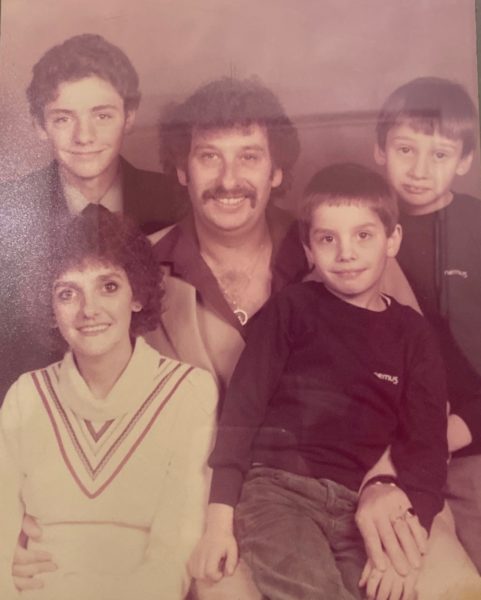 My son’s names are Steve, Scott and Simon. My youngest son was diagnosed at 9 with a brain tumour, and was with us for three years after his diagnosis.
My son’s names are Steve, Scott and Simon. My youngest son was diagnosed at 9 with a brain tumour, and was with us for three years after his diagnosis.
My middle son Scott used to take Simon to a place called ‘Phab Club’, which arranged for the children to go Buckingham Palace Mews to learn to ride a horse. It was run by Lady Joan Bader; she was the wife of Douglas Bader, an airline pilot who lost his legs during the war. The Queen would sometimes pop in and help with the riding lessons.
Simon was a big Arsenal supporter. One of his physiotherapists was an Arsenal seasonal ticket holder and she spoke to the club to arrange if he could watch the player’s train. We went to the Highbury grounds, and we sat in the manager boxes. The team were fantastic with him and made him laugh when I showed them that I was wearing my Fulham football shirt. I have a photo of him on that day in my living room.
We received a red and white football and letter from Arsenal Football Club. Fulham Football Club sent a black and white football and the Chairman of the club sent a Rolls Royce with a player on Simon’s funeral day.
What’s it like living in sheltered housing?
I have been here for around seven and half years now. It’s great having access to a garden right outside my living room. I originally came here for my wife’s benefit as she was in a wheelchair due to her health. We moved in here in the summer and I sadly lost her the following February. We only had a brief time living in Sycamore House together. My second son Scott and my granddaughter passed away last year.
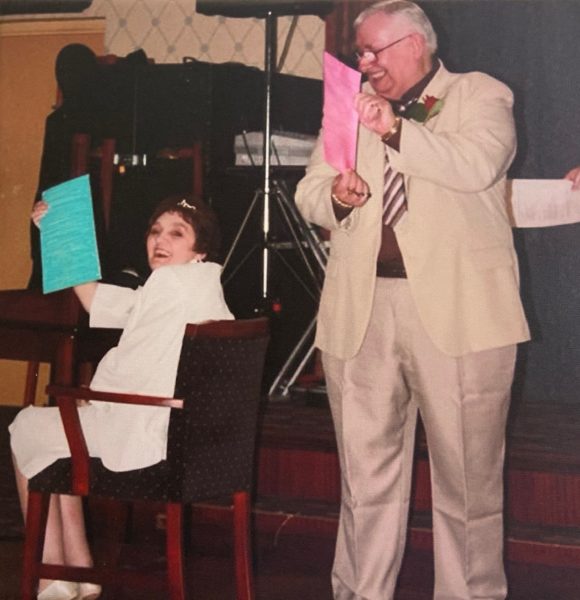
My eldest son lives in Belfast. I am only able to travel short distances, so I haven’t been able to see my family as much. But I have WhatsApp and we talk, share photos and videos with each other and my son always calls me on the weekend.
The scheme manager at Sycamore House, Chris, has been fantastic. When Scott died, Chris checked up on me and made sure I was okay. He gave me the company when I needed it.
They are lovely people here. The staff are great. The best thing is you have your privacy, but the company is there if you need it. I am the quiz master here every Thursday. The residents get together after our coffee morning, and we have a good laugh.
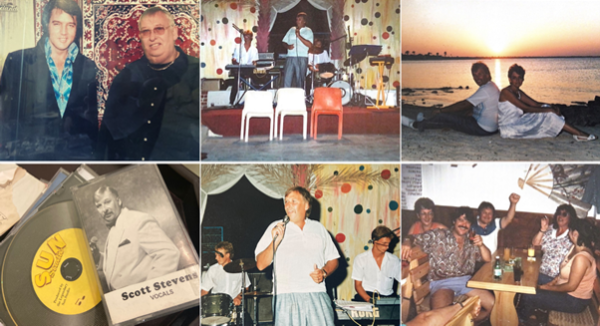
Find out more
Know someone who’s over 60, on a low income and in need of a safe and affordable home?
Find out about our sheltered housing in Hammersmith with beautiful award-winning gardens.
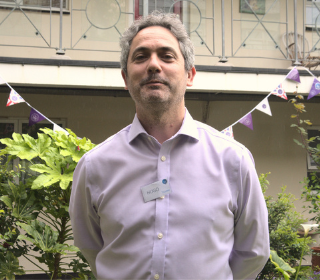
Meet our Trustee Hugo Sintes
With experience of supporting communities all around the world, Hugo joined us in 2021 and sits on our Grants & Partnership Committee.
 Trustee of Hammersmith United Charities, Hugo Sintes, is currently Director of Corporate Partnerships at The Big Issue Foundation. He has 20 years of experience supporting small businesses and local communities in different parts of the world from Africa to Latin America.
Trustee of Hammersmith United Charities, Hugo Sintes, is currently Director of Corporate Partnerships at The Big Issue Foundation. He has 20 years of experience supporting small businesses and local communities in different parts of the world from Africa to Latin America.
As well as being a trustee, what do you currently do?
I have spent the last 20 years or so supporting small businesses and local communities in different parts of the world, first with Oxfam in Africa and Latin America, and most recently with various housing associations in different parts of the UK. My current job is with The Big Issue Foundation. As their Director of Corporate Partnerships, I work with companies that will support our mission, which is to enable vendors, typically people who have experienced homelessness, rebuild their lives by selling the magazine and developing new skills and local connections.
What is your connection to Hammersmith?
I grew up in Spain, but came to the UK to study in 2001 and have lived in Shepherd’s Bush for most of that time since. My partner and I love it here, and we connect with our community in different ways, through the local schools that our kids attend, local associations, sports, and restaurants! We love the buzz and diversity that Hammersmith offers.
Can you tell us why you decided to become a trustee in your local area?
I wanted to know more about my community and try to use my experience and skills to give something back. It’s also an opportunity to gain new skills and grow professionally.
Since joining Hammersmith United Charities, what’s something you found out about the area?
I’ve loved visiting and meeting residents in our two almshouses. More generally, I’ve been impressed with how many people and organisations try to support Hammersmith to be a vibrant and inclusive place to live.
What do you see in the future for the Hammersmith community?
I love it when communities build links and bridges, and businesses and people with different talents join in to help. There’s a lot of that in Hammersmith, and since joining HUC, I’ve seen a lot more than I knew existed! This gives me hope we have strong values and skills at hand. The expert advice provided by organisations such as H&F Law Centre, Citizens Advice or Crosslight is essential, and initiatives such as Barons Court Project and the Upper Room key for people at risk of homelessness. Also, H&F Giving is helping build even stronger connections and support in our community. There’s a long way to go still, but I think Hammersmith can become an example for London and the whole country, and I’m proud to be part of Hammersmith United Charities as we try to do our bit.
What do you like to do when you’re not working?
When the working day is over, I spend time with my kids, but I would not call that relaxing! When I am on holidays, I love listening to the sound of the sea. I’d advise anyone to sit in a garden or park nearby and watch and listen to nature. At Hammersmith United Charities, we believe the gardens in our almshouses are very important to our residents. My two boys and I love playing football. They train on Saturday with a club in White City and you’ll see us often in any of the local parks kicking a ball. I grew up in Minorca, and we also love going back whenever it’s possible to see my family.
What is your favourite book or film?
I’ll watch any James Bond movie and re-read Tintin and Asterix comics in any new language I’m trying to learn! I also enjoy listening to music.
Do you have any advice for someone who wants to become a trustee for a local organisation?
My advice is that you research organisations which work on topics that matter to you, then write to them to ask how you can help, it might be as a trustee, or in other ways.
Find out more
- Hammersmith United Charities trustees
- How to become a young trustee
- How to become a charity trustee
- Find trustee vacancies

Investing in the future of our community
New grants for projects benefiting people in our borough.
Trips for older people who are visually impaired, wellbeing coordinators to help families living with mental health problems, and a cultural festival for local Iraqi, Syrian and Somalian families – these are just some of projects we’ve funded in our latest round of grants to benefit people in our borough.
Nomad Radio, the UK’s only radio station for the Somali community, has also received one of Hammersmith United Charities’ grants. According to Abdul, general manager: “Our listeners are some of the poorest and most marginalised in the borough. It’s never been more important for us to reach out to these families. So we’re delighted to have received funding from Hammersmith United Charities. To be honest, it has helped us keep the lights on.”
In January 2022 we gave over £111,000 to 14 local organisations; with grant rounds in October, January and May, we award a total of £400,000 each year. Our grants go to local organisations delivering services or creating positive change in Hammersmith.
Find out more
The next deadline for grant applications is 16 September 2022.

A right royal celebration
Celebrating the Platinum Jubilee at our almshouses with festivities and friendship.
Residents, community partners, trustees and local councillors and the Hammersmith community came together to celebrate the Queen’s Platinum Jubilee at our almshouses in May. With two garden parties held at John Betts House and Sycamore House, we celebrated in style with live music from local groups, food, drink, conversation – and a few tricks from a local magician.
“We were delighted to see so many local people celebrating the Jubilee at our sheltered housing schemes,” said Victoria Hill, CEO. “It was great to see so many familiar faces and some new ones. We believe Hammersmith’s best asset is its local community. So many people worked so hard to support others over the pandemic and we hope our small celebration helped acknowledge some of them.”
On Twitter…
“Early start for #jubilee2022 with John Betts and Sycamore House in good spirits and voice. Thanks to @HamUnited for asking me, Mayor @EmmaApthorp and Dep Leader @BJ_Coleman for jubilee tea.” Andy Slaughter MP
“Great time at John Betts celebrating together. Huge thanks to our residents and staff for putting on a lovely party. What a pleasure to meet the new mayor @EmmaApthorp @lbhf. Excellent work by @hammersmithandy and @BJ_Coleman, Dep Leader of LBHF, helping us eat all those cakes.” Vivienne Lukey, Hammersmith United Charities Chair.
“Thank you @HamUnited for inviting me to your #PlatinumJubilee Party. A lovely event. Highlights meeting a 91 year old resident who loves living with you, the beautiful gardens and the fruit juice, which was most definitely punch.” Barons Court Project
Find out more
- About our sheltered housing schemes
- How we help strengthen our community
- Follow us on social media

Meet an Agent of Change
Eurydice runs a community organisation dedicated to making our borough dyslexic-friendly.
 Eurydice Caldwell is a dyslexic-friendly life coach who runs GENER8TE, which helps create dyslexic-friendly work environments. She’s also a recent graduate of the Agents of Change leadership programme, which she says has been “transformational”, giving her new skills and community connections to help her projects thrive.
Eurydice Caldwell is a dyslexic-friendly life coach who runs GENER8TE, which helps create dyslexic-friendly work environments. She’s also a recent graduate of the Agents of Change leadership programme, which she says has been “transformational”, giving her new skills and community connections to help her projects thrive.
What does your business do?
One in five people in our community are dyslexic. GENER8TE creates working environments which are friendlier for dyslexic people: I am passionate about people fulfilling their talent. Our mission is to make Hammersmith & Fulham the first dyslexic-friendly borough in London. We’ve been working towards that goal since 2013.
I teach people how to make content and ways of working more dyslexic-friendly. I am so passionate about getting this integrated throughout the borough. It would change the face of our community, not just for dyslexic residents and workers but economically and socially. If people can engage in the accessible materials you are sharing, then you have reduced the barriers to them engaging.
I’m dyslexic myself. In 2007, I completed a course which helped me realise that my dyslexia was a strength – it really ‘flipped my script’. The training I deliver now is a consolidation of the skills I have learned.
As well as my work with GENER8TE, I’ve also worked as a dyslexic-friendly life coach in the community since 2013. I’ve helped clients implement strategies to complete their degrees, authors publish their books, and teachers with methods to support dyslexic students in the classroom. It’s those real-life moments when you meet people on the road who say to me: I am now working, or I am studying this.
I currently also work in adult education at a local community centre called Urban Partnership Group at the Masbro Centre – I’m a qualified teacher specialising in special educational needs. I run a dyslexic-friendly IT & Employability course and an English course primarily for people with English as a second language.
Why did you join Agents of Change?
When we started GENER8TE, we began by going to every community event possible but didn’t really gain any traction. I went to the Agents of Change networking events, and I realised this was the place to build contacts in the local community and to upskill myself.
What did you learn?
After joining the Agents of Change leadership programme, I received two training sessions delivered by an in-house trainer once a month. The trainer taught us how to run our business, upskilled us in leadership and provided fundamental training in creating a business, motivating ourselves and helping us and our projects become successful. You also have a designated mentor.
Having been on the leadership programme, I’m in the position to push my business forward. It’s been transformational – I have learnt a lot. There are two unique things about Agents of Change. First, it’s local, so everyone has a relatable experience of living in the area. People may think London is one place, but it’s not. I have lived in different areas of London and it’s different from Hammersmith and Fulham.
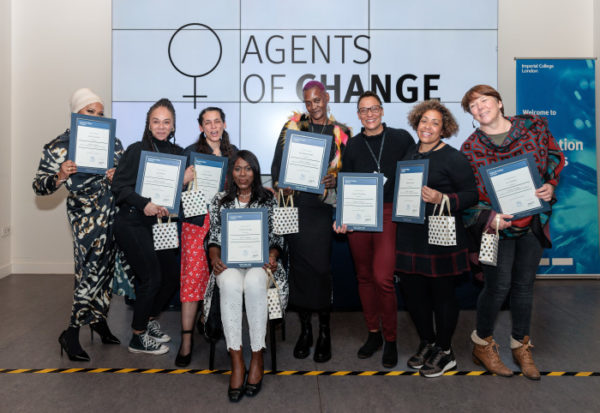
The other fact is that we are all women – it feels really important to have this space. It feels like we’re levelling the playing field. I have built friendships and a network of ladies whom I am able to connect with on a local level.
What would you like other community organisations to know about dyslexia?
Harness the strength of your workforce and the one in five people with dyslexia by becoming dyslexic-friendly. You will become more communicative, powerful, and heard. You will become more inclusive as an individual, organisation and community.
What is coming up next?
I am looking to work with bigger businesses. I have just launched training on how we want business to become more dyslexic-friendly and the impact it makes.
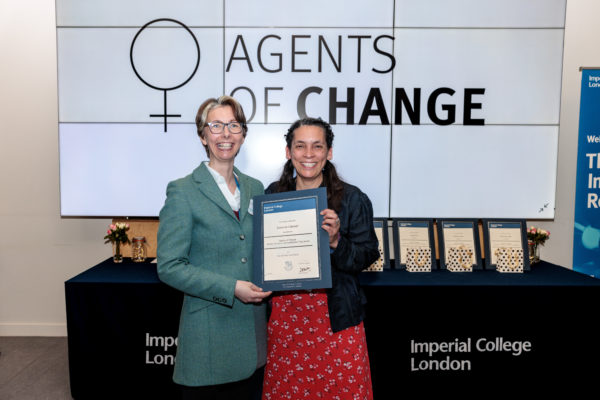
Find out more
- Agents of Change is a six-month free accredited community leadership programme based in Hammersmith & Fulham. It is a network for women who have an active interest in making a social change in the north of the Borough. The programme mentors and supports women to overcome barriers in delivering community and social based projects by equipping them with the tools and skills to tackle local issues. It’s delivered in partnership with Imperial College London, Hammersmith United Charities, Lyric Hammersmith, and the London Borough of Hammersmith & Fulham.
- If you’re interested in joining the Agents of Change programme and network please find out more here or register here. If you would like to find out more about the Agents of Change Leadership Programme, please contact the Community Engagement Team at whitecity.community@imperial.ac.uk
- To access Eurydice’s dyslexic-friendly coaching and training contact her at caldwelleurydice@hotmail.com
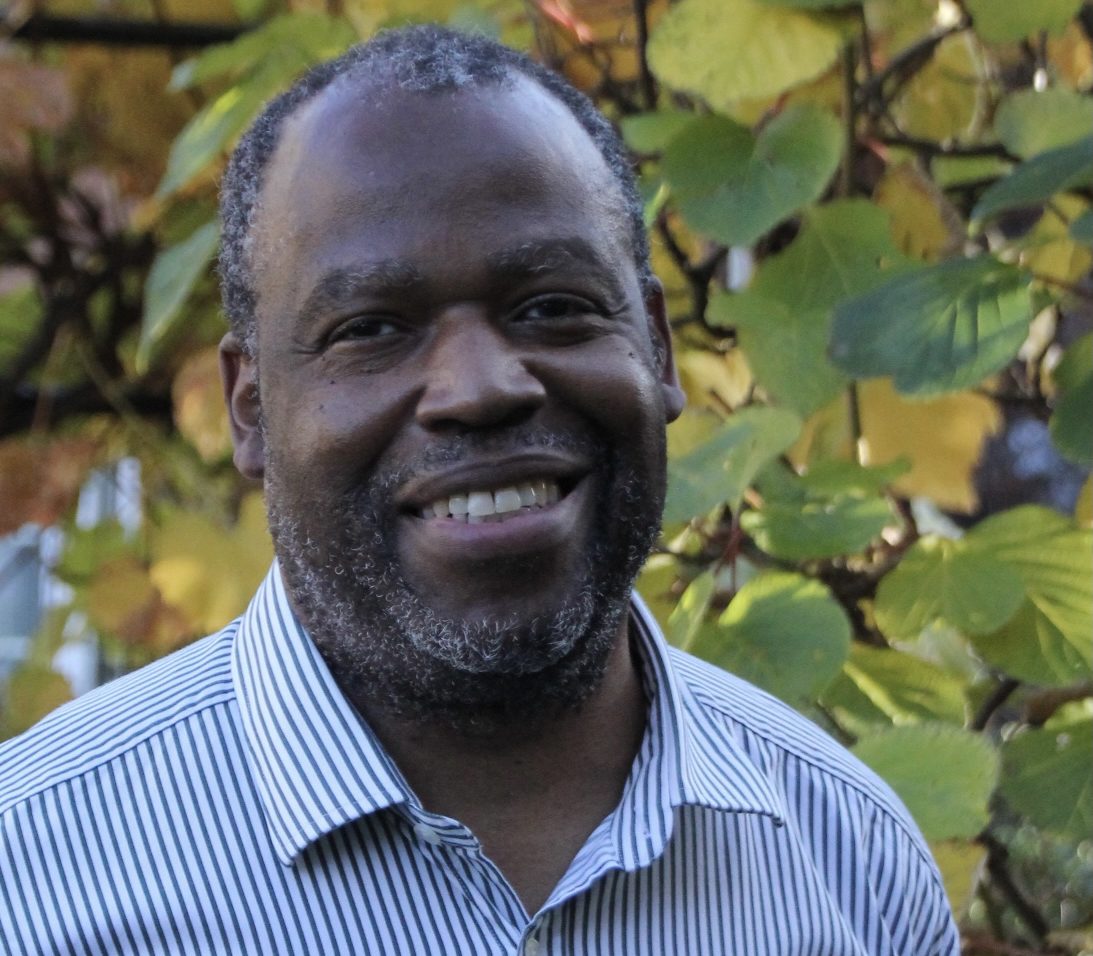
Meet our head of housing
Leslie Morson has been managing housing for over 20 years. He started his career in Hammersmith and has recently returned to the borough as our Head of Housing. Find out about his biggest vice and who he thinks is the best James Bond.
What do you like about Hammersmith?
It’s a really vibrant borough and there’s always a lot going on. I like the mix of communities – I live in Haringey which enjoys the same kind of mix. There’s also a lot of support in the borough for older people which is important.
What does your job involve?
I manage Hammersmith United Charities’ sheltered housing making sure that the buildings are safe and well maintained and also that the residents are being looked after and we can meet their needs. We help them with things such as completing forms and also provide a programme of social activities. We have two sheltered housing schemes just off Goldhawk Road – John Betts House on Rylett Road and Sycamore House on Sycamore Gardens. We are fortunate that we offer large flats decorated to a high standard. What is very special about our housing is the large communal gardens which both our schemes have and these gardens are enjoyed and highly valued by the residents. We are so lucky to have two gardeners who work with the residents to maintain them and keep them looking so beautiful.
You mentioned activities for the residents, what are those?
We have coffee mornings every Thursday. There are also exercise classes and game nights. Local specialists and community groups come in to talk to the residents and there are occasional trips, such as afternoon teas and outings to the seaside. In addition, the residents organise their own social events. For example, at John Betts House the residents arrange a film evening once a week. One of the things that I am looking forward to is to see how we could develop these activities even further. We’re starting to think about what we might do to celebrate the Queen’s Platinum Jubilee in June.
What’s the best thing about the job?
The people. We are a really nice staff team here – almost like a family. I’m starting to get to know the residents and they are great too.
In your free time what do you get up to?
Free time? What is that? I like travelling and I love to get away, even if it is just a short trip at weekends – we were in York the other weekend. My last big trip was going to China and I really like going to the Far East such as to Thailand and Cambodia.
What’s your biggest vice?
I think my wife would tell you it is wasting money, particularly buying electrical things and gadgets that I shouldn’t. I am what’s called an early adopter when it comes to technology and really like my gadgets. Last year I bought a new shower head which has a demister which somehow helps the environment, but I still haven’t installed it after about nine months!
Which do you prefer film or theatre?
That’s difficult. My wife trained as an actress and we often go to the theatre. I’ve been at least three times since the theatres opened up again. However, I do enjoy film as well and pay far too much money for streaming services such as Netflix and Sky. The last thing I saw at the cinema was the latest James Bond movie – I’m a huge James Bond fan. Daniel Craig is without doubt the best Bond we have ever had.
Eat out or take away?
I am a terrible cook, but my wife is an even worse cook than me and she’ll admit to that. I am the one who prepares Christmas dinner. Eat out would be the preference but my wife is a really fussy eater so I enjoy going out for a meal with friends rather than with my wife!
Reading a book or watching the tv?
I’m ashamed to say it but it’s going to have to be TV. I asked for a couple of books for Christmas which I got and I haven’t even picked them up yet. I used to be an avid reader, but I just don’t do it now. One of the books I got for Christmas was Vic Reeve’s autobiography but reading takes concentration and instead you can just stick the TV on and zone out.
Tea or coffee?
I’m not really a big tea or coffee drinker. I never have been. If I was to drink tea, I prefer a Darjeeling with a slice of lemon than a builder’s tea.
If someone is interested in Hammersmith United Charities’ housing, what should they do?
First, check our eligibility criteria. Then just give me a call on 07470 793 565, I would love to show you around.
Find out more
- View our almshouses and gardens
- Read our FAQs
- Hear from our residents
- Check you’re eligible
- Apply now
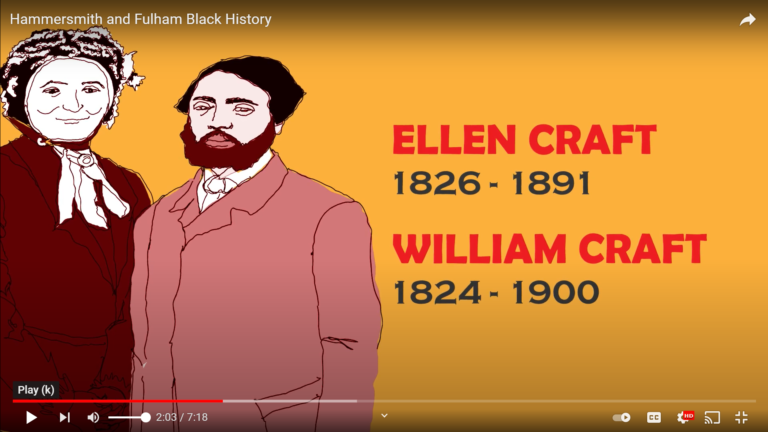
Local Black history – in film
Local charity Urbanwise.London’s new film celebrates the rich Black history of Hammersmith and Fulham – and encourages you to explore your community.
Urbanwise.London is an environmental and educational charity working mainly in west London. It encourages people to go out to explore the history and nature of their local area, working with schools, families and community groups.
To celebrate Black History Month 2021, Urbanwise.London created a film, funded by Hammersmith United Charities, which brings to life the people and places at the heart of Hammersmith & Fulham’s Black history.
The aim is, says Carlos Izsak, Urbanwise.London’s education officer, to “tickle the imagination – there’s a lot of research and information in the film, but we wanted to keep it snappy; the animations make it quite dynamic too.”
The film uncovers the area’s rich local history, sharing vibrant stories about Black people from the area.
We learn about Mary Seacole, who “we could talk about for days”, says Carlos. A skilled nurse who was born in Jamaica in 1805, Mary wanted to travel the Crimean War to treat injured and ill soldiers with Florence Nightingale. She was rejected, so she arranged her passage independently and got to work. George Lawson, a British medical officer wrote: “She did not spare herself if she could do any good to the suffering soldiers. In rain and snow, in storm and tempest… Sometimes more than 200 sick would be embarked in one day, but Mrs. Seacole was always equal to the occasion.”
Mary was buried in west London in 1881, lying there unknown for nearly a century. Bringing “some justice to her”, as Carlos puts it, there is now a beautiful sculpture to celebrate her achievements in front of St Thomas’s Hospital. It’s believed to be the first memorial in the UK to a named Black woman.
We hear too about William and Ellen Craft, former African American slaves turned fugitives, who met in Georgia, USA. They escaped from the plantation they were on, with Ellen dressing up as a white man. As she had light skin, she pretended to be travelling across the USA with her enslaved servant, William. By 1850 they had reached Hammersmith, where they became well-known as lecturers about slavery. They published a memoir about their experiences.
There are many more characters and places to find out about in the film. Bringing these stories to light isn’t always a straightforward process, says Carlos. “There is no such thing as being neutral, you’re always biased – that’s how history works. It’s subjective, but we really tried to portray things as they were, and to get a balance. We wanted to feel that the stories are fair to community.”
Carlos wants the film to be the start of something, not the end. “We’d like to develop some educational resources in the future. I’d love to think of some Year 6 children watching the video in class, asking questions, learning more.”
“I hope the film spurs everyone to find out more, and to get out and explore their area. This way, your local area will feel closer to you; you’ll have a greater sense of connection to the place you call home.”
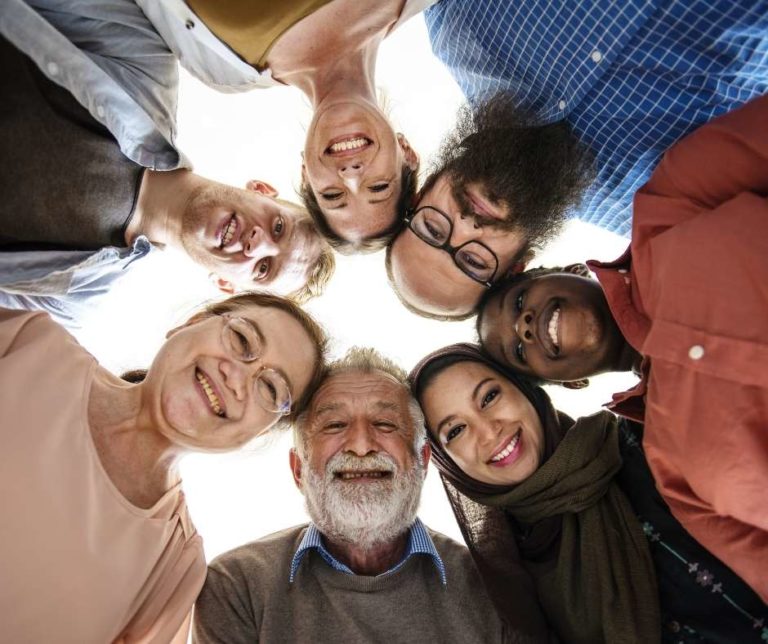
Supporting those who support others
Among the first tasks of Gerard Darby, HUC’s new Head of Grants & Community, was to oversee the distribution of our wellbeing grants.
I recently joined Hammersmith United Charities as Head of Grants & Community. Many years ago, I taught ESOL (English for Speakers of Other Languages) in Hammersmith, but the borough has changed quite significantly since then. However, I feel it hasn’t lost its exciting vibe and wonderful diversity.
The last couple of years have been very challenging for us all and particularly for those working or volunteering in community and voluntary groups.
Although it is now a cliché to say it, these have been unprecedented times – a global pandemic did not feature in any organisations’ risk register.
Despite the pandemic coming with little warning and upsetting the pattern of our lives so significantly, Hammersmith’s voluntary sector responded to it with immense ingenuity, resilience and compassion.
Almost overnight, some groups switched the delivery of their services from in person to digital to avoid a break in their service; others extended their services or created new ones to meet the needs of the borough’s most vulnerable residents. To do this, many had to ask their staff and volunteers to work additional hours, often in the evenings and at weekends. At the same time, like us all, they also had to contend with their own anxieties and difficulties which the pandemic brought, such as family members losing their jobs or contracting Covid and children needing home schooling.
Several groups told me that the physical and emotional demands of the last couple of years have understandably taken their toll on those working in their organisation. In response to this, and the extraordinary efforts made by voluntary groups in the borough, we offered our existing smaller grantees the opportunity to apply for wellbeing grants.
These were small grants of up to £500. We did not stipulate what the grants should be used for except the broad purpose of supporting the wellbeing of staff, volunteers and trustees / management committee members.
Quite a number, such as Hammersmith and Fulham Foodbank, and the Lumi Foundation, a charity which aims to make yoga accessible to all, are using their wellbeing grants to provide celebratory events to acknowledge the efforts of their volunteer teams.
Cristina Nikolov, Lumi Foundation’s Chief Impact Officer, says: “As a very small organisation, we do not have the resources to celebrate the great work our teachers do in the community. Moreover, the impact of Covid-19 and various lockdowns have meant that we have chosen to use our funds to offer free yoga classes online for the community we serve, greatly reducing our budget for other activity. This grant will enable us to celebrate our teachers and create a renewed sense of connection within our organisation. A rare opportunity to enjoy some fun as a team!”
Some groups, such as the Community Interest Company For Brian, are looking to the future and bringing together their staff, volunteers and directors to think about what aspects of their new ways of working they might look to sustain post-pandemic. Clare Morris, Director, explains: “The grant has given us the first opportunity to bring our team together face-to-face since lockdown. Half are full time carers who have felt the impact of Covid-19 disproportionately. We are in the process of planning an away day, and looking forward to being able to take stock and elaborate plans for 2022 and beyond. Although virtual meetings are practical, zoom is no substitute for the support and creativity that arises from meeting in person – for some of the team it will be the first time.”
At Hammersmith United Charities, we recognise the importance of both acknowledging and supporting those who support some of the most vulnerable in our local community. We hope that our wellbeing grants go some way to demonstrating this.
I have been so impressed with the creativity and commitment of Hammersmith’s community groups. I am really looking forward to meeting you all over the coming months.
Go to the grant-making pages of our website to find out about our other grants. Next deadline for applications for our grants to community organisations is midday on Friday 29th April.
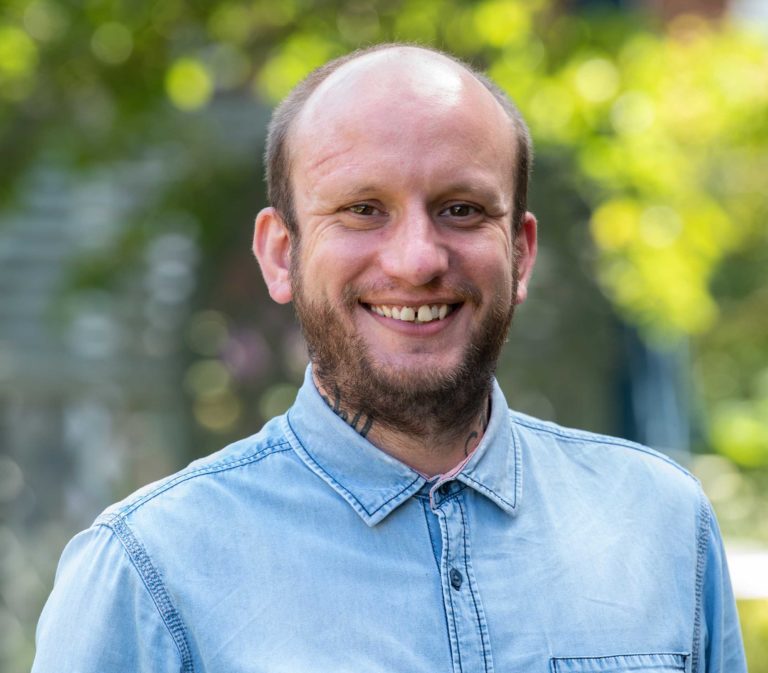
“We’ll tackle anything”
Our housing scheme manager, Chris, is on hand to help our residents with anything that makes their life easier.
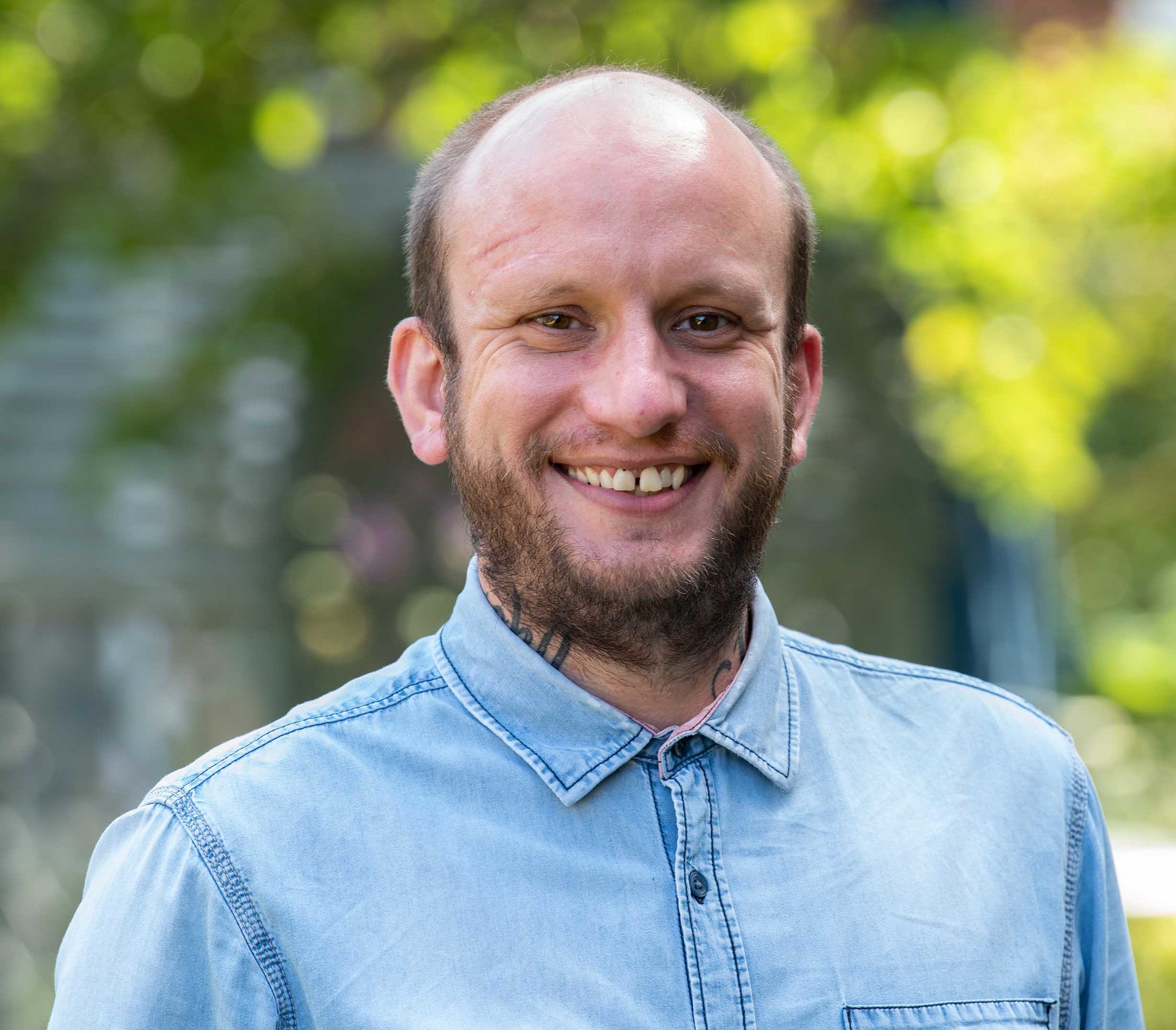
“I look after every resident as if they were my own mother or father. I think, if you stick to those principles, you can’t go wrong.
We help them feel safe and secure, to have the best life they can. They have someone on hand to deal with everyday problems – both physical and mental. This country is in the grips of a mental health crisis, which the pandemic has made 10 times worse, and support services are at breaking point. But I say to our residents: if you have a problem, no matter how big or small, come and find me. We’ll tackle anything.
Recently one of our residents, Mike*, who some years ago suffered a stroke, came to me with a letter from his bank. For the past five years they’ve been charging him every month for insurance for an address he no longer lives at. So I spoke to the bank, and they are in the process of giving him a full refund of £600. I’ve been working with another resident to get his electricity account and meter readings up to date, and he’s now had £450 in over payments refunded. We also arranged a case worker from the RNIB to help another of our incredible residents, a 91-year-old lady who has severe eyesight problems. She’s now feeling a bit more independent in her home, with some specialist aids that help her.
All sorts of things come up every day, and it’s really rewarding to be able to help.
We check in with residents every day to make sure they’re ok, which sometimes means supporting them with their health. Once I called a lady, Jenny*, on the phone, who said she was feeling a bit weak that day and was in bed. It didn’t sit right with me, so I made my way over to her flat. She didn’t look well, and her breathing seemed a bit shallow. I never like to take any risks, so I called the paramedics.
When they came, she was sitting on the sofa, and her heart rate was perfectly normal. But then suddenly it shot up to 200 bpm. They discovered that she had a heart defect, and now lots of things have been put in place for her, linking in her GP, community health services, along with home assessments. The ambulance team told me that they were glad that I’d made the 999 call, as it could have gone a lot worse.”
About our sheltered housing
We provide welcoming sheltered housing, with award-winning gardens, where residents can live safely and independently. Our lovely, affordable flats are available now for people from Hammersmith who are over 60 and on a low income.
- Have a chat or arrange a visit: Contact Leslie on leslie.morson@hamunitedcharities.com or 07470 793 565
- Find out more about our sheltered housing here
*Resident names have been changed

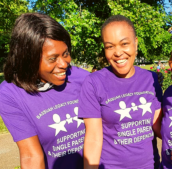
“Everyone can be open, rather than hidden”
Building skills, confidence and wellbeing, the Bassuah Legacy Foundation has created a compassionate community to help single parents thrive.
“I was a single parent for 30 years – I know how it feels,” says Christina Konadu, CEO of the Bassuah Legacy Foundation (BLF). “I have lived the challenges. Back then, there was no support around me. Through BLF, I wanted to build a safe space for single parents and offer the support that I missed out on,” she says.
Making up nearly a quarter of families with dependent children, there are nearly 2 million single parents in the UK. With part-time nursery places now costing over £7,000 per year, single parents are much less likely to be in employment than parents living together. “Single parents often have to give up their studies or their employment when they have children, and then never go back,” says Christina. “After being at home for a long time they often lose confidence,” she says.
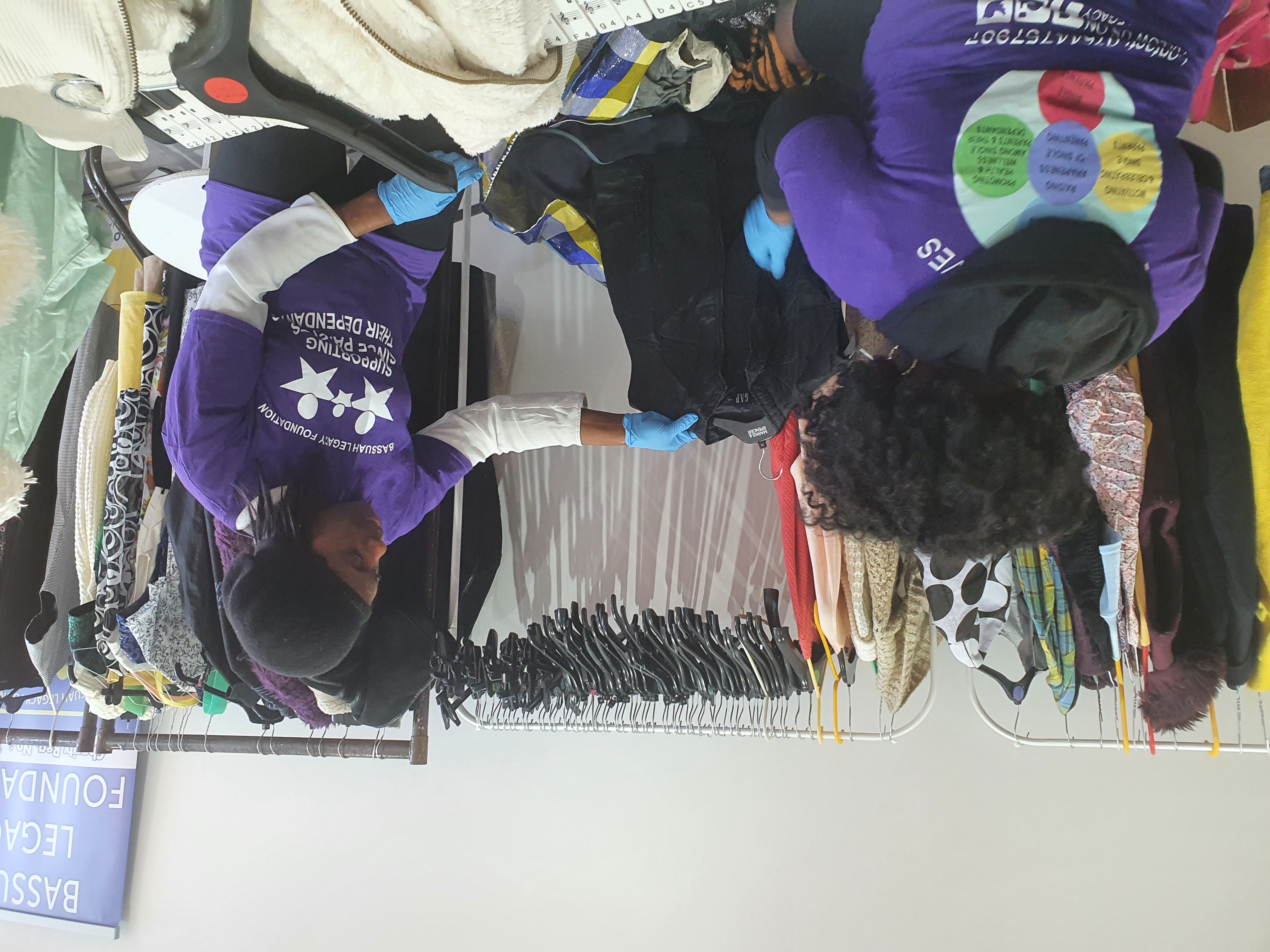
Formed in 2019, BLF aims to ‘promote social inclusion and relieve the needs of single parents and their children’. Funded by Hammersmith United Charities, BLF offers basic education programmes including literacy and numeracy, money management and digital training, along with employment support like CV writing and interview techniques. There are also volunteering opportunities through the BLF’s much-loved community shop – “a great way for our members to give back to the community and make new friends,” says Christina.
“Single parents also often don’t have time to do things to help with their own wellbeing,” she says; the BLF provides a wellbeing programme which includes yoga, mindfulness and other activities, along with signposting to other local services that can help with mental health.
The team works hard to get to know each person and find out exactly what support they want. “We try to get to the bottom of every member,” says Christina. “Getting people to open up is a challenge, but we take it slowly. We celebrate each and every one of our parents to help empower them.”
She believes that there is still a lot of stigma about single parenting. As well as the practical support BLF provides, it’s also a supportive place where its members feel understood and can find their voice. “We’ve created a community where together we are a family rather than individuals. Whether you’re a single mum or a single dad, you know that you’ll be understood – everyone can be open rather than hiding themselves.”
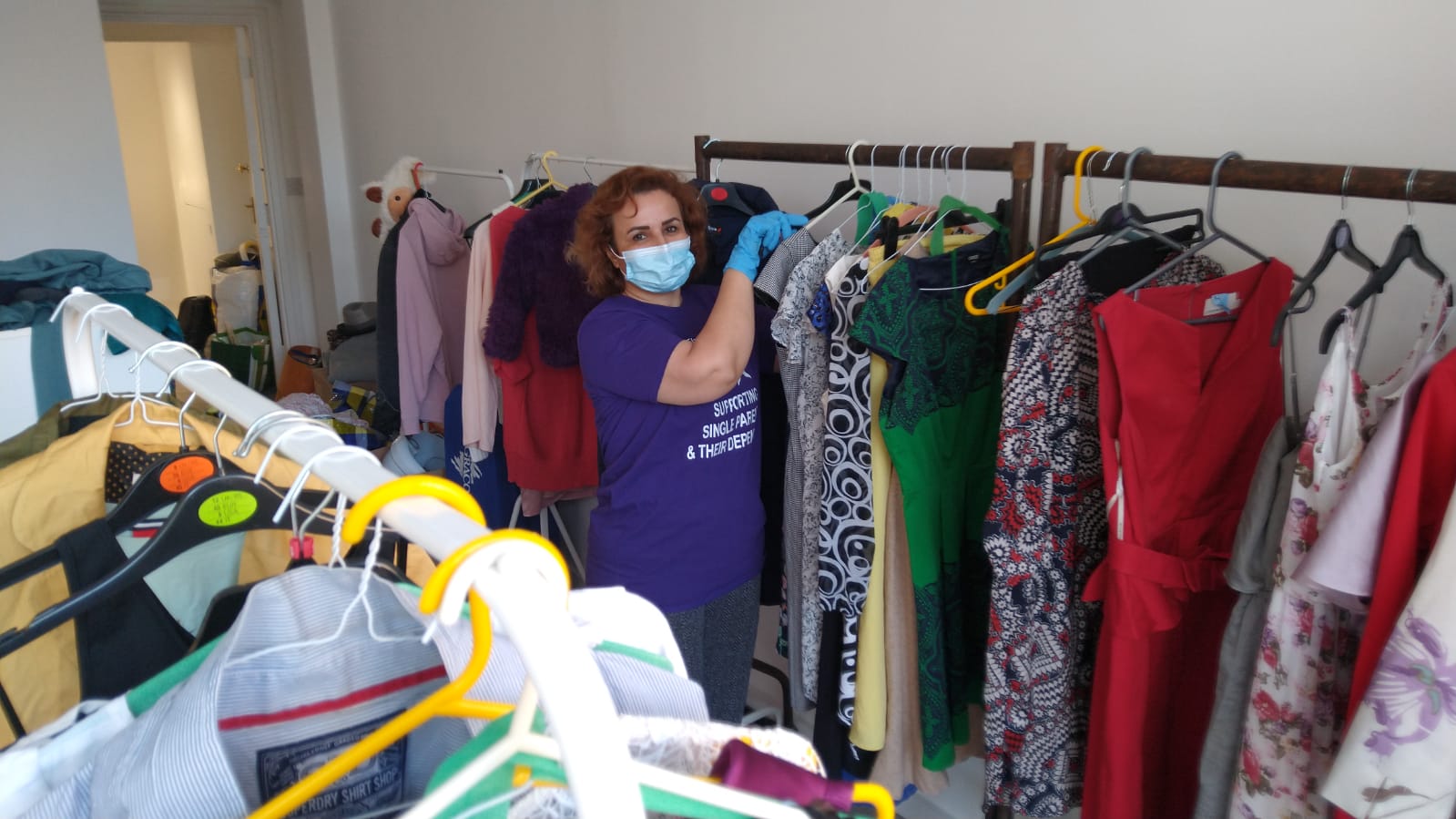
The team has recently worked with someone who has been a single parent for a while. She had lost her job because she couldn’t afford childcare. “She had lost her confidence – lost everything – because she wanted to be there with her son,” says Christina. “It took her a long time to rebuild. But through BLF she regained her confidence. We gave her employment and wellbeing support. And now she is one of our trainers on the health and wellbeing programme, and has another job as well. We’ve been there throughout everything.”
It’s rewarding to see people go back to employment or education: “When they leave us and you see these big achievements – it feels amazing. We are so grateful for the support of funders like HUC, which helps us make such an impact on single parent families in the borough,” says Christina.
And as well as supporting the community in Hammersmith and Fulham, BLF also has a branch in Ghana, which is where Christina was born. “It is a different environment – there is more privilege here in London. In Ghana, a priority was getting a clean water supply for the community we wanted to support. After we’d helped organise that, then we could help people with basic education, finances and building our petty trading programme. Although the work we do in Ghana is slightly different, we are responding to the same need. Single parents need support wherever they are around the globe.”
________________________________
Find out more
- The Bassuah Legacy Foundation is looking for funding to reach more single parents in need. Find out more about BLF here
- Christina was part of the Agents of Change female community leadership programme – find out more about Agents of Change here
- Read more about other ways we support our community
- More information about our grants programme
- Read about organisations we’ve funded
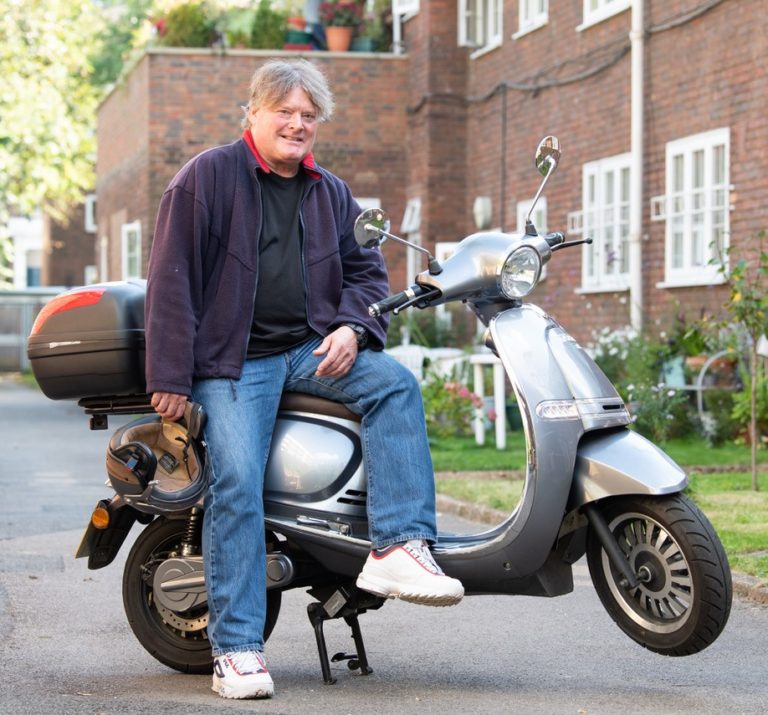
“Finally I have some inner peace”
When he’s not making candles for the Queen or delivering NHS prescriptions to locals, Martyn is making the most of his tranquil new home for life at Hammersmith United Charities’ almshouse, Sycamore House.
“I’ve lived in West London since the 80s, not far from Sycamore House, in fact. I used to work in adventure tourism – I was a tour leader, taking people for trips all around the world. I hung up my Indiana Jones hat when I was 55. I started doing walking tours in central London and to tourist destinations like Stonehenge and Bath.
It all came to a shuddering halt in March 2020. All the tourists were gone. And I was sitting at home, wondering what to do.
Then I found a role with a hospital in Notting Hill, delivering prescriptions to people who had to stay at home during lockdown. I still do that for four hours every afternoon. I just feel like I’m doing my bit in the war, you know? Helping my local community. People are usually really happy to see me. It makes me feel very validated and blessed every day.
I’m also a candlemaker to the Queen – I’m based in a workshop in Shepherd’s Bush which has a royal warrant. It’s something I’ve been doing for 40 years. We make candles for events at Buckingham Palace, and also for television. If you’ve seen a candle in a BBC production it’s most likely one of ours. We often make them intricately out of beeswax, to keep them historically accurate. Sometimes we’re asked to make them burn brighter to help the cinematography, things like that.
For 30 years I’d been living in ‘short-life’ accommodation. That means you’re allowed to stay with other people in a property that would have otherwise stayed empty. Cheap, temporary accommodation in things like old houses, pubs, run-down mansions, old fire stations – all sorts. They weren’t in good condition and eventually it would go back to the owner when they wanted to refurbish or demolish it. It was very uncertain. You wouldn’t know if you were going to stay somewhere for five months or five years.

It was great fun when I was young and winging it. But for some reason, earlier this year, I just thought: I can’t do this anymore – 61 and living like a student. It’s not fun when you are older, moving everything into storage over and over again. My current place was coming to an end, with no guarantee of anything else. The last three times I’d been moved out there had been a gap of several months, so I stayed on sofas, or with my parents, which drove me crazy after 48 hours. When I first started with short-life, there was so much property to choose from. Now, there’s very little empty property left in London.
A while back I was delivering some medication to one of Hammersmith United Charities’ sheltered housing schemes. I was struck by how peaceful it was, and the gardens! I asked the tenant – what’s the story with this place? He said, well, if you’re over 60 and you’ve lived near here for over five years, you should get in touch – you might be eligible.
So that’s what I did.
The process to apply wasn’t daunting – right from the word go the staff at Hammersmith United Charities helped me along every step. They were kindness itself.
No stress exists in Sycamore House. People are nice and helpful, and I can be as independent as I want, commit to the activities as much as I like – there’s no pressure from anyone.
I wouldn’t want to live anywhere else. It’s a beautiful flat, with wonderful gardens. And it’s got one thing you can’t buy in London, even if you’re rich: it’s quiet. All you hear in the morning is birds. No traffic, no shouting.
To have been winging it for 29 years and then to have home security. For the first time in my life I have a grown-up flat. Not having eviction notices through my door; not having to share my kitchen and bathroom. For the flat to be all mine. Finally I have some inner peace.”
Find out more
- Over 60, from the area, on a low income and in need of a safe and affordable home?
Find out about our sheltered housing in Hammersmith with beautiful award-winning gardens.

The London Funders’ perspective
Find out how London Funders supports funders in Hammersmith and Fulham and its wider membership to meet the needs of London’s communities.
By Geraldine Tovey, Membership, Communication and Policy Manager at London Funders
Some charities in Hammersmith and Fulham may have heard of us, but I know that we’ll be unfamiliar to many. London Funders are the network for funders and investors in London’s civil society. We’re the place where funders come together to connect and collaborate, where ideas are generated and acted on, and where people work to ensure that resources are channelled to the right places. Over 170 funders – from across independent, public and private sectors – are members, and they provide support to thousands of organisations across the capital.
London Funders supports the funding community in every borough, and we run specific activities to help our members in Hammersmith and Fulham. We are strong advocates and supporters of UNITED in Hammersmith and Fulham who are members of our London’s Giving initiative. UNITED in Hammersmith and Fulham (fundraising partner of Hammersmith United Charities) is part of a network of local place-based giving schemes. These schemes work collaboratively with other groups in the community to provide funding and support to local groups, and deliver activities to promote a strong sense of togetherness in the borough. Over the past few years this network of place-based giving schemes has gone from strength to strength. You can read more about the impact of these schemes across London in our latest report.
We also connect our members who fund in the borough more informally, through our wider programme of events and by providing the results of our annual member survey of who funds ‘what’ and ‘where’. We recently increased our capacity to support local funder forums, as part of our place-based work. While we’ve not yet established a group in Hammersmith and Fulham, we are always keen to hear from funders – so get in touch if you’d like to find out more!

We also work hard to help London’s wider civil society sector. Most notably, London Funders has convened major funder collaborations following the Grenfell Tower Fire and the onset of the Covid-19 pandemic through the London Community Response Fund. Both funding rounds got money out of the door incredibly quickly. For example, over the pandemic, we were delighted to work with 67 funders to get £57.5m out in grants through to over 3,600 amazing organisations.
By working together through these collaborations, funders could share intelligence, ensure that funding matched the immediate needs of the community and minimise due diligence and the reporting burden for charities.
We have written reports on our learning from both the funding in North Kensington and the London Community Response – and are using these to influence the sector to keep some of the positive changes that have occurred in funding over the past year.
These are not the only collaborations that we have worked on. Outside of an emergency, we have also convened smaller, more bespoke funder collaborations on civil society infrastructure and Deaf and Disabled People’s organisations.
Furthermore, London Funders provides lots of feedback to members on how they can be the best funders they can possibly be. We host member networks on wide reaching topics such as children and young people, culture, and health, and we put on loads of one-off meetings on specific policy issues too. We also send a weekly briefing email to our members, and publish reports on best funding practice.
We have curated a resource hub to influence our members’ thinking as we navigate the recovery from the pandemic. The resource hub is also really useful for other people working within the community sector – the research, articles and think-pieces give a clear sense of the wider world we’re all working in.
And in the past year and a half we’ve been disseminating our learning from the London Community Response as we’ve gone along, and have made sure that civil society organisations can see who received funding, and what our processes were.
As we come out of the other side of the pandemic, we’re revisiting our strategy and looking at what more we can do to support all of the capital’s diverse communities. In the short term, it means that we will be bringing back our monthly bulletin to the sector on funding opportunities and member news, and we will be working with IVAR on the Flexible Funders programme.
In the long term, we’d like to hear from you – do get in touch with me if you’d like to find out more about membership and our wider offer to the sector.
Find out more
- For more information about London Funders visit the website and follow them on Twitter and Linkedin.
- More information about Hammersmith United Charities’ grants programme
- Read about organisations we’ve funded
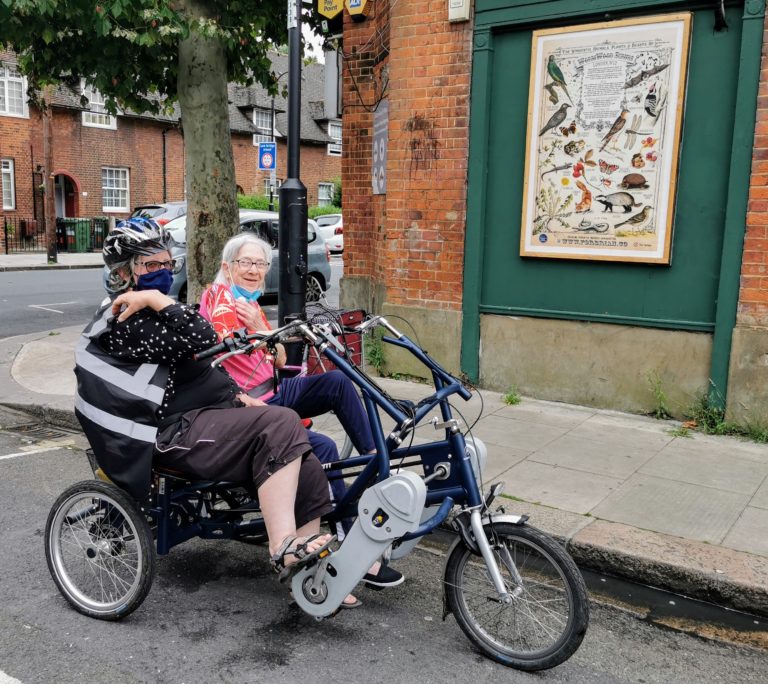
‘It’s not rocket science…it’s about properly listening’
Throwing out the rulebook to support people with dementia and their families, For Brian has helped its members take a more active role in shaping support.
“For Brian grew from the idea that people with dementia and their families needed the opportunity to creatively shape support, rather than being ruled by a manual,” says Clare Morris, founder of For Brian. Launched in 2018, it’s a community organisation with a fresh approach to supporting people with dementia and their families.
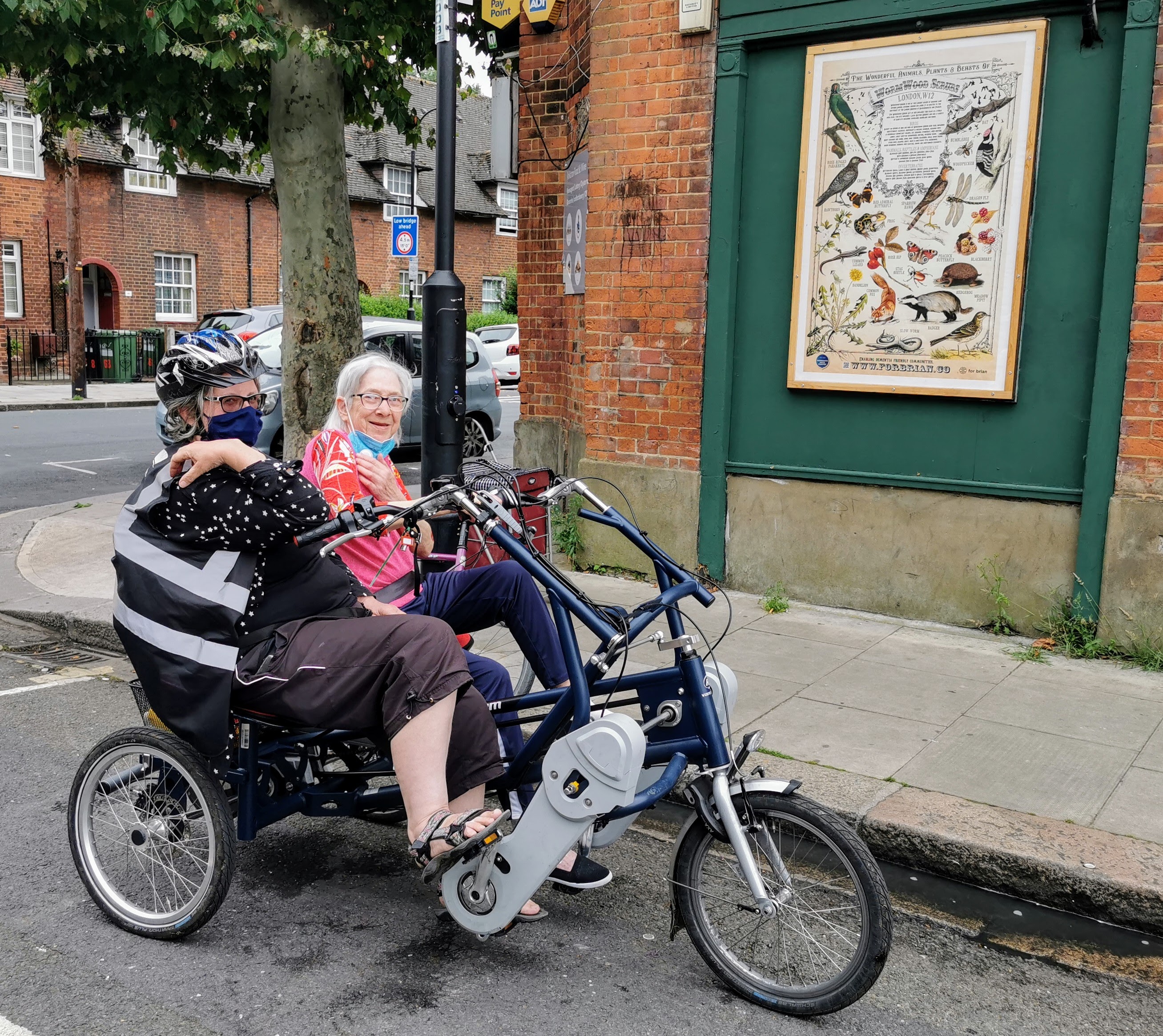
With 30 years’ clinical experience in working with people with cognitive impairment, Clare was passionate about empowering people with dementia. She joined the Agents of Change leadership programme, which is part funded by Hammersmith United Charities. The programme, which enables female leaders to drive social change locally through skills building, networking and mentorships, helped Clare to get her idea off the ground in Hammersmith and Fulham. “The Agents of Change Leadership Programme has been such a brilliant source of collaboration,” she says. “It’s great to be part of such a supportive community of like-minded people with complementary aims.”
For Brian has now been running for three years. It’s working within the dementia community to find out what’s truly supportive, and then facilitating people to make it happen. “Co-production is a very popular term at the moment,” says Clare. “But we’re experimenting with it so people shape the services themselves. It also helps practitioners be more creative, without the constraints of a big organisation,” she says. Everyone has a voice; some of the directors at For Brian will have dementia themselves.
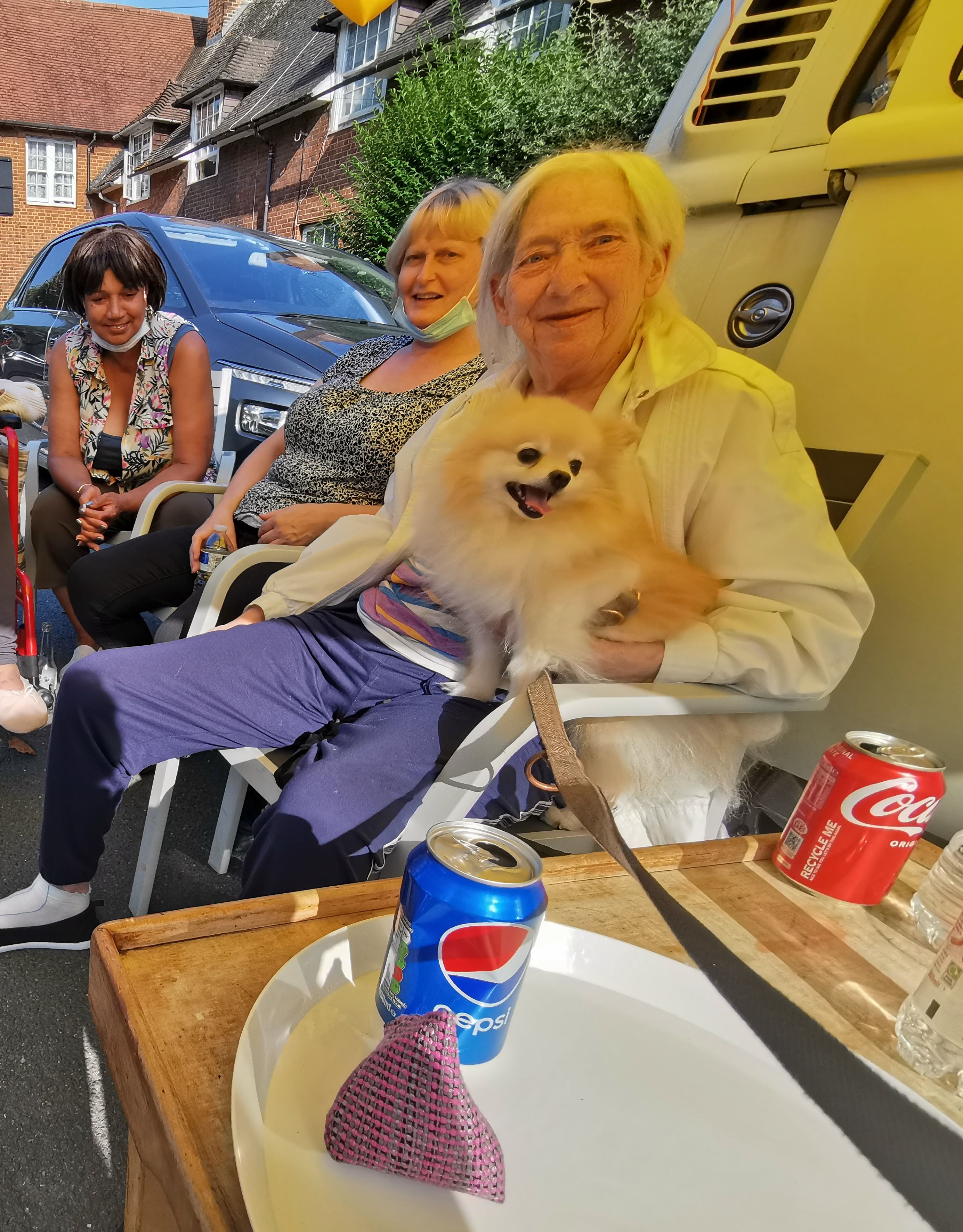
Underpinning this is ‘personal construct psychology’, which helps Clare stand in the shoes of people with cognitive impairment. “It’s not rocket science,” says Clare. “But it helps to think through what it’s actually like to struggle to communicate. How it feels for people to speak about you rather than to you; to feel disinhibited and then be socially excluded; to not know where you are. It helps us to remember to ask those important questions: Can I help? How can I help? And to listen carefully. People with dementia just want the same things as the rest of us.”
When designing activities for her members, Clare tries to encourage “anything that helps people with brain health,” unlocking the things that people can do, rather than what they can’t do. That’s brought into being things like dementia-inclusive cycling on adapted bikes, which gives people an immense feeling of freedom, she says. Other activities which have got people out enjoying themselves include dementia-friendly yoga, art, horse therapy and street parties.
In the true For Brian spirit, the members taken these initiatives and given them a life of their own. For example, online art sessions started with the concept of doodling together with peers. Projects gradually got more elaborate and as people got to know each other, they started to meet outside and talk about bigger issues and giving each other advice. “And projects important to members have begun to flourish – one person has started making bespoke ‘discovery bags’ with objects to provide sensory stimulation, comfort and intrigue,” says Clare.
Inclusion is a thread that runs through everything at For Brian. “I’ve met so many people with dementia – particularly from minority communities and younger people – struggling to find appropriate support,” says Clare. “In fact, For Brian started with Mike, who’s one of our directors, and Tom, a gay couple keen to raise awareness about LBGTQ+ people living with dementia and the prejudice that’s still prevalent.”
Connecting with empowering funders has been key to success. “Hammersmith United Charities funded us right at the beginning to help us get off the ground, and with them, I found people who understand what I’m talking about,” says Clare. “They’ve allowed us to use their funding really flexibly to meet the needs of people in a timely, tailor-made way. This helps For Brian to deliver with continuity and survive, and makes the funds go further.
“Hammersmith United Charities let us hold onto our funding over the pandemic as For Brian was awarded several Covid-related grants – now those projects are completed we have had that money in hand to provide a seamless service. This support between project grants is key to delivering the continuity people with dementia need, and has nurtured the relationship between For Brian and Hammersmith United Charities.”
Clare believes that if you get it right for people with dementia you tend to get it right for everyone in the community. “I feel proud that For Brian has helped grow an inclusive dementia community, where people have an active voice in their own lives.
“One local lady I know usually comes to the door in her nightie. With regular doorstep interventions throughout lockdown we managed to get her to come to our street party. She sat listening to the music, socialising and tapping her feet for three hours. That sort of thing makes my heart sing.”
Find out more:
- Learn more about For Brian’s work here
- Find out about the Agents of Change programme
- Read more about other ways we support our community
- More information about our grants programme
- Read about organisations we’ve funded

8 tips for launching your community project
Clare Morris, founder of For Brian CIC, gives some tips for getting your community idea off the ground.
- Go around, not through
You will come up against brick walls. Try to go around them, rather than knocking your head on it. - Start with baby steps
Identify the smallest change that would make a significant difference and start with that. - Be patient
Rome wasn’t built in a day. Be patient. Throw things out there and see what germinates. - Consider formalising the organisation
Becoming a company gives you access to funds sole traders cannot apply for. For us, becoming a Community Interest Company (CIC) has opened doors. - Be open with funders and be ready to learn
Be honest about what you know but also what you need help with. I had a lot of support from the London Community Foundation to help me learn about applying for grants. Go to funders’ fairs and workshops and gather as much knowledge as you can. - Talk about your ideas
It helps you formulate and hone your ideas. - Be resilient
Learn to live with the fact that it isn’t going to be plain sailing all the time. We all start with varying skill sets. The penny will always drop in a different order for different people. - Don’t be afraid of working with others
No one is an island, and no one is the answer to everyone’s dreams. Together people are stronger.
More information
Do you need funding for your community project? Hammersmith United Charities’ next deadline for grant applications is 24 September 2021. Find out more about our grant programme here.
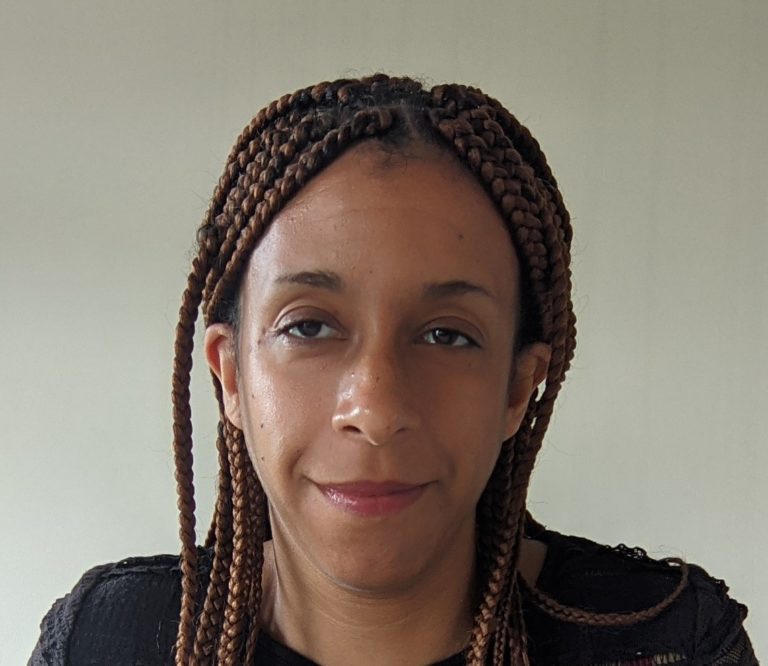
“Some will benefit, but some will lose out”
Recovery from the pandemic is beginning, but it’s not straightforward and is particularly unequal in London.
By data analyst Christabel Cooper, Labour councillor and Hammersmith United Charities trustee.
The success of the UK’s vaccination program has meant that after 18 long months we finally can start thinking about a return to a (relatively) normal life after the Covid pandemic. Despite the deep recession caused by the restrictions needed to contain the virus, most economists are predicting a fairly rapid return to pre-pandemic levels of activity.
Yet Covid has financially impacted different people in very different ways, and the recovery is also likely to be uneven. Millions have seen their income fall. That might be because they accessed the furlough scheme, which only paid part of their wages, or because they have lost their jobs altogether.
Despite this, the pandemic has increased the wealth of many who carried on working. That’s particularly true for higher earners, who tend to spend more of their money on non-essential services such as eating out, entertainment and holidays. Opportunities for these activities have been limited over the last 18 months, saving households across the UK £150m, the Bank of England estimates.
In London, the impact has been very unequal. Around 50% of residents have been able to work from home during the pandemic, and a significant amount of wages will have been translated into savings. This makes post-pandemic economic recovery much easier as residents with accumulated wealth start to spend (at least some of) that surplus with local businesses.
But according to the Institute for Fiscal Studies the city also lost the biggest number of jobs of any UK region last year, unsurprising given the capital’s disproportionate dependence on hospitality, entertainment and tourism – all sectors decimated by Covid. By November 2020 London had both the highest percentage of claimants for unemployment-related benefits, and the highest percentage of workers furloughed anywhere in the country. London’s unemployment rate has now fallen back as restrictions have eased, but remains above the UK average.
Nevertheless businesses and residents are generally optimistic about the future. According to the most recent London Intelligence survey from the Centre for London think tank, 50% of the capital’s residents thought their personal finances would improve over the next 12 months, versus 19% who thought they would get worse.
But even a strong economic recovery may be unable to help those who are already in an unsustainable amount of debt. 48% of Londoners said they wouldn’t be able to meet an unexpected expense of £500 from their own money, up from 44% in September 2020. 21% would have no way of meeting an unexpected expense of £500 even if they borrowed money. Private tenants in particular will face problems. The eviction ban has now ended, and the government still plans to withdraw the £20 a week uplift to Universal Credit which will hit the poorest.
Meanwhile Covid cases are still high. Around 30,000 people are day are testing positive for the virus and (at the moment) this shows no sign of dropping significantly. This has had the knock-on effect of requiring millions of people to self-isolate because they had come into contact with an infected person.
Changes to the requirements to self-isolate following contact with a Covid case may ease this ‘pingdemic’. But this comes on top of a continuing reluctance to return to previous behaviour patterns. The London Intelligence survey reveals that although residents feel increasingly comfortable about going out in Central London, over a third remain hesitant including 45% of those aged above 65. For some businesses a combination of self-isolation requirements and persisting public reluctance to resume normal activities means that they may run short of both staff and customers. That’s just as the Chancellor of the Exchequer starts to withdraw financial support in the autumn. London is set to face a difficult few months.
In the longer term, the pandemic will have an impact on the way we work and the way we shop. Undoubtedly workers will eventually return to offices, but almost certainly not in the same numbers as before. As a borough which contains both large numbers of both offices and residential areas, the impact of these changes on Hammersmith and Fulham is uncertain. Local businesses which depend on providing office workers with food, drink and other services may be badly affected. The pandemic has accelerated the decline of bricks and mortar shops in favour of online retail, and many of our retail businesses will remain vulnerable. Yet, at the same time, greater numbers working from home mean that some of our residents will end up spending more time in the borough rather than travelling into an office in Central London.
It is important that the overall economic figures do not mask the fact that while some people and businesses will benefit from the changes brought by the pandemic, others will lose out. The structure of London’s economy and population is likely to go through some painful re-adjustment, and within our borough there are still large numbers of residents who have been hit hard by the pandemic and may struggle to recover in the short term.
As a grant-making organisation, Hammersmith United Charities will continue to support local people in need as we recover together from the pandemic.
More information:
About Christabel Cooper
Christabel is a Trustee for Hammersmith United Charities, and a member of the Finance Committee. She’s also a local councillor in the London Borough of Hammersmith & Fulham, representing Fulham Reach ward. She’s an Assistant to Cabinet with responsibility for running a project to improve and to publicise the role of analytics within the council. Follow her on Twitter @ChristabelCoops.
About Hammersmith United Charities’ grant-making
We invest in the future of our community through our grants programme. We give grants to local organisations supporting people who live in our area of benefit. Find out more about our grants programme here
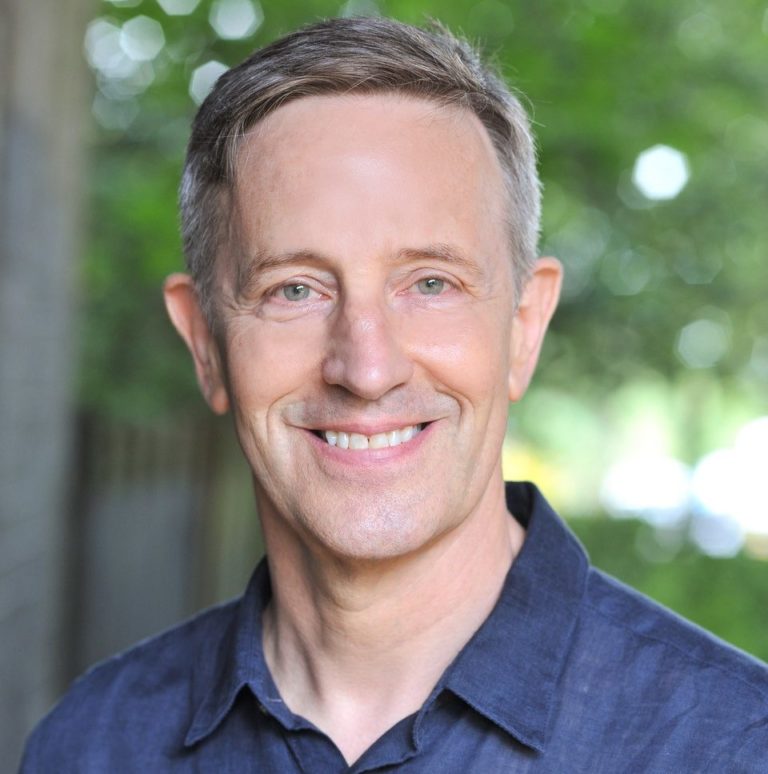
Remembering Stuart Sessions, MBE
We were very saddened to hear of the recent death of Stuart Sessions MBE, a previous Chief Executive of Hammersmith United Charities and the driving force behind the creation of our community grants programme.
 In his own words, Stuart was “an actor and voiceover artist who started young, took 20 year diversions into the armed forces, overseas emergency relief work and the charity world before finally returning to my first love: acting.”
In his own words, Stuart was “an actor and voiceover artist who started young, took 20 year diversions into the armed forces, overseas emergency relief work and the charity world before finally returning to my first love: acting.”
Stuart’s summary of his distinguished career is typically understated. Prior to working with Hammersmith United Charities he served as a senior officer in the British army for 20 years, followed by spells as a UN Military Observer and as an Emergency Programme Coordinator for Oxfam. After a successful stint in business, Stuart joined Hammersmith United Charities in 2005 and was with us for 9 years.
Under his leadership the Charity was able to stabilise its finances and build new flats at Sycamore House – sheltered housing for older people just off the Goldhawk Road – as well as create the community grant programme. The grant programme now funds around 60 local charities each year supporting a diverse range of causes from assisting young people at risk of serious violence, to art classes for older people and the widely enjoyed H&F ArtsFest.
Mike Smith, previous Chair of Hammersmith United Charities, worked with Stuart for 7 years: “Stuart has left a lasting legacy for the Charity and the community we serve. As a result of Stuart’s vision and direction the Charity is able to provide safe and secure affordable homes for an additional 20 older people and help and support for more than 5,000 local residents each year.”
Stuart is fondly remembered by many of the residents of our almshouses. Pearl Armstrong, resident of Sycamore House, often speaks of his kindness to her during difficult times: “Stuart was such a lovely man, he was so friendly and if you had a problem you could always go to him and he would help you sort it out. We used to love going to see him act, especially in The Woman in Black, it was a fantastic performance. I used to love seeing his white German Shepherd (Rudi) out in the garden, I still miss him and Stuart.”

Let’s talk about race: starting conversations
We’re working on a new project with our partners Nova New Opportunities to find out how racism affects local people, and our charity’s role in creating a more equal society.
By Victoria Hill – CEO, Hammersmith United Charities
I was surprised by the recent report from the Commission on Race and Ethnic Disparities which concluded that whilst impediments and disparities are experienced by people from ethnic minorities very few of them are directly to do with racism. Some of the findings were at odds from the evidence of our work and it was disappointing to see how such an important report appeared to downplay the experiences of many of the people who live in our community.
So what role should Hammersmith United Charities take to tackle racism?
We don’t know yet, but we are working with our new partners, Nova New Opportunities, to find out.
Over the next few months, with Nova’s support, we’ll be spending time talking openly about racism and racial inequality with a wide range of local people, the organisations we support, their beneficiaries and other local strategic stakeholders.
We want to find out how racism truly affects people who live in our area of benefit in their everyday lives. We want to understand what work is being done by other local institutions to address racial inequality in the area. And we want to know what meaningful role our charity should play.
Some members of our community feel – and often are – unheard. We hope that the Let’s Talk About Race project will help bring their views and experience to a wider audience. Our discoveries will shape everything we do in the future, like our approach to grant-making, and how we work with local partners to create a more equal society.
At a board level the project will be sponsored by Adam Matan OBE, one of our Trustees and local resident. Adam came to the UK from Somalia as a teenager and until recently led the local charity Anti-Tribalism Movement which promotes fairer and more equitable societies.
We don’t have all the answers yet, but we have plenty of questions – and we’re ready to start asking them. We’ll be sharing our findings over the coming months.
In the meantime, if you would like to find out more about the project or share your views we’d love to hear from you – contact info@hamunitedcharities.com

Writing a funding proposal that shines
Find out about local funder John Lyon's Charity and how to make your proposal stand out from the crowd
By Anna Hoddinott, Senior Grants & Communications Manager – John Lyon’s Charity
John Lyon’s Charity believes in transforming the lives of children and young people by creating opportunities for them to learn, grow and develop through education. We support organisations that deliver services to children and young people from birth up to age 25, or 30 for those with special educational needs or disabilities that are based in nine London boroughs: Barnet, Brent, Camden, Ealing, H&F, Harrow, K&C and the cities of London and Westminster.
While we have a focus on education, we see this in its broadest sense so will fund a whole range of activities for young people from opportunities within the arts, sports programmes, youth clubs and youth services, emotional wellbeing initiatives as well as projects that support children to access academic learning.
We are about opportunity rather than disadvantage and see our role as enabling all children and young people throughout the Beneficial Area to access things that they normally would not be able to. We can give grants to registered charities or those with automatic charitable status as well as directly to state schools. More information can be found here.

How to apply
Most of the grant funds operated by John Lyon’s Charity have a two-stage application process which involves an initial proposal letter followed by an application form. The exception to this is our School Holiday Activity Fund, which has a single stage application form process, to enable funding to be accessed quickly.
The initial proposal letter is your first opportunity to engage with the charity and it is therefore important to get this right. A good proposal doesn’t have to be long – we recommend about two sides of A4, but this is not a hard and fast rule and we don’t stop reading at the end of the second page!
Here are our top tips of things to include in a good proposal letter:
-
-
- Summarise your organisation clearly and concisely:
If you have not applied to John Lyon’s Charity before, the best place to start is in a brief introduction to your organisation – what you do, why you do it and who your beneficiaries are. If you have applied to us and have received funding, you could provide a brief synopsis of developments and changes within your organisations since your last funded programme. - Be specific about your request:
The best proposal letters are very specific. We cannot respond to general charitable appeals, so the more specific your request is, the better understanding we will have about what your needs are. The first place to start is explaining what you need the funding for. If it is for a contribution towards core costs – say this. If it towards a specific project, please provide information about what you intend to do eg activities at a youth club, arts activities etc. - Demonstrate the need:
Why do you think the project needs to happen and how do you know this? What gap is this project going to be filling and what do you expect the outcomes to be? How will it benefit children and young people? - Paint a picture of who will benefit:
Who exactly will be participating in your project or engaged with your organisation? Is it an open-access programme for anyone to attend? Are you targeting your work to a specific group of children and young people? Is it a mix of ages? Will you have a focus on young people with special educational needs and disabilities? - Explain where your activities will take place:
It is important for us to know where you will be delivering your activities, especially if you do not have a permanent place to work from. It is also particularly important for you to tell us where the young people are from as we have a very specific Beneficial Area and can only fund activities for children from that area. We are happy to provide partial funding in proportion to the numbers of children and young people that will be from our Beneficial Area. - Be clear about costs:
We would like to know how much the project costs in total – or if you are applying for core funding, what your organisation budget is for the year – and how much you are requesting from the charity. It is always useful to supply as much financial information to us as you can at this stage. If you are applying for funding for more than one year, please supply a budget for each of those three years.
- Summarise your organisation clearly and concisely:
-
More information
- About John Lyon’s Charity grants: John Lyon’s Charity accepts applications for funding throughout the year, but funding decisions for larger grants are made in June, November and March. It can take up to six months for an application to be considered so for the November round, proposals should be with the charity by July at the latest. For more information, please see our website or you can contact info@jlc.london if you have any questions.
- About Hammersmith United Charities’ grants: Our next deadline for grant applications is 24 September 2021. Find out more about our grant programme here.
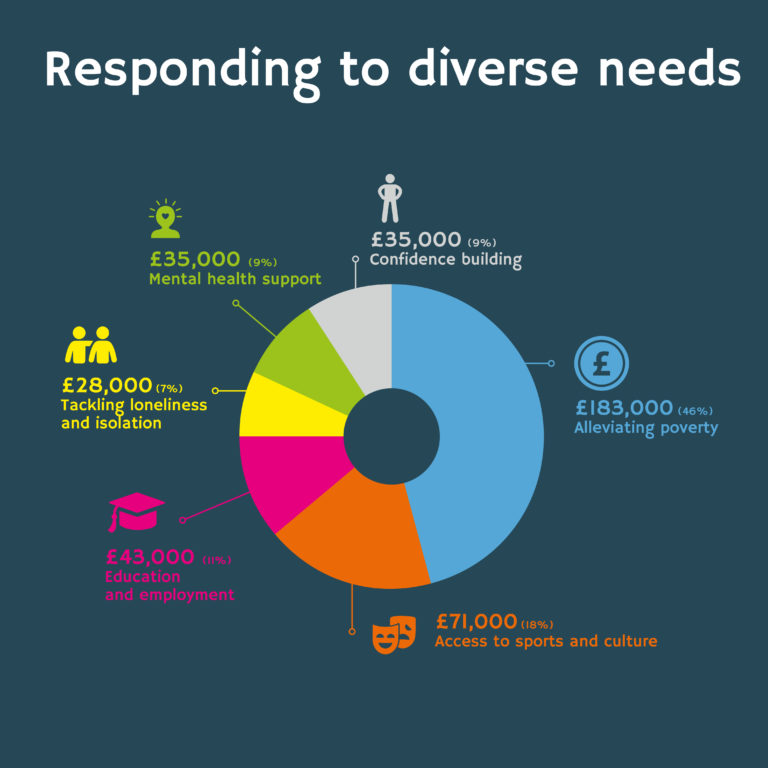
Investing in our community
We've invested £400,000 over the past year to benefit 6,000 people living in Hammersmith

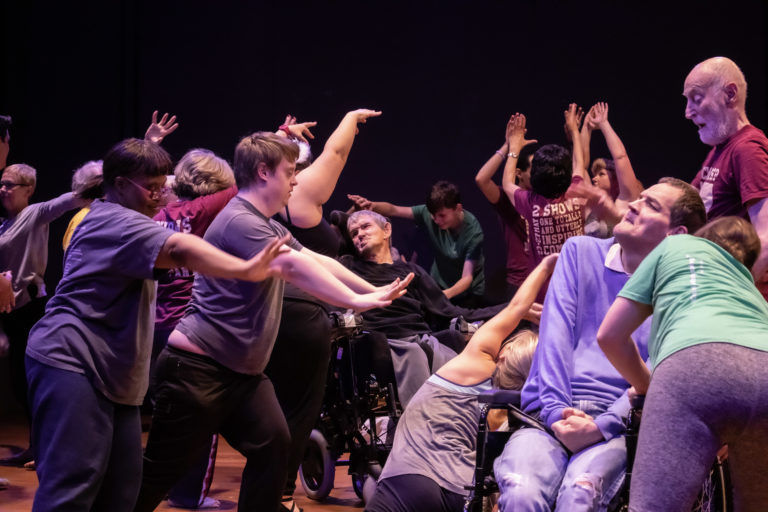
“There is a real beauty in humans connecting through music”
Passionate about the “endless possibilities” of disabled and non-disabled artists dancing together, Turtle Key Arts is bringing our community back together again.
With life slowly getting back to some sort of normality, many community organisations are relishing the thought of more in-person time with their beneficiaries at last. As Kelly Bray, Turtle Key Arts producer, puts it: “I am so thrilled to get back out there. Most of our projects this year are about getting people back together – they are so desperate to perform again.”
For Turtle Key Arts, creative producers based in Hammersmith and Fulham, that means helping disabled and non-disabled people find expression and connect through dance and music. Dancing can increase physical fitness but can also have other benefits for people with disabilities, like improving motor skills, building friendships and boosting self-esteem. But with 11 million people with a disability in the UK, many find themselves locked out of the world of performing arts. “People with disabilities are often put ‘in a box’ and given little chance of mixing with people creatively,” says Kelly.

Making dance accessible to all is at the heart of Turtle Key Arts’ work; it celebrates the power of ‘integrated dancing’ with both disabled and non-disabled artists. Kelly believes that this kind of dancing creates all kinds of creative and social opportunities. “Our approach is to bring down the barriers. We highlight abilities, rather than disabilities. There is a real beauty in humans connecting and exploring in different ways to music. They might be working with a wheelchair, or crutches – it makes you realise how much people can do. It feels like the possibilities are endless,” she says.
This year the team is bringing back two in-person summer projects, the Joy Festival and the Young Amici Summer School, which are funded by Hammersmith United Charities.
Joy Festival
The Joy Festival is a disability arts festival and is on track to run in real life this year. It’s a celebration of disabled and non-disabled artists through a programme of visual art, music, theatre and dance. The festival includes a week-long programme of integrated performances at Hammersmith’s Lyric Theatre in September. There will also be 3 big family fun day in August, with dance, circus and art sessions, along with creative workshops in the community.
Joy was founded in 2018, says, Kelly, “because there is just not enough celebration of disabled artists in the borough, and not enough networks for them to connect with others. We really needed to create a community where we can share stuff.”
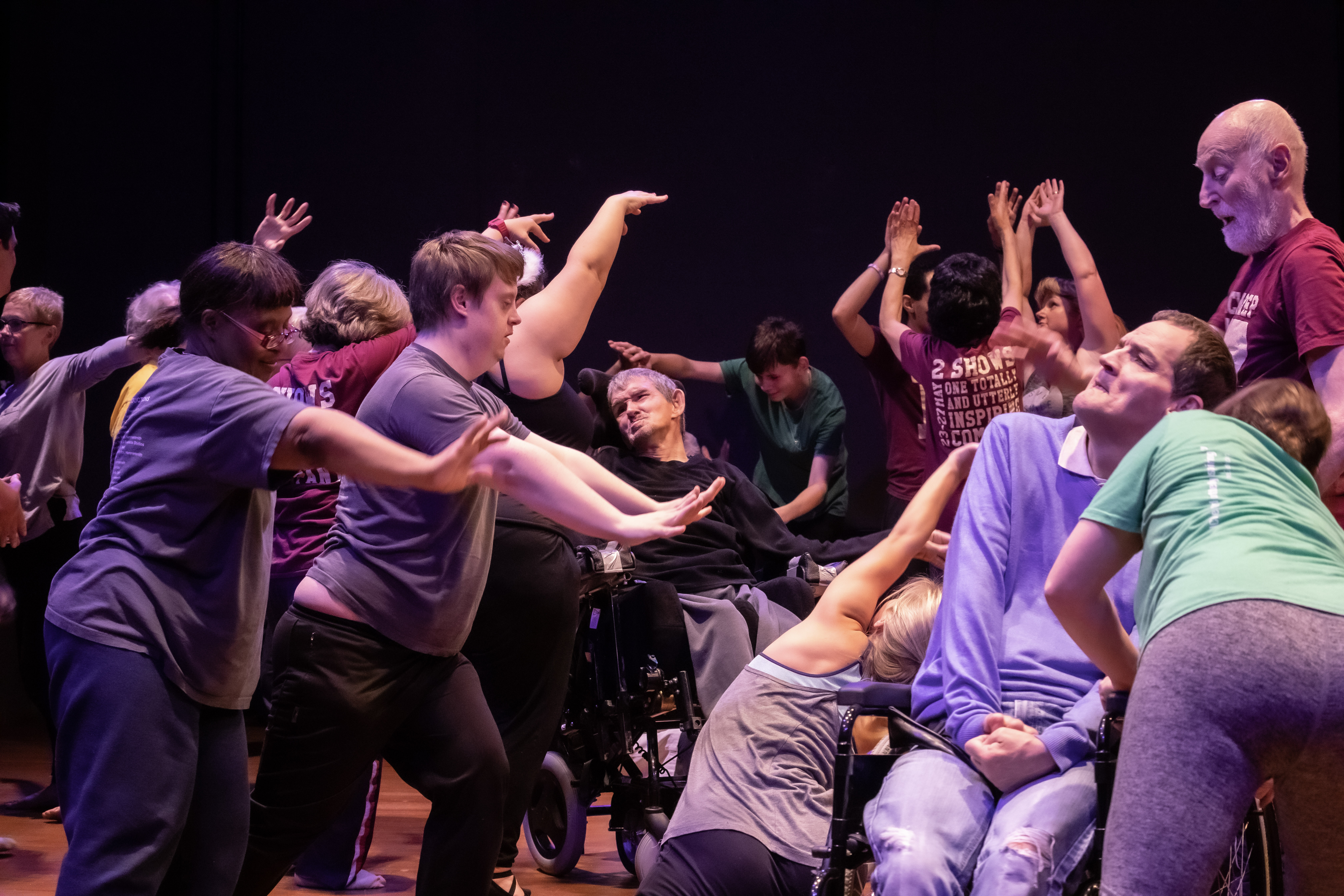
Young Amici summer school
Another project is the Young Amici Summer School by Amici Dance Theatre Company which Turtle Key Arts produce, is for disabled and non-disabled people between age 11-25. This free summer school in August is for any young people interested in dance and developing their skills in a fun and safe space. The programme aims to deepen young people’s experience of participation in dance and spark curiosity and creativity.
Throughout the week, young people can pick and choose which classes they join and then take part in improvised dancing with props. The idea, says Kelly, is for dancers to use their ability as their strength. Then the dancers share their piece at the end of the week. Pastoral care is part of the creative process, so there are chill out spaces and experts who can support where needed.
The positive impact on young disabled people in this creative environment is striking, says Kelly: “I remember a young person who had learning disabilities – they were so nervous and thought everyone was judging them. Now they are doing solos and making friends so easily. It’s lovely to watch – they just enter the room so confidently and start dancing. One of our dancers says that taking part is the most free she’s ever felt.”
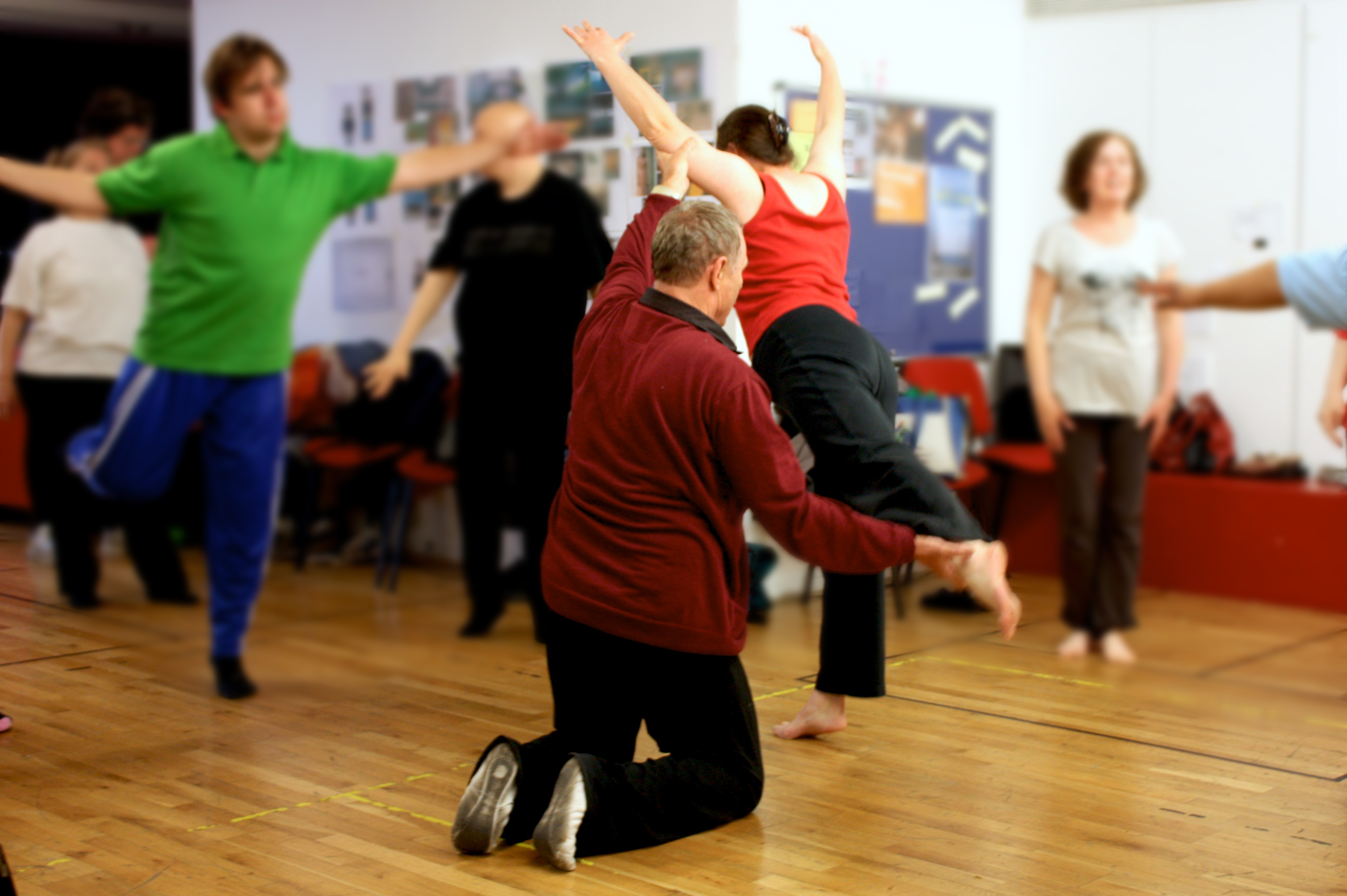
More information
- Find out more about the Joy Festival and Young Amici summer school
- More information about Hammersmith United Charities grants programme
- Find out more about other organisations we’ve funded

7 ways to improve your visual storytelling
Want to make a film about the amazing work your community organisation does? Keep some of these visual storytelling ideas in mind to make your message unforgettable.
By Carolyn Defrin, artist and Hammersmith United Charities collaborator.
- Be specific
Charities often have a similar remit to each other, working within the broad themes of ‘care’, ‘community’ and ’support’. To stand out from other organisations, consider a particular aspect of your work to bring the broader theme to life in an original way.‘The power of bicycles’ is a specific, meaningful story which shows how the project impacts many lives more broadly: watch here
- Be personal
A great way to get specific is by telling personal stories from your staff, the people you serve, or both. This can be through an interview or someone telling a story. These stories open your audience up to emotional connection, allowing you to humanise your work.
‘An introduction to StoryCorps’ is a conversation between the founder and his young nephew that shows how you can be personal, emotional and humorous while clearly telling the story of your organisation: watch here
- Experiment with content
How we tell stories visually doesn’t always have to be literal, especially when subject matter might be difficult (in the context of charitable work). Seeing a bird’s eye view of cakes being made or a close-up of a child’s green-painted hand – these images and perspectives invite us in emotionally, personally and memorably and enable us to engage with complex content in a new way.
West London Death Cafe’s short film focuses on making cakes. This choice offers an unexpected and welcoming view of a charity focused on bringing people together to discuss a delicate subject: watch here
- Consider all the senses
When we talk about film, we usually think of just sight and sound. But what about texture – how can you suggest how something feels to the touch? How can you suggest taste and smell, too?
‘At home with: Carolyn Defrin’ is a short film demonstrating how close-ups of food can create a multi-sensory experience. Through opportunities to look at the texture of cabbage, hear the boiling of water and see the bright purple, orange and green vegetables together, we can be immersed in a new view of the story of migration being told: watch here
- Play with different points of view
Different camera angles and points of view will help you convey different emotions. For example, what might bird’s eye view or worm’s eye view help communicate? How might you share a perspective from a chair, or a building, or a specific person?
‘Suspending Home’ is a film made by artist Khaled Barakeh that reflects on a project he made called On the Ropes where he suspended his studio as a way to reflect the groundlessness he felt as a migrant artist. He films from many different points of view to help capture this feeling: watch here
- Still photos can be just as effective
You don’t always need live action footage – still photographs can offer a powerful tool in your film. When combined dynamically with thoughtful voice over, text, and/or music they can have just as much impact.
‘Universality’ is a simple and effective use of pictures and voiceover: watch here
- Consider who is telling the story
Consider who is telling the story of what you do. Can you engage those you serve to tell their own stories or offer their own points of view? Is there value in staff sharing their personal perspective on the work? Always stay mindful to the ways you ask those you serve to share their stories.
‘Real Heroes’ is a great example by Rainbow Collective of children sharing their view of heroes during the pandemic. Through their voices, drawings, and music, we get to know their perspectives through a fully
dimensional and creative lens: watch here
Find out more
Artist Carolyn Defrin worked with Hammersmith United Charities on our film project community@hammersmith, which provided a free workshop for local community organisations to learn about visual storytelling and filmmaking. Read about community@hammersmith.
- Discover more of Carolyn Defrin’s work
- Read more about other ways we support our community
- More information about our grants programme
- Read about organisations we’ve funded
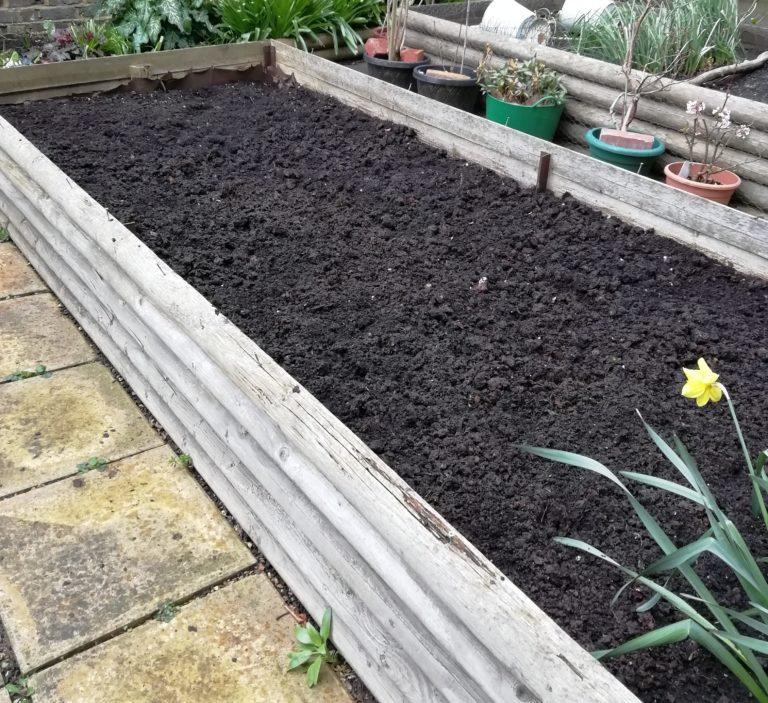
National Compost Week
15 - 21 March 2021
Composting is the recycling of plant and food waste material into decayed organic matter. This can then be used in various forms in the garden and when applied, enriches the soil and plant health.
This week a layer of garden compost has been added to the allotment plots at John Betts House garden, in preparation for the growing season ahead. This ties in with National Compost Week, a good opportunity to remind ourselves of the many benefits of using compost in our gardens. Please see some key tips below for reasons to compost in your garden:
- The organic matter in compost is a source of food for the organisms in the soil.
- The organic matter in compost opens up the soil, creating bigger gaps for air and water to move around – this is good for soil structure.
- As the organic matter decomposes, it releases nutrients into the soil.
- Adding a layer of mulch to beds, borders and allotments suppresses annual weeds and weakens perennial weeds.
- Composting is an environmentally friendly process using organic materials.
Composting is recommended for most sized gardens, and can be done in a number of ways to accommodate the size of the garden. We highly recommend this gardening activity and have put together a list of websites that provide useful further information on how to compost:
Find out more about our sheltered housing
With award-winning communal gardens, our friendly and affordable sheltered housing helps residents live independently for as long as possible.
We have flats available now for older people from Hammersmith. Talk to us on 020 8600 0650 / 07733 842 574, email info@hamunitedcharities.com or read more here.
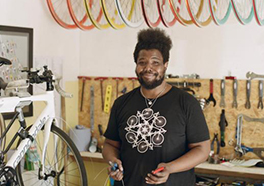
Fundraising for our community
How you can support campaigns for local people in need, from our fundraising partner United in Hammersmith & Fulham
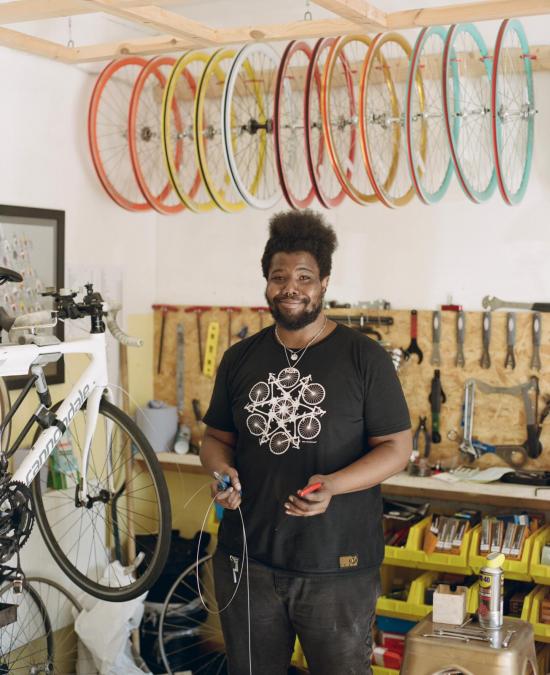
Tech4Kids in H&F: Finding laptops for 1,500 children
1,500 pupils in our borough have been identified as being in urgent need of computers or internet connectivity at home. United in Hammersmith & Fulham has partnered with Hammersmith & Fulham Council and local group Ready Tech Go to launch an ambitious appeal to get every one of them connected.
Whilst the coronavirus crisis has highlighted that many children and young people have been unable to participate in online schooling during periods of lockdown or isolation, they are also less likely to be able to catch up with missed lessons or to complete homework in ordinary times. It also means they are highly unlikely to develop the vital digital skills needed to prosper in later work and life.
We’re aiming to get 1,500 laptops and 500 data SIM card for internet access so all local children have a chance to thrive digitally. You or your organisation can give any amount today:
- £1500 can ensure 10 of a school’s most disadvantaged pupils do not lose out on digital skills
- £150 can get a quality laptop to a young person in need of catching up with classes and for homework
- £20 can get an essential data sim card to a child struggling with internet access
Have any unused tech your organisation would like to donate?
We are also working with Ready Tech Go who collect, wipe, and share old laptops and tablet PCs to get them to Tech4Kids pupils that have been identified as in urgent need. If you are an individual or local company with spare quality digital devices, please contact team@unitedhf.org
Find out more about the laptop campaign
Pedal Back Cycling: Looking for referrals – free refurbished bikes available
The pandemic has made bikes more vital than ever. Many people can’t afford to reach places of employment or safely get to interviews. Or they might be finding it hard to motivate themselves to access outside spaces to boost their mental health and wellbeing. That is why we have partnered with Pedal Back Cycling, to offer professionally refurbished bikes to those in need.
If you are from a local community group working with those on low incomes, you can refer adults including but not limited to:
- Key workers
- Care staff
- Refugees
- Delivery cyclists
- Those out of employment
We only accept referrals from non-profit groups working in the borough, and not from individuals.
Find out more about Pedal Back Cycling
Winter Covid Appeal: Raising money to support the community
Many people still need support during the Covid-19 pandemic, including those going through mental health crises, suffering from loneliness and isolation, and at-risk children in need of educational support.
United in Hammersmith in Fulham has launched the H&F Winter Covid Appeal, in partnership with Hammersmith & Fulham Council, to continue to enable local individuals, businesses and foundations across the borough to support those most in need. 100% of funds raised will be donated to groups working with local people who face risk because of coronavirus this winter.
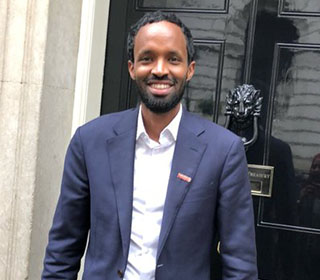
“Covid-19 has exposed decades-ignored social inequalities”
Social activist Adam Matan OBE is one of our trustees, and he's passionate about engaging truthfully with the community to change things for the better.

Adam founded the Anti-Tribalism Movement in 2010, a non profit organisation tackling tribalism and inequalities within communities, and in 2020 went on to lead the Independent Policing and Crime Commission for Hammersmith and Fulham to examine the root causes of crime and anti-social behaviour in the borough.
What’s involved in your role as a trustee?
I have been a trustee for Hammersmith United Charities for four years. I really enjoy contributing to setting the direction and strategic priorities for the charity, and being involved in day-to-day activity like awarding grants. It’s rewarding to see our resources used for recreational and educational purposes for the community. I like visiting beneficiaries, to really see what impact small grants make to people’s lives.
As a trustee, I help to make sure the board is reflective of the communities we support in the north of the borough. I have a good understanding of what works well in the community sector, and which programmes and people we should be engaging with. I enjoy advocating for issues I’m passionate about, like disabilities, BAME organisations, and arts and cultural activities.
What’s shaped your work and values?
I came to the UK from Somalia when I was 13, following the Somali Civil War. In Somalia, children are often treated a little like adults, so I was very responsible when I came here – a bit more mature than a usual 13 old boy! We came here to improve our livelihood, and to help others, both at home and in the communities here. Those values were instilled in me at a young age by my family, so as soon as I finished university, I wanted to help other young people to achieve their potential. I went on to start the Anti-Tribalism Movement in 2010 – the aim was to fight tribe-based discrimination and promote peace and tolerance. Since then it has grown into an international force with 140,000+ members, which feels like one of my greatest achievements.
What changes do you want to see in your community?
Covid-19 has exposed deep-rooted, decades-ignored social inequalities in our community. It’s unfortunate that it has taken such a world event to bring it to the surface. There is no way we will be able to ignore it now – so many people will be even poorer by the end of lockdown.
There is a family I’m working with on Lime Grove in Shepherd’s Bush. There are seven children, and mother and father living together in a two-bed flat. Imagine that under lockdown rules? Some of the children have underlying health issues. Both of the parents are key workers, so they can’t stay away from work – the family will literally starve to death if they do. But they always know they might be bringing the virus back, with no space for anyone to self-isolate.
Many fear that it’s just lip service when decision/policy-makers say that there will be change due to the lessons learned from Covid-19 There is a level of discontent and unsettledness amongst many BAME communities and their leaders. I don’t think it will be long until we see social unrest if there is no real response to some of these issues.
It’s something we’re beginning to work on at Hammersmith United Charities, with a programme called Let’s Talk About Race. We want to find out how we can engage with communities in a more meaningful way, to truly understand what our grantees and their service users think we should do to counter deep-rooted social inequalities. It has got to be led by the people.
What’s special about Hammersmith & Fulham?
I’m biased, but Hammersmith & Fulham is the greatest borough! It’s a city within a city. We have everything you can admire: three football clubs; the biggest shopping mall in Europe; beautiful, historical parks; the river; a flourishing business hub in Hammersmith; the ‘Silicon Valley’ of London at White City; and Uxbridge Road, one of the most diverse streets in London, running through the heart of the borough.
And through the pandemic we have seen how generous and supportive these communities have been to each other: the number of spaces opened for homeless people, food distribution, individuals been supporting each other, and businesses giving free food and other supports.
When there is a disaster, when there are members of the community who need support, the residents of this borough really pull together.
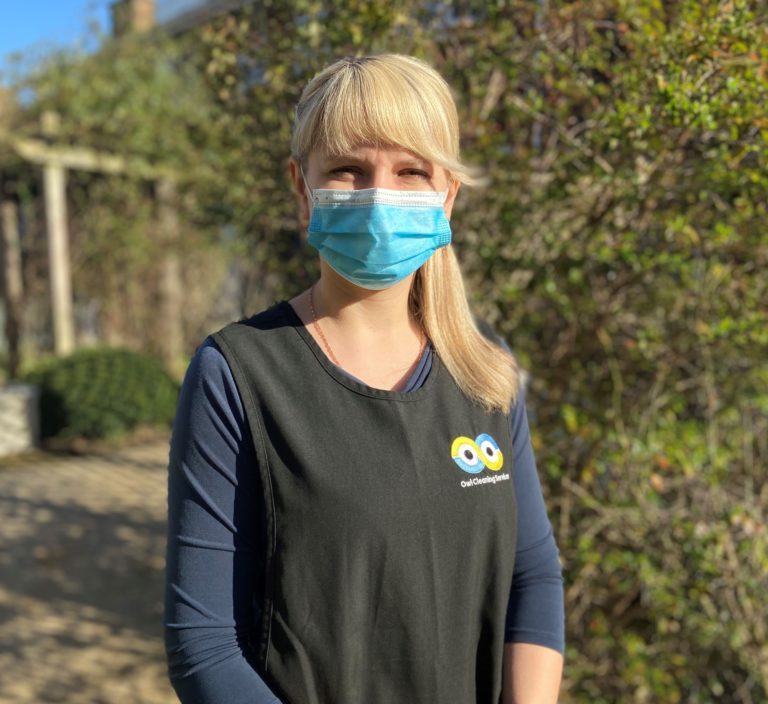
“I clean everything I see”
Our cleaner Oksana has worked tirelessly throughout the pandemic to keep the staff and residents of Hammersmith United Charities safe.
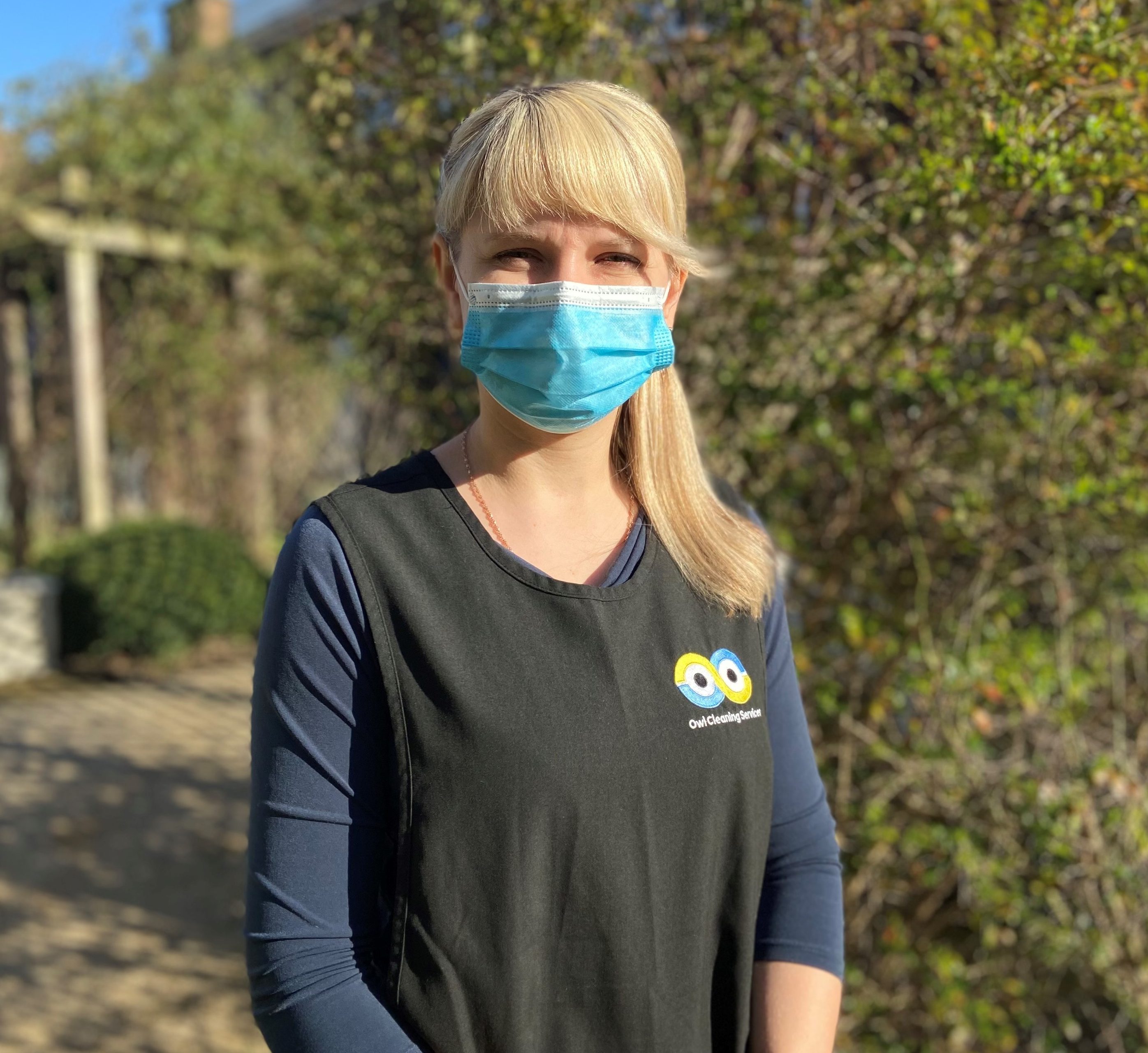
When it all started, it was a bit scary being a cleaner. Everyone was staying at home, but I was going in to work. Putting on the gloves and the mask, wearing them all day, every day. It was hard at first, but now it’s just normal. I want to go in to work every day – it’s a nice place to be. I’m very happy to have a job, and to see different people.
I clean everything I see. All the time, it’s door handles, doors, tables. Everything. We try to be very safe all the time.
Residents like to speak with me whenever they can, because other people aren’t allowed to visit, and they can’t really go anywhere. I’m one of the people they see most regularly, along with the scheme managers who check in on them every day.
At times like this, you can feel exhausted. So you have to try to think about something good. I try to be nice to people – it gives you more energy. I enjoy spending time with the residents. They are very, very good people, and they always say thank you to me for the job I do.
I haven’t been able to go home to Ukraine for two years. I really miss my family. I speak to them three times a week, but it’s not the same. People there are a little bit scared too. I really want to go this year, but I don’t know. How things have changed.
When I had my vaccination, I was a bit scared. At first I thought, I don’t want it. Then I was thinking, I should get it, because I’m working with old people, and travelling in to work on the tube. And it was fine – very quick and easy. Plus it’s better for all of us, because it will help us all get back towards normal life.
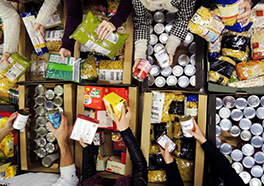
“It’s an opportunity to rewrite the future”
We find out how Hammersmith & Fulham Council’s Covid-19 emergency response has relied on partnership working and the creativity of the third sector.
“I can remember when we saw the first deaths in a residential home. That was a particularly low moment. It was traumatic for everyone – a terrible tragedy,” says Linda Jackson, director of Covid-19 Response and Recovery for Hammersmith & Fulham Council. “Now everyone has been touched by this crisis, one way or another. It’s been really difficult, seeing the devastating impact on families and businesses.”
The crisis over the past year has brought together everyone living and working in the community like never before, Linda says. “There has been an extraordinary partnership response between the council, fire, police, NHS, businesses, community organisations, residents – with camaraderie at every level.”
Early days of the pandemic
After recording the very first case on 22 January 2020, the council could see what was coming on the horizon and knew it needed to act quickly, Linda says. By the beginning of March, a structure was put in place to get some control and respond quickly. The team has always tried to be intelligence-led in its response, she says, and closely monitored how the pandemic was progressing in Hammersmith, London, the UK and the world.
It became clear in March 2020 that hospitals were discharging residents into care homes without first testing them for Covid-19. With an absence of national guidance or support, the council team forged ahead, linking up closely with health partners to close the homes to new admissions and test everyone to bring the virus under control. And in November, Hammersmith & Fulham became the first borough in London to launch lateral flow testing initially at residential care homes and then at three fixed centres making tests much more widely available. The council has also been facilitating the NHS-run vaccination programme, helping to set up centres and supporting GPs with systems and process.
For organisations providing sheltered housing with high numbers of older people, the speedy roll-out of these programmes has been game-changing. “With both testing and vaccinations, I always felt that the council was doing its best to bring any single benefit to the community as quickly as it could,” says Victoria Hill, chief executive of Hammersmith United Charities, which provides almshouse accommodation for older people on lower incomes.
“When we started being able to test our staff on site in December, it was a really big deal. It became a huge part of our infection control process,” says Victoria. “Before that, we were constantly worried that we could be infectious without knowing it and bring the virus on site.”
“All of our over-80s were vaccinated before Christmas, followed by staff in January. Now nearly everyone is vaccinated. It is such an incredible relief. Every single health and social care worker in the world has been weighing this up, every day, for a year: am I going to bring coronavirus into work? Am I going to take it back home with me?”
Working with the third sector
The council and the NHS are pushing out vaccines and testing to every corner of the borough with the help of the voluntary sector, Linda acknowledges. These organisations have a unique ability to wrap quickly around the thousands of people in the borough whose lives have been turned upside down by coronavirus.
“There is a quite breath-taking amount of skills and abilities in the local third sector,” says Linda. “These organisations move silently within communities and activate community capacity a lot quicker and better than a council officer could.”
Over the past year, the council and grassroots organisations have worked together to provide support where it’s been needed most. Early on the Volunteer Community Aid Network (CAN), along with street-level mutual aid groups, galvanised hundreds of people to volunteer their time to help vulnerable people. There has also been a 150% growth in donations to the food bank in the borough to support the surge in families who now can’t afford to put food on the table. “Some of the people using food banks were looking forward to a holiday a few years ago. Now they have no income and no money,” says Linda.
In partnership with fundraising organisation United in Hammersmith & Fulham, the council set up the Covid Appeal in March 2020, and local businesses and residents have now donated over £144,000 to fund organisations supporting people affected by the pandemic.
Community organisations are powerful because they have an intimate, inside-out understanding of the borough, says Victoria. “Hammersmith United Charities also provides grants to local organisations, and when I look at the organisations we’ve funded throughout this crisis, I see a strong movement of charities run by people who live here. They know the people most in need personally and over the crisis have worked together at speed to provide whatever is needed – whether it’s food, laptops, phone data, toilet paper, or a cheering phone call.”
“Throughout the pandemic, community organisations have stepped up very quickly, without thought to their previous agenda or outside pressures like funders’ targets. They just changed what they usually did to meet the immediate need, because their first priority was getting their community through this crisis. I hope funders now have a better understanding that it’s crucial to trust community organisations and give them the flexibility to respond to needs as they see them changing.”
Green shoots
So what does recovery in Hammersmith and Fulham look like? “I can see the green shoots of spring,” says Linda. “We’ve launched our ‘Shop Local, Shop Safe’ campaign to help businesses open safely as lockdown is eased. And we’ve got to build on the connections we’ve made with the third sector. After 12 months of working really hard together, how do we keep the capacity we’ve gained? We want to develop the recovery plan in co-production with the third sector, so that it’s an integral part of what the council offers, rather than working around the outside.”
The pandemic has shifted health and social care priorities. “Before, the focus was on specific diseases, like diabetes and cancer. Now? It’s on basic needs like food, employment, housing,” says Linda. “Some say it’s a backwards step. I say it’s an opportunity to rewrite the future. But we absolutely need the community sector to write it with us.”
Find out more
- Find out more about coronavirus, latest guidelines, testing and vaccinations in Hammersmith and Fulham on the council’s website
- Read more about Hammersmith United Charities’s grants programme and other community projects
- Find out about our sheltered housing in Hammersmith with beautiful award-winning gardens.
- Linda and her team are reaching out to the community to understand why people may be hesitant to have the COVID-19 vaccine and put support measures in place to improve vaccine take up in the borough. If you would like to contribute your views please join their online meetings held on Tuesdays at 6pm – 7pm which can be accessed via Microsoft Teams using this link.

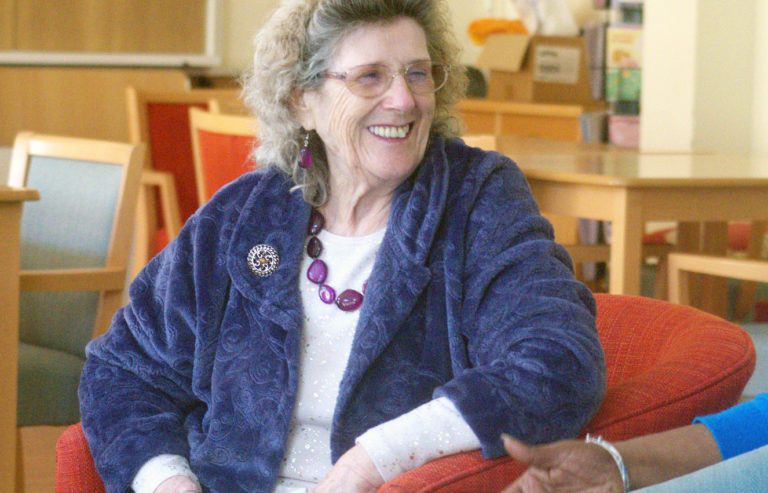
A home to be proud of
One of our Sycamore House residents, Kitty, reflects on what truly makes a home, and how she’s finding her way through lockdown.
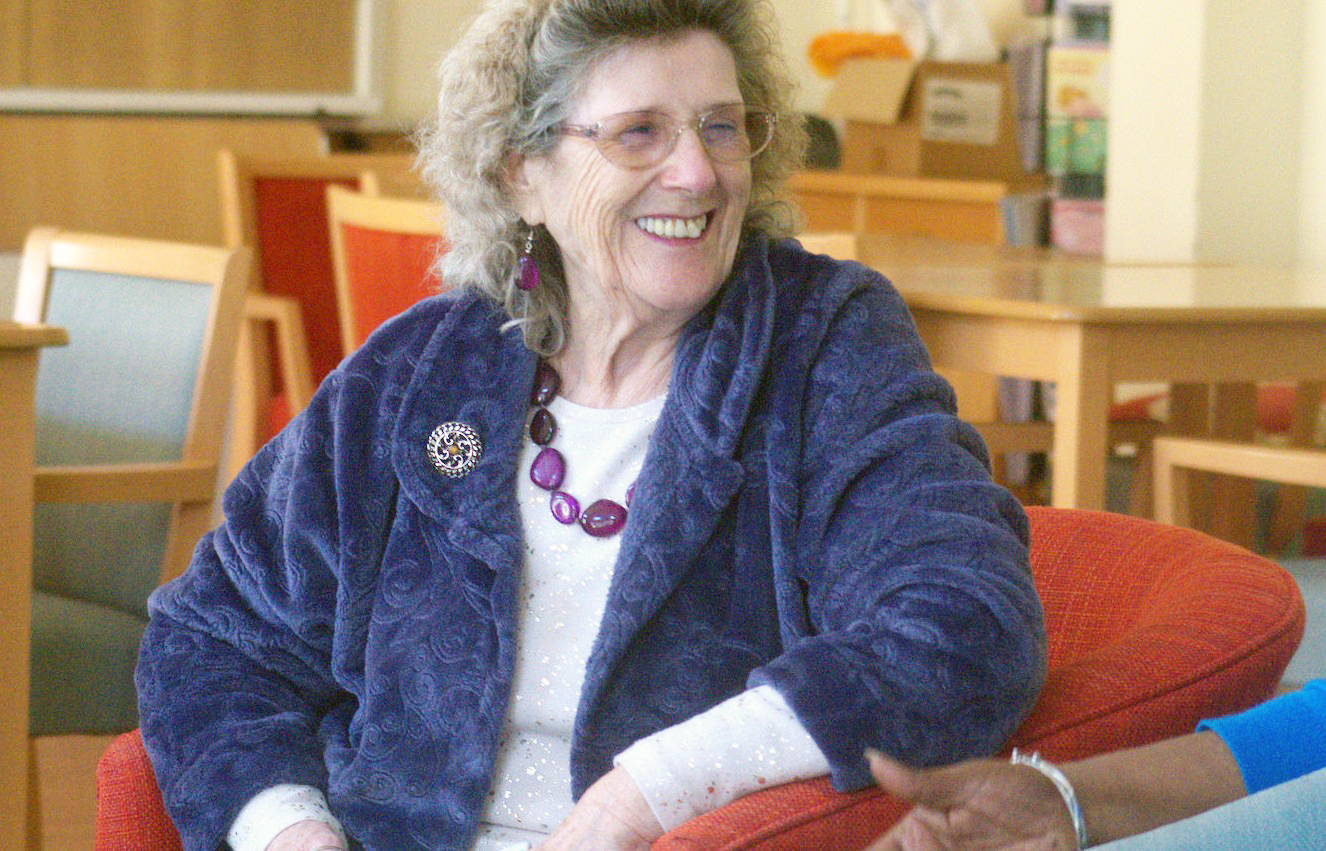
“I was born in Limerick, Ireland, but my husband and I came to London in the 1950s to try and get a start in this country.
We didn’t have a great way about things to begin with – we lived in a few different places, but it was hard to save for somewhere decent. We started off the two of us in a little bedsit in Chiswick; when we had two children, one of our first family homes was the matter of one bedroom and a kitchen in a shared house. Another place had a bath in the kitchen, which doubled as something to sit on at meals. They were tough times, but you have to make the best of everything, don’t you?
I often think back to 1972, when we were offered a council property: a flat in Trellick Tower on Golborne Road. It was brand new – with 14 cupboards in the kitchen! But it was the height that got me. We were on the 21st floor. People told me that there was a picture postcard view out of the windows, but I just could not look down. I should have gone with my instinct. We were four years in that flat, and I hated every minute. It became known as the ‘Tower of Terror’. A lot of bad things happened there. I just kept my head down with children, but we felt really cooped up.
One winter someone flooded the lifts with thousands of gallons of water from the fire hydrant. We were all without power, heat or electricity between Christmas and new year. Everyone was going up and down stairs in the dark, falling, getting ill. And the postman couldn’t come up to deliver.
Once there was a fire on the 15th floor, right below us. We were told to stay in our flats, but of course there was no ladder that would have reached us in the top levels. My husband was working that evening, and I had the four children by then, with my son a couple of months old. We were just watching the blaze. I went to the neighbour so we could be together; I was so frightened. No one died in the end, but the 15th floor was completely gutted.
After that I went to social services to see if we could move somewhere safer. We got offered a beautiful house on St Elmo Road. There was a big garden, a double garage – and four bedrooms! I couldn’t believe it. It was the happiest time of my life; it was a lucky house.
37 years, I lived there. But my husband died in 2010, and my children were making their own way in life. I stayed two more years in the house, but I didn’t feel safe rattling around on my own. It broke my heart to leave it – I had put everything into my home. But I knew that people with a young family would benefit from it. I think they’ve kept some of it the same – my little lamp is still outside the front door.
Moving to Sycamore House
At that time I was thinking along the lines of sheltered housing as I was coming to that age where I knew I’d benefit from a little care. I looked around such a lot of places, but nothing would do. I was giving up so much, so I had to feel really sure.
In 2012 I came here to Sycamore House. That feeling when you come in – you felt it was going to be a place you could feel proud to live in. I liked the care that came along with your flat, that someone came to check on you in the morning, and a cleaner tended to the place. Everyone was very kindly and the gardens were lovely. My daughter described the communal lounge as something you’d see on a cruise ship!
I do like the social side of things you get here, in normal times – the trips out together. We used to have live music and celebrate birthdays. It can be overwhelming to begin with when you move into sheltered housing, with so many people to get to know. I try and have nice conversations and learn what makes people tick – eventually I find my way.
Life in the pandemic
Lockdown in the summer wasn’t too bad – at least we could go into the garden and see people when the weather was fine. Bless them, they even purchased an outdoor heater for us. It was a walk in the park compared to the lockdown this winter. But staff have done well by us – they are doing their very best. The scheme managers are always there, and always have a happy word to say to us.
It has been a trial, not seeing family. The only time was when I had my 80th birthday and my daughter had her 60th. They came with some balloons and sandwiches and we celebrated on the pavement.
There has been hardship for everybody. A down-side of living so closely with other people is that you have to get your head around losing them when they pass on. I lost the man who lived next door to me, and I lost another friend very recently. We would ring each other, and we were there for each other. It put me down a bit. I really take it to heart when a person goes, I’m afraid. I can’t see how I will get used to it.
But I go downstairs, look around me, and it does me good. Prayer does help me immensely. If you have a religion, it doesn’t matter which, it’s something to turn to. I try to be there for people, and stop and listen – that’s the important thing, listening.
What I’m looking forward to most of all is meeting one or two friends for a pub lunch. I’ve been on my own cooking, cooking, cooking – all the time. What I wouldn’t give to have a meal and then just push the plate away. And go to the shop, go to Marks, have a look around.
But I’ve had both of my vaccinations now, so things are starting to change. I think spring is bringing a new hope for us.” (more…)
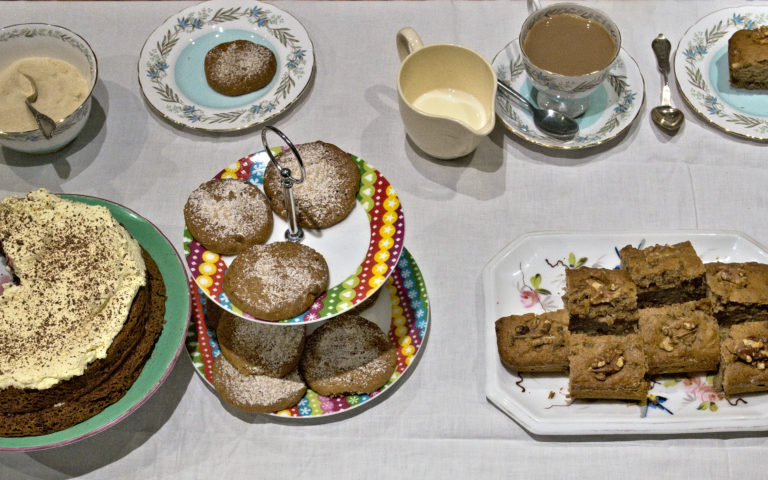
Celebrating the value of community organisations through film
Helping community organisations bring their extraordinary work to life through visual storytelling and film-making.
To help community organisations bring their extraordinary work to life, Hammersmith United Charities has launched a project called community@hammersmith. Story-telling and film-making experts have been sharing their knowledge with local charities, giving them the skills to create a dynamic film that demonstrates their impact.
“Community organisations form the backbone of social change in Hammersmith,” said Hammersmith United Charities Chief Executive Victoria Hill. “They work in the most deprived areas, are run by local people and are particularly good at reaching people who are isolated or disadvantaged who may not be able to seek help from the state or a larger charity. But the work they do is sometimes difficult to explain, perhaps because it is complex or involves a subject matter that people find hard to talk about.
“The aim of community@hammersmith is to help some of the local charities we support to tell their story to the people that matter to them – potential beneficiaries, volunteers, funders or staff – by making a short film about their work.”
Eleven local organisations expressed their interest to be considered for this project by answering “What difference does your organisation make in the community?” with a 90-second video, showing the essential services they offer. From this pool of inspiring submissions, five were selected to join the film-making workshop: Anti-Tribalism Movement, Crosslight Advice, Hammersmith & Fulham Law Centre, Shepherd’s Bush Families Project, West London Death Café.
Artist Carolyn Defrin and Dan Massie from creative studio els.tv guided these organisations through the process of creating a professional film. They covered everything from the basics of visual storytelling to bringing storyboards to life with simple filming equipment.
“How we tell stories visually doesn’t always have to be literal,” said Carolyn Defrin. “I love close-ups and colour and alternative angles. Seeing a bird’s eye view of cakes being made or a close-up of a child’s green-painted hand – these images and perspectives invite us in emotionally, personally and memorably.”
The five groups faced this creative challenge with enthusiasm and resourcefulness, and Hammersmith United Charities is delighted to present the first short film born from this project from West London Death Café, where people gather together for cake and tea and to discuss death to help make the most of life. “Making the film during total lockdown was challenging”, said Emily Engel from West London Death Café, “but interviewing people on Zoom and hearing their various reasons for appreciating the Death Cafes was fantastic.”
“We hope that everyone in Hammersmith will enjoy these films and feel the same pride we do in the good work being done in their community,” said Victoria.
_____
Find out more
- Read more about other community projects we’ve delivered
- More information about our grants programme
- Read about organisations we’ve funded
- Get in touch with West London Death Café: WLDeathcafe@gmail.com
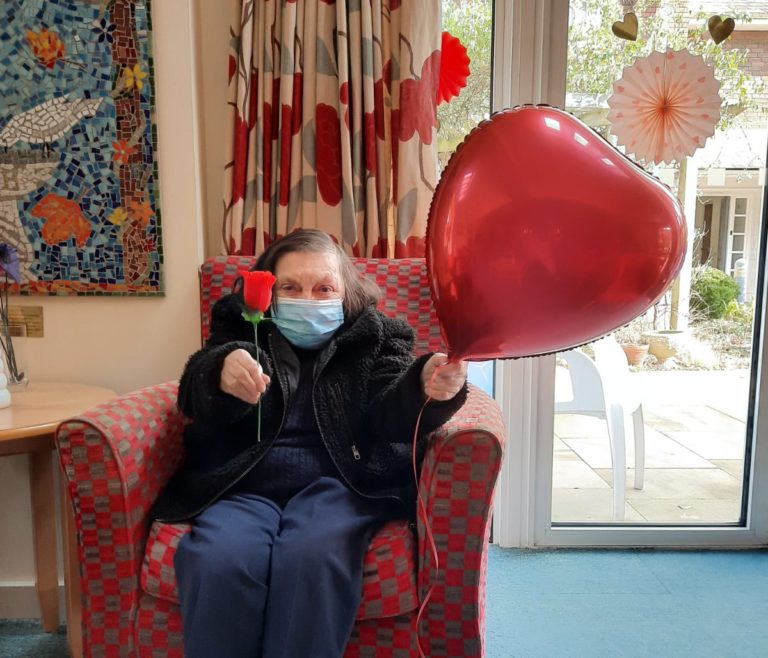
Valentine
A poem by resident Kitty
My little Valentine, my funny Valentine
You make me smile
You bring with you glorious spring time
When the air is fresh and new
Buds are peeping through the earth
As if to say, hello
Spring is such a special time
The birds are singing so sweetly
The evenings are getting a little longer
So let’s look to the future
With hope in our hearts
That COVID-19
Will be an episode in our past
Have a smile and a cheer
Each and every one of us
Now that Valentine’s day is here
Like the little Robin
Appearing on my balcony
As if to say, all will be well
Spring is in the air
And hope is in our hearts
Now that Valentine’s day is here
Happy Valentine’s day to you all
Find out more about our sheltered housing
We provide beautiful and affordable sheltered housing in our almshouses, with award-winning communal gardens. Email info@hamunitedcharities.com or go to have a look at our sheltered housing pages.
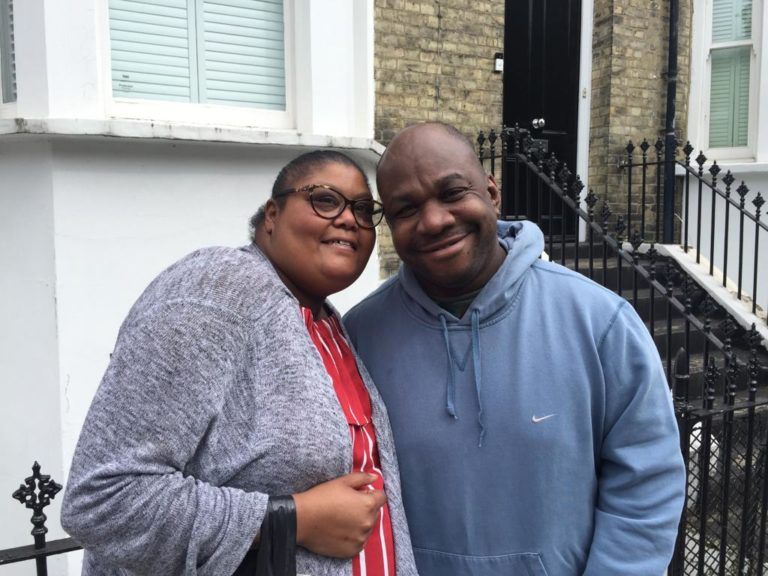
“Some people haven’t seen another person in months”
Connecting people with learning disabilities, dating project Happily has been busier than ever throughout the pandemic.
Connecting people with learning disabilities, dating project Happily has been busier than ever throughout the pandemic. But it’s meeting a need that’s been pressing for years, says founder Helena Reed. Hammersmith United Charities has funded 10 memberships to support the project.
“My daughter has always felt ‘different to everyone else’, says Alison,* mother of Lucy,* who has a learning disability. “She went through months of non-stop crying – she was so down. It was very sad to see.” Lucy desperately wanted to meet new people and build relationships, but she didn’t have the confidence or skills – and didn’t know where to get help.
According to Helena Reed, founder of Happily, a Hammersmith-based dating and friendship project for people with learning disabilities and autism, new members often talk about this sense of helpless isolation. “Members often feel stuck between two worlds. They don’t want to be stuck in a box labelled ‘learning disabilities’. They just want to feel cool and have fun with their friends.”
Helena knows this first-hand. Her younger sister has learning disabilities, and growing up Helena tried to help her arrange dates and acted as a chaperone. “But it was really hard to find the right environment for my sister to meet people,” says Helena. “The mainstream dating apps just didn’t feel safe or appropriate, and there wasn’t anything tailored to people with a learning disability.”
It’s a common problem: over the age of 25, people with learning disabilities stop getting support from their local authority’s special educational needs system. Many finish college and find they are too old to access free services they had relied on for social interaction. The sudden loss of this network can be devastating.
With 1 in 3 young people with a learning disability spending less than 1 hour outside their home on a typical Saturday, research suggests that people with a learning disability are also seven times as likely as their non-disabled peers to be lonely.
“Although there are some amazing charities in each borough supporting adults with learning disabilities,” says Helena, “it can be a small world. If you don’t fancy someone in your local group, you are quite stuck.”
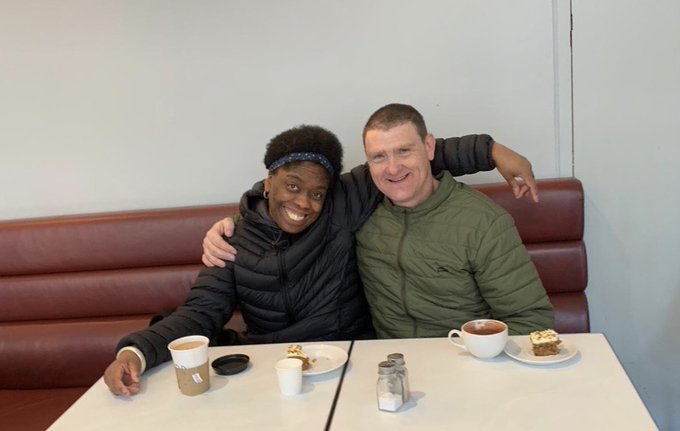
Bringing Happily to life
Seeing a pressing need for something to connect vulnerable young adults – and with her little sister in mind – Helena took the plunge and launched Happily three years ago. The project creates a safe place for making new friends and starting relationships. The focus is on dating, but Happily believes that helping friendships along is just as important. The service operates across nine boroughs in west London, and free annual memberships have been funded for ten people by Hammersmith United Charities.
So how does it work? First of all, the Happily team get to know members, their family and support staff. They find out about the member’s hopes and interests, relationship history and support needs. Practicalities are considered in a social way, like understanding whether members can travel independently, manage money and read menus. Goals are set to revisit later on: “New members often feel nervous; many haven’t had relationships before,” says Helena, “so it’s all about working on confidence.”
After being matched with another like-minded member, they might go to a park or café with a chaperone – although during the pandemic these meetings are usually online. Afterwards, the process is managed by Happily, so no one shares phone numbers until they’ve both decided they want to meet again. “It’s a supported situation where people can have a good time,” says Helena. “It takes the pressure off. Our aim is to remove risk and make sure everyone is safe.”
“If a relationship does develop, we still keep in touch,” says Helena. “Adults with learning disabilities often need support to nurture relationships, and things can change. We help at each stage – with the struggles and the break ups. We’re there for all of it. And if relationships progress to being physical, we make sure they’ve got the right information at the right time,” she says.
For some people, sex education in school can feel like a distant memory. Happily explores this with members in an appropriate way, working with parents and support staff to enable healthy relationships. Collaborating with experts like SASH and Respond, they provide 1:1 support and workshops about sex and relationship, boundaries, consent and sexual health.
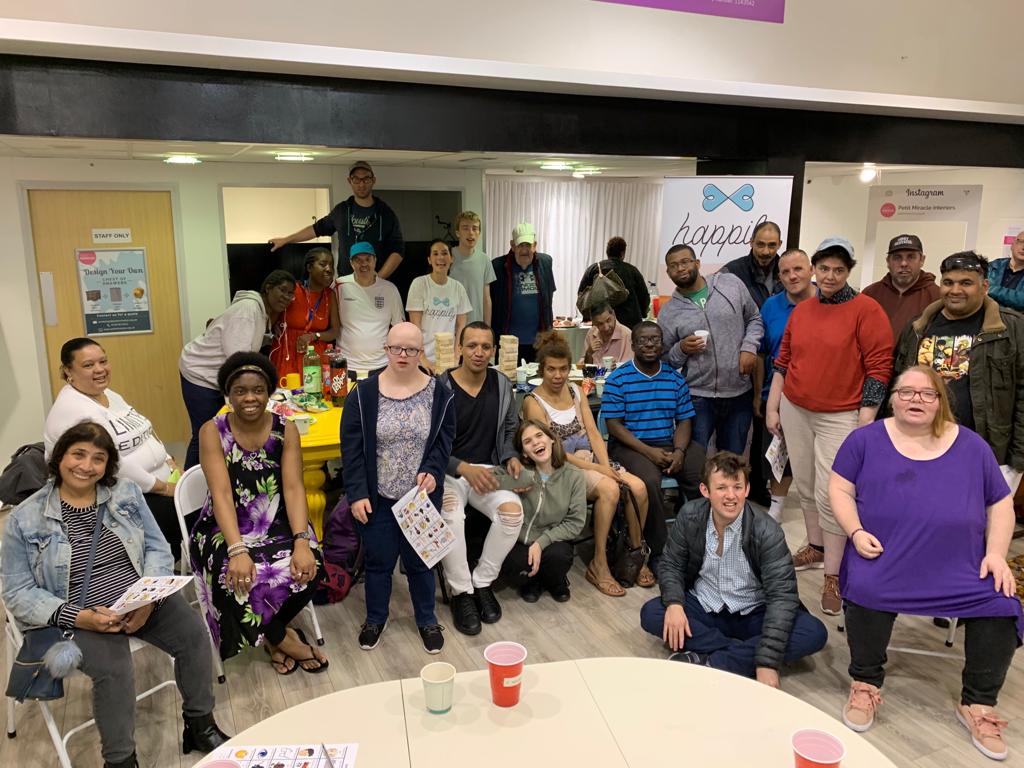
Connecting over lockdown
Covid-19 has changed the way Happily provides its services, but the need for human connection is greater than ever. It can be even more difficult for people with learning disabilities to know how to keep in touch when they can’t meet up in person.
“We’re checking in now more than ever,” says Helena. “In the first lockdown, we got in touch with a couple who had been together for a year. They just didn’t know what to do or how to connect. So we got them up and running on Zoom and helped them have a birthday celebration online, which got the ball rolling for them.”
“It’s difficult to reach people and get new members at the moment,” says Helena, “but we know how much need there is. When we do manage to connect with new people, they are desperate for contact. Some haven’t seen another person for months. So we try to link them up with online group socials as quickly as we can. It’s good for people to see some smiley, happy faces on the screen – so suddenly they aren’t sitting at home alone. There are people out there who can give support.”

Life beyond Happily
Happily has been life changing for Lucy. As Helena says: “Before she joined us, Lucy hadn’t really met new people and was very nervous. Through her new experiences her friendship group has grown so much. Now she’s had two relationships, and she’s been to the seaside with her friends. Her mum says that she’s is a different person, and that she’s so much more confident.”
It’s not always an easy journey. “It’s a rollercoster. You want to be there for members as much as possible, so you can get very emotional. If there is a break-up, I feel involved. But sometimes I cry with happiness. It’s such a nice feeling, when someone becomes more confident. I get very touched by the responses of family members,” says Helena.
“I try to take things day by day. But sometimes it’s overwhelming to think about what we’re trying to achieve with Happily. I just threw myself into the project without really considering the scale of what was involved. I was just thinking about my sister being lonely. But she isn’t now.”
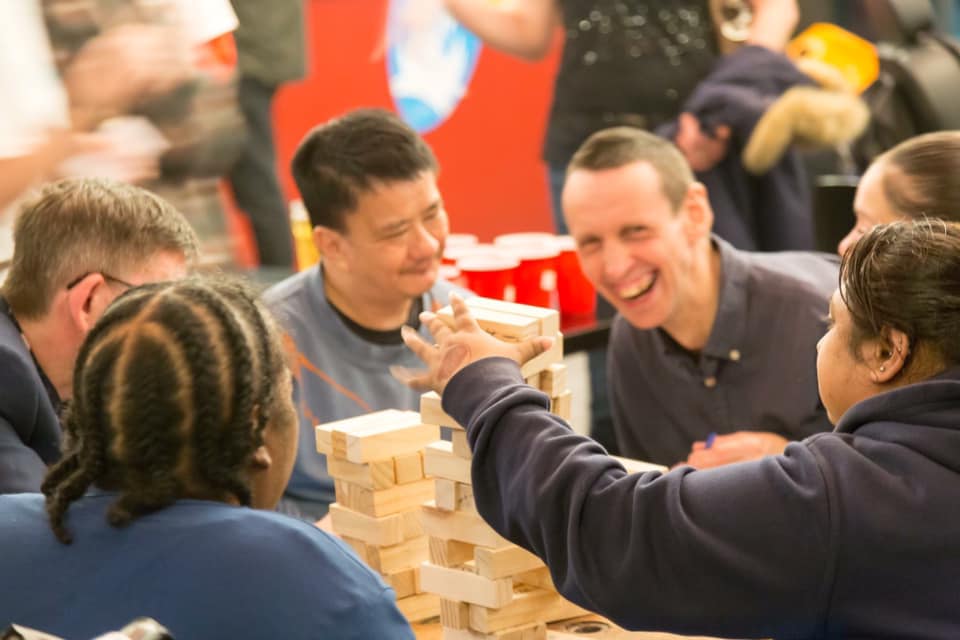
————
Happily – free memberships available now
Happily has free memberships for people over 18 with a learning disability available, and is as active as ever over the pandemic. If you know of anyone the scheme may help, please share.
Happily is particularly keen to reach women with learning disabilities or autism, to keep the gender ratios equal. The team are also searching for LGBT+ members.
Happily supports people living in Brent, Ealing, Hammersmith & Fulham, Kensington & Chelsea, Richmond upon Thames, Wandsworth, Hounslow, Westminster and Harrow.
Contact hello@happilydating.co.uk for more information or sign up here
Find out more
- More information about our grants programme
- Find out more about other organisations we’ve funded
*Names have been changed.
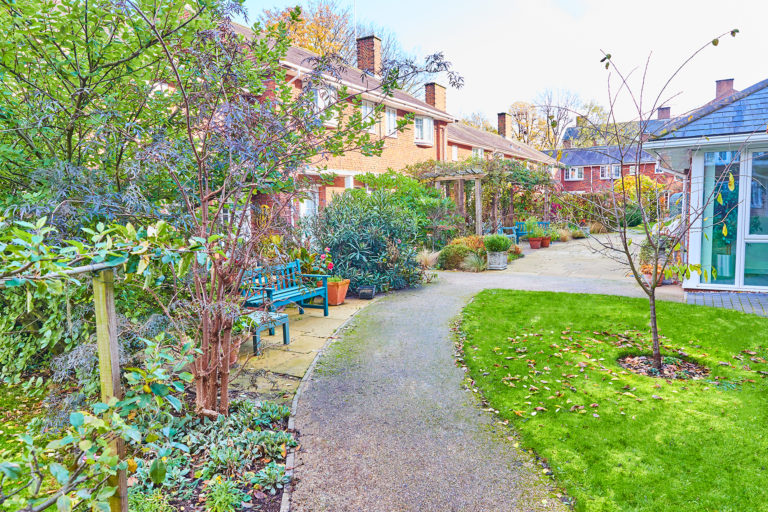
The almshouse movement: As vital as it’s ever been
With the average house price in Hammersmith at more than 25 times a nurse's salary, almshouses like ours are as vital now as when the movement began hundreds of years ago.
With the average house price in Hammersmith at more than 25 times the salary of a nurse, it is no surprise that many workers are reaching retirement without the safety net of their own property. That’s why almshouses like ours, providing older people an affordable home in the community where they belong, are as vital now as when the movement began hundreds of years ago.
By Victoria Hill, Chief Executive – Hammersmith United Charities
The coronavirus has seen an outpouring of appreciation for key workers who leave the safety of their home to work keeping their community safe, fed and well. In the frightening early days of the first lockdown, we stood in the street and clapped for healthcare workers, carers, shop assistants, cleaners and more – all the people who put themselves at risk for the sake of others.
The contribution of key workers is rarely highly valued in monetary terms and these are often the very people who struggle to find an affordable home near their families and vital services as they grow older and become more in need of care themselves.
The average house price in Hammersmith is more than 25 times the salary of a nurse, and so it is no surprise that increasing numbers of workers are reaching retirement without their own property to fall back on. And with the average rental cost of a one-bedroom flat at two and a half times the state pension, it is easy to see how so many older people are also priced out of the private rental market.
With one in four older people in our area now living in poverty, the mission of almshouses like ours is as relevant as it was 400 years ago when Hammersmith United Charities was founded.
The almshouse movement has been around for hundreds of years but the Almshouse Association and the Charity Commission have only recently created a formal definition of what it means to be an almshouse. It describes exactly what we do here at Hammersmith United Charities.
Our charity was founded in 1618 with a gift of £100 to provide housing for the relief of the ‘elderly poor’ of Hammersmith. This gift has been added to and grown by generations of trustees and we now have an endowment and 92 flats on two sites just off the Goldhawk Road. These properties are highly protected and cannot be sold or used for any other purpose. Our residents must be over 60, have lived in Hammersmith for at least five years, be of limited means and in need of sheltered accommodation.
In human terms, our status as an almshouse means that the Charity can provide housing to the people who have often contributed most to our community but feel valued least. We believe that no one should be denied the opportunity to live in a decent home simply because they were never given the opportunity to climb the property ladder. The cost of our flats is regulated by statute to ensure that anyone can live here without causing hardship.
For us, almshouse living is about much more than just affordable housing. We know from research by the What Works Centre for Wellbeing that where we live and our relationships also have a significant impact on our wellbeing. For Hammersmith United Charities, what defines us is our ability to provide a home where people feel safe, in the place where they belong, surrounded by a community who values them for life, not just for lockdown.
***
More information:
Over 60 and looking for a new home in Hammersmith? We provide beautiful, welcoming sheltered housing with award-winning communal gardens. Flats available now from £870 per month.
- Call Claudia for a chat: 020 8741 4326
- Email info@hamunitedcharities.com
- Visit our sheltered housing pages
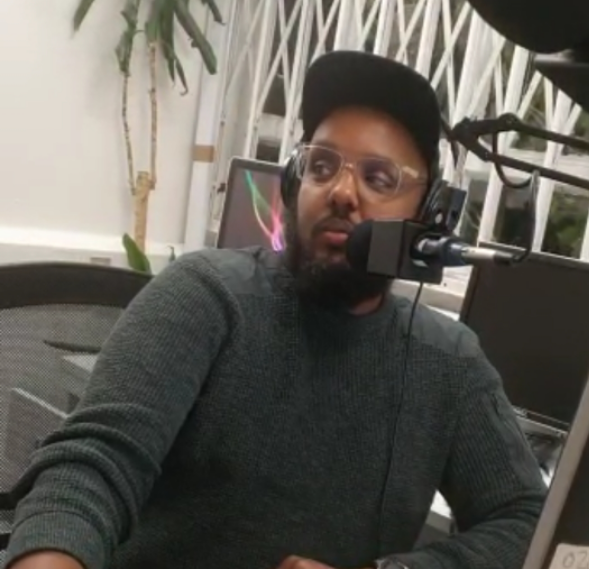
Nomad Radio: a lifeline for the Somali community
How one of our grants is keeping the station on the airwaves through the coronavirus crisis.
The UK’s only radio station for the Somali community, Nomad Radio broadcasts here in Hammersmith and Fulham. Community-led and bilingual, it’s just received a grant by Hammersmith United Charities to keep it on the airwaves through the coronavirus crisis.
Get ready for Halloween!
Pumpkin carving tips and ideas
Pumpkin carving
You will need: Pumpkin, a marker pen/pencil, a sharp knife, a container to collect the insides.
1. Health and safety! Make sure you have a steady non-slippy surface, a good hold of the pumpkin and always carve away from yourself.
2. Use the marker pen to draw a line around the crown and mark the pattern you want to carve.
3. Use the knife to carve, collect the insides in a container to make delicious pumpkin goodies such as soup, pie and hummus.
4. Place tealights inside your pumpkin, put the top on and add to your Halloween display! This is John Betts House resident Bryan with his final pumpkin.
5. If you do not want to use knives, there are some fun alternatives.
We’d love to see your pumpkin creations: take a picture and follow and tag us on social media!
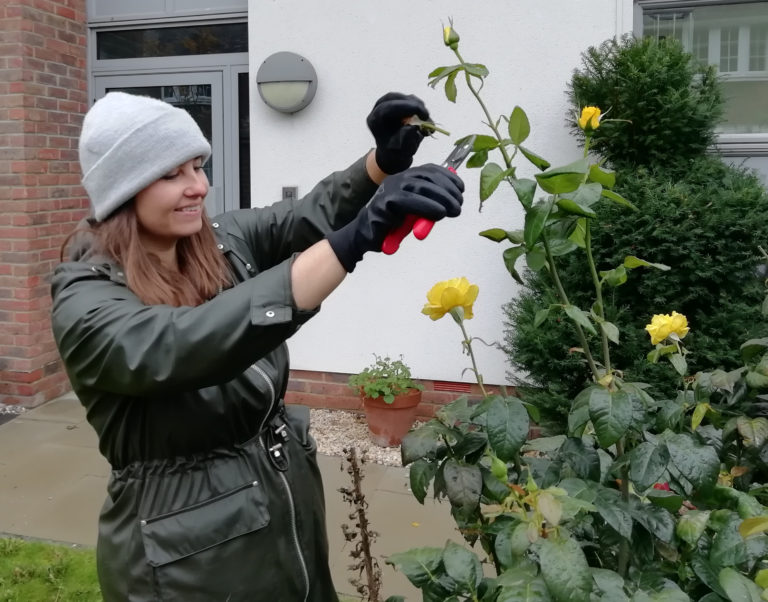
Five minutes with…our community gardener
Victoria helps residents enjoy our gardens and keeps them looking beautiful.

It’s difficult to sum up what I love about gardening. It’s everything. How different plants grow, the seasonal and weather changes (even rain!), seeing others enjoy the flowers that appear and how it invigorates all your senses.
I have always loved flowers, trees and plants. I previously worked as an NHS speech and language therapist and before that in education. Over time, I found myself increasingly turning to outdoor work. The more I did, the more the enthusiasm grew, until I was certain that gardening was the career path for me.
I have seen the proof that gardens can be restorative. I encourage our residents to enjoy the gardens as much as possible, whether that’s sitting and looking, or participating in tasks. During the tighter lockdown, they were a safe space for people to sit and relax. Residents said they felt lucky to have them.
Talking to the residents is lovely. It’s great to learn what plants people like in the garden, or what they are doing with their container gardens outside their flats. I love listening to tales from their lives – many people have such interesting stories. It’s quite inspiring and sometimes very funny.
It was a really hot spring and summer but we watered mostly by hand. I could not have done it all without the residents helping me. They were completely brilliant. They often help me with plant names that are new to me (there are so many!), and do daily tasks like open and close the greenhouse and check on the barrel pond at weekends. It really helps. Heading into winter, there will be many jobs to do in the gardens. One of the biggest is mulching, which is adding an enriching and insulating layer of composted material to every bed in the garden. We have lovely things on show, like winter flowering shrubs. The residents often stop to chat about what they can see on their way through the gardens.
There is always some colour throughout the year. Jackie, the head community gardener, has used succession planting. So when certain plants fade, others begin to pop up. There are lots of lovely surprises as the weeks go by. You have no idea the gardens are there from the busy London roads outside. You step into a peaceful, natural space you’re not expecting. When I first visited almost a year ago, I felt the ‘wow’ factor, and I still get that now.
Find out more about our sheltered housing
With award-winning communal gardens, our friendly and affordable sheltered housing helps residents live independently for as long as possible.
We have flats available now for older people from Hammersmith. Talk to us on 020 8600 0650 / 07733 842 574, email info@hamunitedcharities.com or read more here.
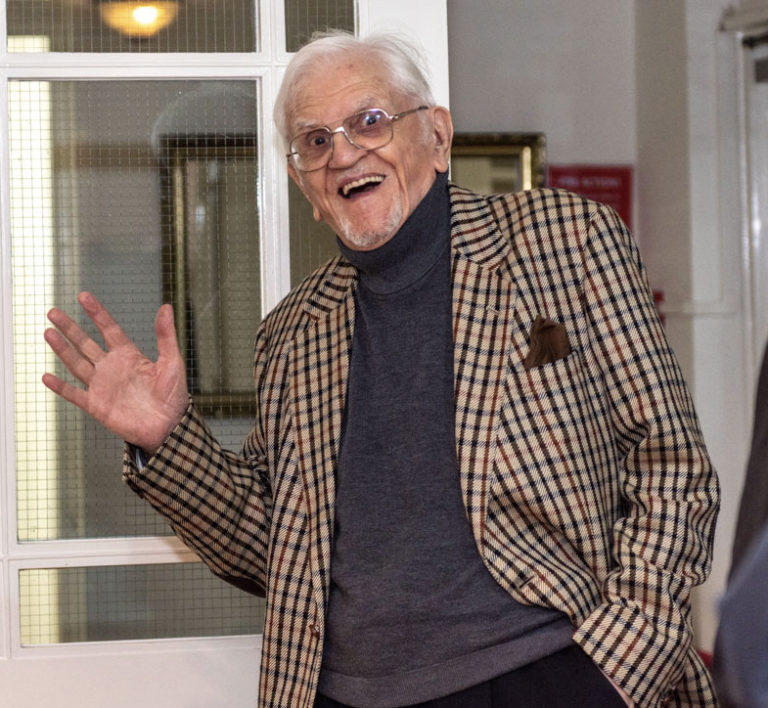
“I’ve got everything to live for”
Meet Bill, one of our sheltered housing residents.
He’s had a singalong in an air-raid shelter, played a giant gorilla on the big screen and been around the world eight times. Now one of our residents Bill is happily settled in a quiet Hammersmith haven with everything he needs (plus a few new grandchildren to keep him busy).
I used to live in a bedsit just around the corner from here in Rylett Avenue. I’d walk past John Betts House every day and think, “That looks like a nice place to live.” I never dreamed I’d live here myself.
I happened to meet a lady who lived at John Betts in my art class, and she told me there were units available. And that was it. I can’t believe I’m living in such a comfortable place in my old age. This is the centre of London, but it’s so peaceful. You can hardly hear a sound.
Where I began
I can remember when London went through the Blitz. I was living in Scotland at the time. We never saw a single plane, but if an air-raid siren went off in London, a siren would go off in Brechin as well. If the Londoners were hurrying into their shelters, then off we’d go too – quick march. We’d have a good singalong, and even lessons if a teacher was in the shelter. And you’d be in trouble if you were caught without your gas mask. It’s a bit like today. Now, I think: if we all pull together like we did back then, we’ll win this war too.
I got my first taste of cinema in those days. Every Saturday afternoon we went, and it was always packed solid. Two pennies to get in. I loved ‘cowboys and indians’ sorts of films like the Lone Ranger. Since then, acting has been my life. I’ve been in about 100 films. I started at 15, and one of my first roles was playing one of Fagin’s boys in Oliver Twist. Eventually I made a bit of a name for myself as an arch-villain, I think because I was tall, had black wavy hair and a deep voice. I played Dracula and Frankenstein’s monster on stage. It was fun; everyone likes to be scared, from a safe distance.
My most famous role was Konga, a 1961 sci-fi horror film directed by Herman Cohen. It was about a giant gorilla which ran riot and I had to wear an ape suit for six hours a day, 10 days straight. I did most of the scenes on my own against a blue screen, chasing people, bending over houses, causing mayhem. Jess Conrad was one of the stars of the film. He was terribly good-looking and all the girls were mad about him. I had to kill him, which didn’t make me very popular.
Film-makers find it pretty hard to get 80-year-old actors, so I was still doing about a day a month on films up until last year. The last one I did was Stan and Ollie. But I’ll be 90 soon and I’ve had enough now. I’m quite happy just watching.
There were a few breaks from acting: I was called up for national service and sent to Egypt around the time of Suez Canal troubles. I worked in the Forces broadcasting service. I quite enjoyed it, but all that sunshine and sand! It was like being on a beach for a year. There wasn’t much to do.
I was also an entertainment officer on P&O cruise liners and I travelled around the world eight times. I organised cabarets and dances – and yes, of course I got involved too! I saw Rio, Sydney, New York… But do you know the place that I found most exciting to sail into? Southampton. Coming back home.
A peaceful haven
I never imagined that I’d finish up in such a lovely place. John Betts House has got everything you could want. When I wake up in the morning, the sun comes streaming in through the big windows. There are huge gardens right outside, and you can smell the flowers in my room.
I always say that when you get past 60, you develop a personality – everyone here is really interesting. People are friendly and happy to chat if you want, but they also mind their own business. There are always things to do, if you want to: social activities, coffee mornings, quizzes. I’ve been on trips to Bath and Winchester, and up the canal on a boat. I’ve also taken up painting in the last 10 years and that has kept my artistic juices flowing.
Things are a bit different at the moment. But this feels like one of the safest places in London. We are in an enclosed community, so there is no need to go out if you don’t want to. Occasionally I get up very early and go for short walk, when nobody’s around.
I’ve got three children but up until a few years ago there were no grandchildren. Now I’ve got two, with another one on the way. It’s like waiting for the number 7 bus. But it’s absolutely thrilling – I’ve got everything to live for.
Find out more about our sheltered housing
We provide beautiful and affordable sheltered housing in our almshouses, with award-winning communal gardens.
Call Leslie, our Housing Manager to find out more or to come and visit: 07470 793 565, email leslie.morson@hamunitedcharities.com or go to have a look at our sheltered housing pages.
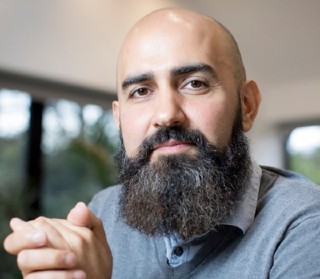
Trustee profile
Amir Sadjady is a local entrepreneur, housing expert and a trustee for Hammersmith United Charities.
 I grew up in neighbouring North Kensington and now live and work in Hammersmith and know the area well. I had visited a resident of one of the almshouses before and was very impressed with the beautiful gardens – you would never know they were there from the outside – and so when I saw the ad for new trustees I was really keen to get involved.
I grew up in neighbouring North Kensington and now live and work in Hammersmith and know the area well. I had visited a resident of one of the almshouses before and was very impressed with the beautiful gardens – you would never know they were there from the outside – and so when I saw the ad for new trustees I was really keen to get involved.
I love helping to improve people’s lives through my role at Hammersmith United Charities. As a trustee I have responsibility for the future direction and vision of the organisation. I attend regular board meetings, ask questions when needed and contribute with opinions when direction or decisions are required.
I bring a particular specialism in business, housing and property to the team – I own and run a new launderette in White City called Wash Launderette 2.0, which I designed and built myself. Most of my customers are residents in Hammersmith United Charities’ area of benefit – since joining HUC I’m much more familiar with the struggles they face. I also have several properties that I own and manage as a landlord, with many private tenants. I’m constantly improving my properties, filling voids and doing refurbishments.
This experience has been really helpful in my role as trustee; I sit on the housing and property committee and it’s been really rewarding to oversee the refurbishment programme, keep track of empty flats and help deal with any issues the residents may have.
I have found out two things since joining the board. The first is how much help the charity gives to the wider community through the grants programme, I had no idea how many people the Charity supports outside of the almshouses and it feels great to be involved in that. The second is how much I like working with Labour councillors, as a former Conservative and then Liberal Democrat activist this was a surprise! The Council nominates four trustees, three from the Labour party and one from the Conservatives so I’ve had to work closely with ‘the other side’ and I can honestly say I’ve really enjoyed it.
Find out more
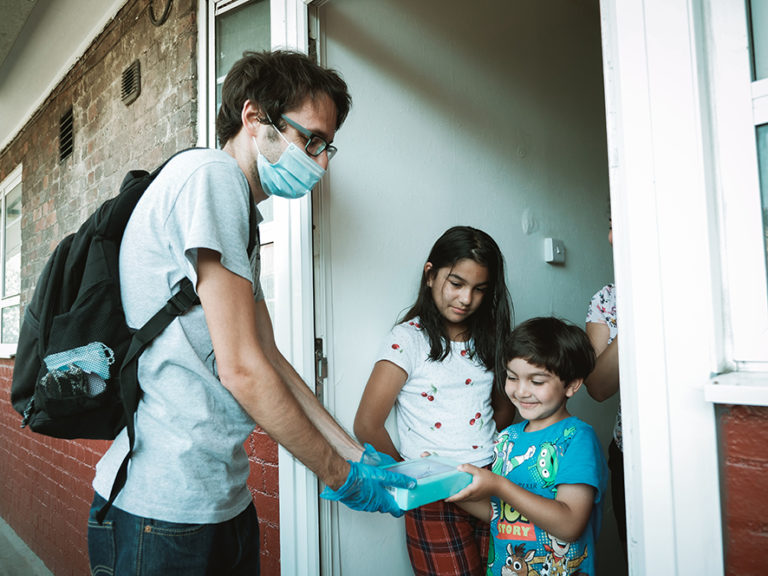
£100,000 donated to help local people hit by pandemic
Find out about the crucial community projects supporting vulnerable people impacted by coronavirus.
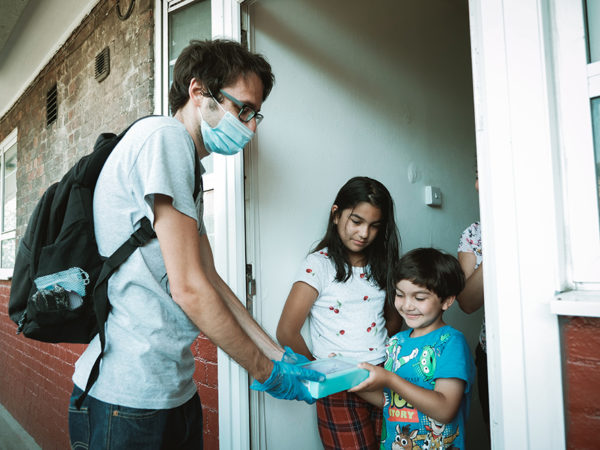
£100,000 has now been donated to crucial community projects supporting vulnerable people impacted by coronavirus.
The Community Coronavirus Response Appeal was launched in March to support local people who are at a higher risk of complications from coronavirus, feel particularly isolated or live in poverty. The appeal is being led by UNITED in Hammersmith & Fulham, a charity we created in partnership with Dr Edwards and Bishop King’s Fulham charity to raise funds for local projects and strengthen our community.
The micro-grants, raised by the combined generosity of people, businesses and foundations in Hammersmith & Fulham, are already making a real difference. Activity boxes are being delivered to children living in poverty; more telephone befriending services are being offered to people feeling isolated; shopping, prescriptions and nutritious meals are reaching more vulnerable, elderly and homeless people; extra support is on hand for families and children with special educational needs; there are more first responders for people at risk of suicide and with other mental health problems – and much more.
“A huge thank you to our local community for donating money to our appeal, which will go a long way to helping vulnerable people get through this crisis,” said Savraj Kaur, director of UNITED. “But everything is still very uncertain in this ongoing pandemic and we still need to raise funds to help the people in our community who are most at risk. Please support your community and make a donation.”

Let’s Talk About Race
CEO Blog October 2020
One in three people living in the community served by Hammersmith United Charities is Black, Asian or from another ethnic minority community. Despite this, Hammersmith United Charities has never had a conversation about race and our role in tackling racism.
We started thinking more explicitly about racism earlier this year when the Black Lives Matter movement made headlines. We ought not to need to be reminded that racism exists in the UK. Studies repeatedly show that there are persistent and systemic racial inequalities leading to people from ethnic minorities being more likely to experience poorer outcomes in health and education, being disproportionately represented in the youth criminal justice system and prison, or being more likely to suffer from an “ethnic penalty” in earnings.
Coronavirus made these inequalities more visible locally. Feedback from our grantees highlighted how people from black or other ethnic minority communities were far more likely to be seriously affected because they disproportionately occupy key worker or other manual roles; are more likely to live in crowded accommodation without easy access to outdoor space; more frequently suffer existing health inequalities and are less likely to have a financial buffer to help them ride out the financial consequences of the pandemic. Hammersmith United Charities trustee, Adam Matan, CEO of the Anti Tribalism Movement, published a report in April spelling out how the Somali community was more adversely impacted by the pandemic. As the situation goes on these inequalities will continue to be exacerbated.
Over the summer we asked local children to share their hopes and dreams as part of a lockdown arts project. One young person answered simply “Justice for Black Lives”, another wrote “Equality for All”. It is dismaying to think that children growing up in the 21st century in one of the most cosmopolitan cities in the world, in our own area of benefit, are already living with the knowledge that for them equality is a dream not a reality. This was the last prompt we needed to make this a priority for the Charity to address.
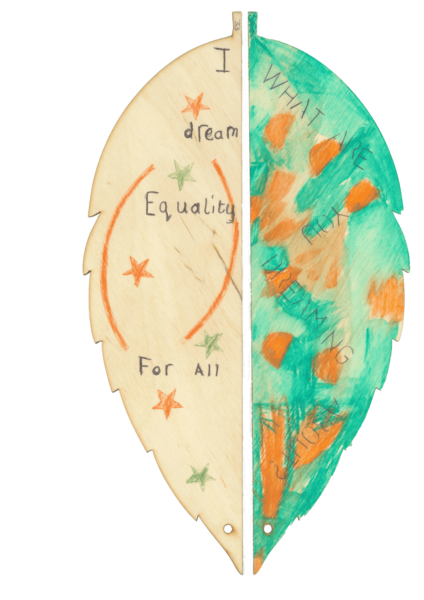
It is notoriously difficult to talk about race and racism and so we called on local experts NOVA New Opportunities to facilitate a discussion between staff and trustees at this month’s board meeting to start the conversation.
They encouraged us to bring down any fear factor by talking frankly about times in our lives when we might have experienced, witnessed or even exhibited racism, how we responded at the time and how we might respond differently now or in the future. We explored our individual positions further by considering our response to phrases which are very visible in the national conversation about race such as “white privilege” and “All Lives Matter”. It was an uncomfortable session at times, but an important first step to get over any initial discomfort and have an open conversation about racism.
Of course, it’s not enough just to have a discussion, we have a duty to take a stand against racism too. NOVA provide a toolkit to help organisations like us think through the steps we can and should take and we will be using this to shape our next discussion in October the outcome of which we will also publish.
The pandemic has made it difficult to meet the young people who shared their dreams of equality and justice with us but I very much hope that when at last I do, I will be able to demonstrate to them what Hammersmith United Charities is doing to help make their dreams come true.
Victoria Hill
CEO
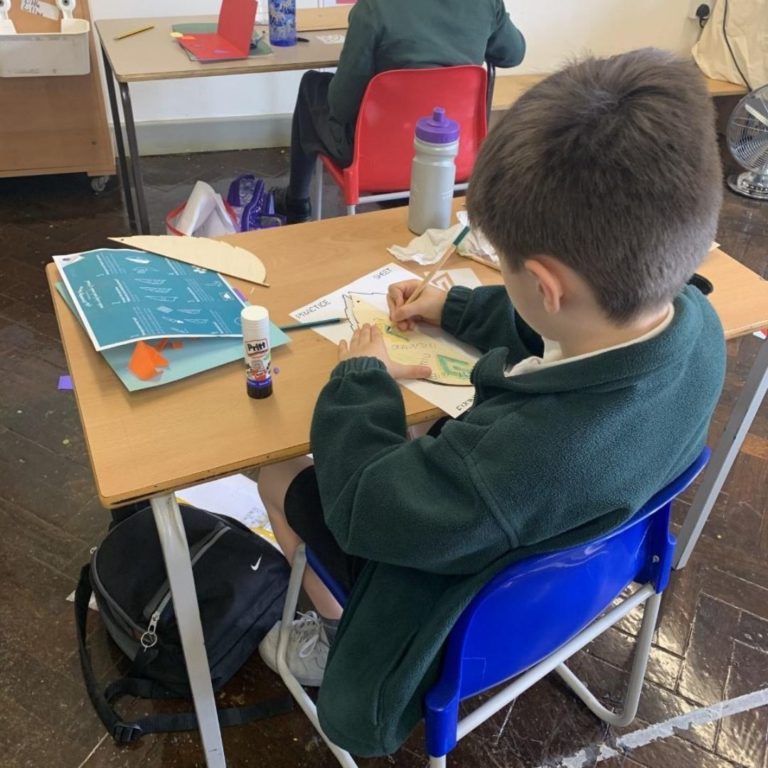
100 Hammersmith children reach out to local older people in lockdown arts project
Over 100 children in Hammersmith have reached out to local older people through the coronavirus lockdown, in an uplifting intergenerational arts project called Dreaming Forest. Children and older people have been sharing their hopes, dreams and memories by decorating wooden birch leaves and posting them to each other. The leaves will be shared with the wider community in an art installation in October.
“It was a joy to bring together two generations who have had to stay apart for so many months,” said Victoria Hill, chief executive of Hammersmith United Charities (HUC), which provides local sheltered housing and led the project. “We wanted people – old and young – to enjoy the magic of unwrapping a parcel to find a unique message from someone reaching out to them.

“It’s so important to us that our residents feel happy, fulfilled and connected to their community. It’s been very difficult for them during lockdown, as we’ve had to restrict visitors to keep our residents safe,” Victoria said. “This was something small we could do to help. The leaves are made of birch, which symbolises hope and the promise of new beginnings – and we could all do with some of that.”
“Receiving something like this from children, it means a lot. It just lifted me from the lockdown – we have all been feeling low,” said Kitty, who lives at Sycamore House in Hammersmith and hasn’t been able to have a visitor all summer. “That the children at school and teachers were thinking of us: it went a long way. The whole thing is a lovely gesture,” she said.

“Our children loved receiving their leaf packages through the post and taking part in the Dreaming Forest project. Using water colours was a new experience for some of our little ones!” said a Year 1 teacher from Old Oak Primary School.

Dreaming Forest was a collaboration between Hammersmith United Charities, artist and researcher Carolyn Defrin along with Wendell Park and Old Oak Primary school, Solidarity Sports and the LIDO Foundation.
Hammersmith United Charities provides quality sheltered housing for people over 60 and offers grants to community groups. For more information about the Dreaming Forest follow us on Twitter, Facebook and Instagram. To find out more about Hammersmith United Charities’ sheltered housing click here.

community@hammersmith
HUC Film Project
Hammersmith United Charities presents community@hammersmith, a film project to celebrate our grantees’ work and hopefully help bring some fun and light into 2020. Our aim is to build a video picture of the enormous value of local organisations, provide an insight into what community means in Hammersmith and help our grantees build their capacity to use film as a medium to tell their story to the people that matter to them.
If you are a grantee of Hammersmith United Charities, please find more information about the project and how to take part in this document.
If you have questions about the project, please email film@hamunitedcharities.com.
community@hammersmith is also supported by Electric Light Studios and Community Switch Sports.

The City Bridge Trust awards £180,000 for the development of UNITED in Hammersmith & Fulham

The City Bridge Trust, the City of London Corporation’s charitable funder, has awarded £180,000 to Hammersmith United Charities for the development of UNITED in Hammersmith & Fulham as a place-based giving in the diverse London borough. The project links those who want to support the community with local causes in-need that will best use their investment.
The grant will be released over five years (£47,000; £43,000; £37,000; £31,000; £22,000) with a focus on core funding.
Dhruv Patel, chairman of the City of London Corporation’s City Bridge Trust Committee, said: “At a time when public finances continue to be under significant strain, place-based giving schemes like UNITED in Hammersmith & Fulham are playing a really important role in tackling disadvantage in London.
“By using their grassroots knowledge of the issues which matter to local people and matching those who want to help their community with causes in need of support, they’re doing a fantastic job of building stronger communities and helping to make the borough a fairer place in which to live and work.”
Victoria Hill, CEO of Hammersmith United Charities said “We are grateful for the support of the City Bridge Trust to further our mission to revive the spirit of local philanthropy in partnership with Dr Edwards and Bishop King’s Fulham through the creation of UNITED in Hammersmith & Fulham.
“It will help continue the work that has already reached tens of thousands of people in need and bring people together to make Hammersmith and Fulham a borough where everyone thrives.”
Kevin McGrath DL OBE, Chair of UNITED in Hammersmith & Fulham, said “This grant from the City Bridge Trust means we can further important work to make our London borough a fairer place in which to work and live.
“We call for local individuals, businesses and institutions to partner with us through our activities, to ensure that local causes which are most in-need, such as homelessness, isolation, health inequality and racial disparity, are recognised and responded to in the most effective way possible.”
The City Bridge Trust, which was founded in 1995, gives £25m a year to charities fighting inequality and disadvantage in London.
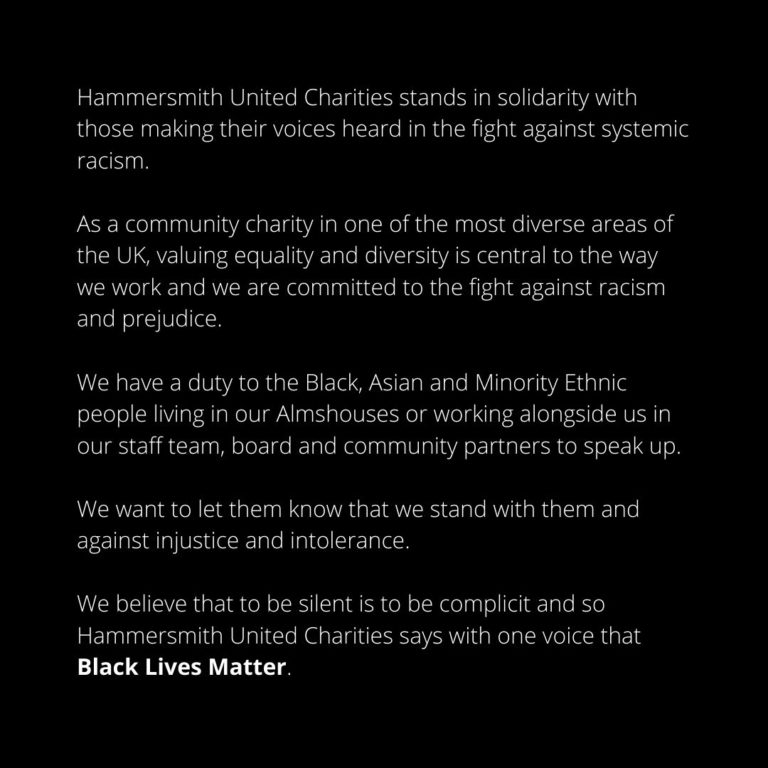
Black Lives Matter
We stand in solidarity with those making their voices heard in the fight against systemic racism.
Hammersmith United Charities stands in solidarity with those making their voices heard in the fight against systemic racism.
As a community charity in one of the most diverse areas of the UK, valuing equality and diversity is central to the way we work and we are committed to the fight against racism and prejudice.
We have a duty to the Black, Asian and Minority Ethnic people living in our Almshouses or working alongside us in our staff team, board and community partners to speak up. We want to let them know that we stand with them and against injustice and intolerance.
We believe that to be silent is to be complicit and so Hammersmith United Charities says with one voice that Black Lives Matter.
June 5th 2020: Tonight at 10pm Hammersmith & Fulham Council will be lighting Hammersmith Town Hall purple as H&F takes the knee and says with one voice that Black Lives Matter. Full statement from H&F Leader Stephen Cowan:

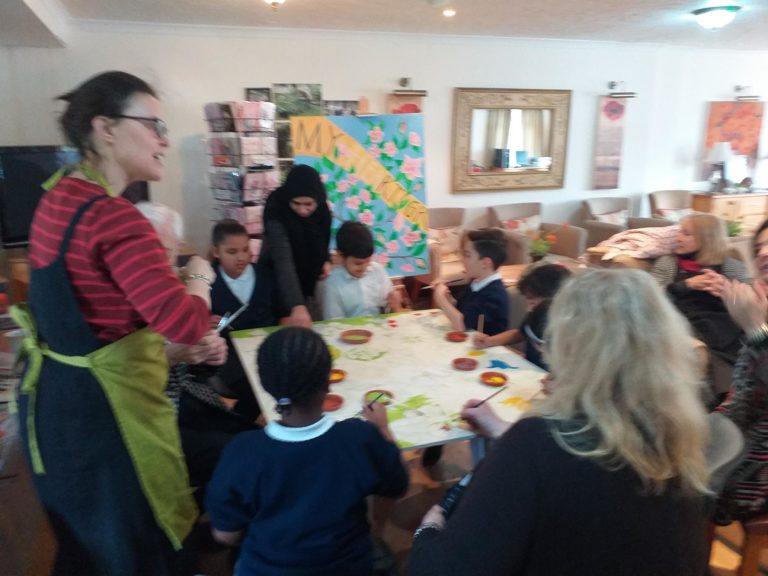
Mural Project at John Betts House
After the Mosaic Project, our residents are back to work! This time they’re painting a series of panels to form a Mural for a wall at John Betts House – and of course they are helped again by local school children. We can’t wait to see the final result in a few months!
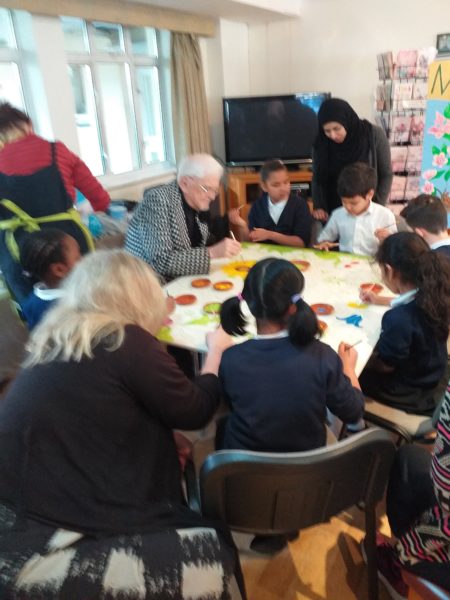
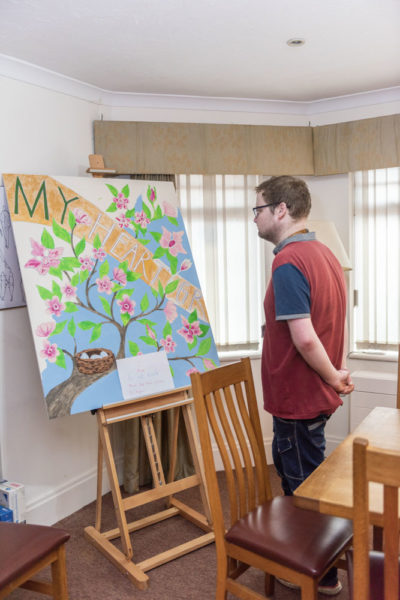
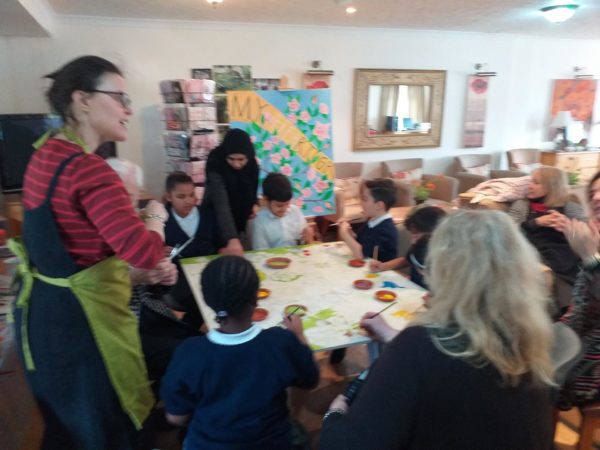
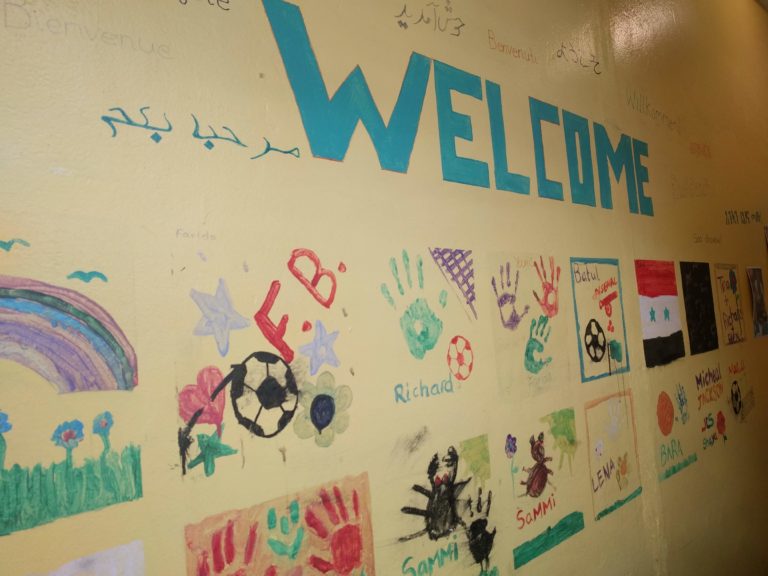
Grants awarded January 2020
And May 2020 deadline
Find below our new grantees for January 2020.
The Grants Committee will meet again in May – to be considered for a grant, please send your application no later than Wednesday 29th April 2020.
Click here for more information and to download the application form.
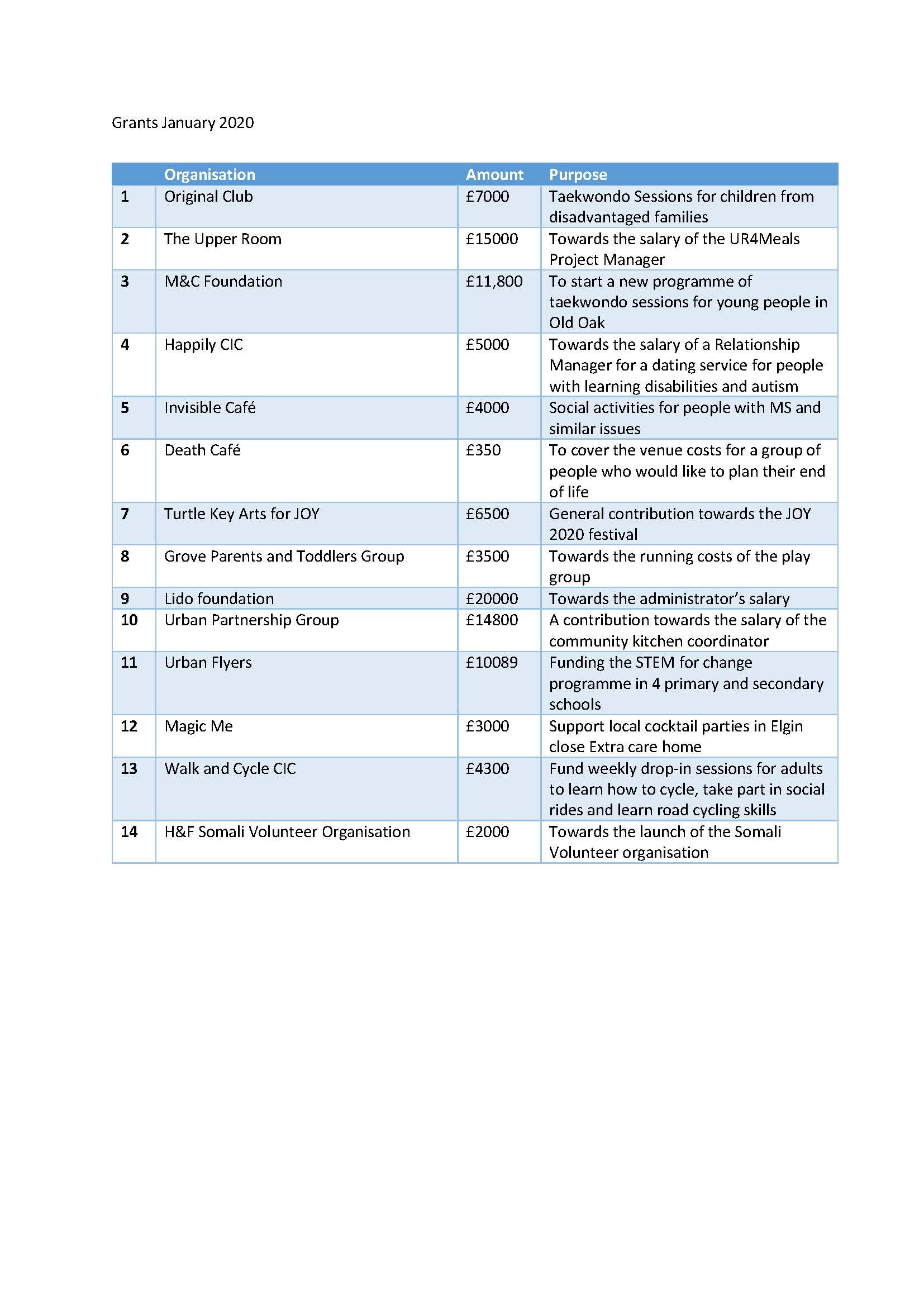
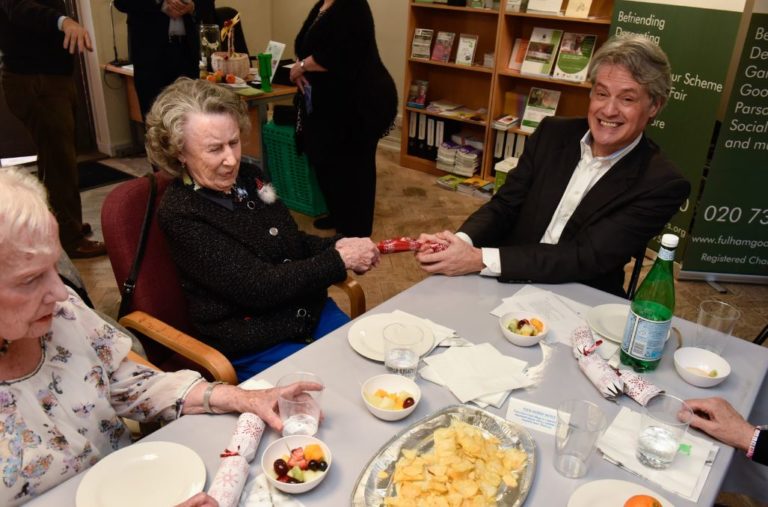
Warmer Together Winter Giving Campaign Begins in Hammersmith & Fulham
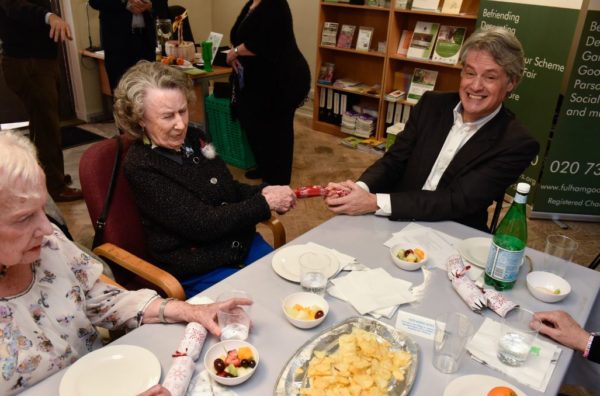
UNITED in Hammersmith & Fulham’s Warmer Together campaign is now live. It calls for local older people who can afford to do so, to donate all or some of their Winter Fuel Allowance to help their less well-off older neighbours this winter.
Winter can be an especially difficult time of year for older people in our borough; of the 19,000 residents aged over 65, over half have a long-term health problem or disability. 25% live in poverty. 43% live alone.
Last year, 278 isolated older people in need were supported, through grants to local charities including Fulham Good Neighbours, the Iraqi Association, Lunch Club for the Blind, and the Somali Development Network.
“Most of the services catering to our community focus on young people, and the elderly are usually forgotten. It’s a great change.” – Resident with no family (83) who attended a social club launch.
Can you give a gift?
Are you someone who received a Winter Fuel Allowance that you don’t feel you need? A local business looking for a Christmas incentive to give locally? Or a younger person who also wants to take part in giving?
Visit unitedhf.org/warmertogether for details on how to give.
“This campaign is a wonderful way to bring people together to support our neighbours. One hundred percent of funds raised will go to local community projects that help older residents.” – Cllr Sue Fennimore, Deputy Leader of H&F Council.
Many thanks to LBHF Council for their partnership in this initiative.

Hammersmith Reflection – Artists in Residence
Encouraging creativity and participation in the arts is an important part of our work at Hammersmith United Charities. Cultural events help to improve wellbeing, remove barriers to social inclusion and contribute to safer and stronger communities.

In June 2019, we held “Artists in Residence”, an exhibition of work by local artists, including residents of our sheltered housing at John Betts House and Sycamore House. The exhibition was part of HF ArtsFest, an annual platform to celebrate the exceptional artists living in the borough, and we were proud to showcase the breadth of talent within the residents of our Almshouses and enable members of our local community to display their work.
The exhibition was kindly opened by Andy Slaughter MP at a fun evening at Pekoe Mellow Tea House jam packed with our friends and neighbours.
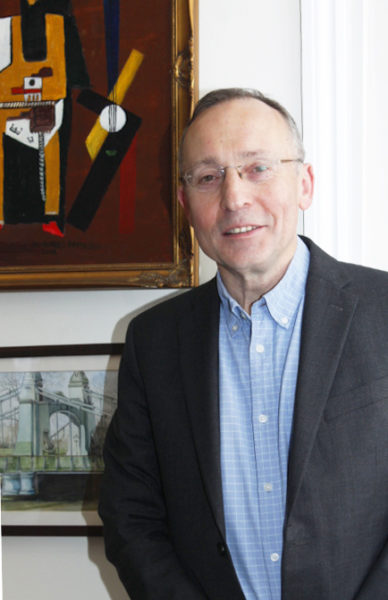
We are very grateful to the artists who allowed us to exhibit their work: Bill Forbes Hamilton, Bryan Payne and Pat Carey-Willis from John Betts House; Betty Dwyer and Joan Hurrell from Sycamore House; Carey Whitley, Dickon Reed and Jamik Wilkins from the Grove Neighbourhood Folk Art Group and local artist Layne Wyatt Thank you also to Zena Zialor for photographing the opening night, our colleague Nora Laraki for curating the artworks and everyone who attended the exhibition.
Many of the artists have enjoyed attending the Grove Neighbourhood Fold Art Group run by Rachel Leach, a project supported by Hammersmith United Charities. Everybody is welcome regardless of their experience so if you think you could be Hammersmith’s next Picasso please take a look!
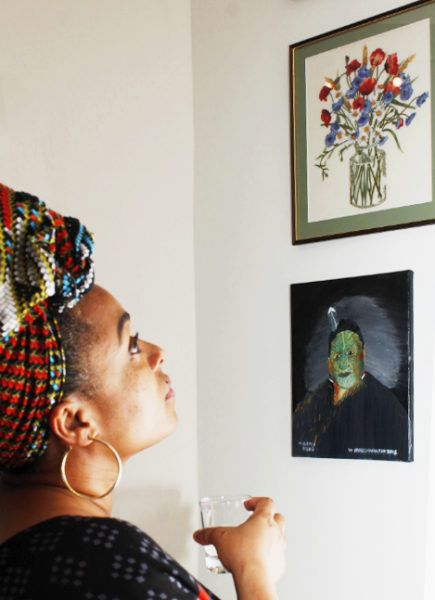
For more photos, click here.
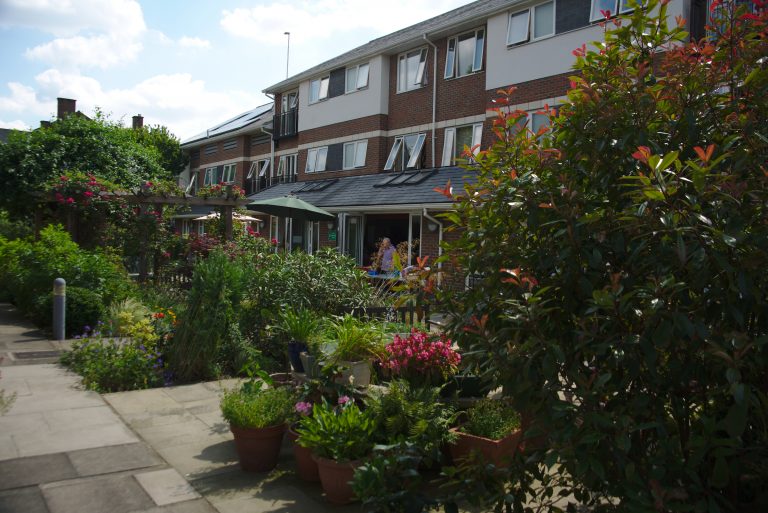
National Housing for Older People Awards 2019
We won Silver and Bronze!
We’re delighted to announce that Sycamore House and John Betts House have won respectively a Silver and Bronze – Regional Awards category – in the EAC National Housing for Older People Awards 2019!
Thank you all for voting!
Next year we’ll aim for the gold! ![]()
All the results for London here: https://eacawards.org.uk/results-2018/london
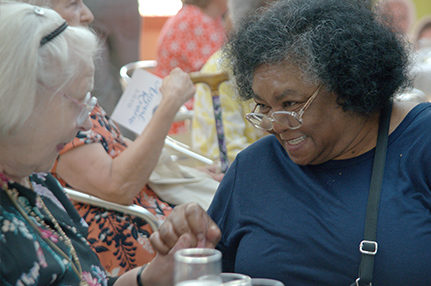
Hammersmith Reflections – Solutions for an Ageing Society
Guest blog by Geoff Hands, business mentor
“Solutions for an Ageing Society” is part of Hammersmith United Charities’ programme of Social Enterprise Grants. Under the direction of Melanie Nock, HUC’s Head of Community and Partnership, it provides funds to launch new business ideas created by budding local entrepreneurs to enhance the quality of life of older residents in the Borough.

As well as offering grants, Hammersmith United Charities also provides a Business Mentor to help each entrepreneur work up a business plan and to support the successful launch of each new business. Coming from a background of law and business, I have had the good fortune to be that Mentor since the programme started in the summer of 2017.
The entrepreneurs are inspiring people, sharing a common characteristic – a fervent and infectious passion for their cause. All except one of them have been women; some young, most of them of a mature age, all of them coming from a variety of ethnicities reflecting the great diversity of cultures to be found in the Borough.
Their business ideas have been just as diverse, but they have mostly shared the common themes of combatting loneliness and enhancing community cohesion. One entrprenuer’s aspiration was to be an Energy Specialist for the Indoor Environment, bringing her career skills in energy efficiency and sustainability to enhancing the indoor environment of residential homes and day centres for older people. Another woman has been working closely with her daughter to establish an elderly persons’ care-at-home business embodying the cultural mores of her community particularly the love of older people and respect for their wisdom and experience.
Cooking and creative arts are well known antidotes to loneliness and insecurity. One very talented young grantee’s solution for an ageing society was “to lift people out of loneliness using food to create a community that meets regularly to talk about health, diet and cooking”. It was her belief “that inspiring people to cook for friends and family is a way to regain self-confidence and that giving the lunch participants new recipes and ideas to try at home will hopefully be an incentive for them to host more social gatherings on their own”.
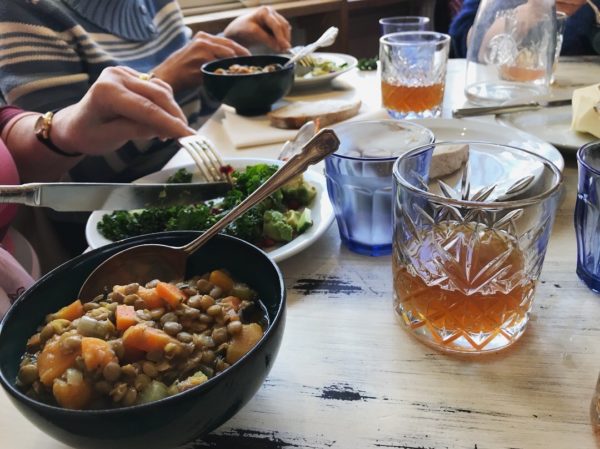
A Solutions for an Ageing Society grant has been supporting another extremely gifted award winner in successfully testing her business idea in the local community – in sheltered housing, churches and community halls. Her scheme is to run “hands-on professional fun and creative Art &Crafts workshops with a focus on Textile Art and Felt Making for the elderly, in a safe and supporting environment” expressly with a view to “to fighting isolation, improving health and well- being and making friends by stimulating the senses and challenging minds to learn new hands-on skills”. She and I are currently working together on ways to take her idea to a new level and to grow it into a fully-fledged sustainable social enterprise.
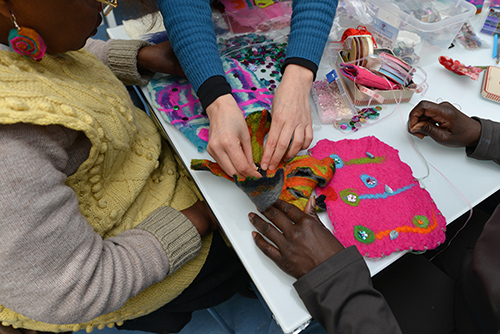
These grants also extend to seed-corn funding an award winner intent on breaking down the taboos that prevent men from certain cultures talking about – and doing something about – the incidence of prostate cancer.
A Social Enterprise Grant from the charity is supporting a new organisation whose mission is the relief of domestic violence in the Borough particularly against immigrant women not able to speak English in isolation imposed by their violent partners. It teaches these victims that domestic violence is not an accepted norm in society, finds them a sanctuary and embraces them in a community of women with shared experiences but now assertive and independent in their own chosen milieu.
And a final “hurrah” for the one man in the scheme – a Life Coach seeking to establish a sustainable business providing a programme of Personal Development Workshops for elderly people. He hopes to introduce a pioneering ingredient – “cross generational mentoring” to integrate different generations working together and supporting each other in motivational life skills.
It is a privilege to work with these compassionate and dedicated people. One of the entrepreneurs wrote recently: “I must tell you that the time I spent with you and Melanie really did restore my self-confidence which had been knocked after almost a year of unemployment. I will be forever grateful for the confidence and belief HUC gave to me during that dark time.” An unexpected accolade for Hammersmith United Charities from an unexpected, unintended but nonetheless very welcome beneficiary.
Hammersmith United Charities has funded this programme in partnership with Unltd and the Esmee Fairbairn Foundation.
Geoffrey Hand
October 2018
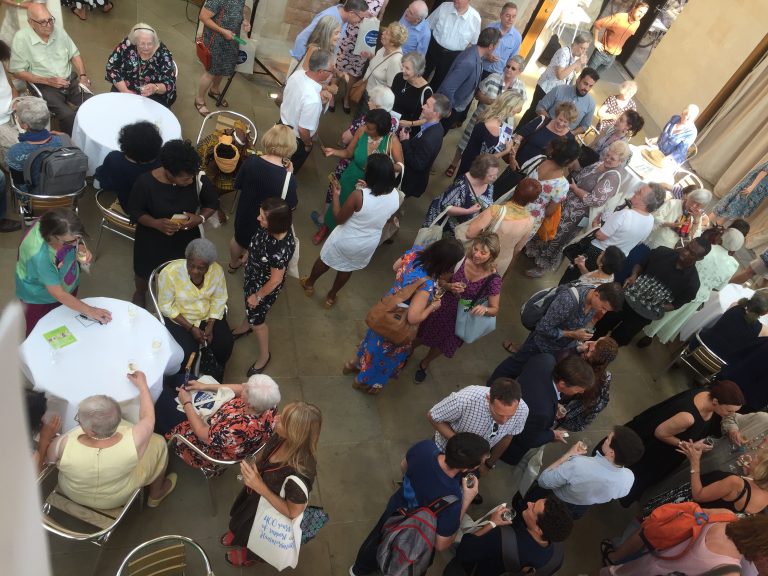
Hammersmith Reflections – Four hundred years of support, and counting!
This month we continued our celebrations of the charity’s 400 (more…)
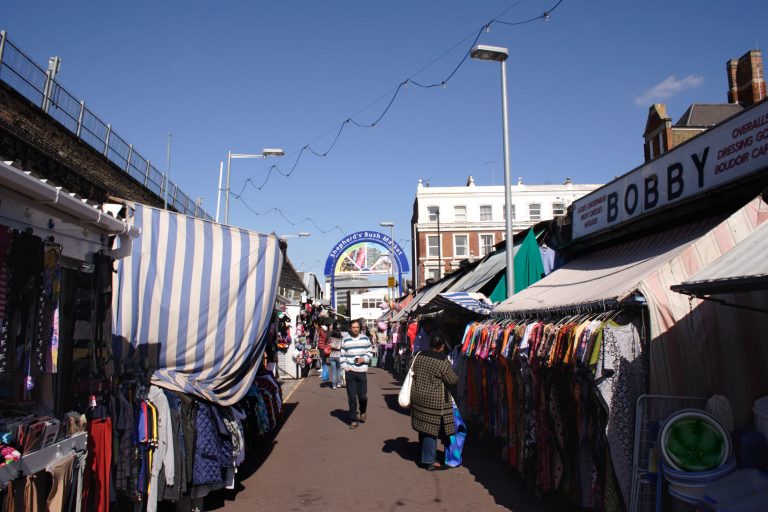
Hammersmith Reflections – Thoughts from a New Trustee…
Every one of us has the capability to contribute to society, and to those less well off (financially, socially, physically etc), than ourselves. Having been involved in the running of businesses for a little while I was keen to donate my skills and knowledge. I had been involved with one local Hammersmith charity and having “done my time”, was keen to find another opportunity within the locality. The people and environment in which I live are important to me. Hammersmith has numerous problems and issues – and to contribute to solve a just very few of them gives me a lot of personal satisfaction.
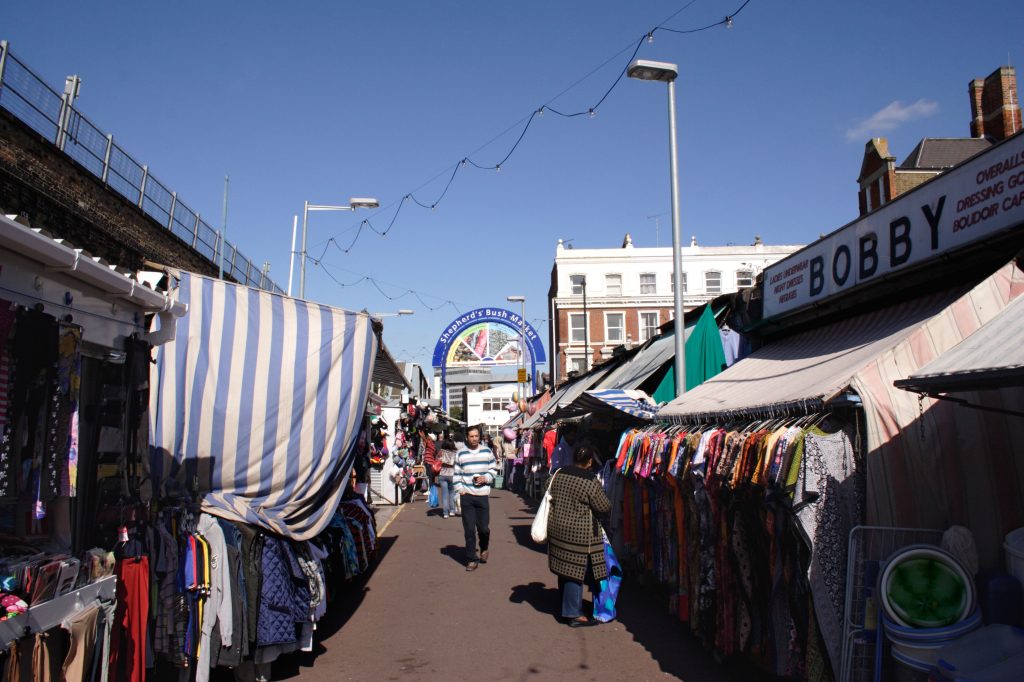
Hammersmith United Charities as we all know has been around for a long time (400 years to be precise). But what attracted me was the vision for the future. HUC has listened to the people of the Borough, through its “Big Conversation” and from that set out a real plan. This is a charity that has a long term vision for the future, is run and organised by some very professional people – and one that I wanted to be involved in.
Housing is a massive problem in our Borough. Hammersmith United Charities already provides really lovely sheltered accommodation to over 90 residents – all of whom would be at the mercy of private landlords without our apartments. But to be involved with a project to increase our stock and offer long term housing solutions to even more in the borough is an exciting prospect. Giving something back, no matter how small the contribution, that will last for many decades is a satisfying thought.
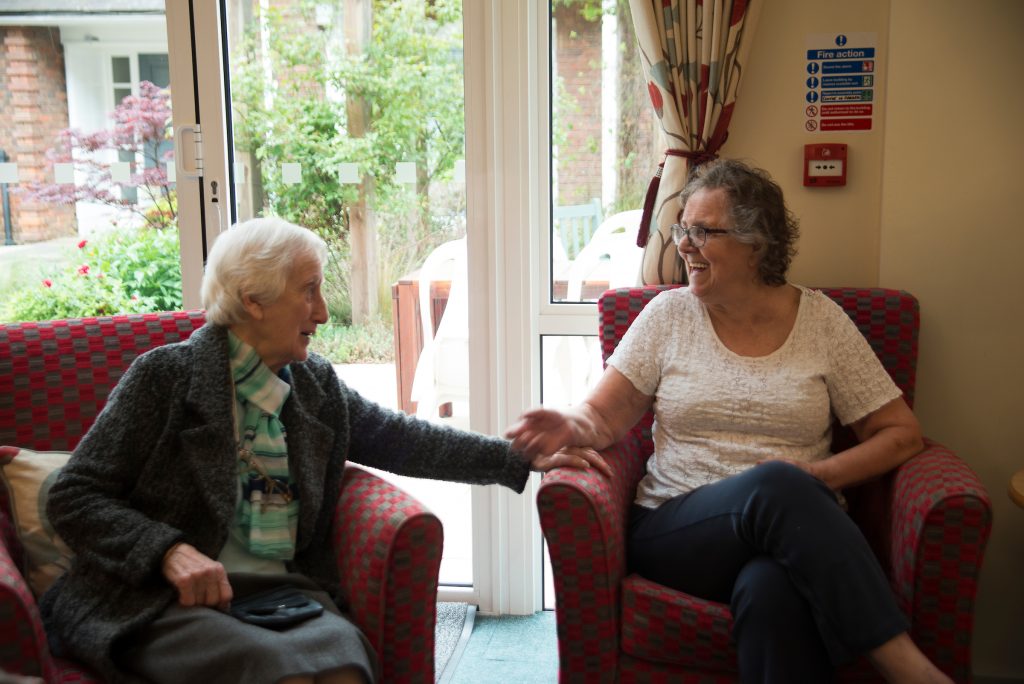
But the charity isn’t just about providing sheltered housing. Over the four centuries of its existence the financial resources of the Charity have grown. This means that in 2018 we will be donating over £400,000 of our income to other local charities and support groups. Making real contributions to real people in borough and helping to improve their lives – whether it be through nutritious meals for homeless people; music for toddlers with language delay; counselling for people who have experienced domestic abuse; or opportunities for entrepreneurs to support older people Hammersmith United Charities makes a real contribution to people’s lives in the Borough – something that I am very proud of. And with the setting up of the combined UNITED charity something we want to do even more with the support of the local community.
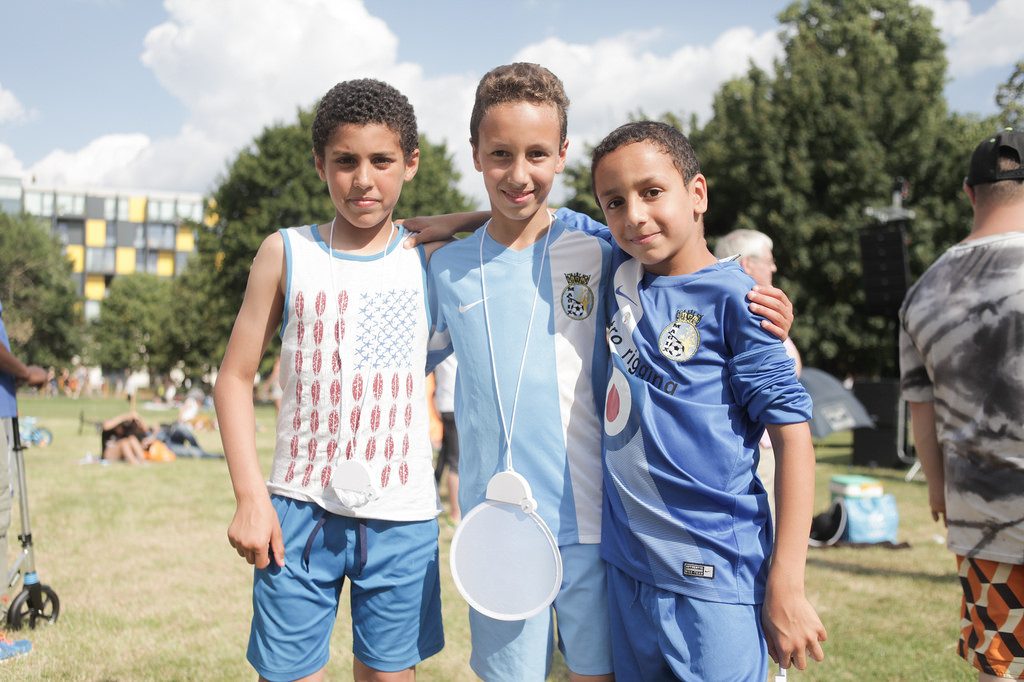
Hammersmith United Charities is an exciting organisation with real plans, to make an even bigger contribution, to our local community. Something that excites me – and something I am proud to be part of.
David Bailey
Trustee
June 2018
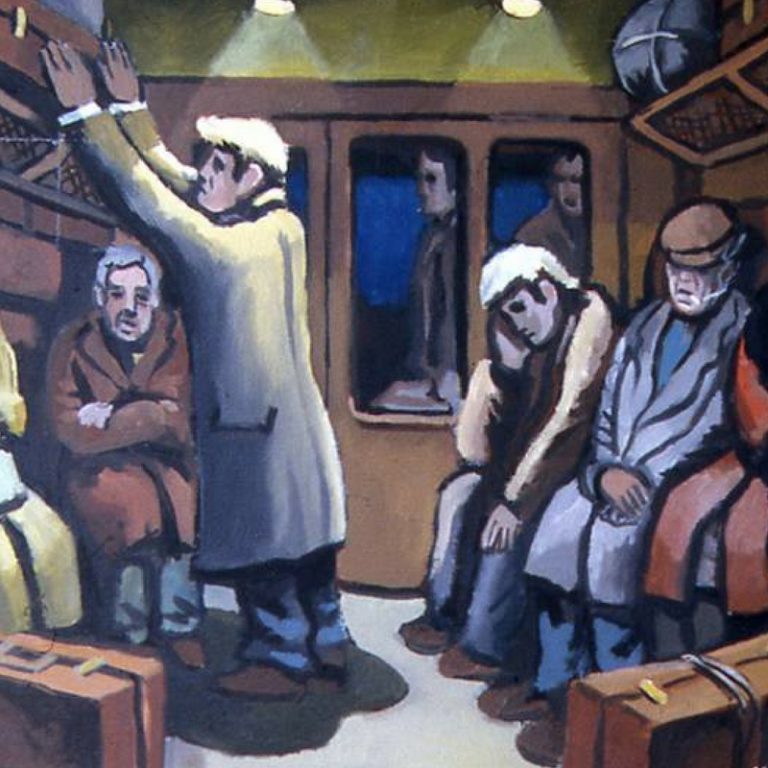
Irish Enigma Event
Serenaded by footstompingly enjoyable traditional Irish musicians, we enjoyed the hospitality of the new Irish Cultural Centre for our third Enigma lunch.
The hall was full for the occasion with guests drawn from the Cultural Centre, our residents, friends of the charity and neighbours who found out about the event from Next Door.

As hoped, the conversation flowed, sparked to some extent by responses to our republication of the reminiscences of Irish migrants first published in the 1980s. Guests were delighted to read the stories; some remembered the original project and, for others, the stories newly discovered, very much tuned in to their own memories.

We ended the event with a riveting and entertaining story by a professional story teller who had the whole hall enthralled and entertained with her tale of her life as the daughter of a small town shopkeeper – and more seriously with her thoughts about “community” – very much the theme of our Enigma lunches.
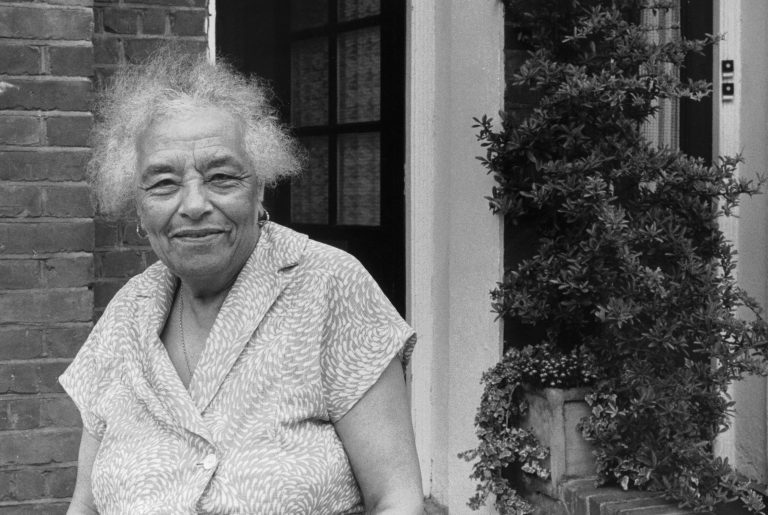
Aunt Esther’s Story – Enigma Event
Last Saturday we had our second Enigma Event in partnership with “Women Make Change” who put together a great event for International Women’s Day. Women Make Change is a charity that promotes and protects the health and safety of women and girls affected by domestic violence.
Melanie Nock took the chance to introduce Aunt Esther’s Story. Esther Bruce’s autobiography written by Stephen Bourne tells the story of a black London Seamstress from 1912–1994 and provides a first-hand account of the life of a black Londoner in the pre-Empire Windrush years. When Esther Bruce was born in Fulham in 1912 only small black communities exited in Britain.
Another big announcement was the launch of the “Agents for Change” Women’s Leadership Programme that we founded in partnership with the H&F Council, the Imperial College and the Lyric Hammersmith.
Applycations are open now, find more information here: http://www.agentsforchange.wixsite.com/agentsforchange
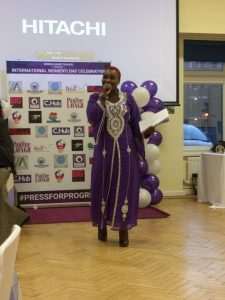
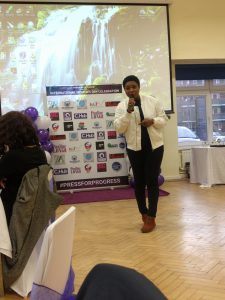
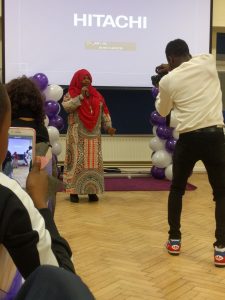
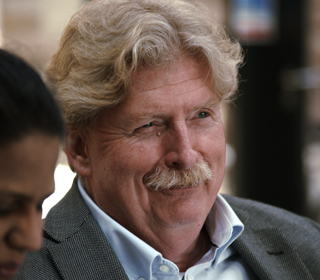
Hammersmith Reflections
A blog written by our Trustees - Julian Hillman
February can be a sad month, fortitude tested by continuing winter, with summer still a long way off. Sad for me personally, because I have to stand down as a trustee of Hammersmith Unite Charities (HUC) after 12+ years and also because Oxfam (more…)
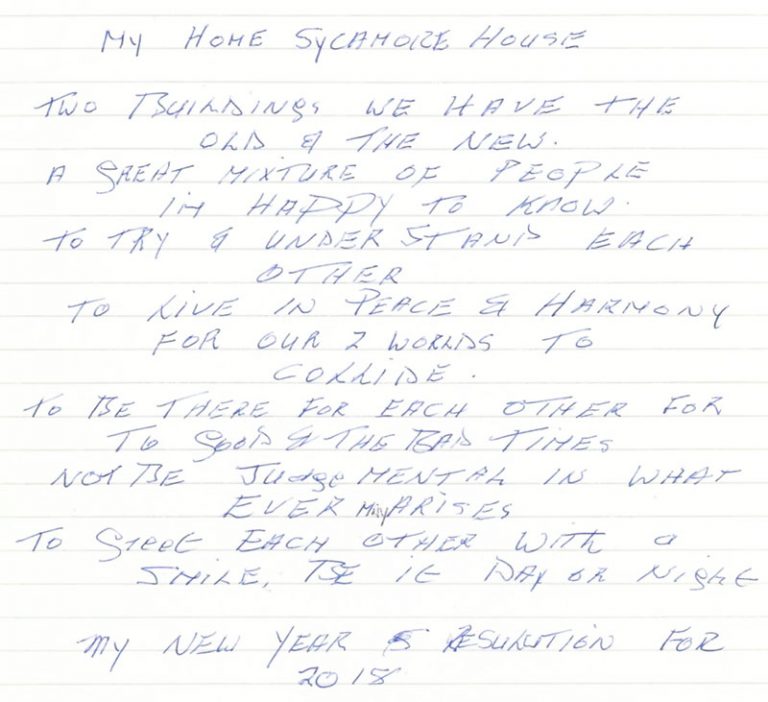
My Home Sycamore House
A Poem by Kitty
Every Monday, from January to March 2018, our residents at John Betts House and Sycamore House are enjoying a Relaxation and Mindfulness course organised by Open Age.
This course of simple relaxation techniques helps slowing heart rate, improving sleep quality, digestion, mood and concentration as well as reducing stress and much more… like, for example, increasing creativity! This definitely happened to Kitty, one of our residents at Sycamore House, who wrote this lovely poem inspired by one the sessions. We just had to share it with all of you!

If you are interested in more activities organised by Open Age, you can have a look at the list (link on the right) or visit their website.
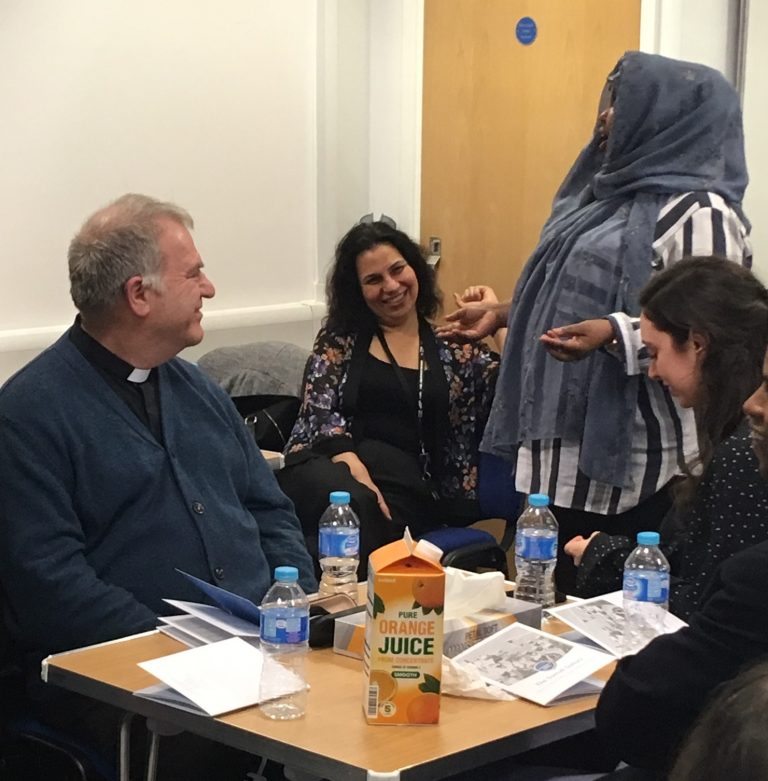
Enigma Lunches — What it is…
“As well as the 456,976 possible starting positions for any set of four wheels, this Enigma machine offers further variations in settings which means that there are 4,134 million possible ways in which it could be set up.” Alan Turing Institute, The British Library (more…)
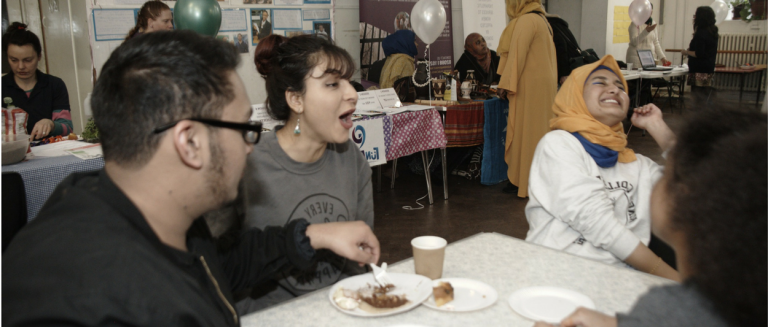
The Enigma Lunches
“As well as the 456,976 possible starting positions for any set of four wheels, this Enigma machine offers further variations in settings which means that there are 4,134 million possible ways in which it could be set up.” Alan Turing Institute, The British Library
Throughout 2018, in honour of Hammersmith United Charities’ 400th anniversary, we are celebrating the rich diversity of the local area through a curated monthly lunch series called “The Enigma Lunches.”
Inspired by a cross-communal lunch we hosted last year as part of our PhD student, Carolyn Defrin’s research, and Alan Turing’s WWII Enigma Code-cracking (that transpired as a result of a casual chance encounter with a secretary); we are excited to see what might emerge when different people come together around food, art and casual conversation.
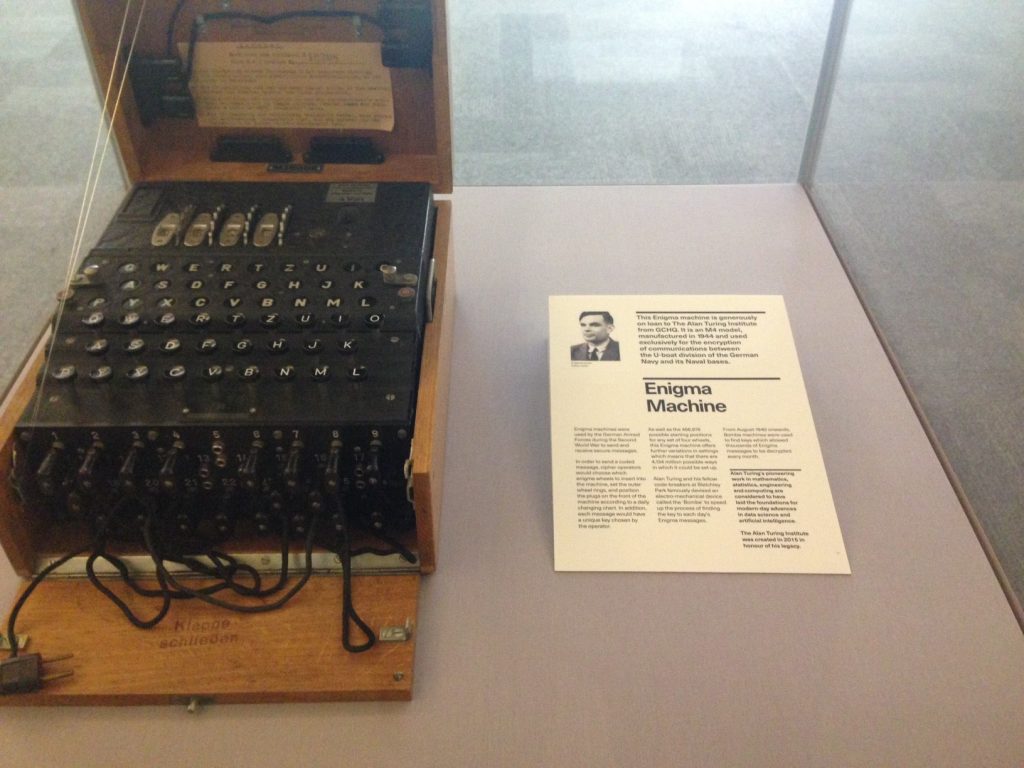
Each month’s lunch will be hosted by different cultural community centres throughout the borough, and showcase associated food and arts activities. Additionally, each lunch will coincide with the republication of a memoir originally published during the 80s and 90s from the Hammersmith and Fulham Ethnic Communities Oral History Project.

Oral History Project
The Ethnic Communities Oral History project ran from 1987 until 1994, and published fascinating insights in to the lives of the diverse communities that make up Hammersmith.

“If English is not your first and most fluent language, how do you share your life experiences with others, not familiar with yours… ‘ordinary people’s’ life histories deserve as wide a readership as possible.” (Sav Kyriacou, former project coordinator, The Ethnic Communities Oral History Project 1987 – 1994)
In the late 80s/early 90s, the Hammersmith and Fulham Ethnic Communities Oral History Project published a set of 12 memoirs chronicling the collective experiences of the communities that make up our very diverse borough through the specific stories of individual members of them.
“After nourishment, shelter and companionship, stories are the thing we need most in the world.” (Philip Pullman)
Nearly a quarter of a century later, as part of our marking 400 years of bringing this community together, Hammersmith United Charities is republishing these stories. Each will be launched at a special lunch held in a venue which also reflects the community in question.
We can think of no better way of celebrating the depth and richness of the heritage of our Area of Benefit nor of showcasing the range of talents and experiences from which it benefits than through the republication of these stories.
He who is different from me ….enriches me. Our unity is constituted in something higher than ourselves – in Man… For no man seeks to hear his own echo, or to find his reflection in the glass.” (Antoine de Saint- Exupery)
This is the full list of publications, we hope you enjoy them as much as we have
- The Irish in Exile – Stories of Emigration
- Passport to Exile – The Polish Way to London
- In Exile – Iranian Recollections
- The Motherland Calls – African-Caribbean Experiences
- The Forgotten Lives – Gypsies and Travellers on the Westway Site
- Xeni – Greek-Cypriots in London
- Ship of Hope – The Basque Children
- Aunt Esther’s Story (with Stephen Bourne)
- Somali Sailors
- Asian Voices – Life Stories from the Indian Sub-continent
- Sailing on Two Boats – Second Generation Perspectives
- Such a Long Story! – Chinese Voices in Britain
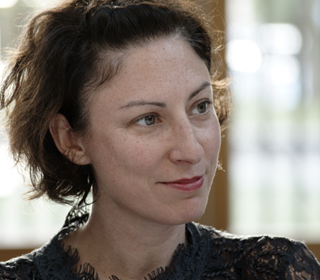
Remembering the Future
Carolyn Defrin, our Phd researcher, collaborated with Levitt Bernstein architects and artist Paul Burgess to create a film and architecture installation featuring Sycamore House and John Betts’ residents sharing memories of living in Hammersmith and their perspectives on housing.
This project featured in the June 2017 London Festival of Architecture as part of the ‘Where do you think you are?’ exhibition at St. Paul’s Centre in Hammersmith. It explored how the residents’ memories and perspectives on home and housing might impact architects’ designs for a new intergenerational housing scheme.
Residents featured in the artwork visit the exhibition with housing scheme managers, Jill and Cathy.
As residents share their stories, their memories fill the architectural models of their flats.

